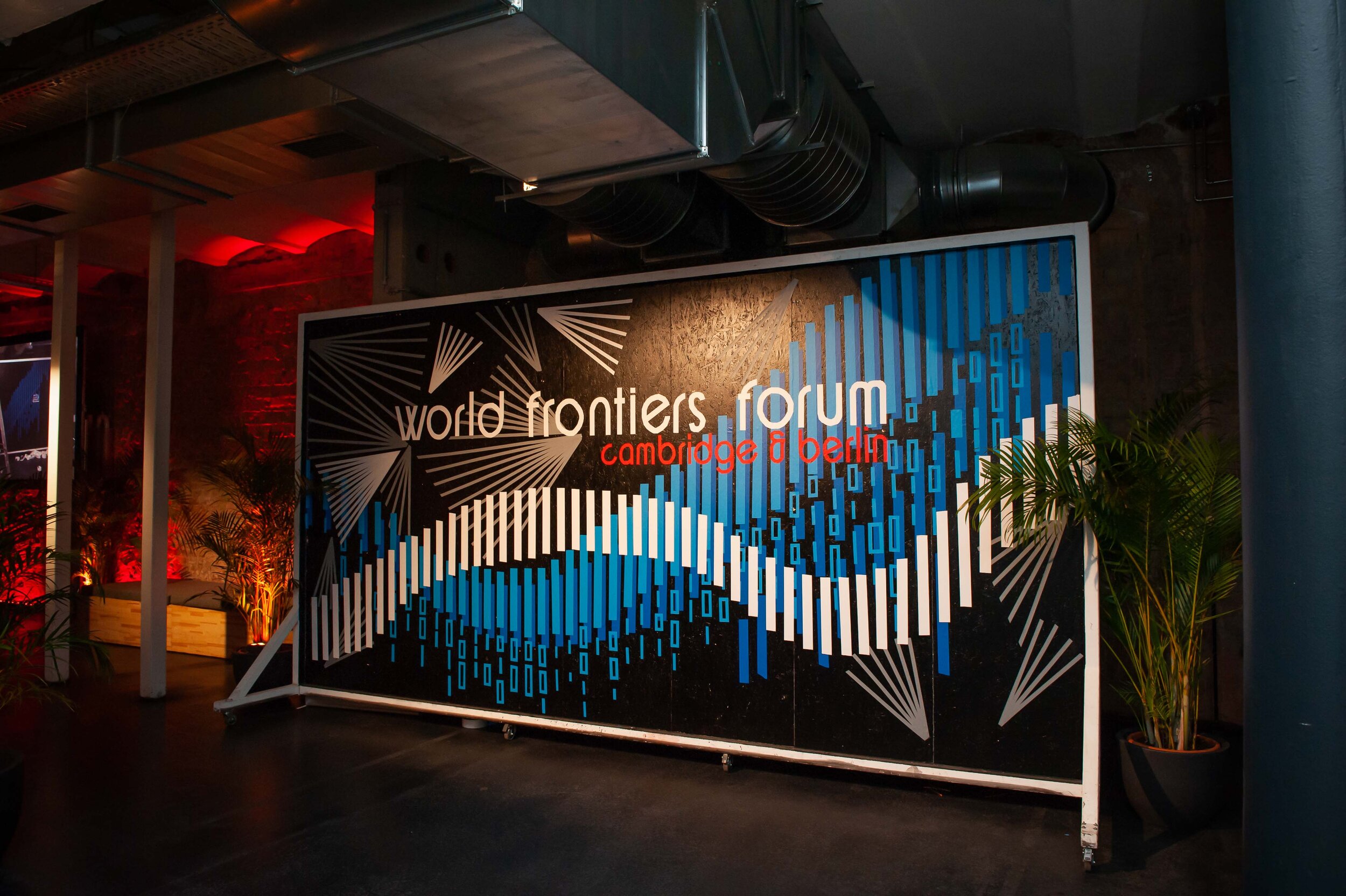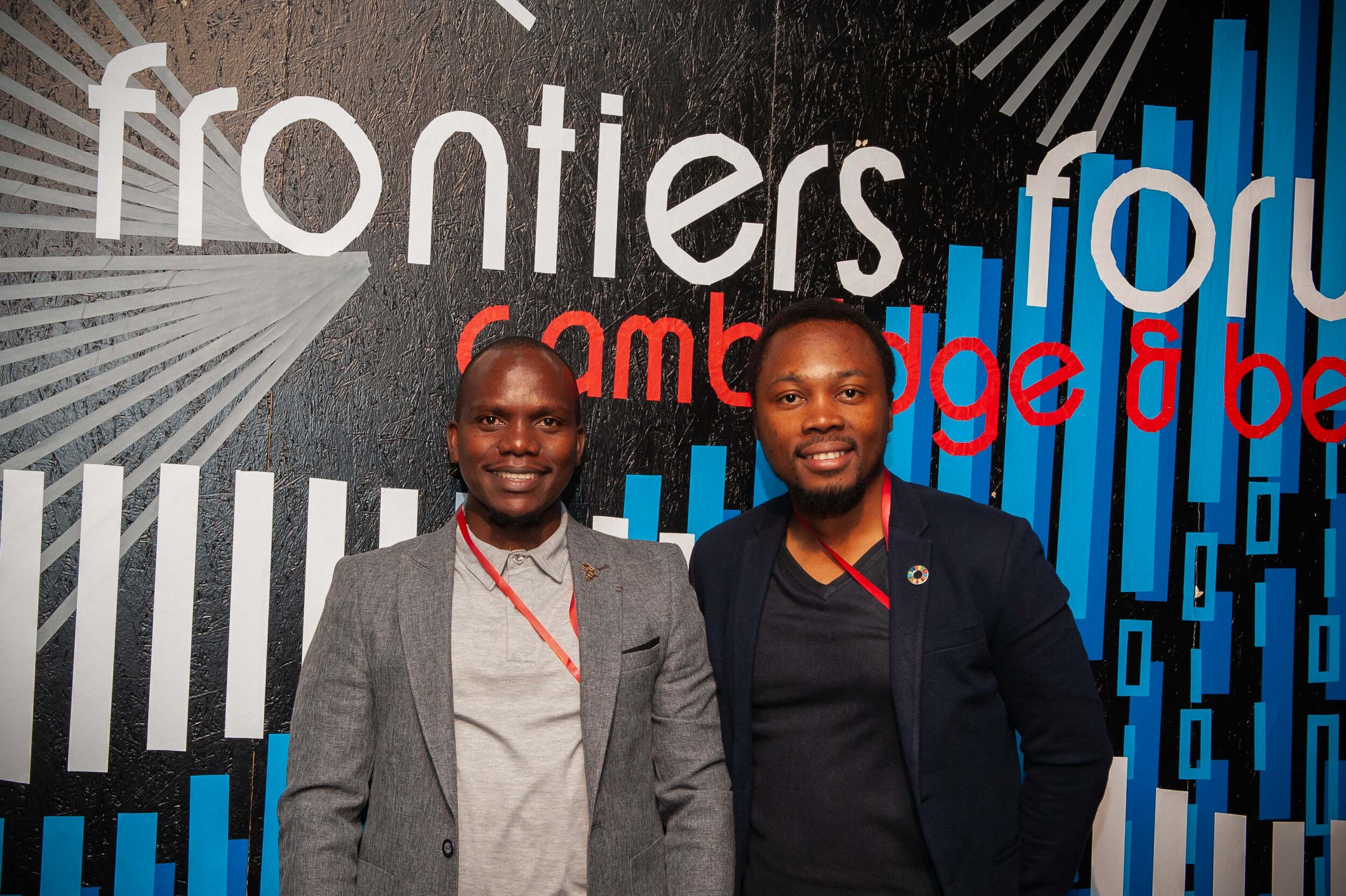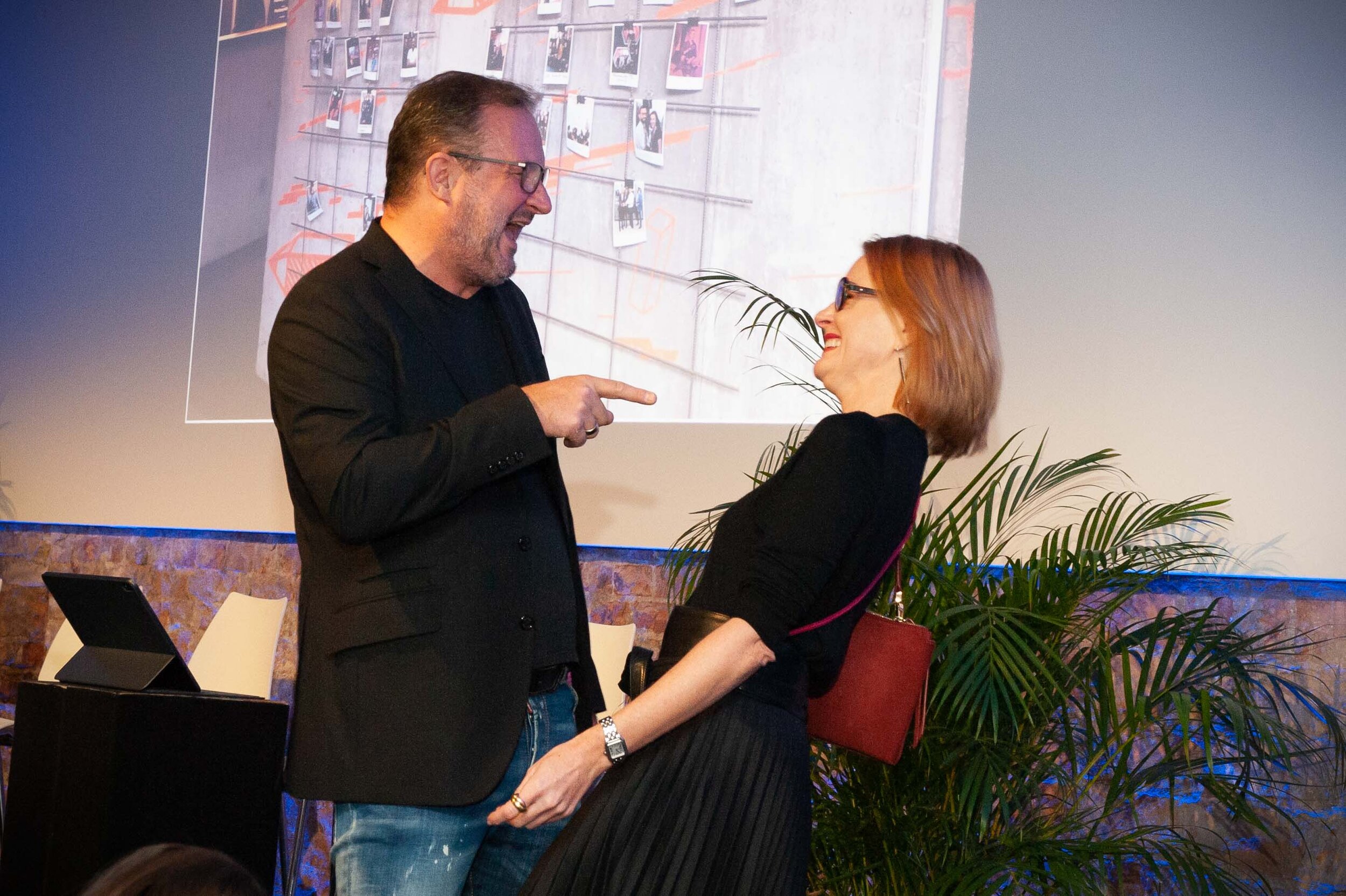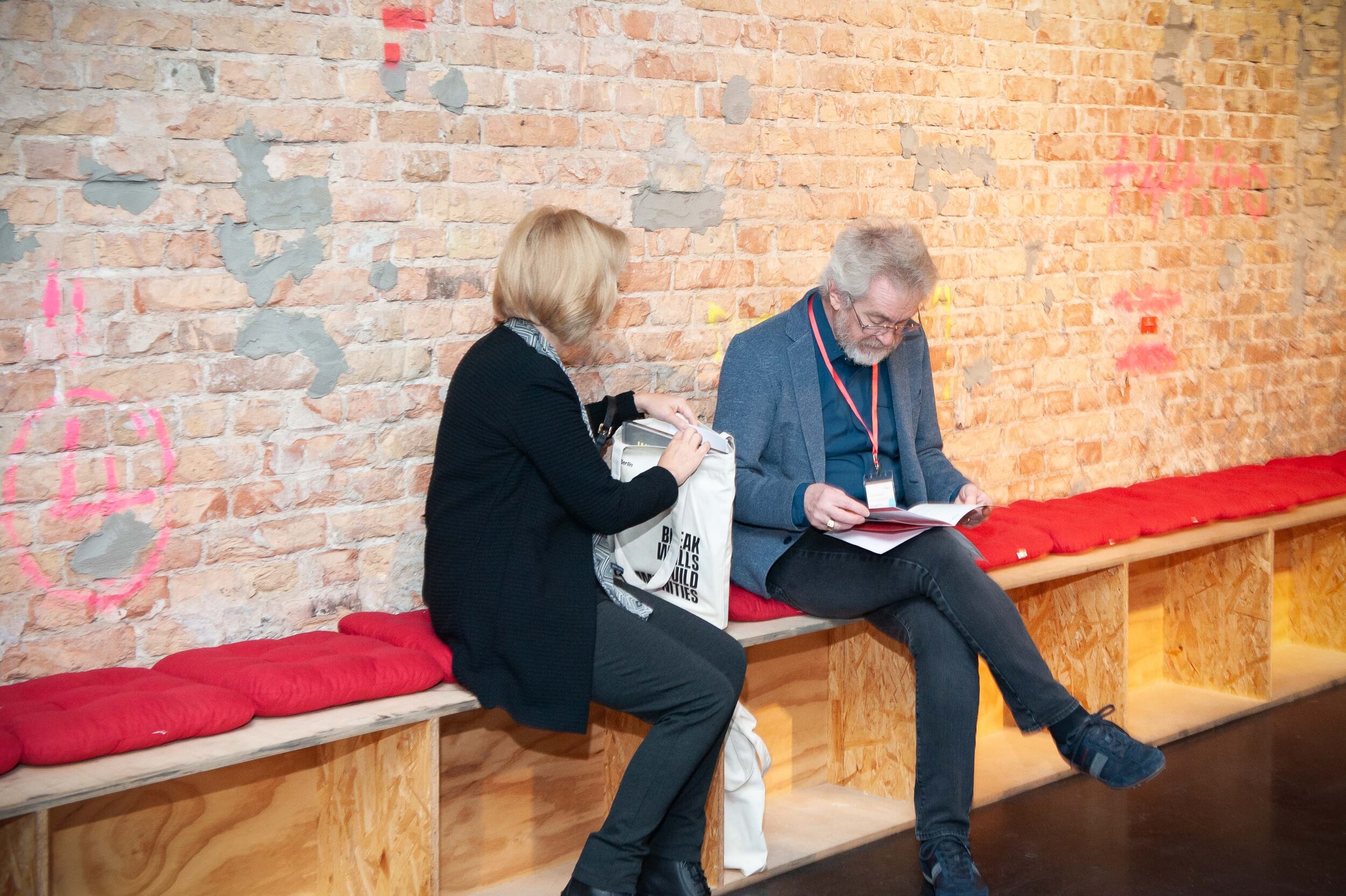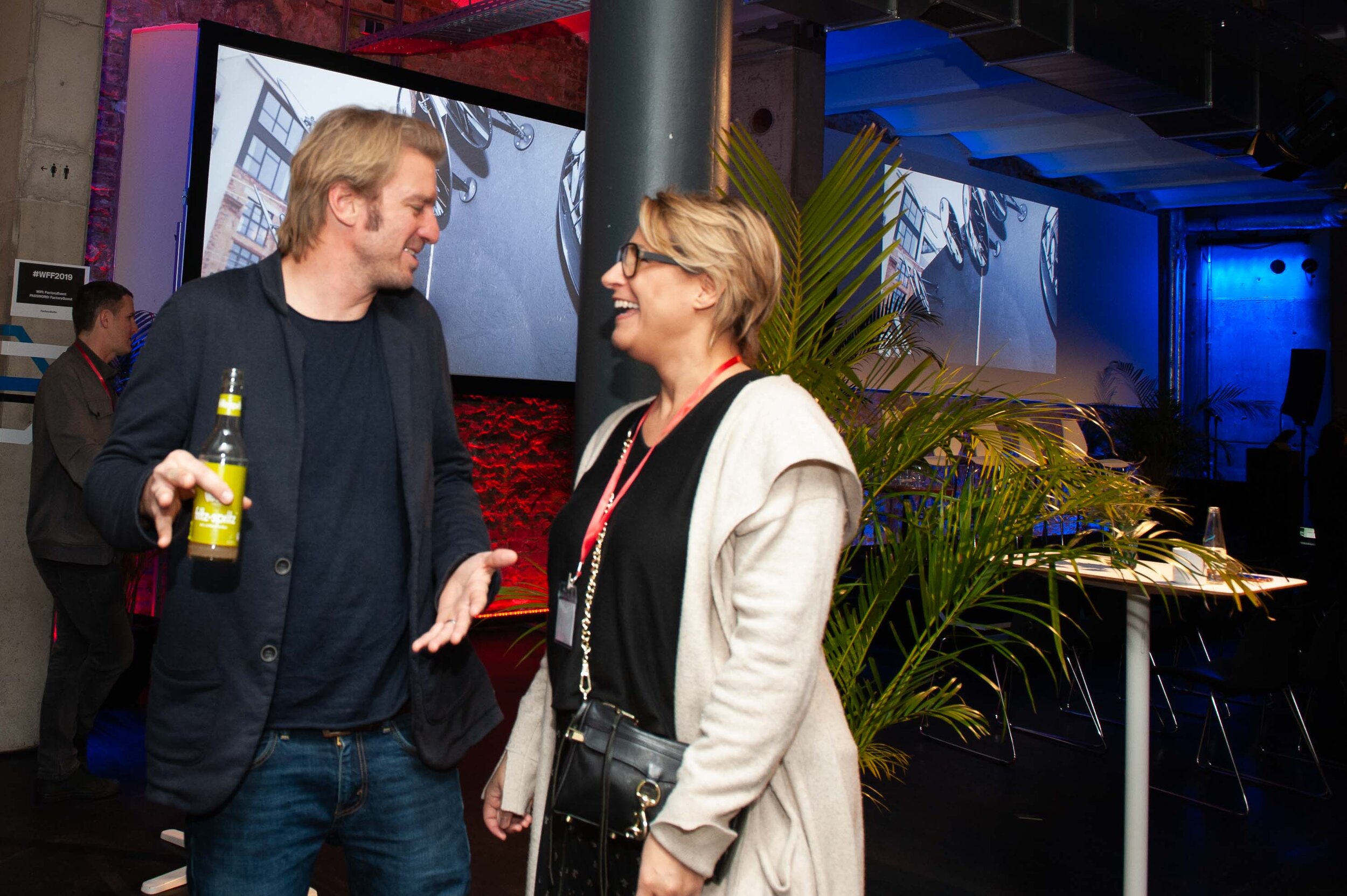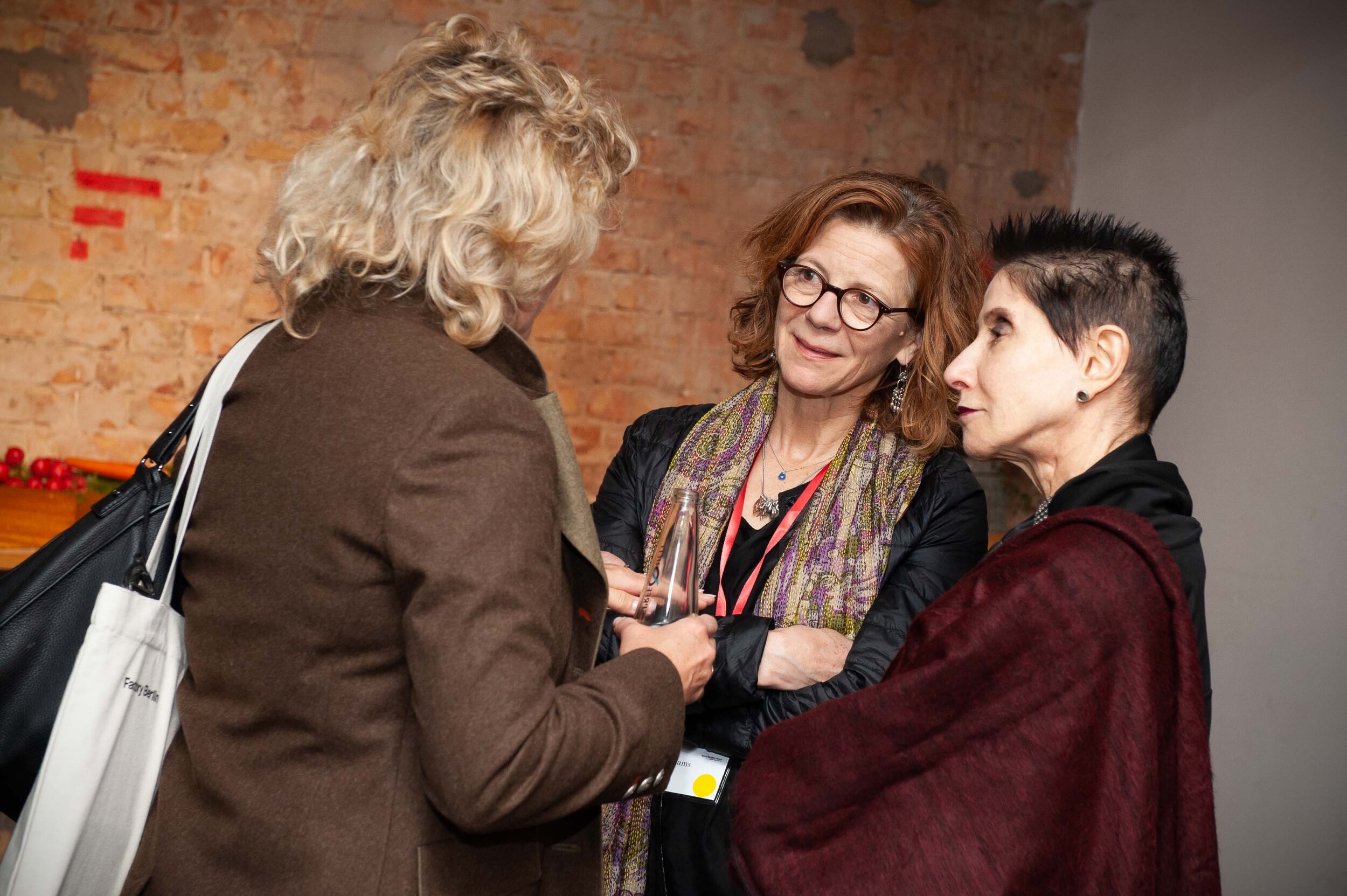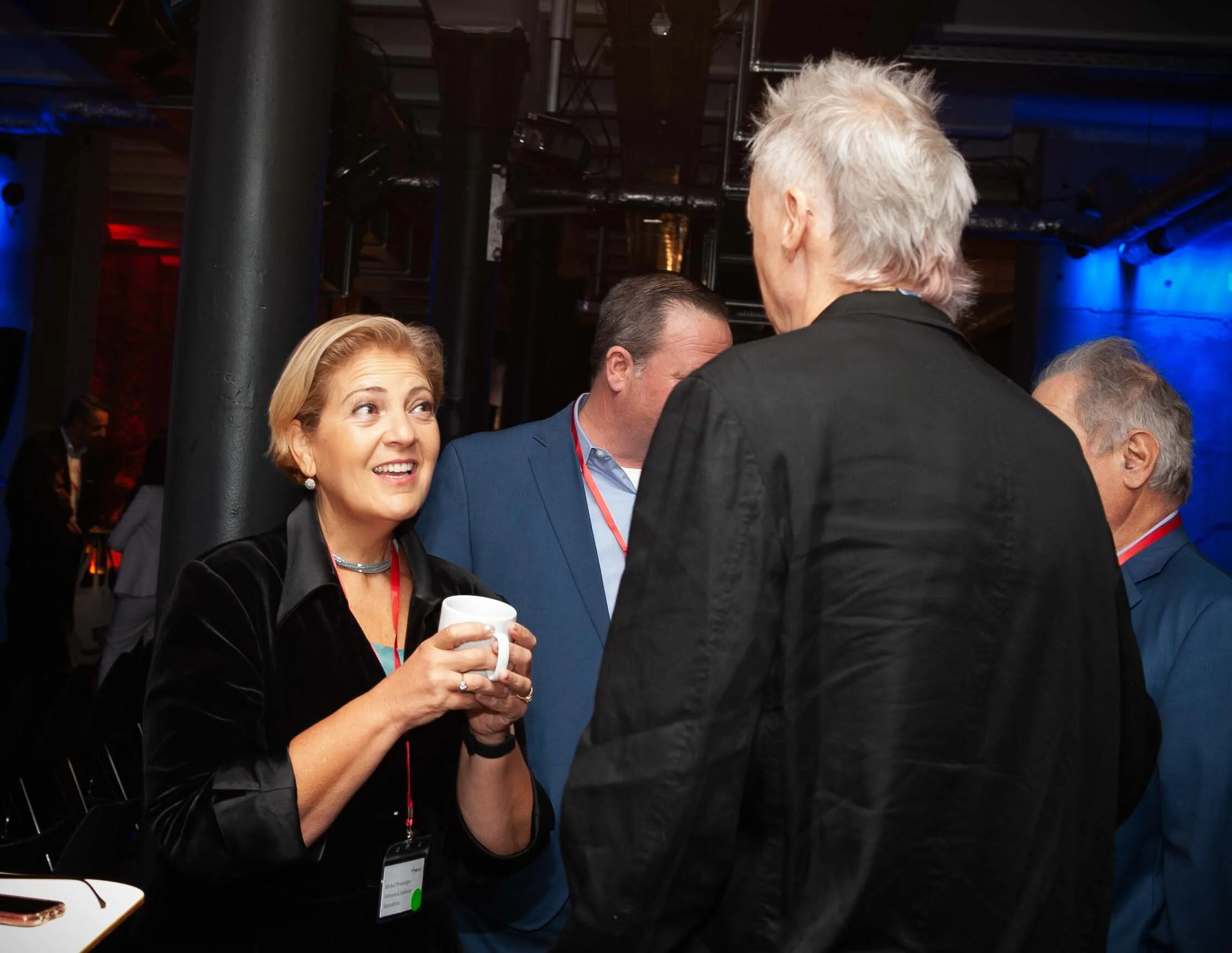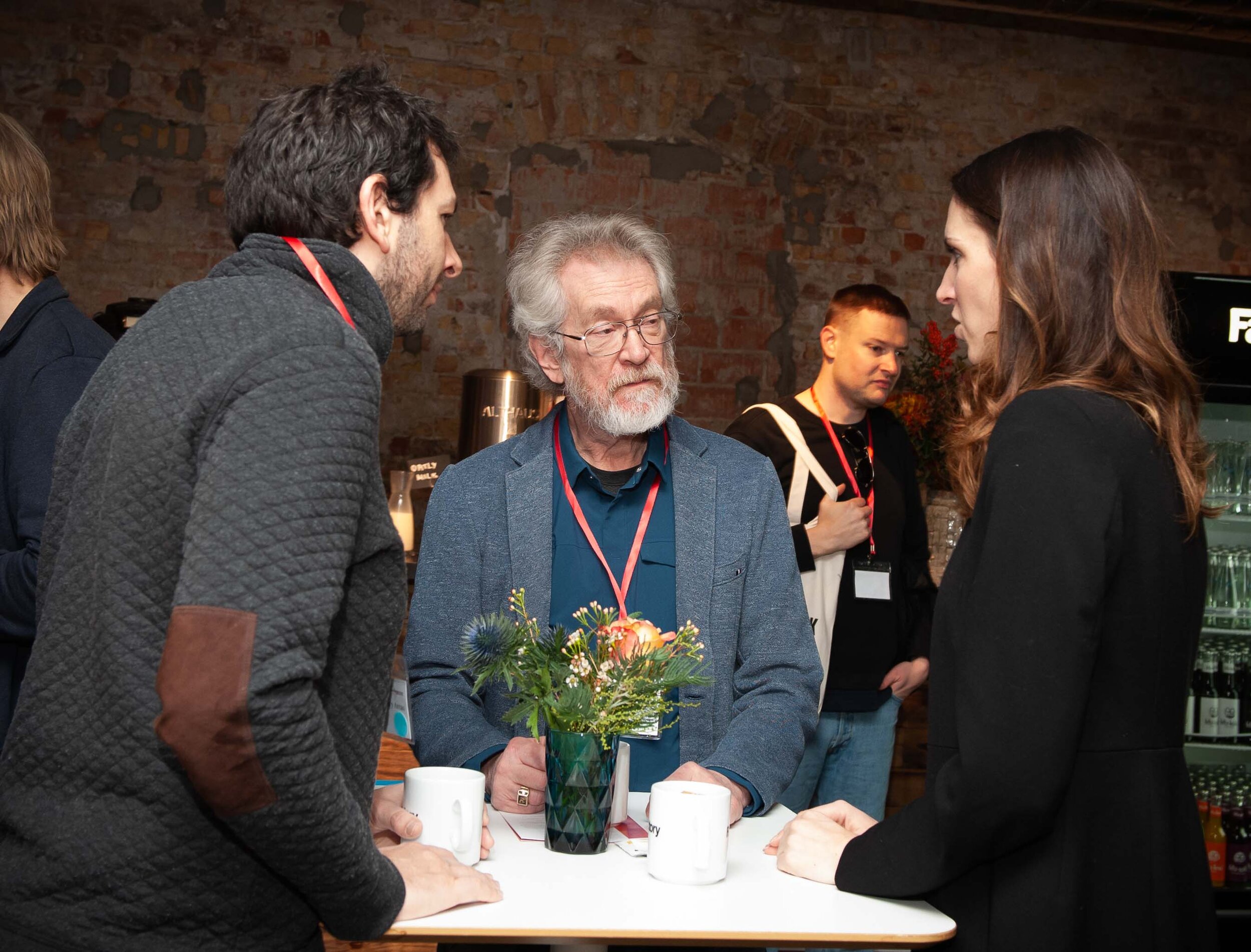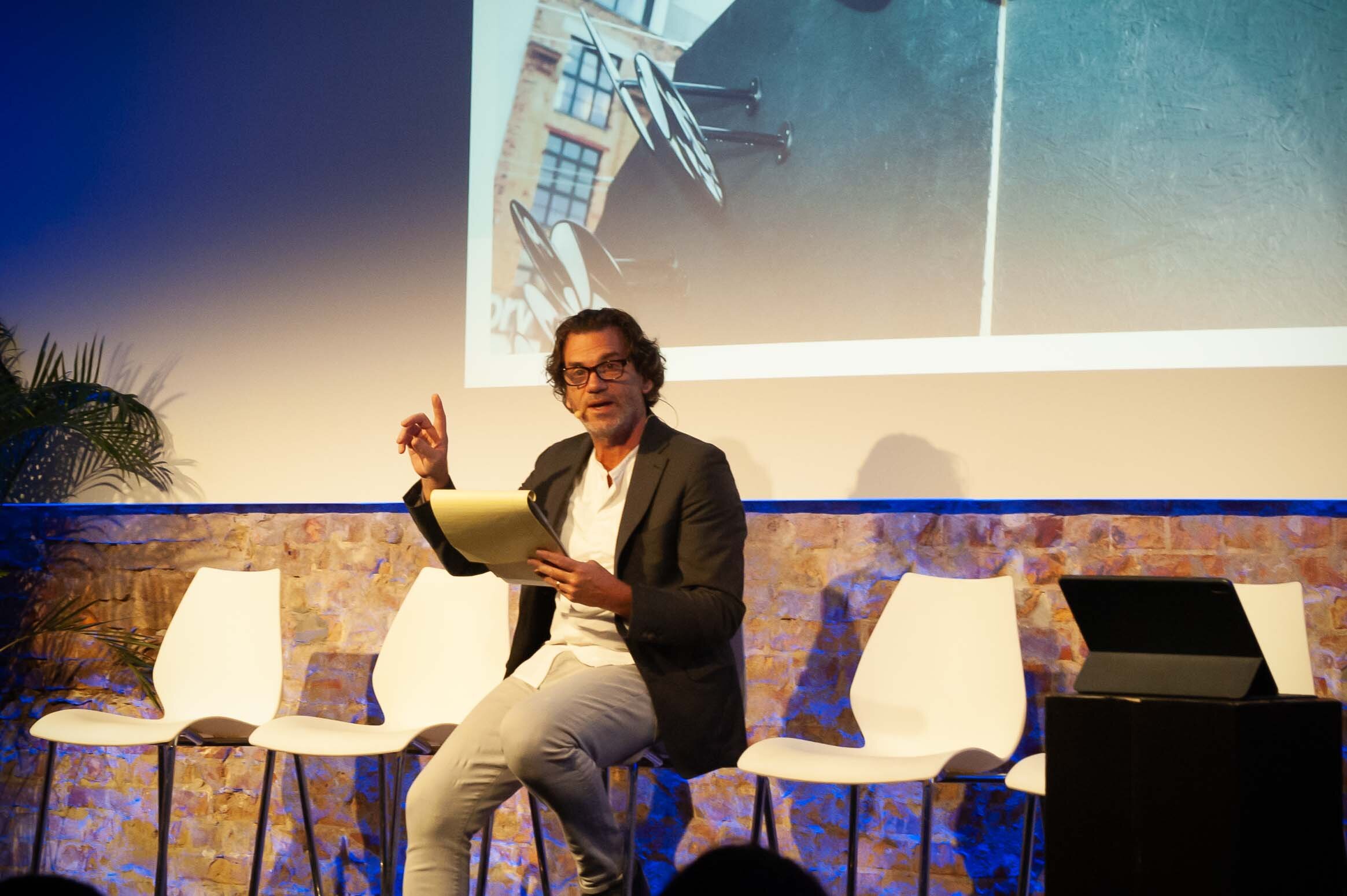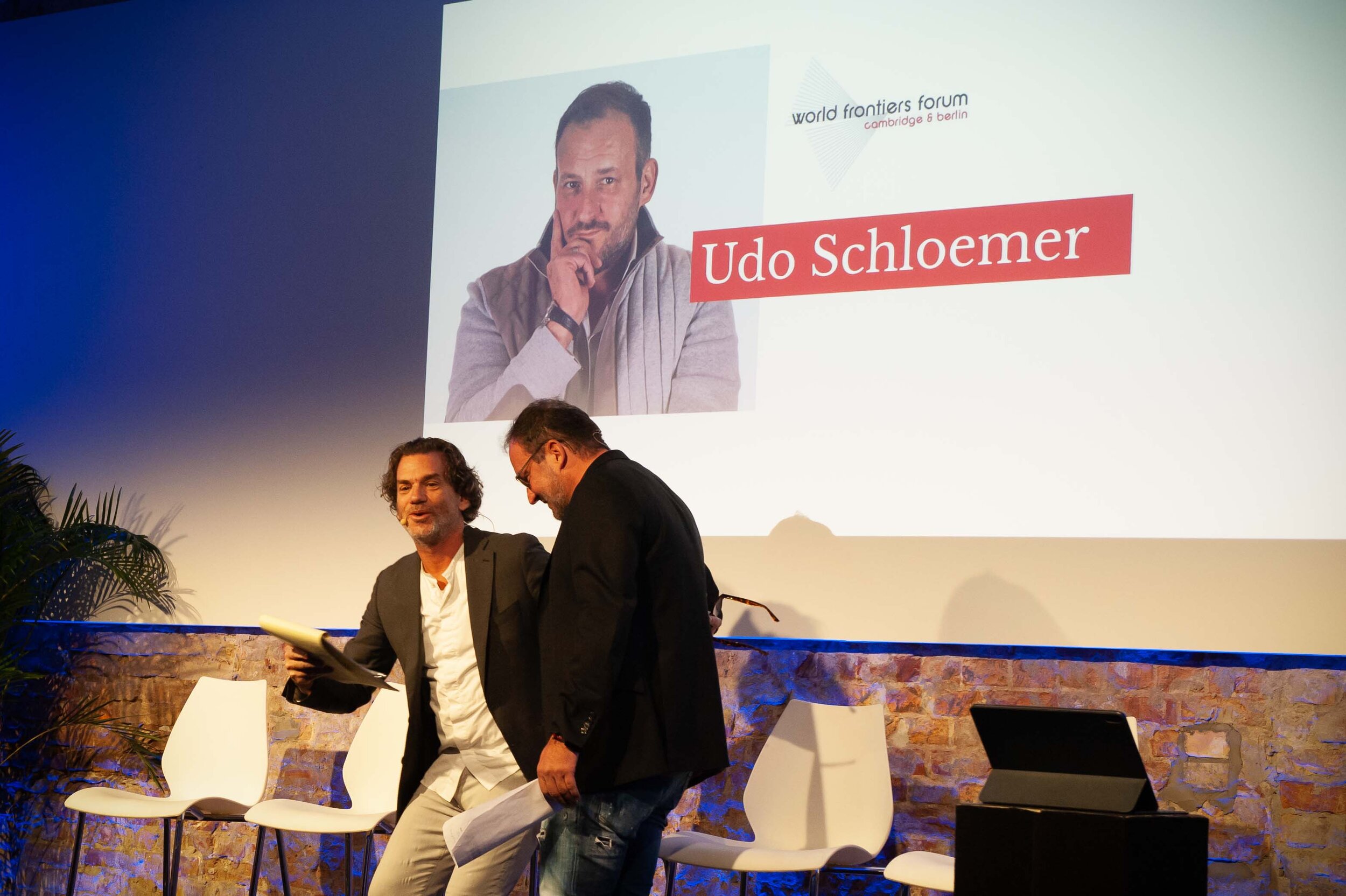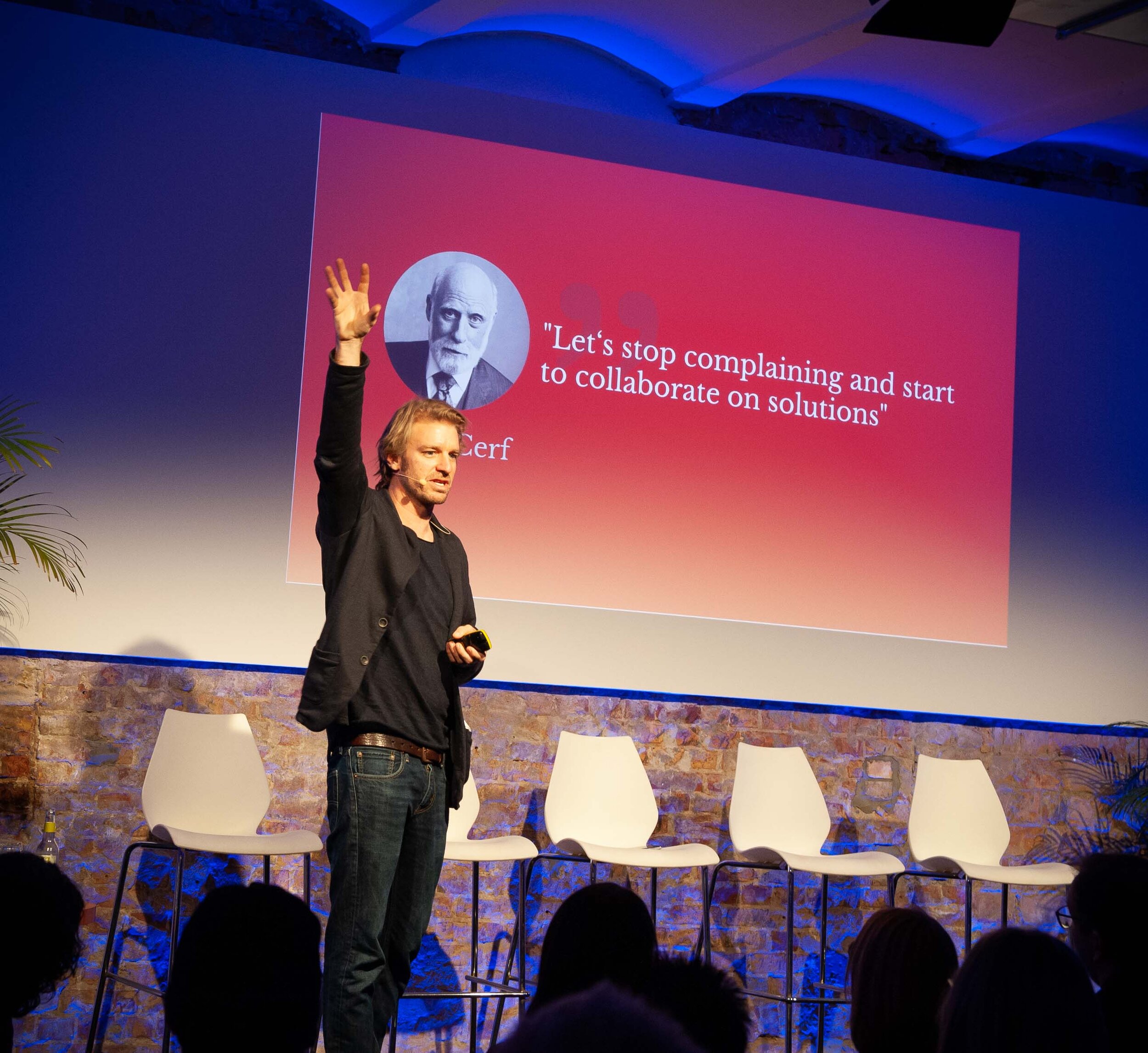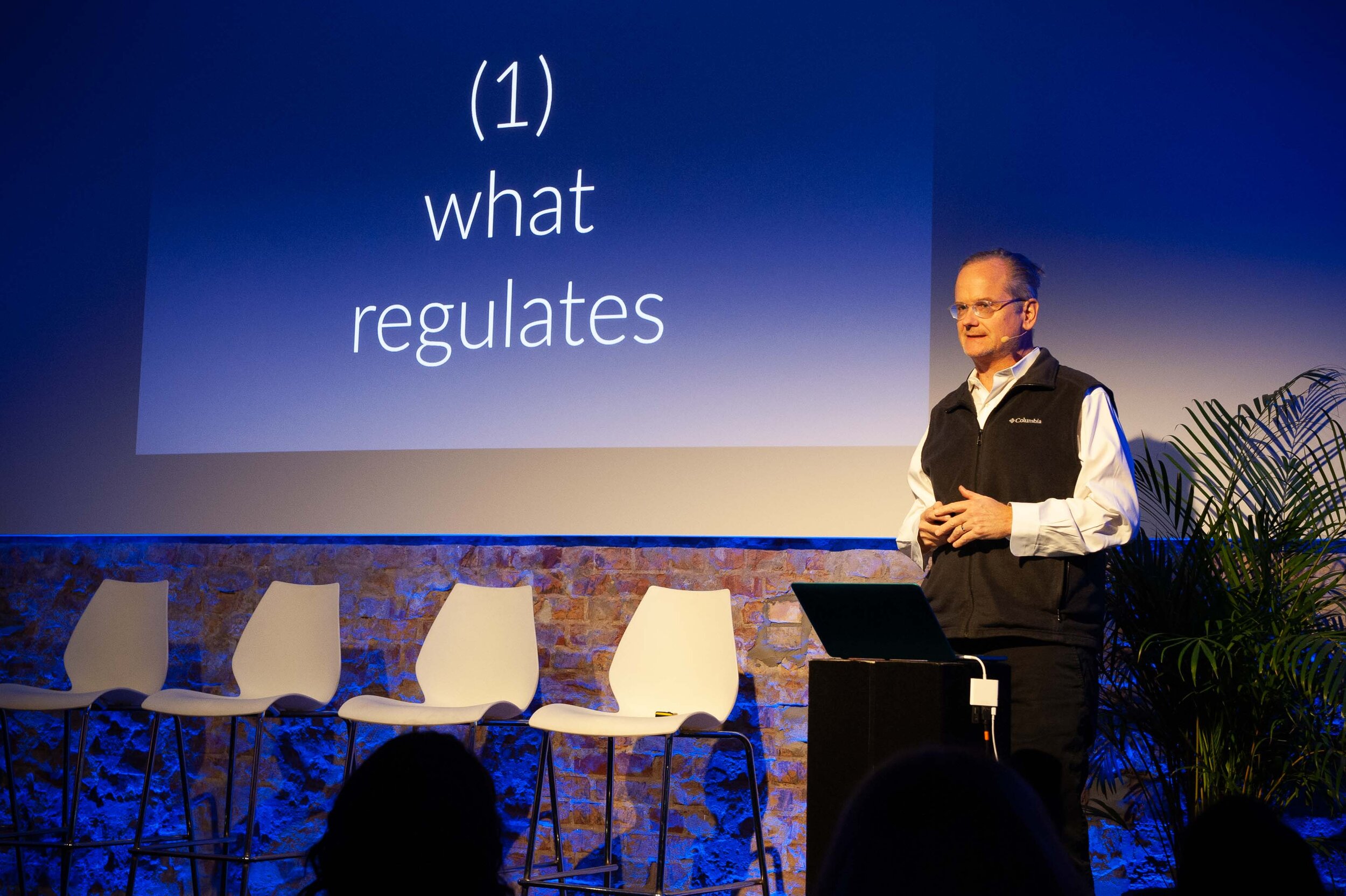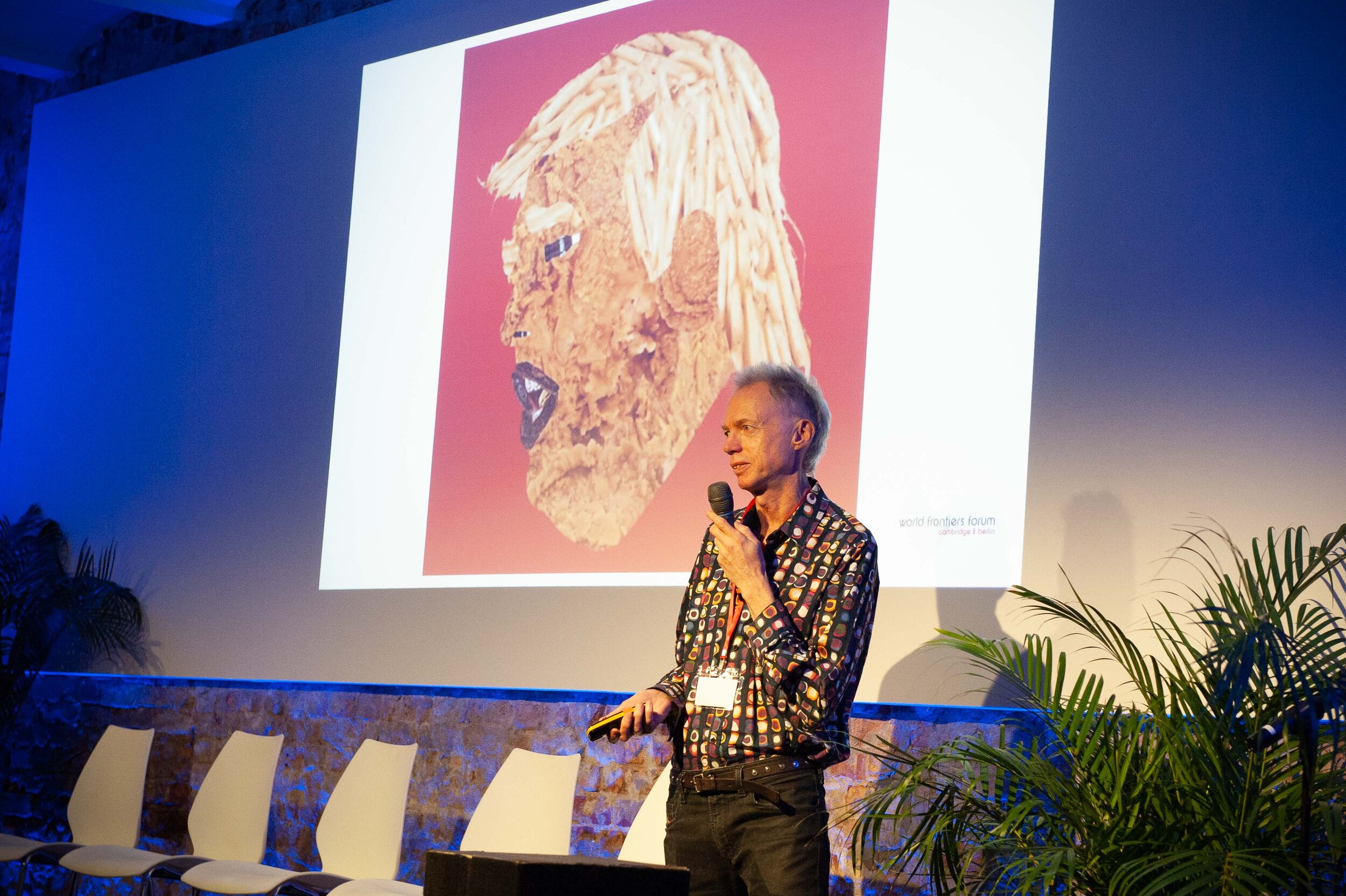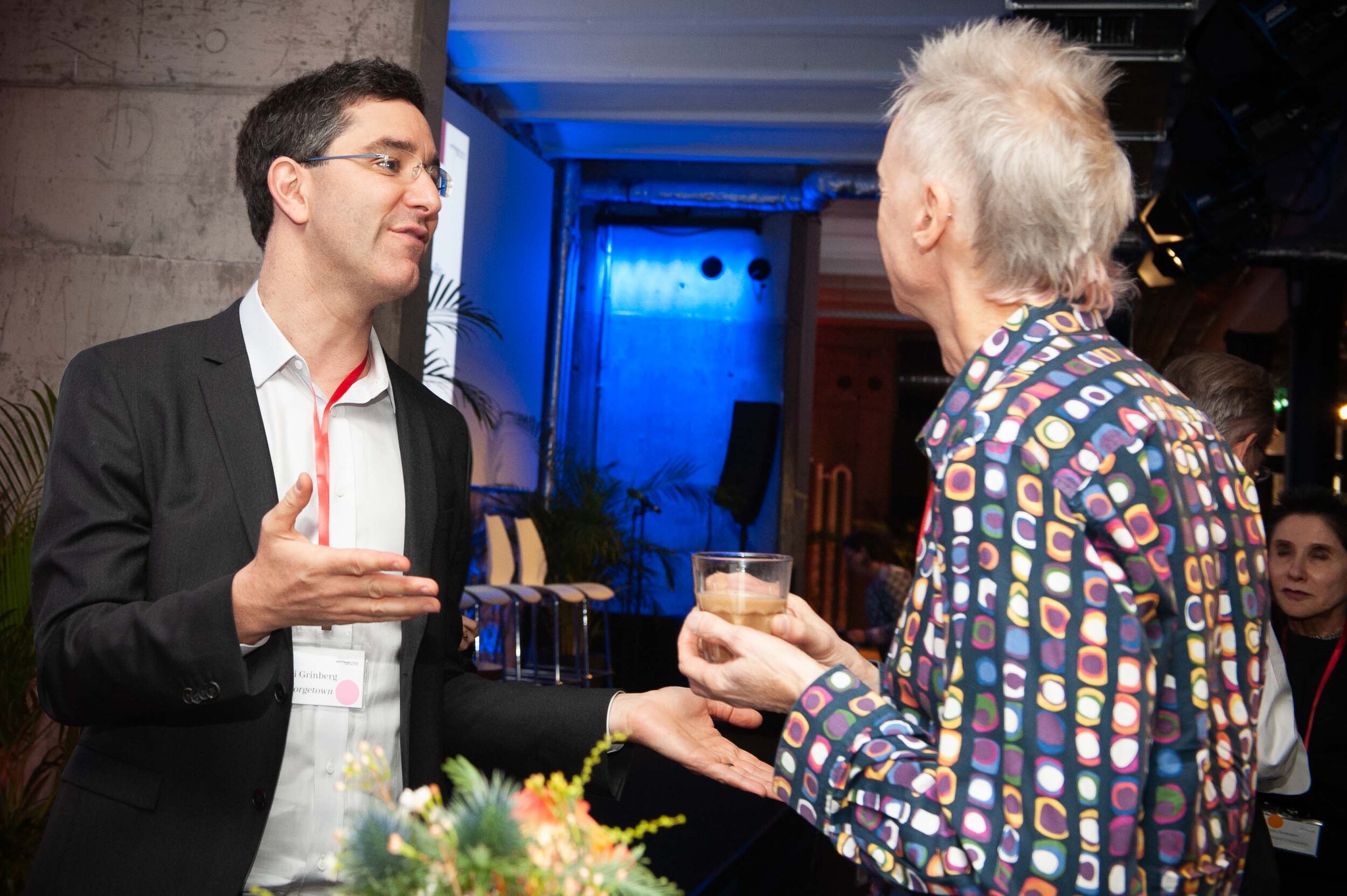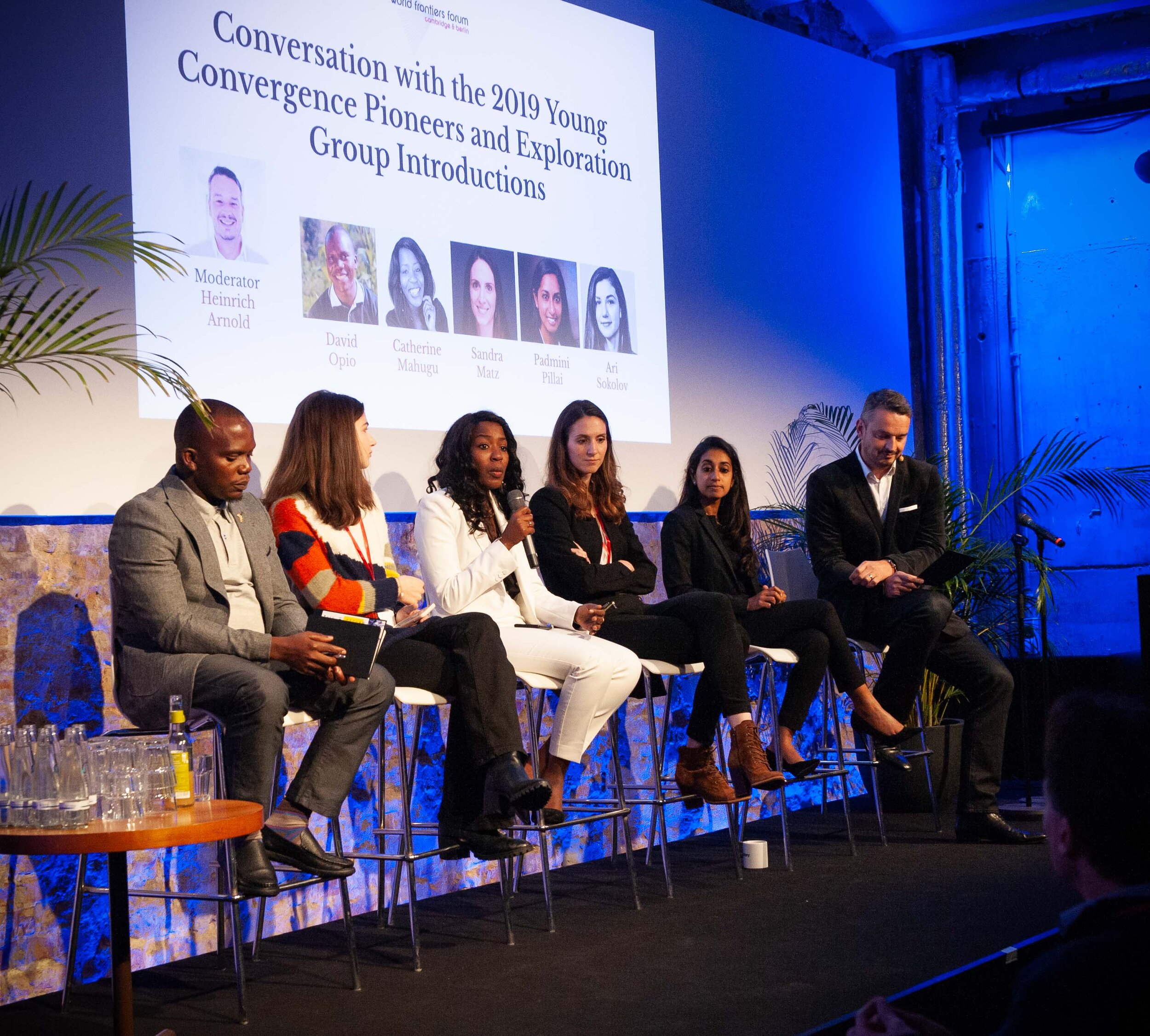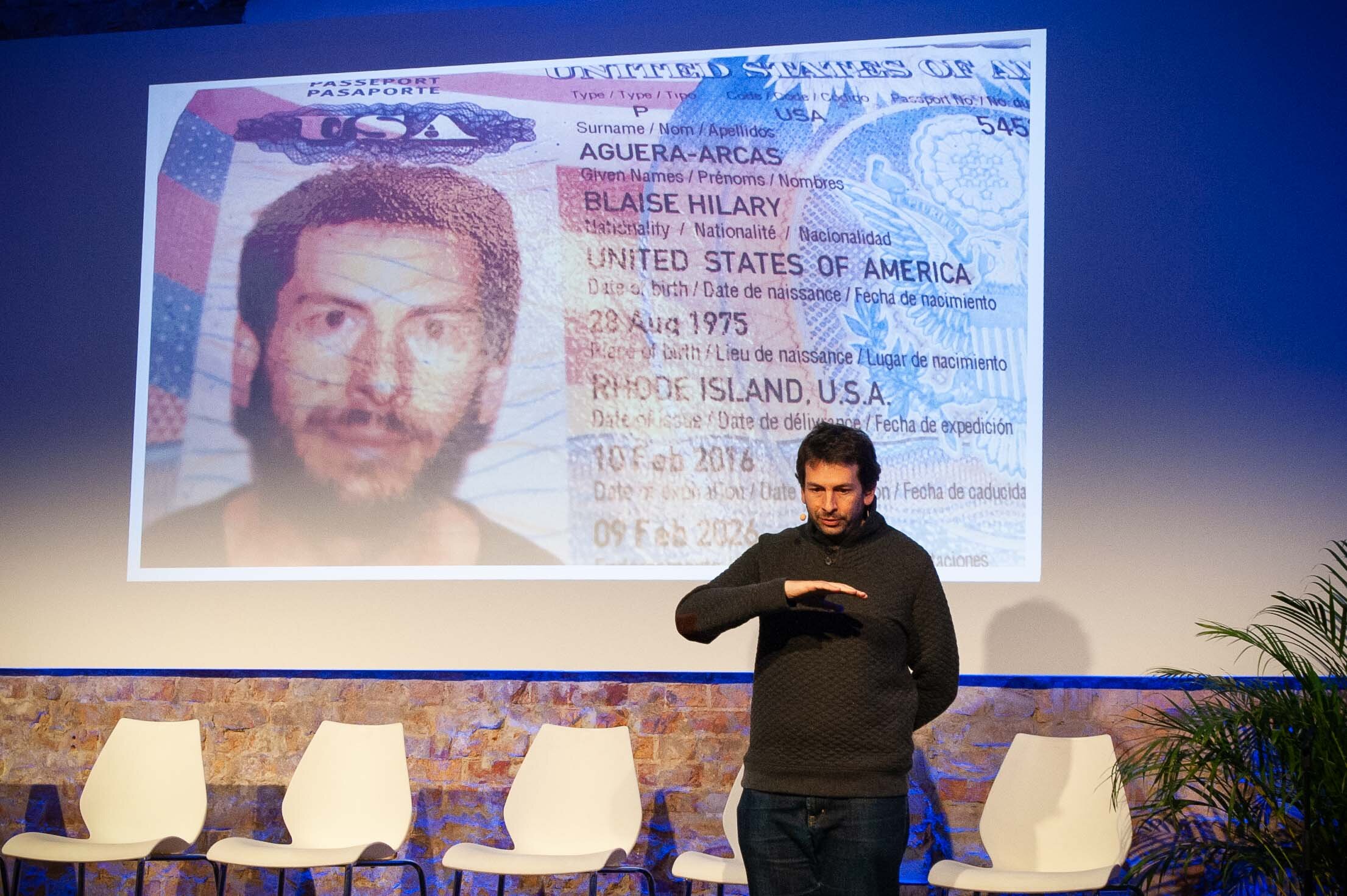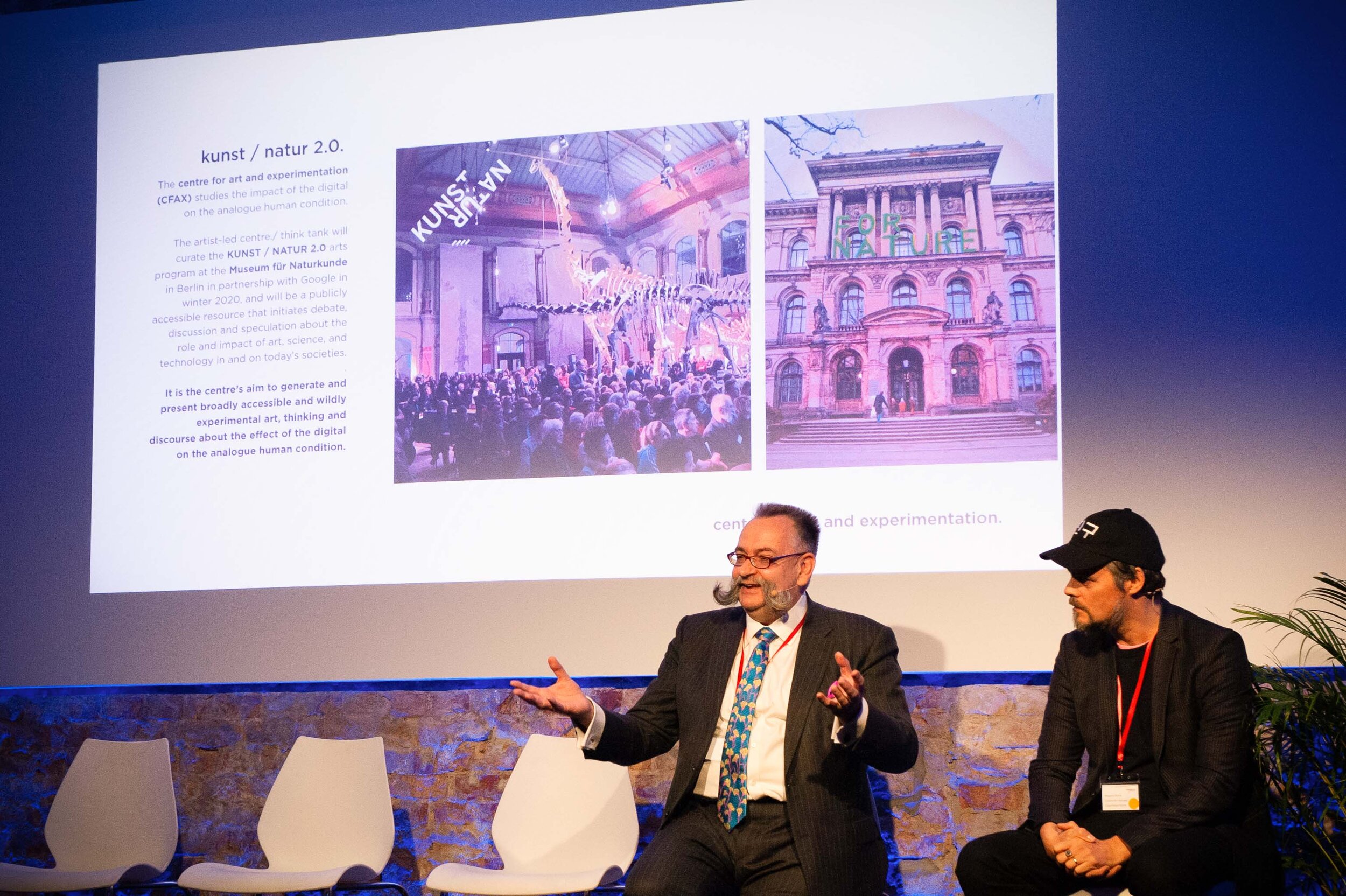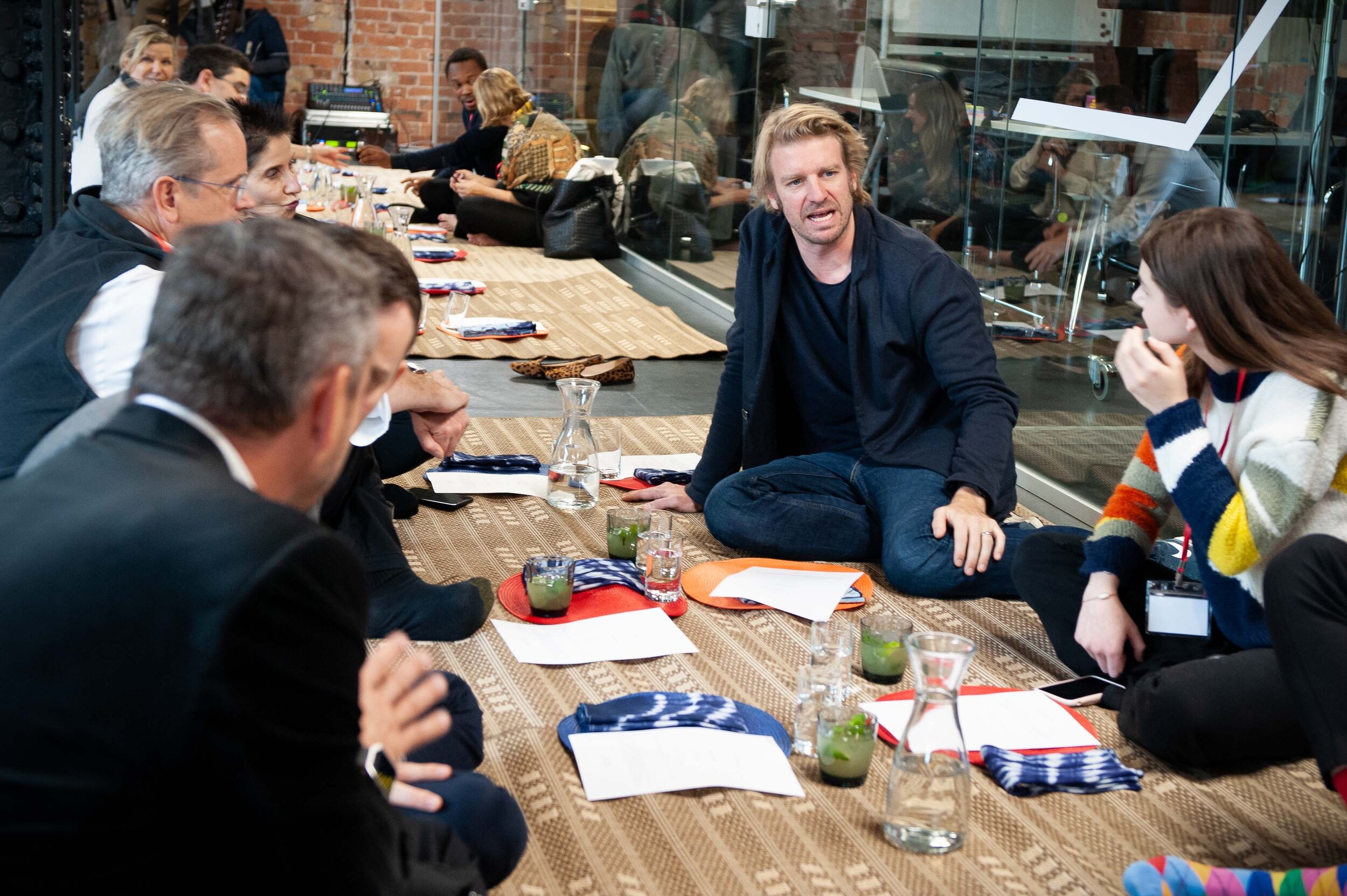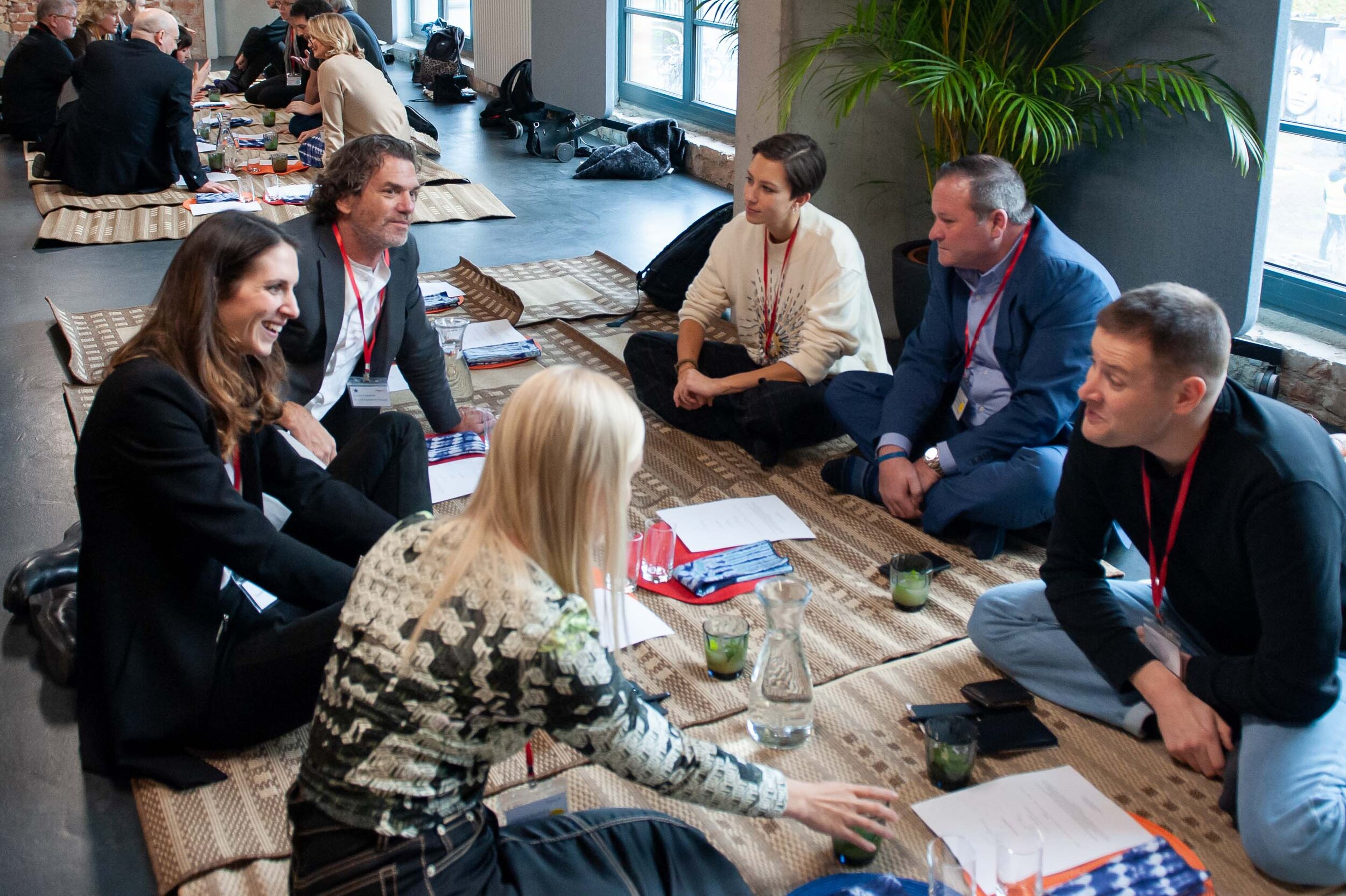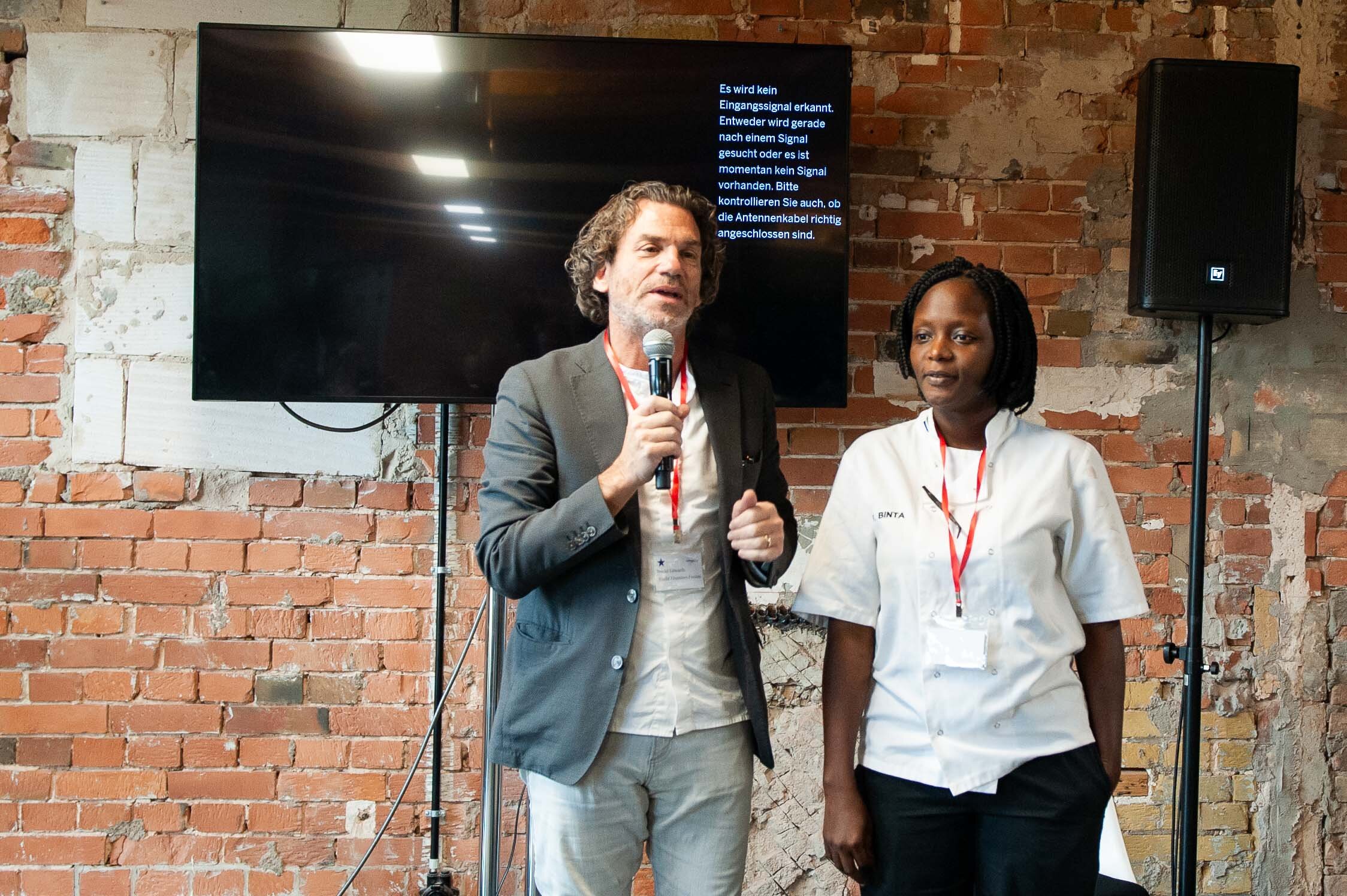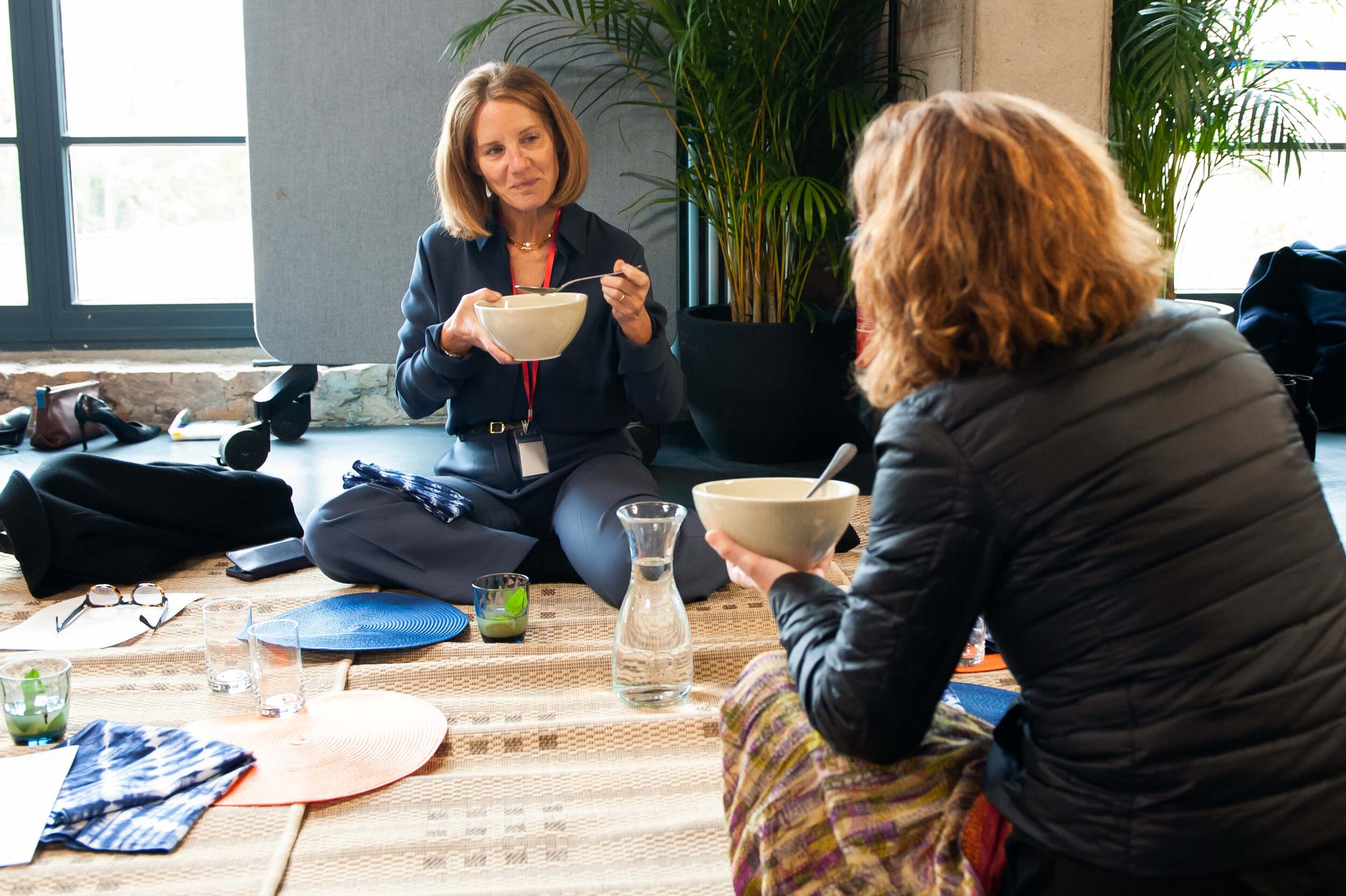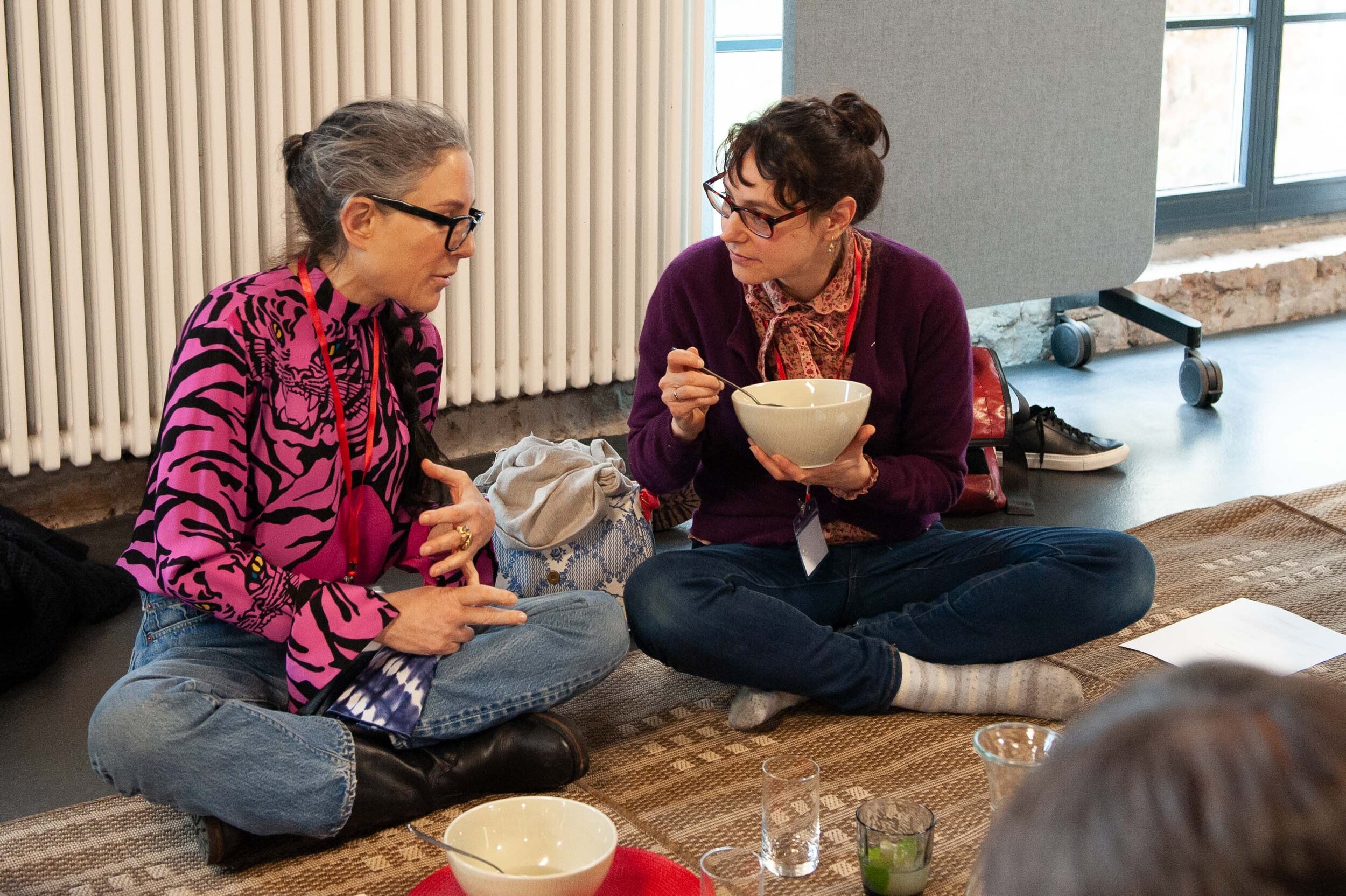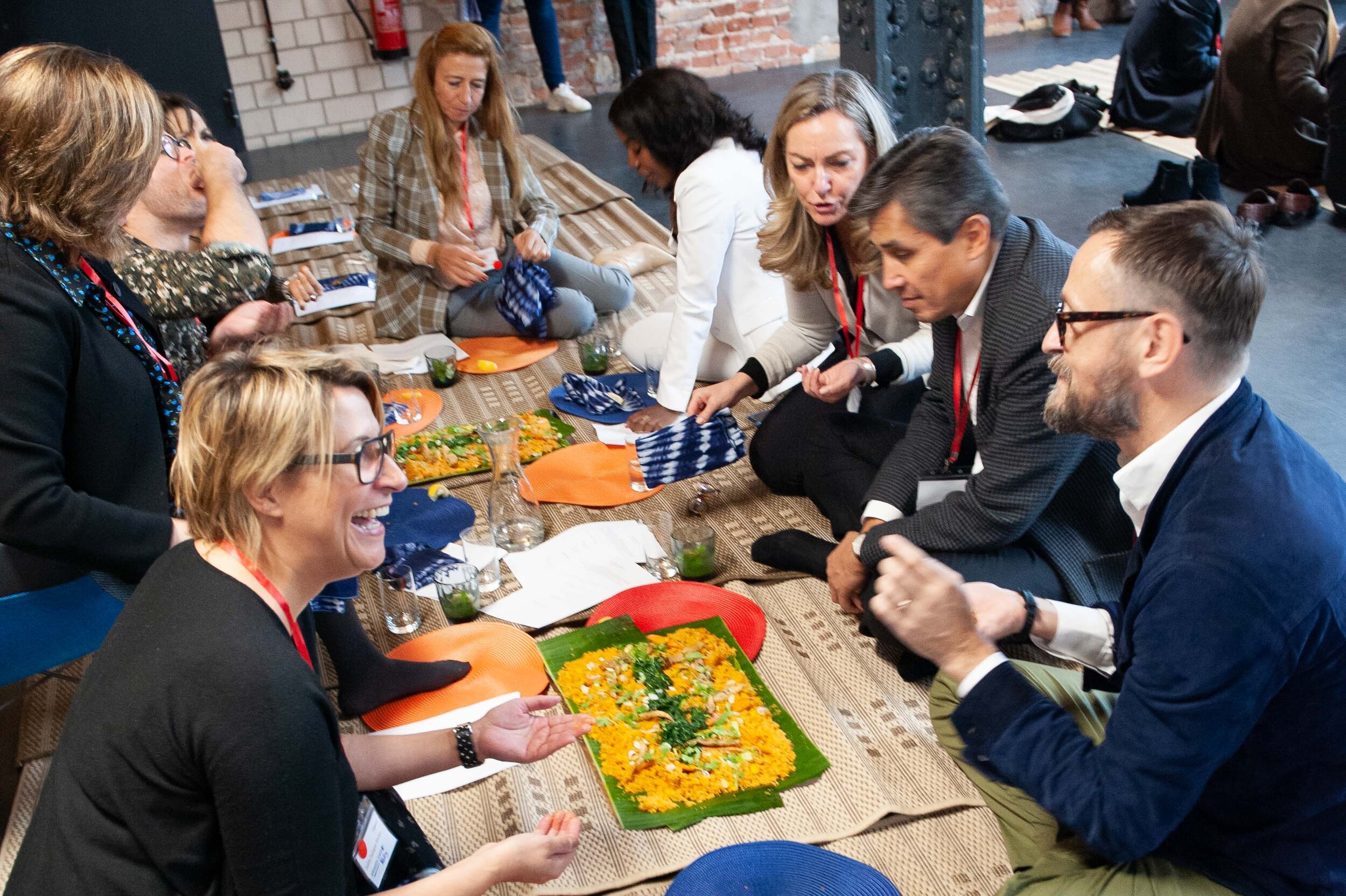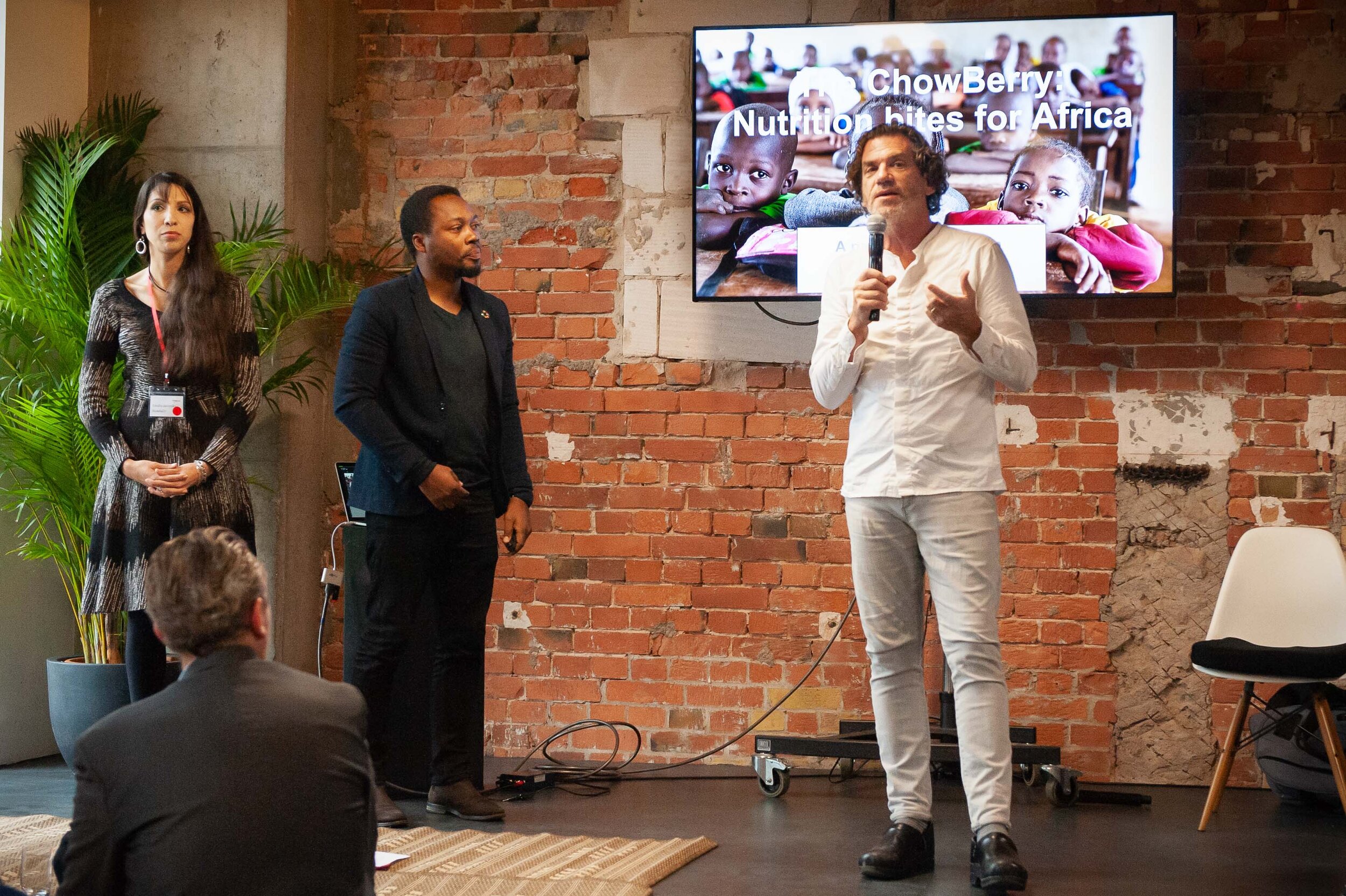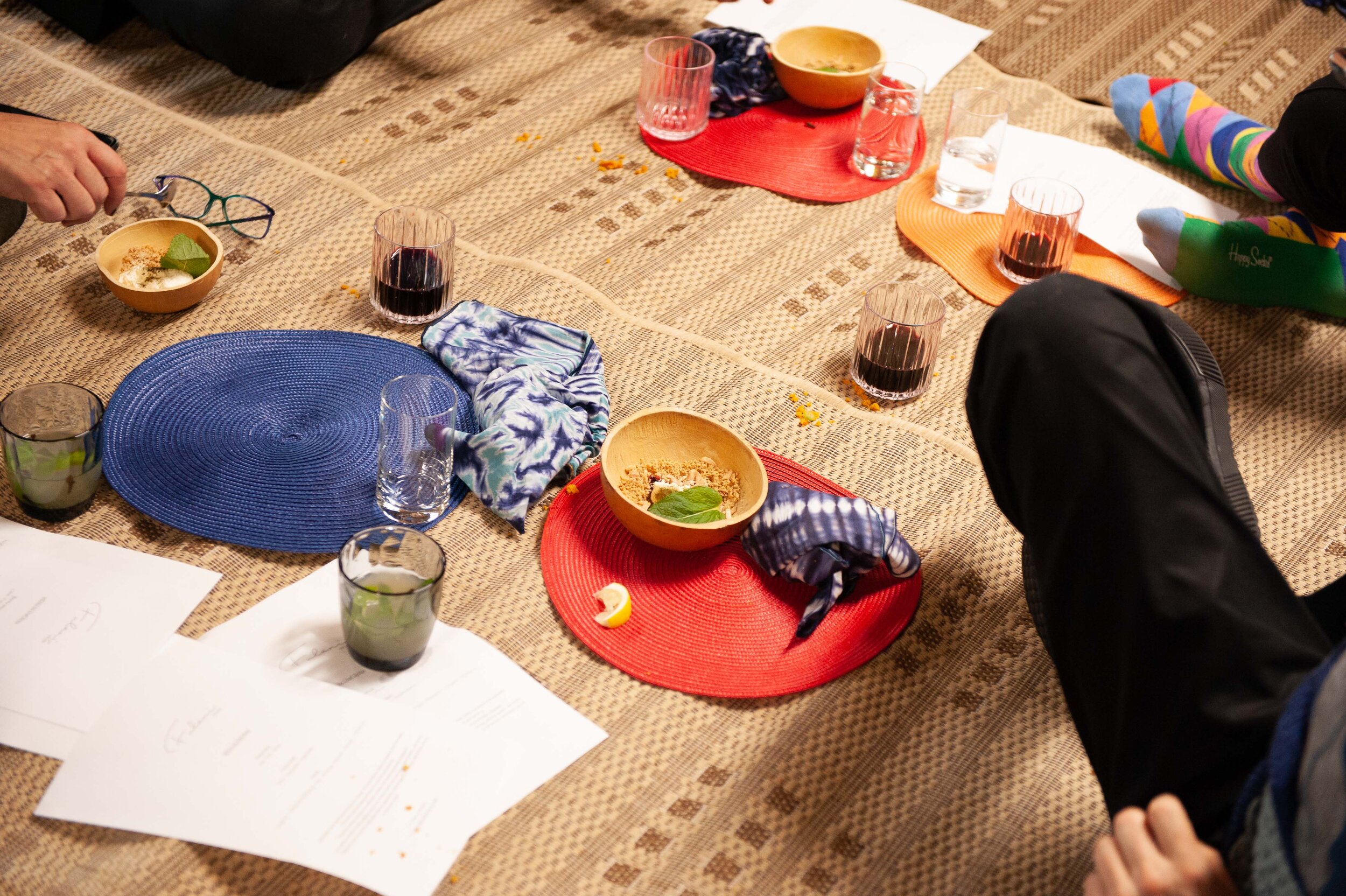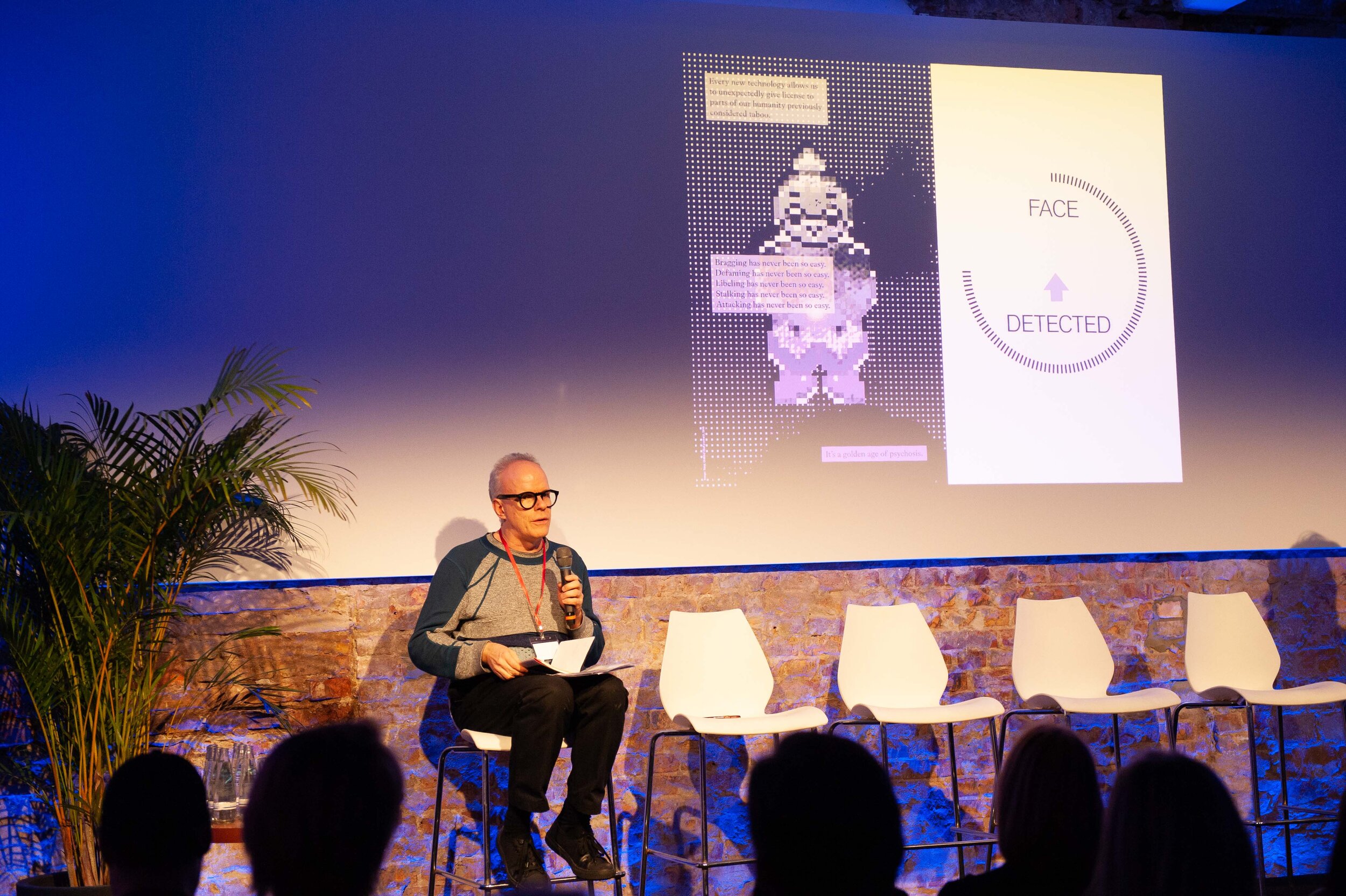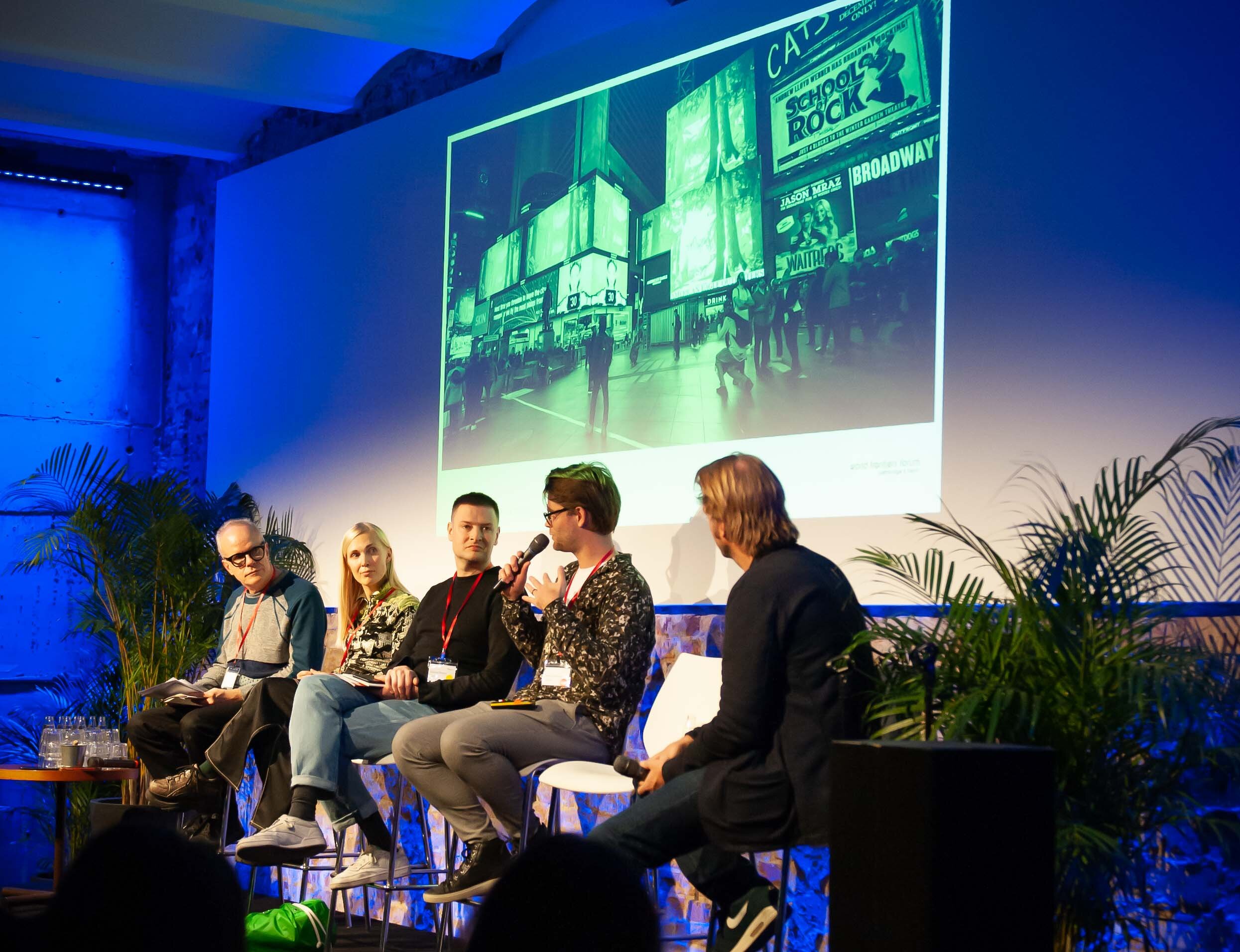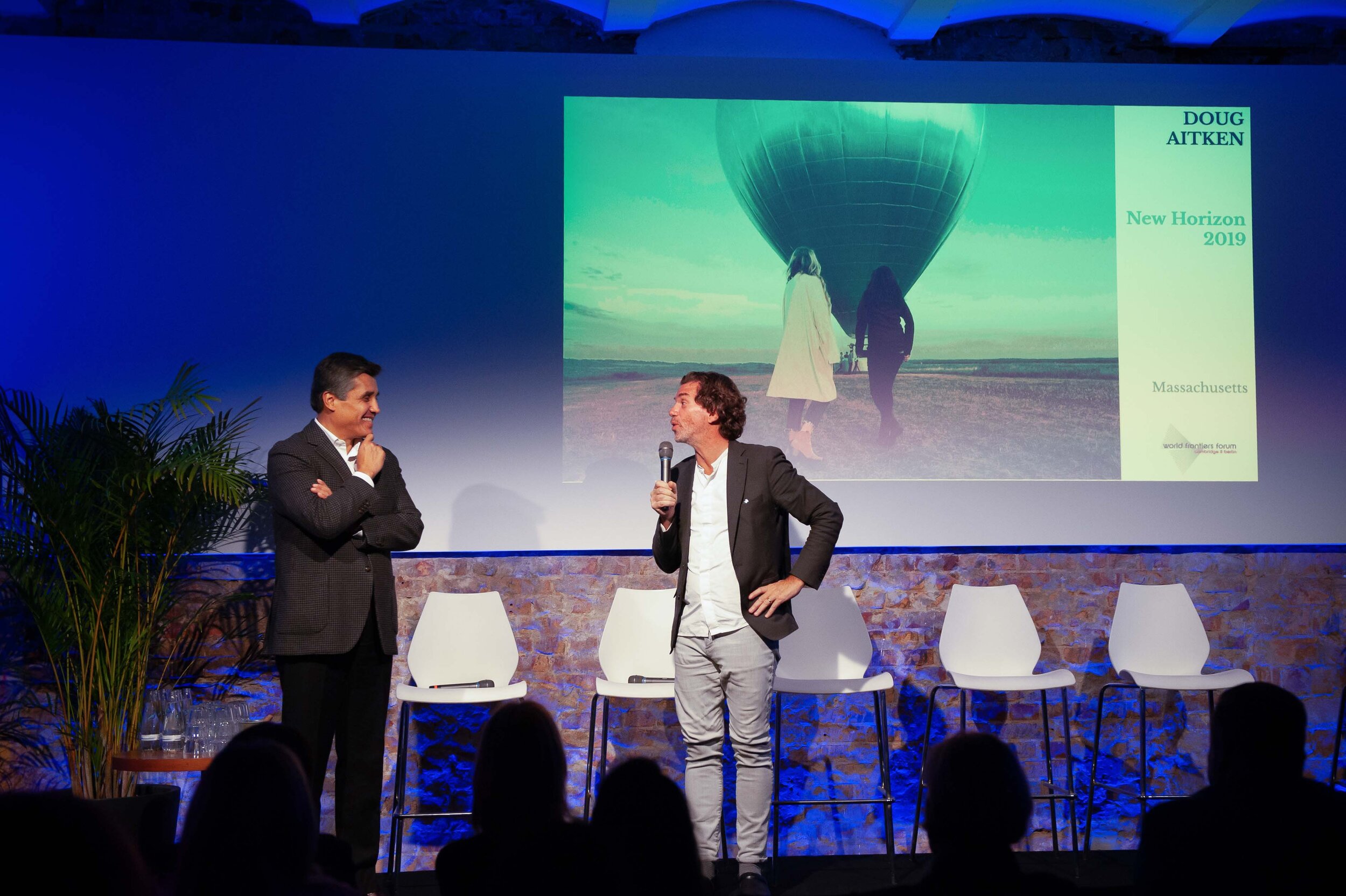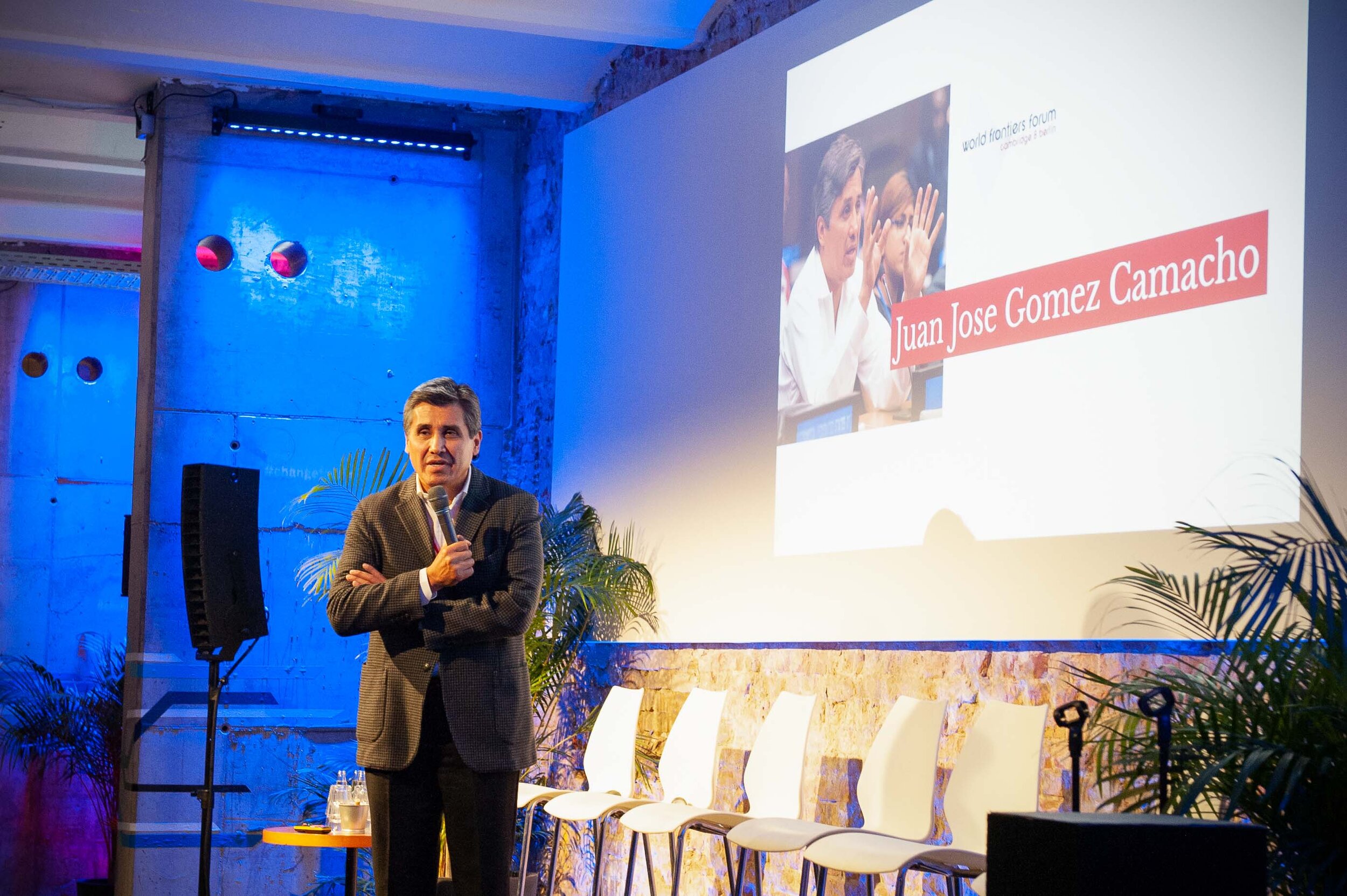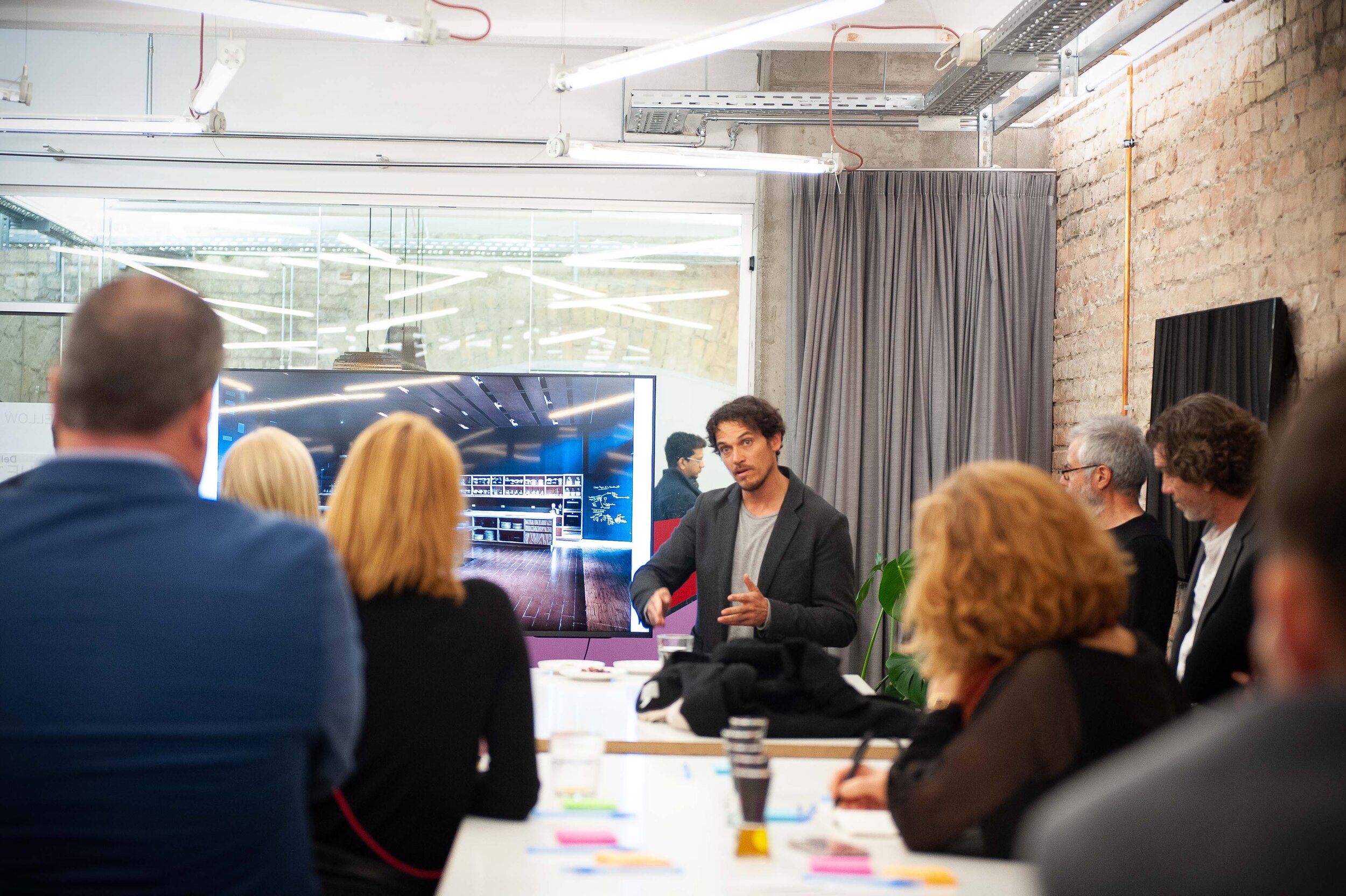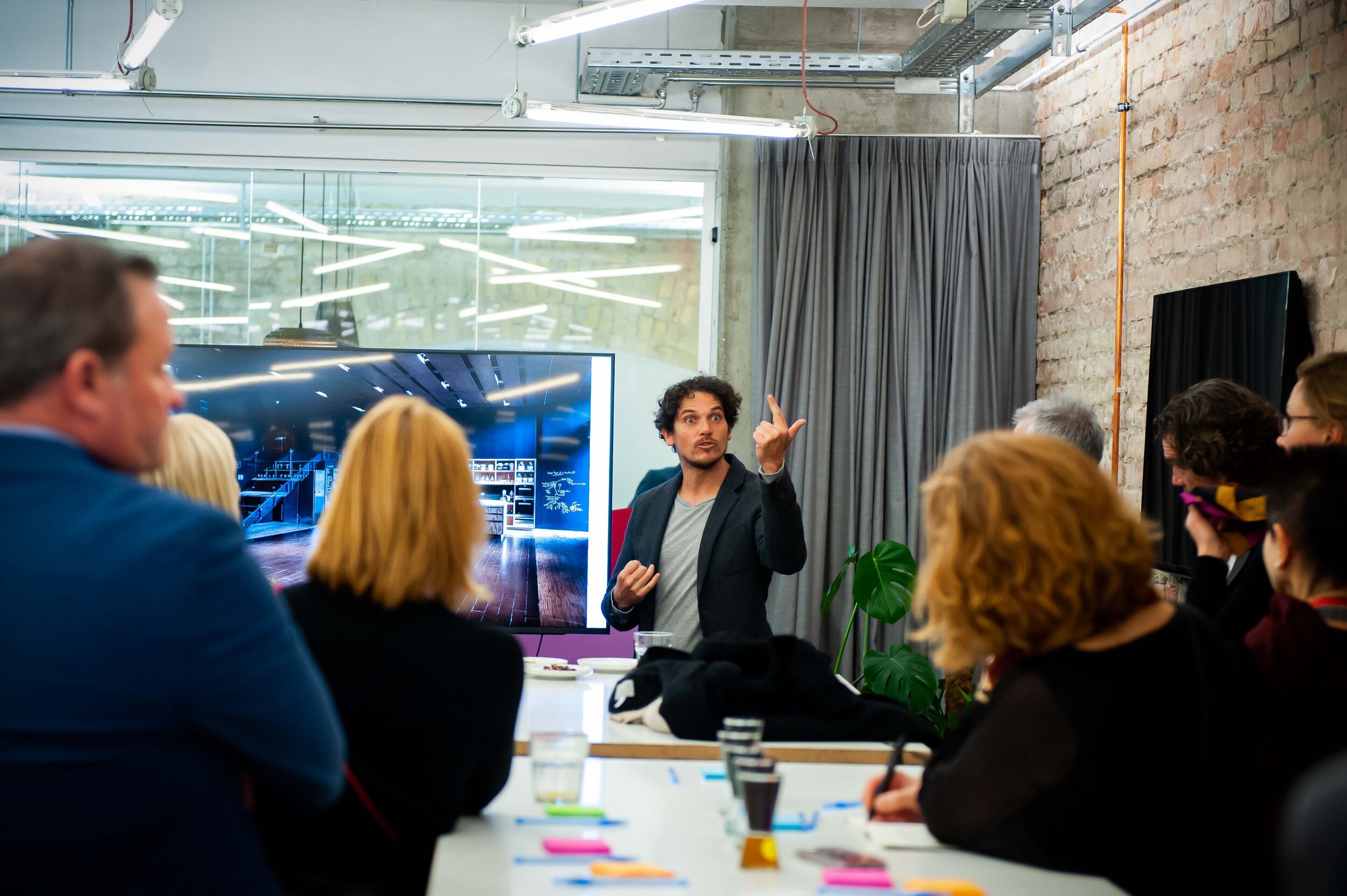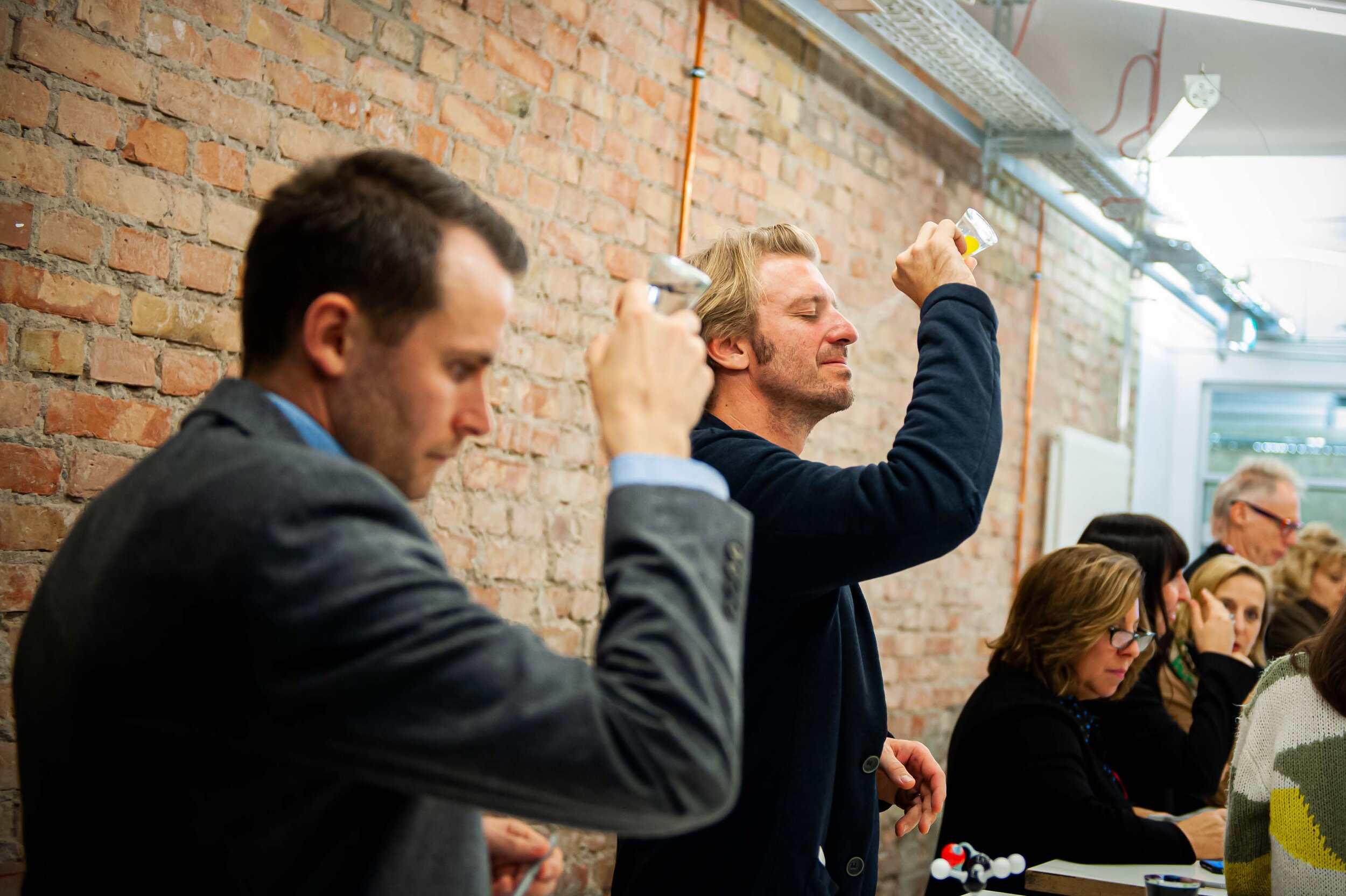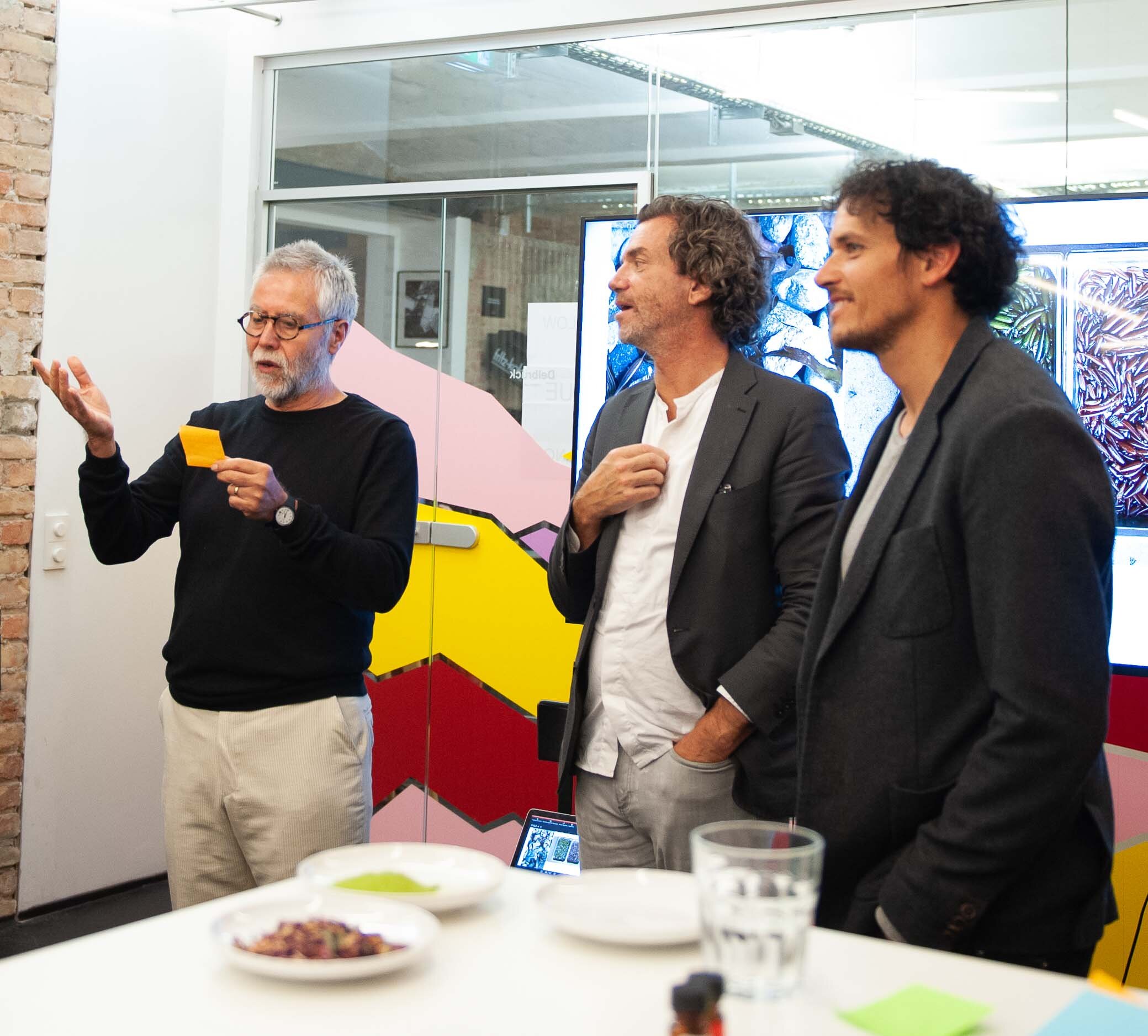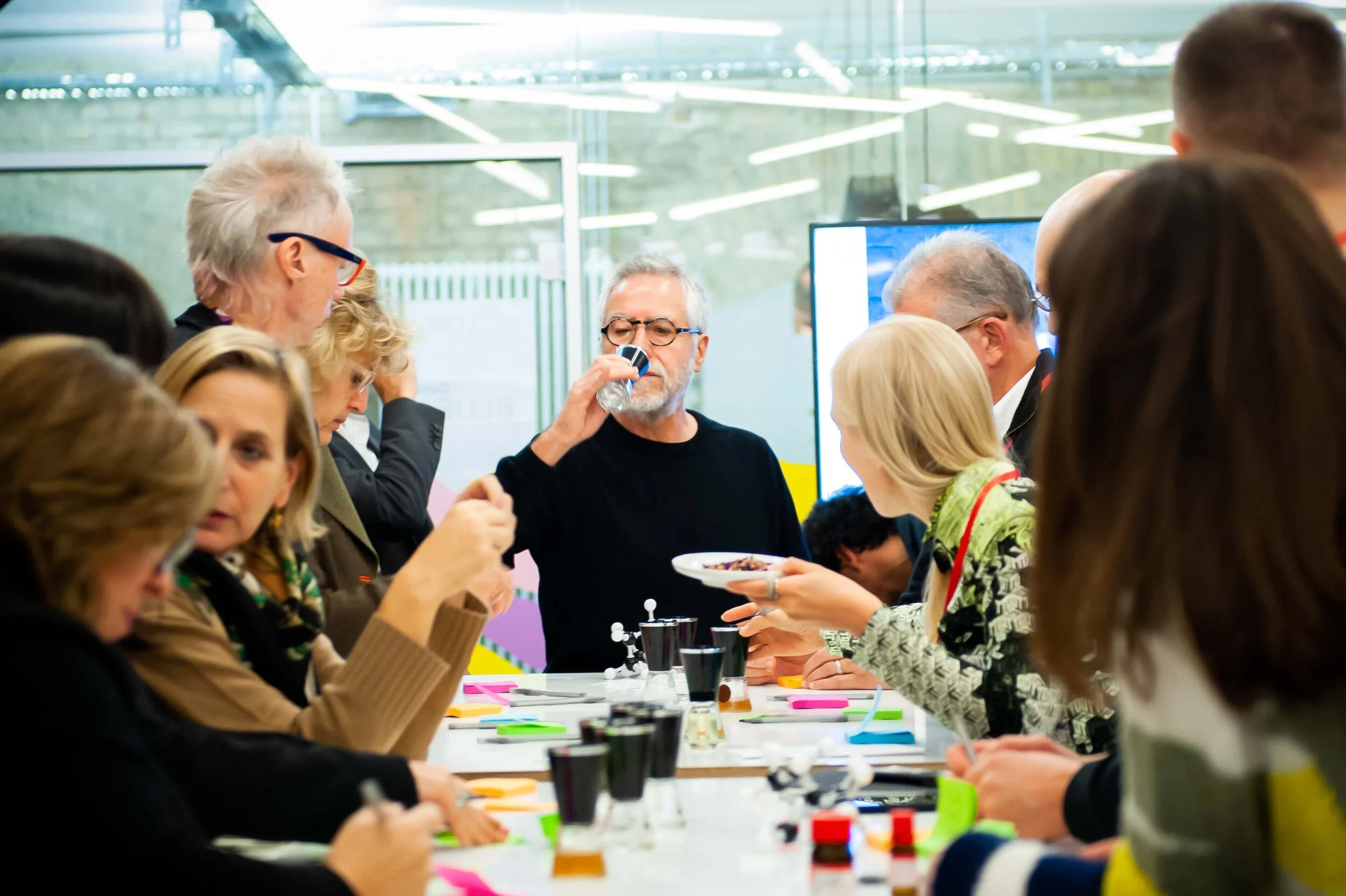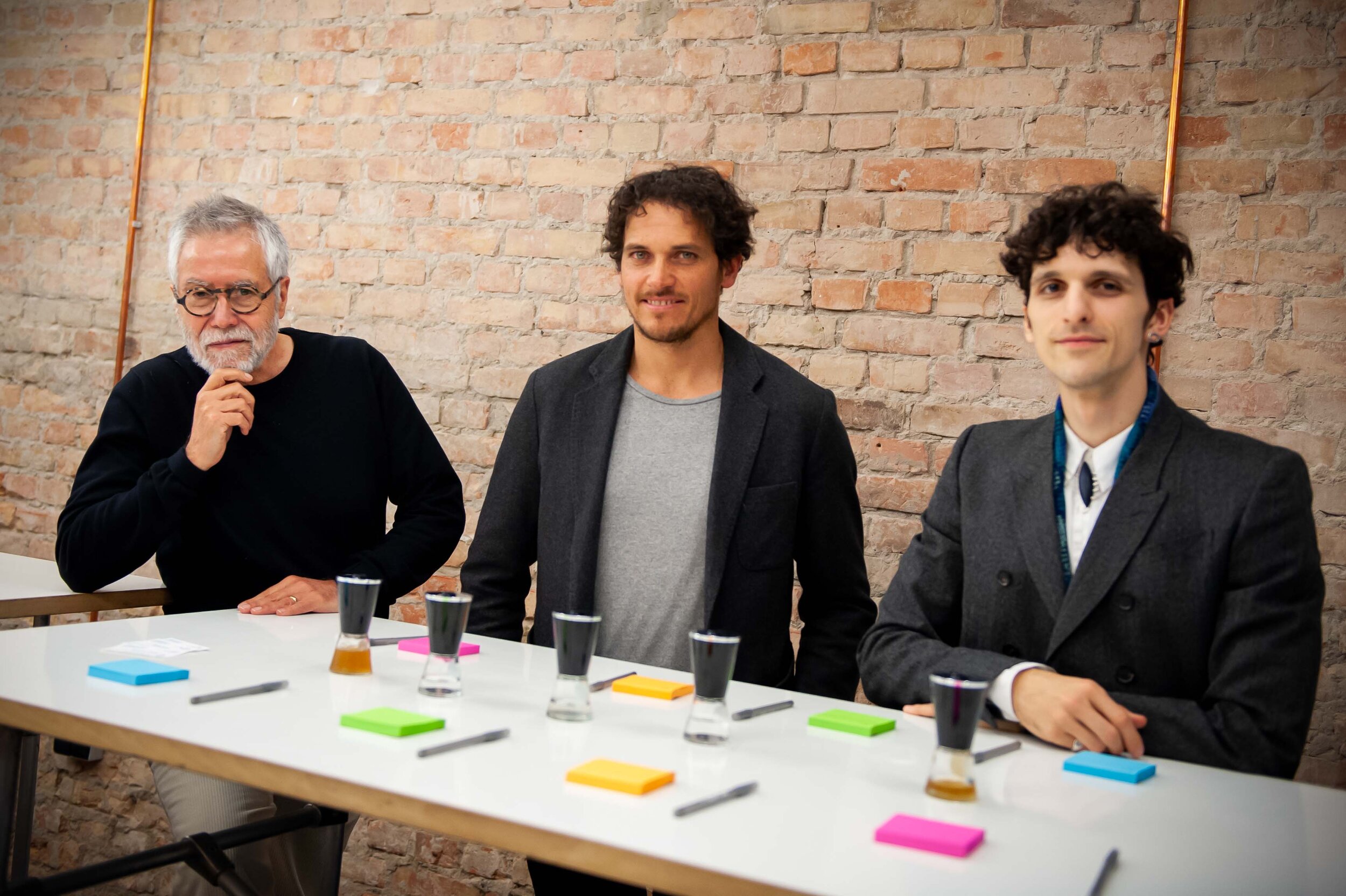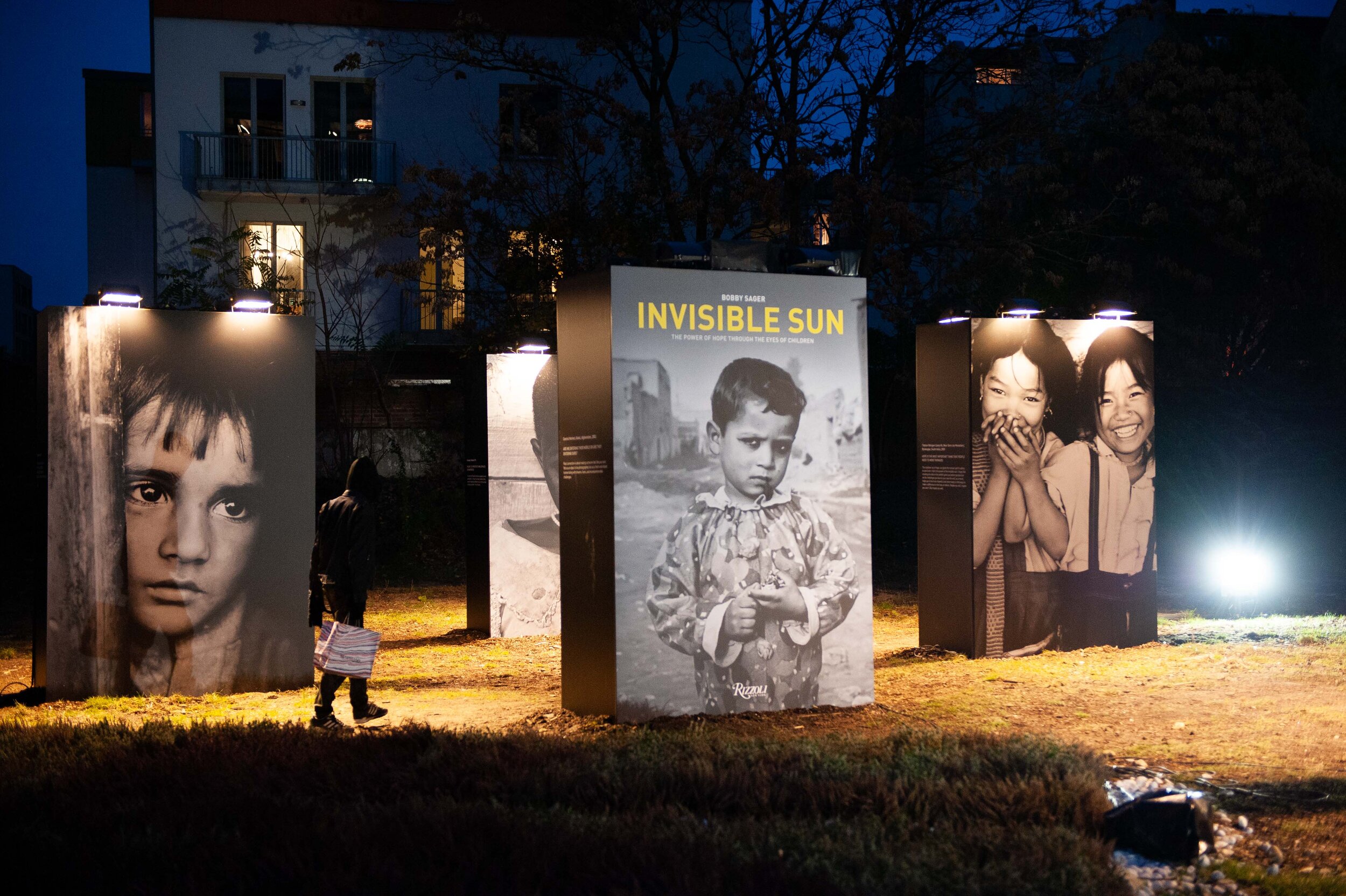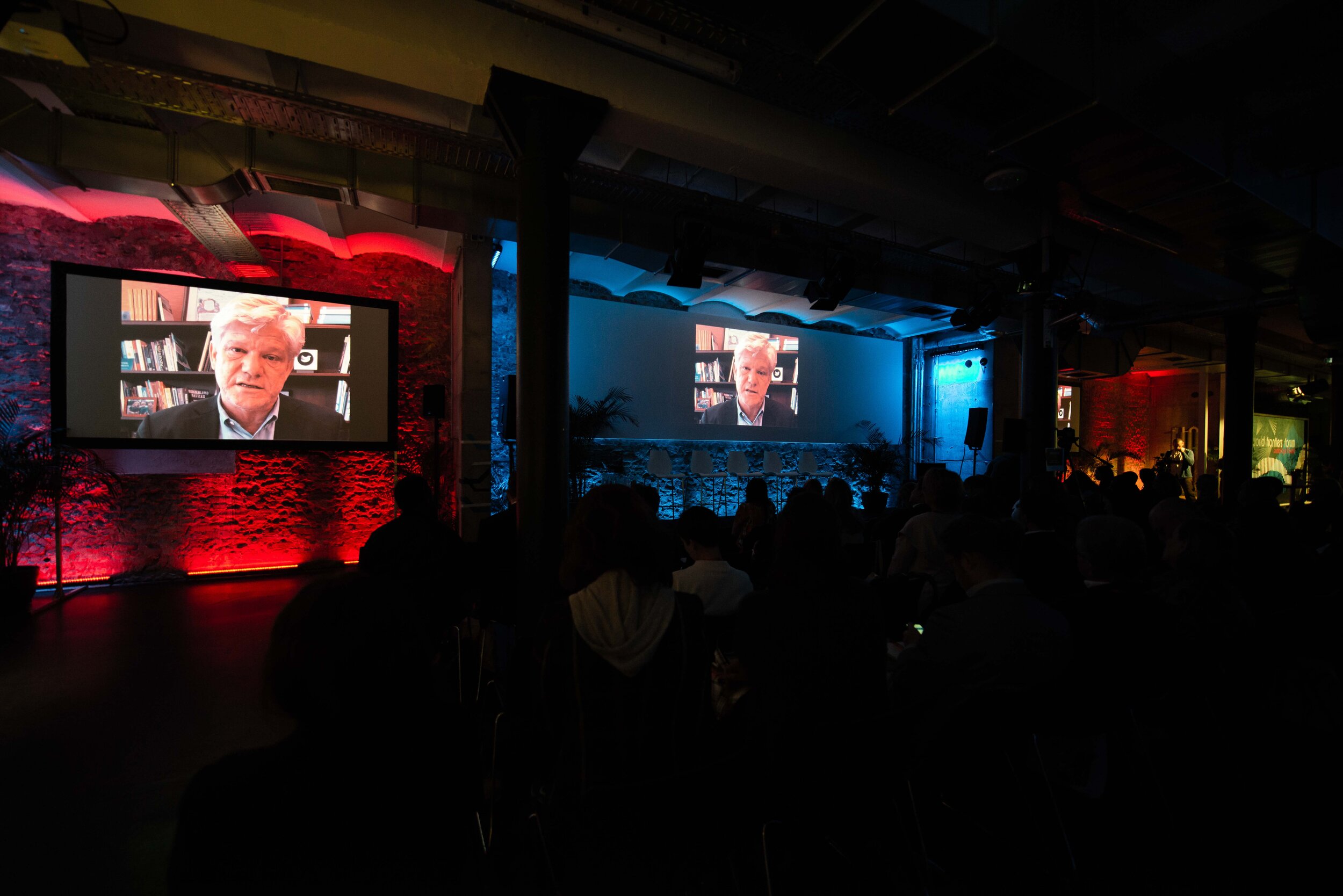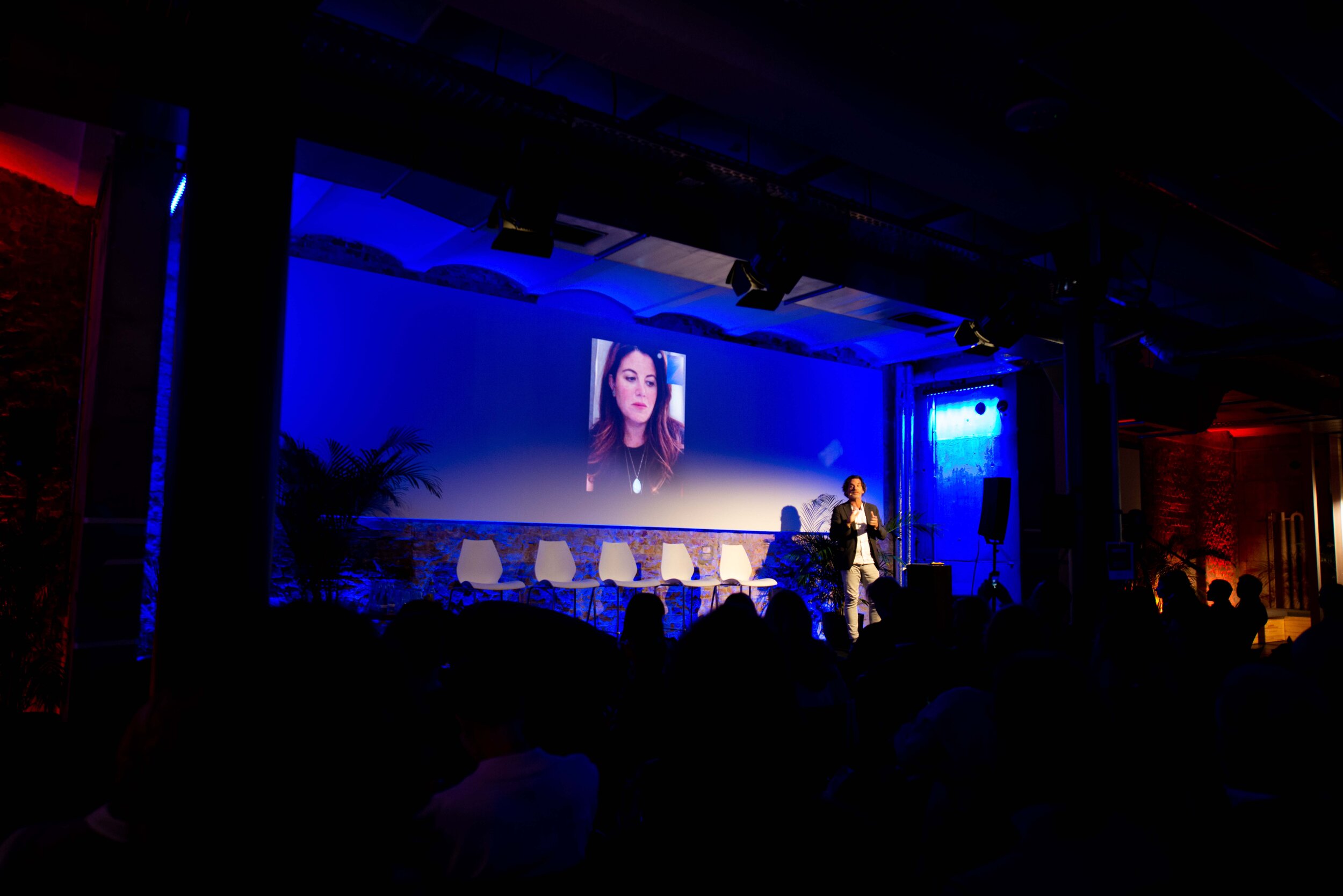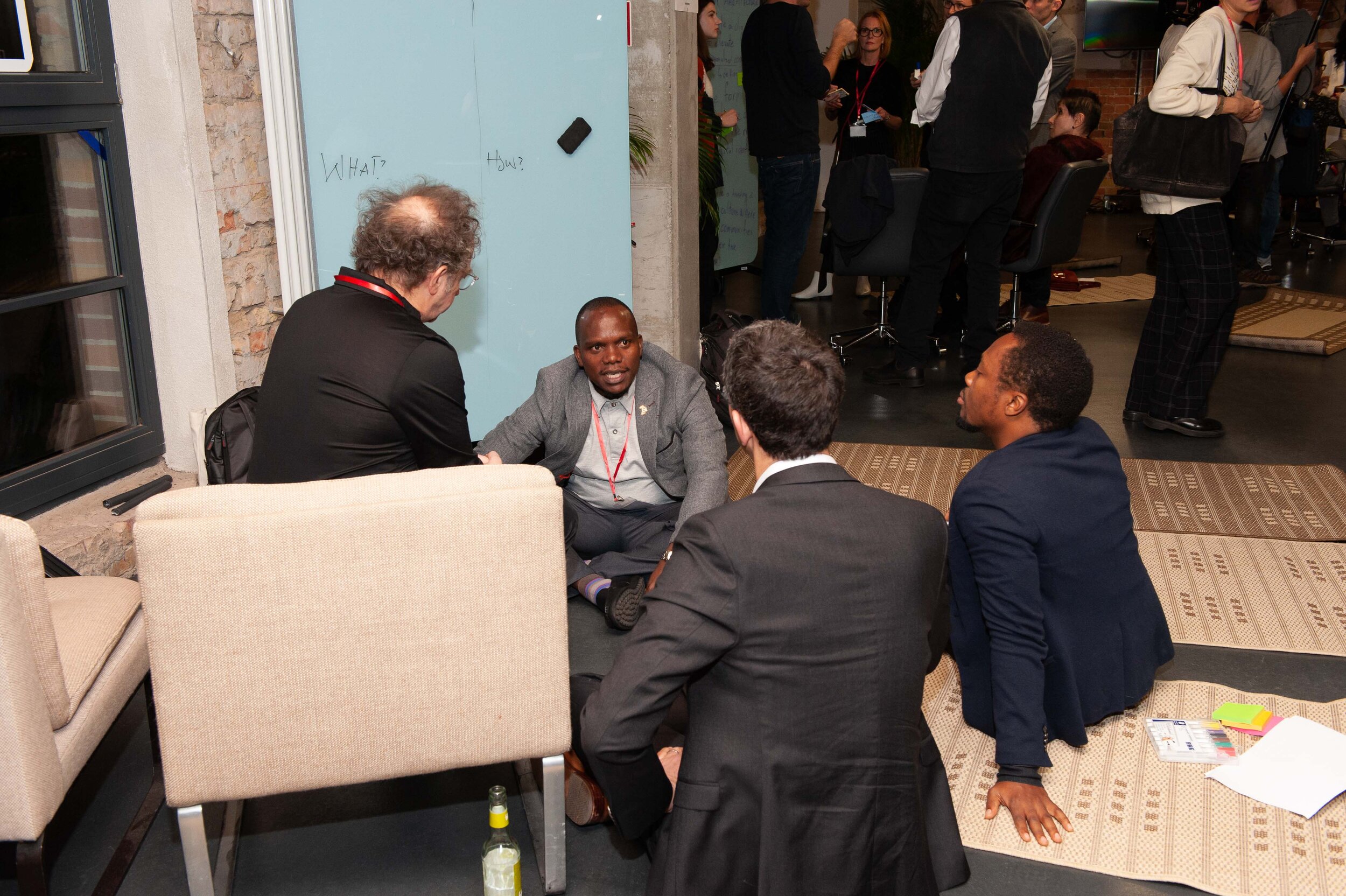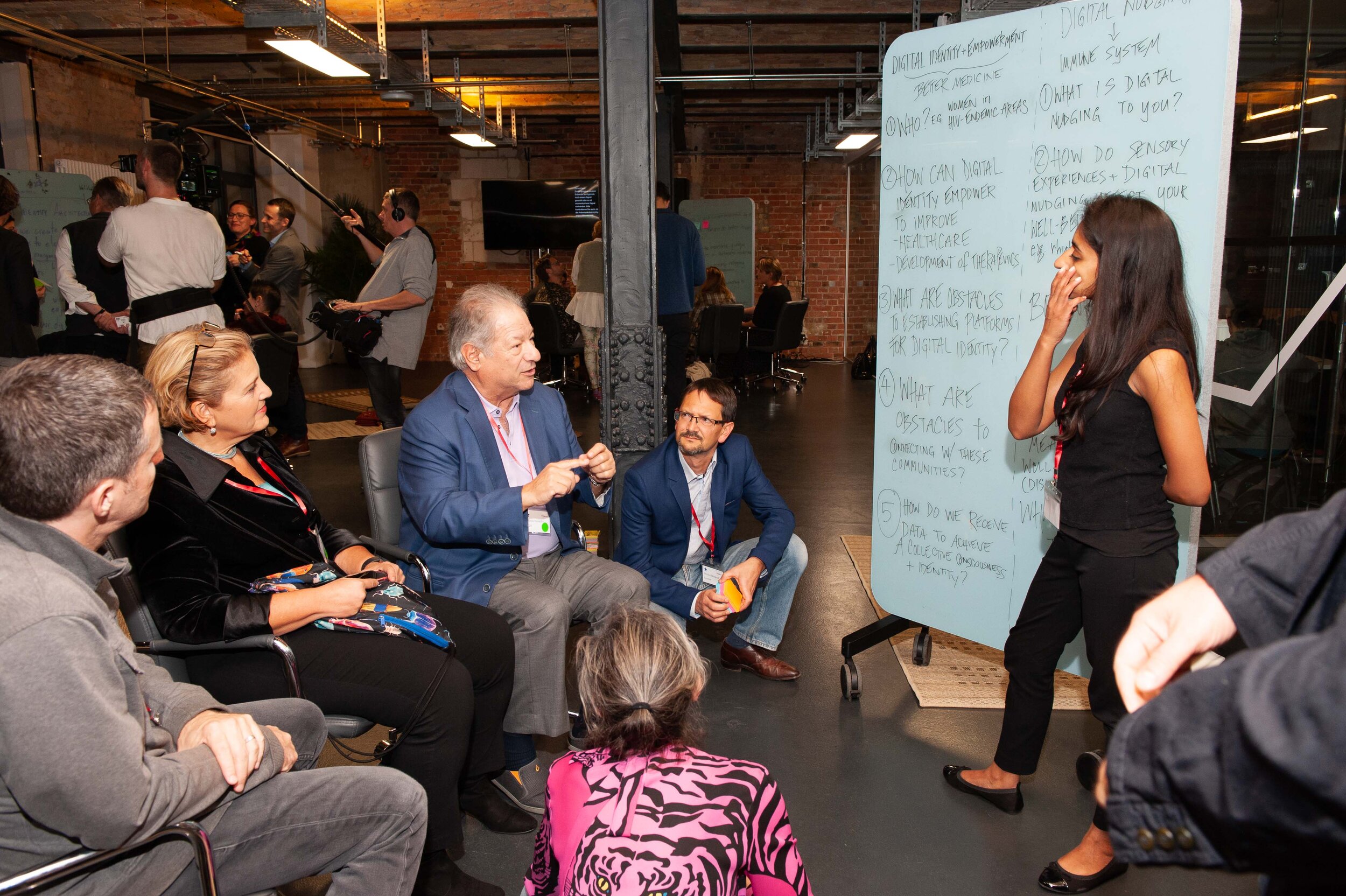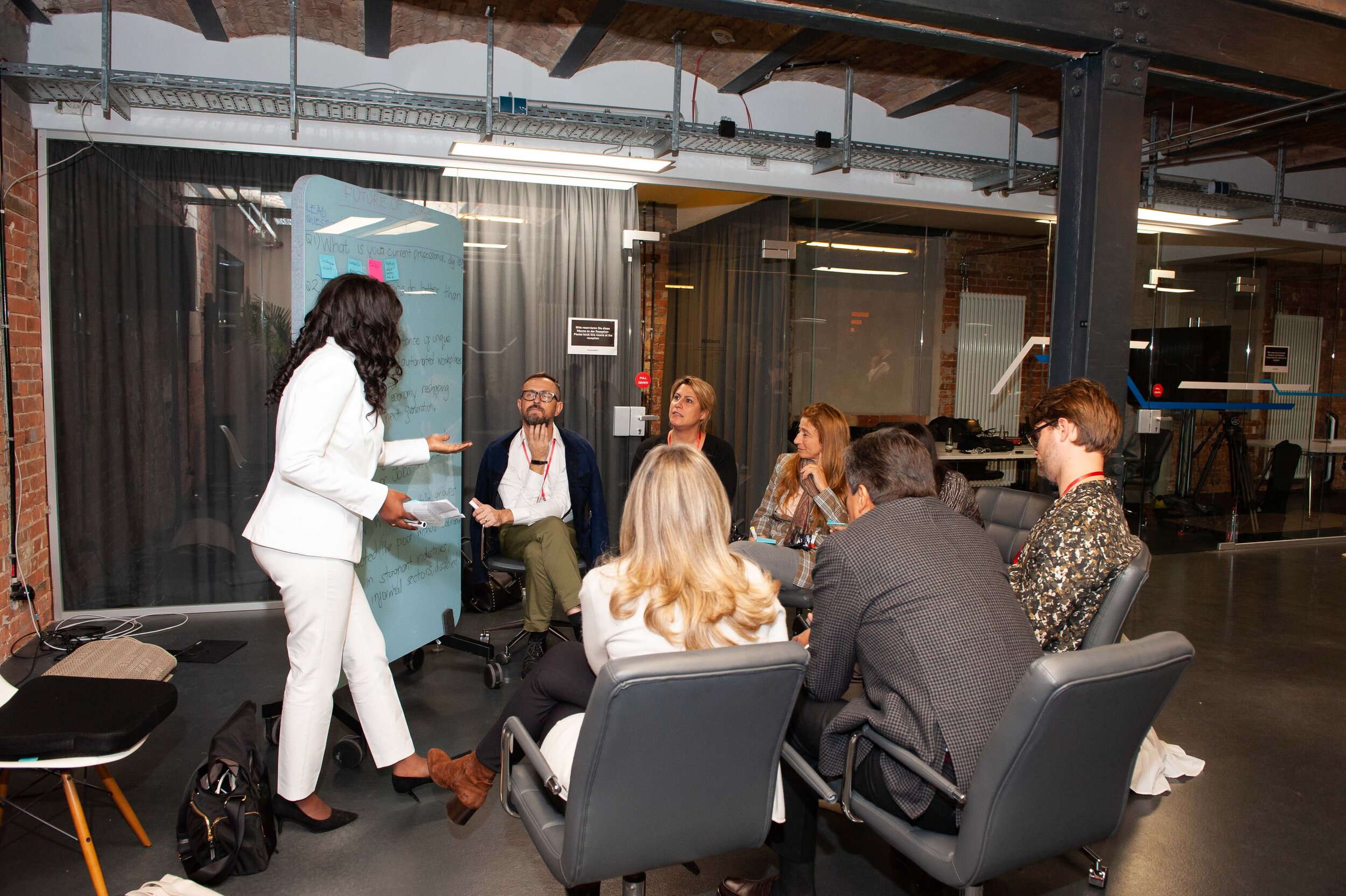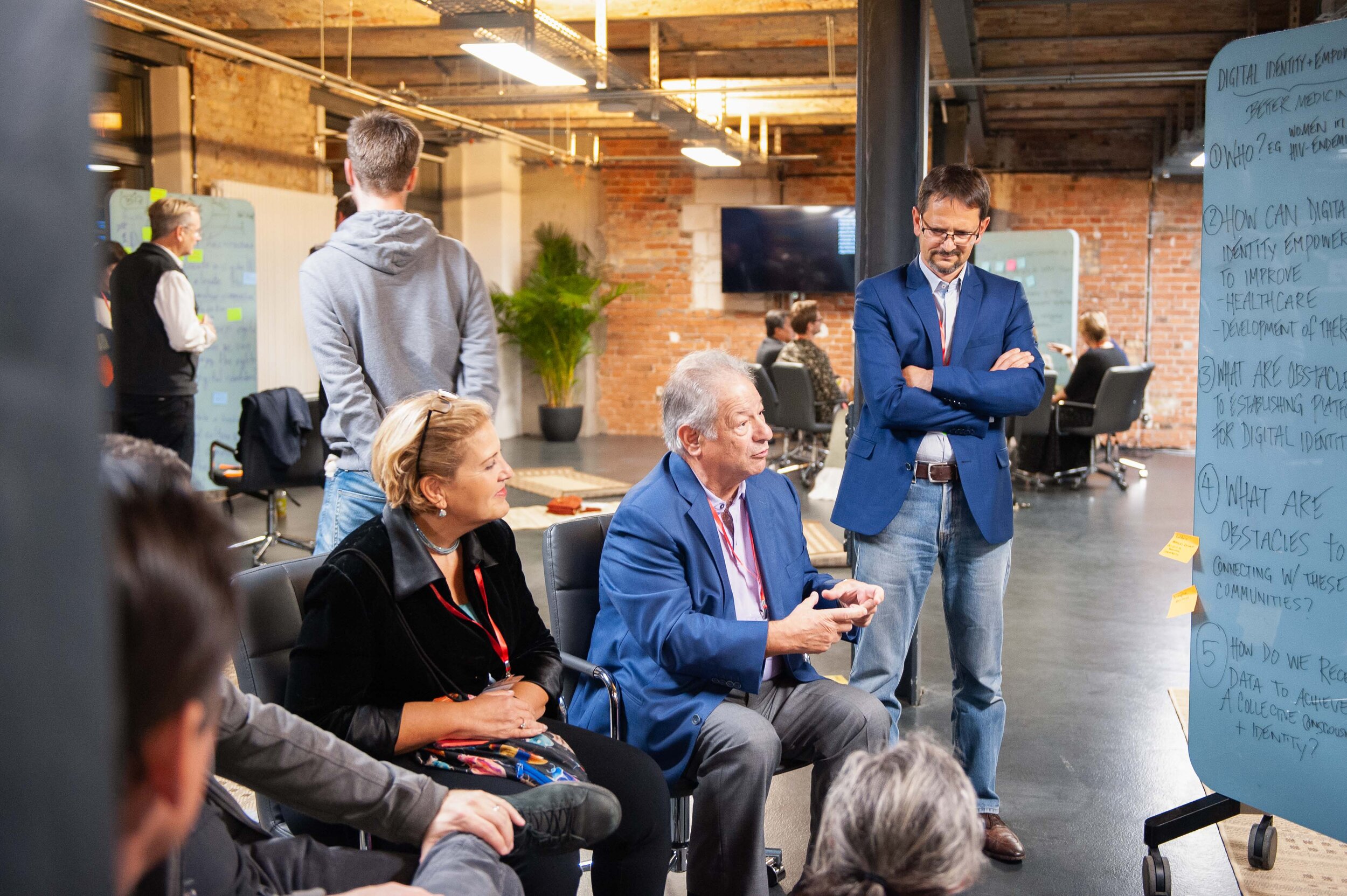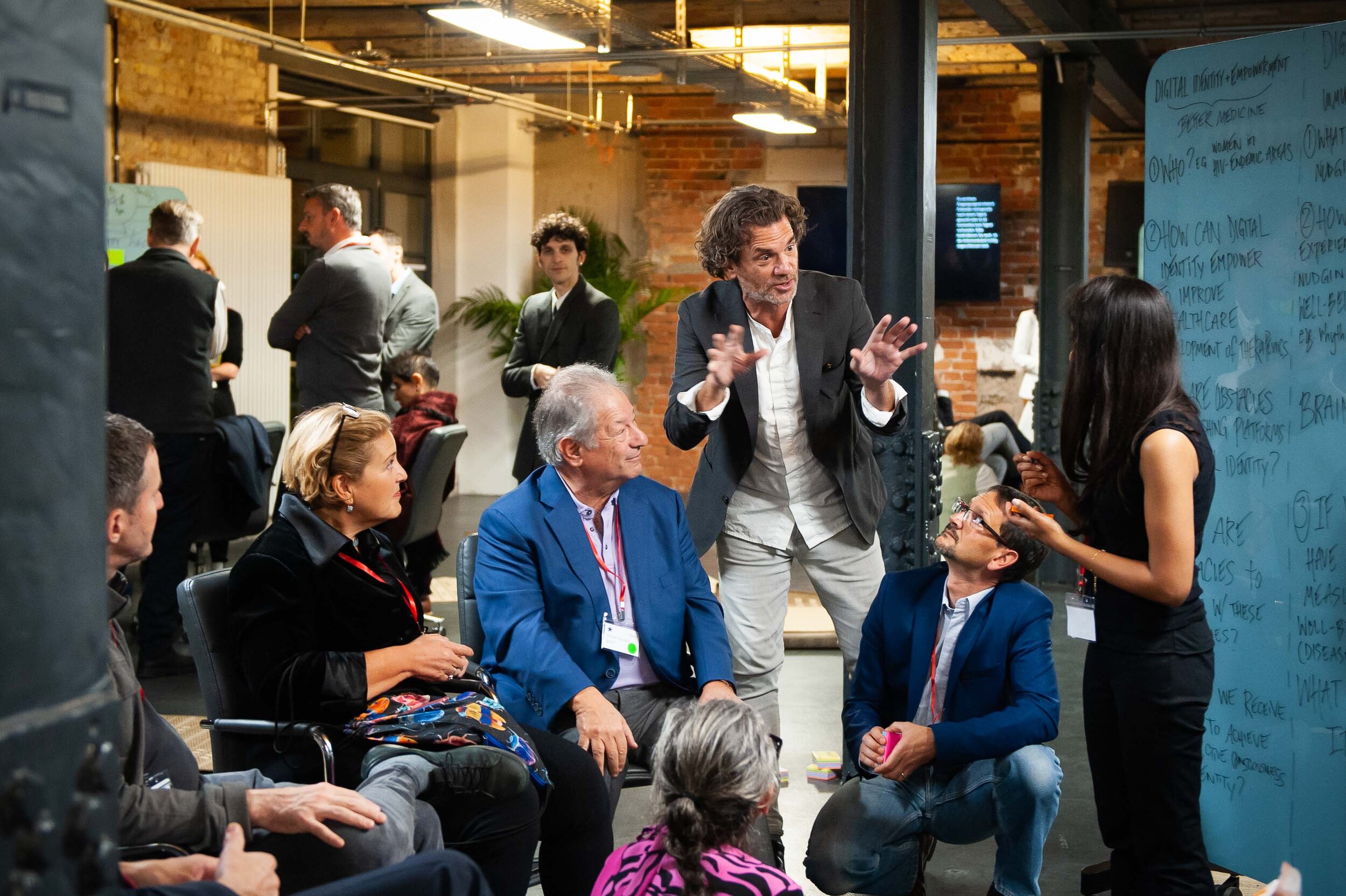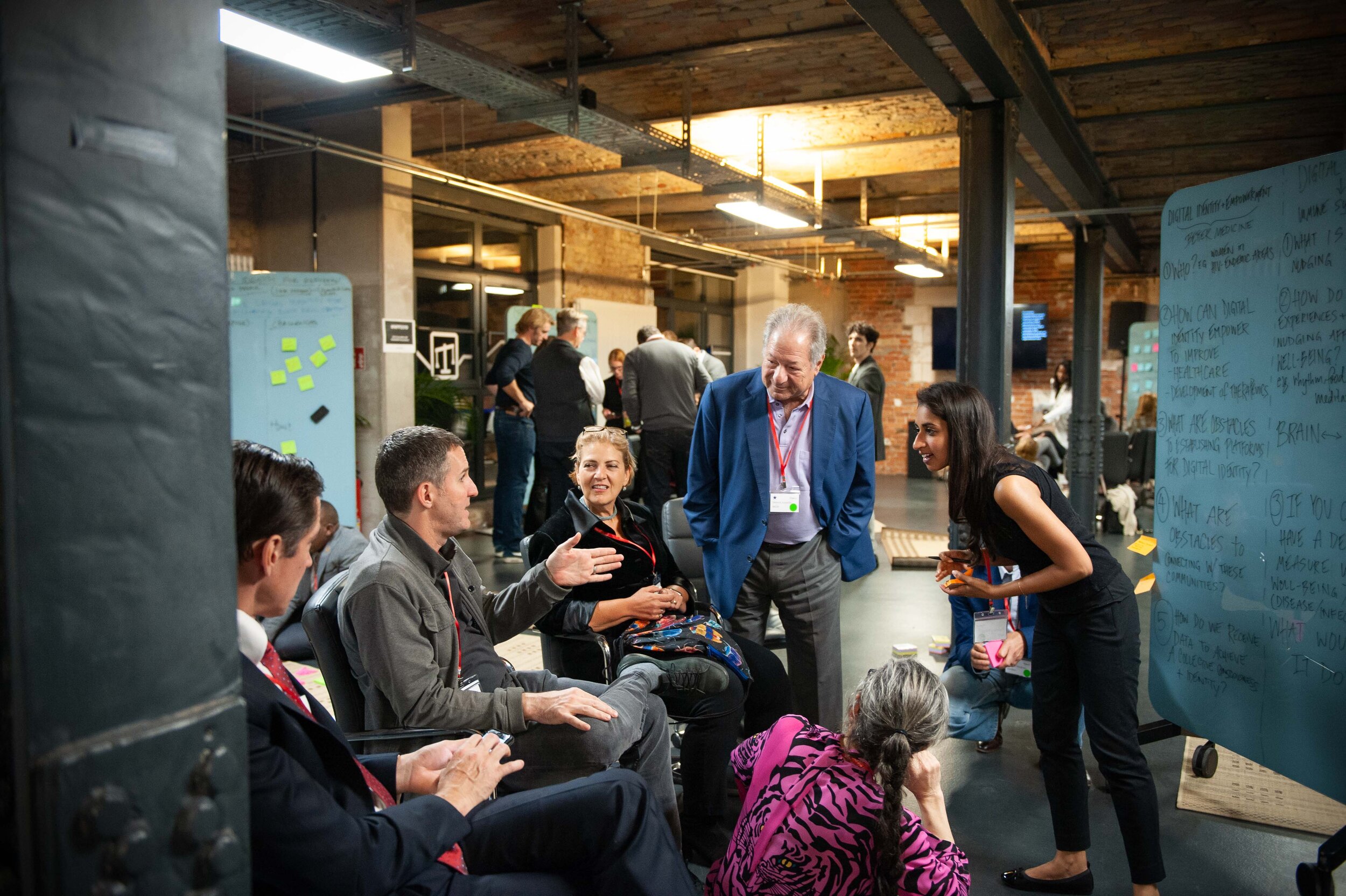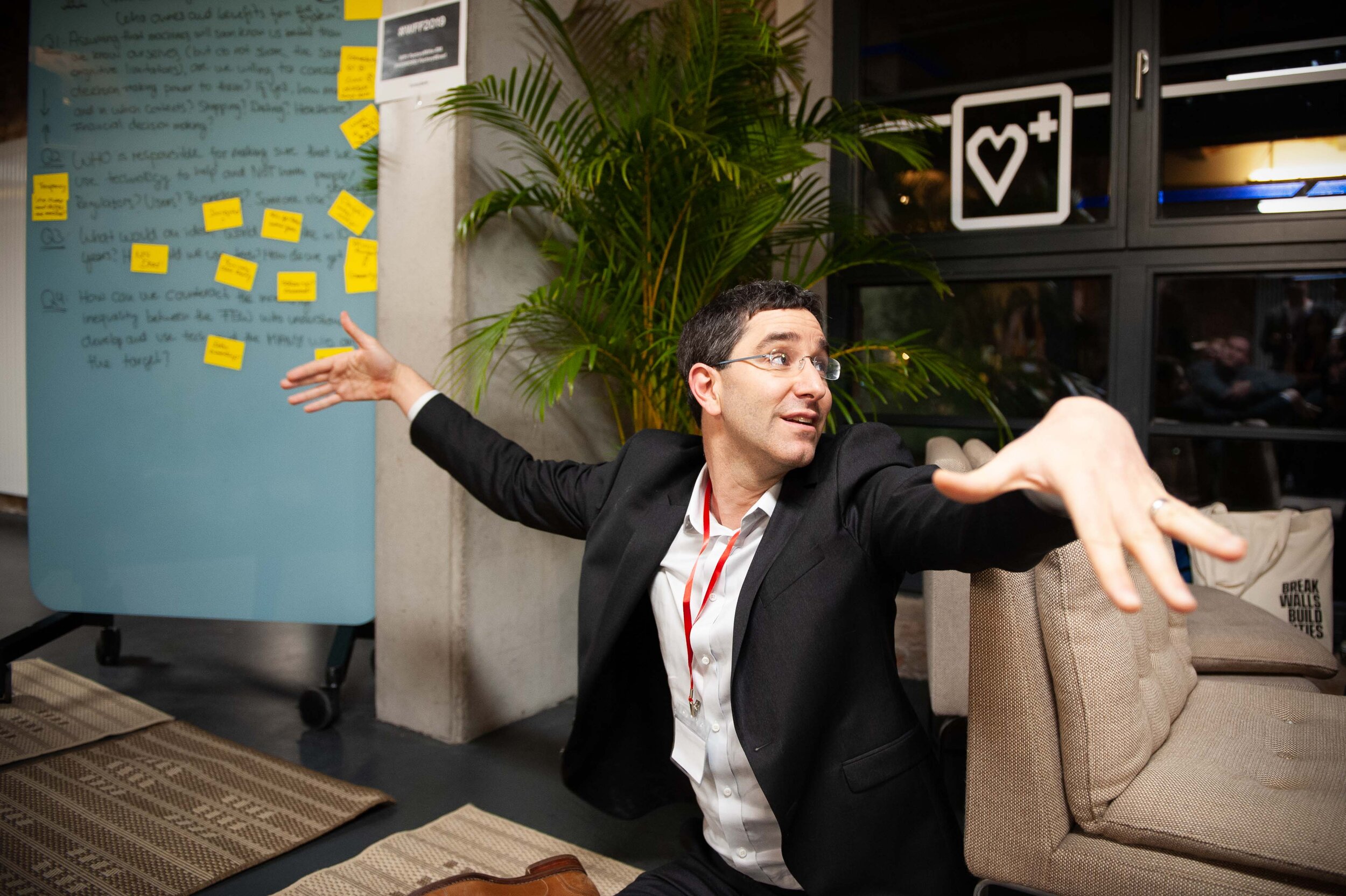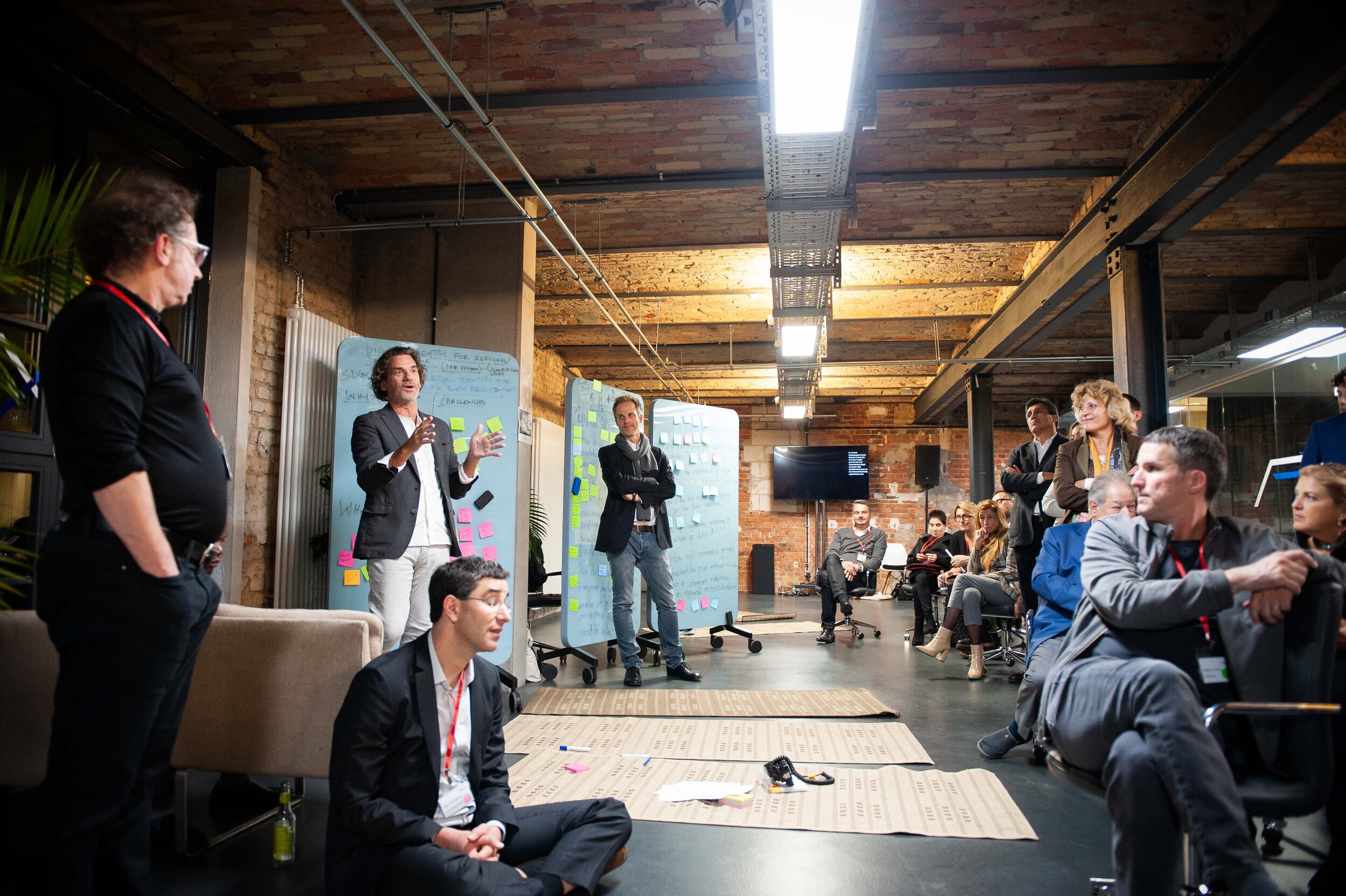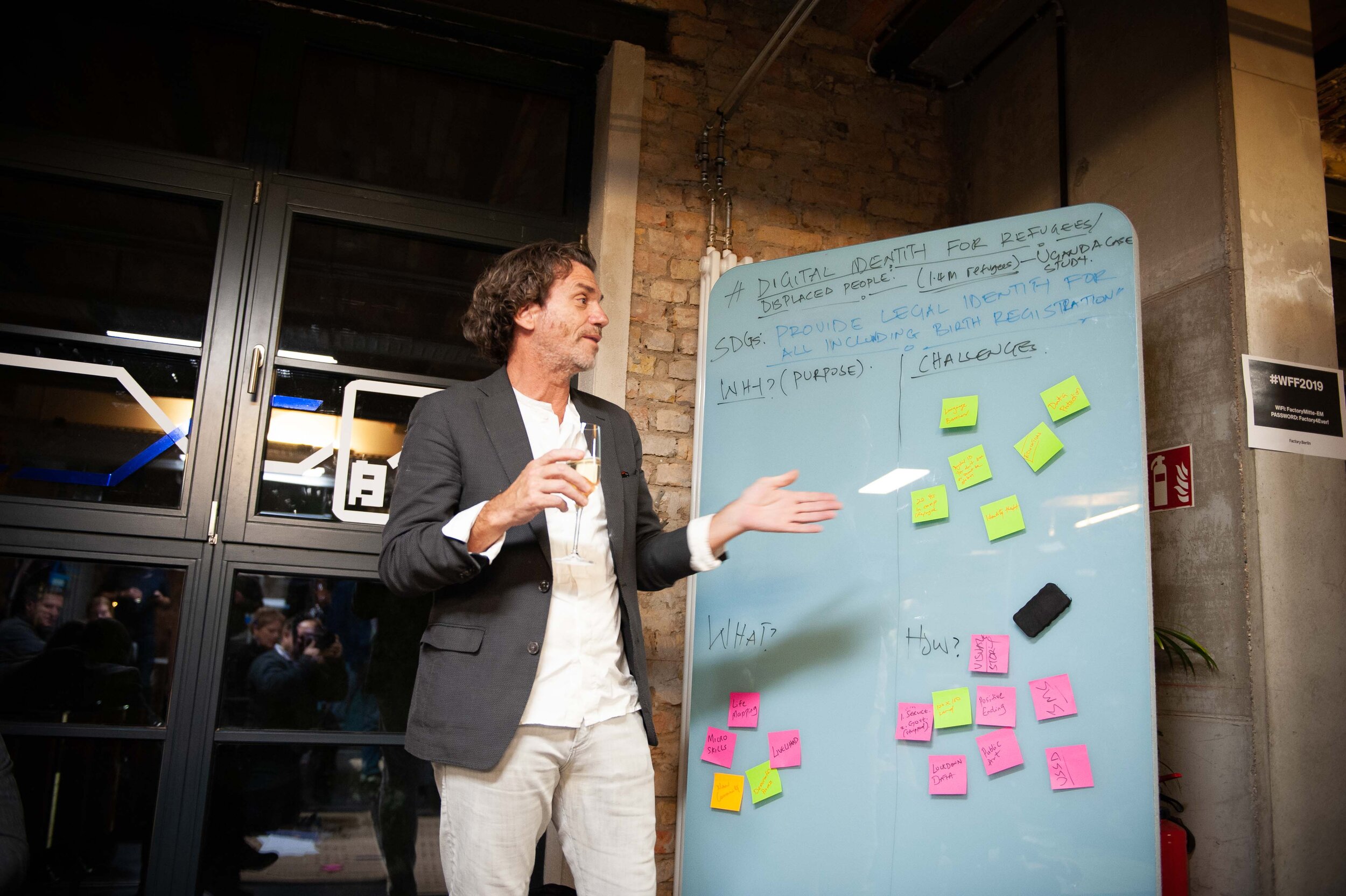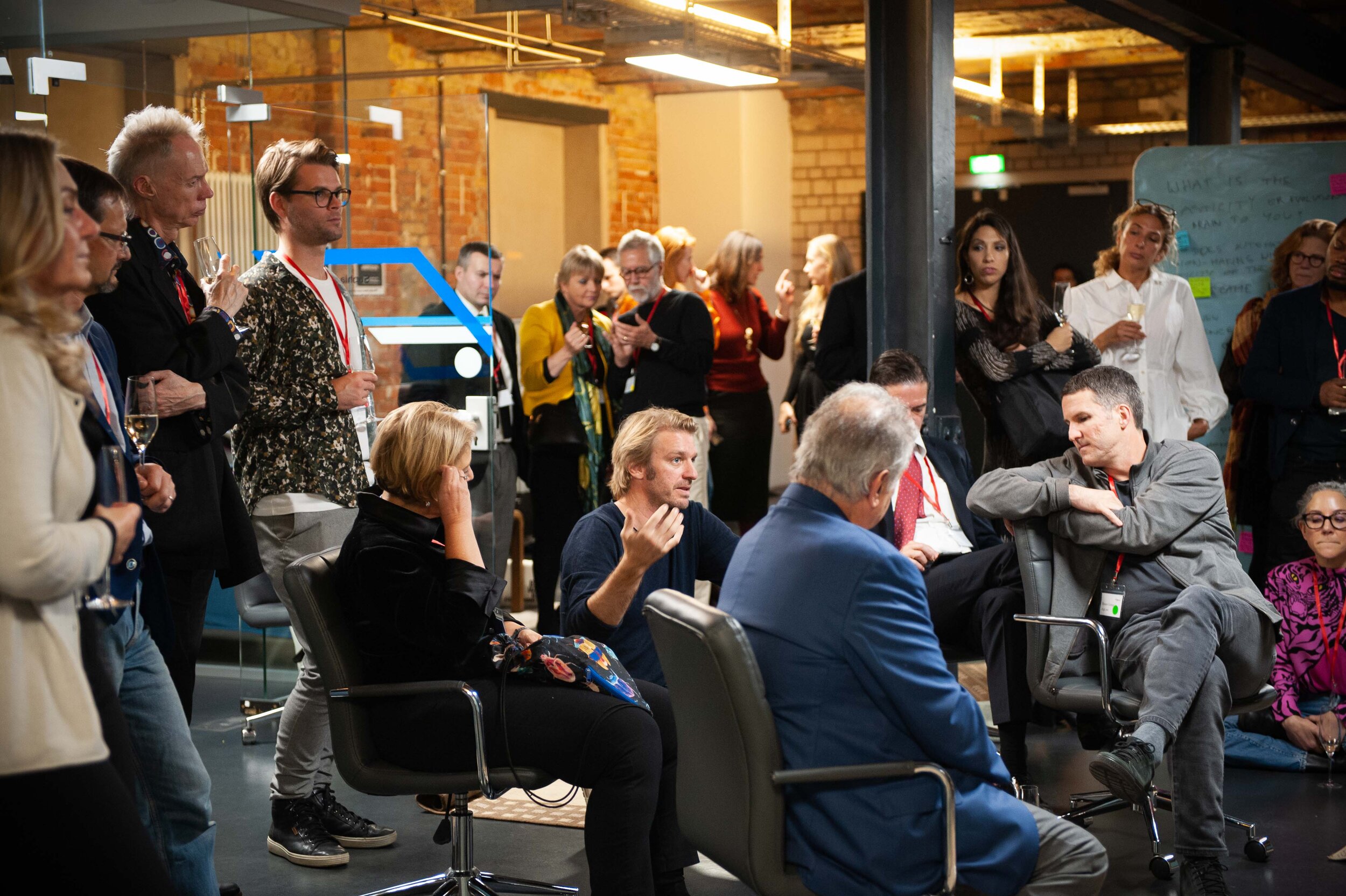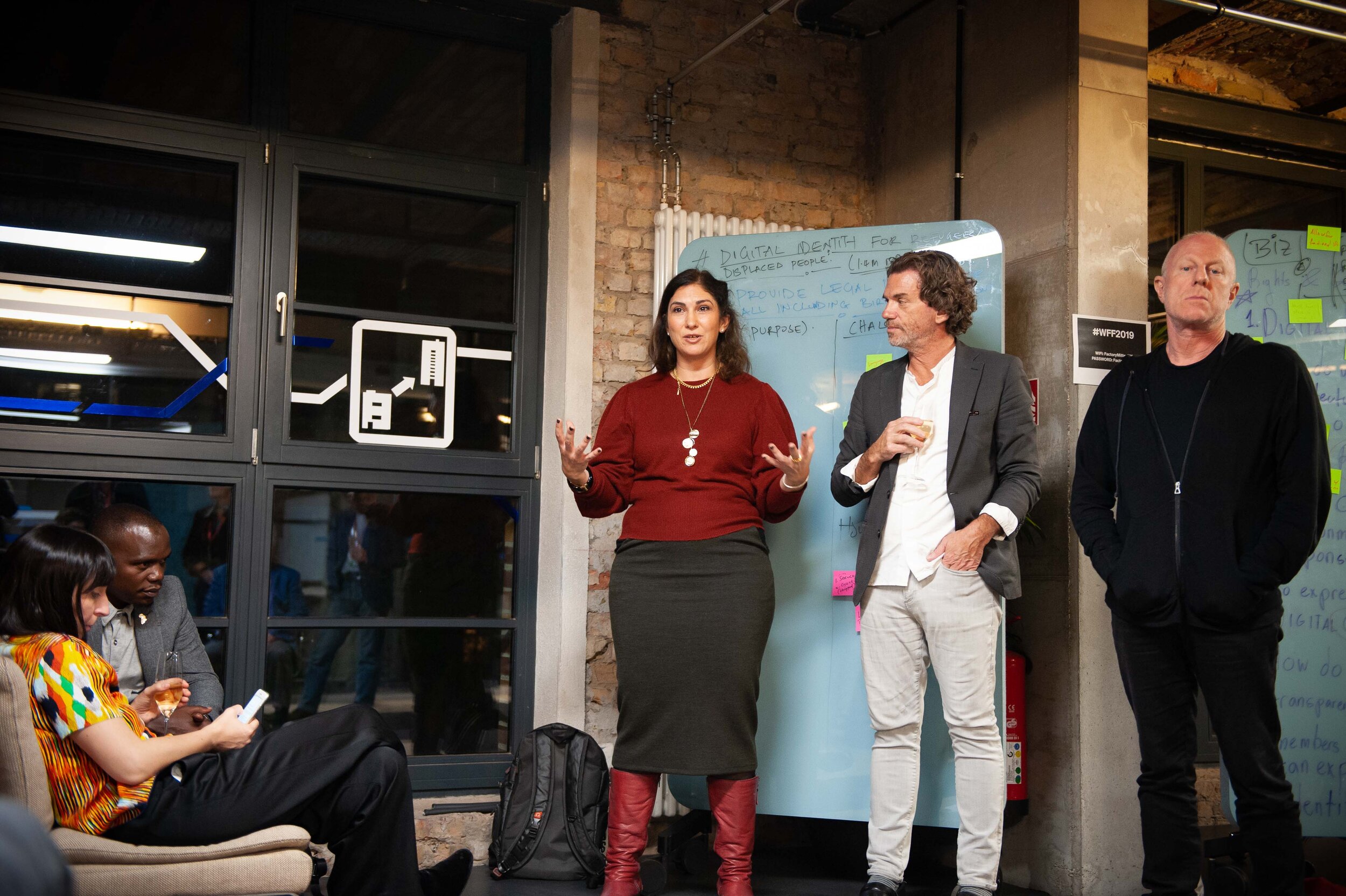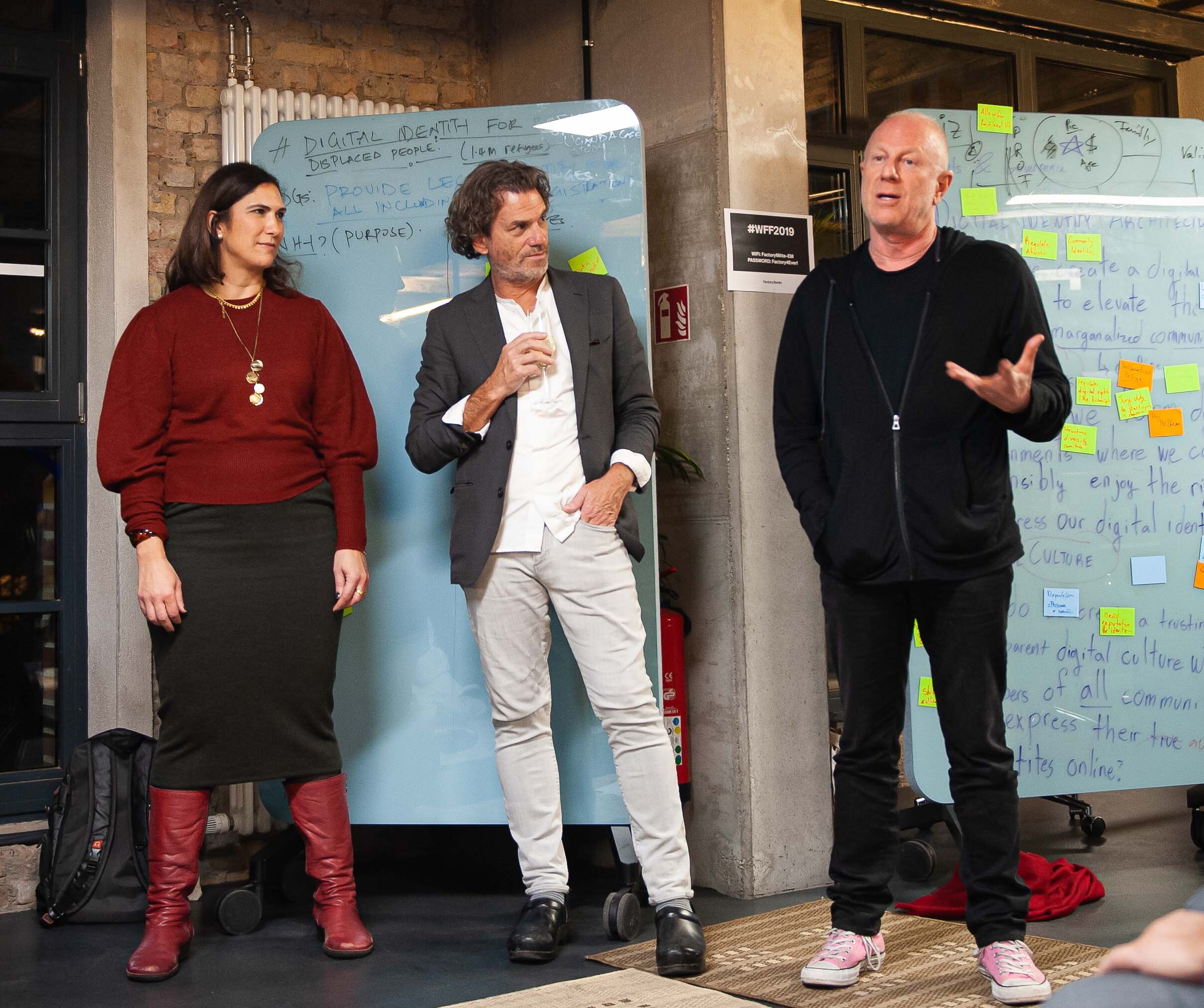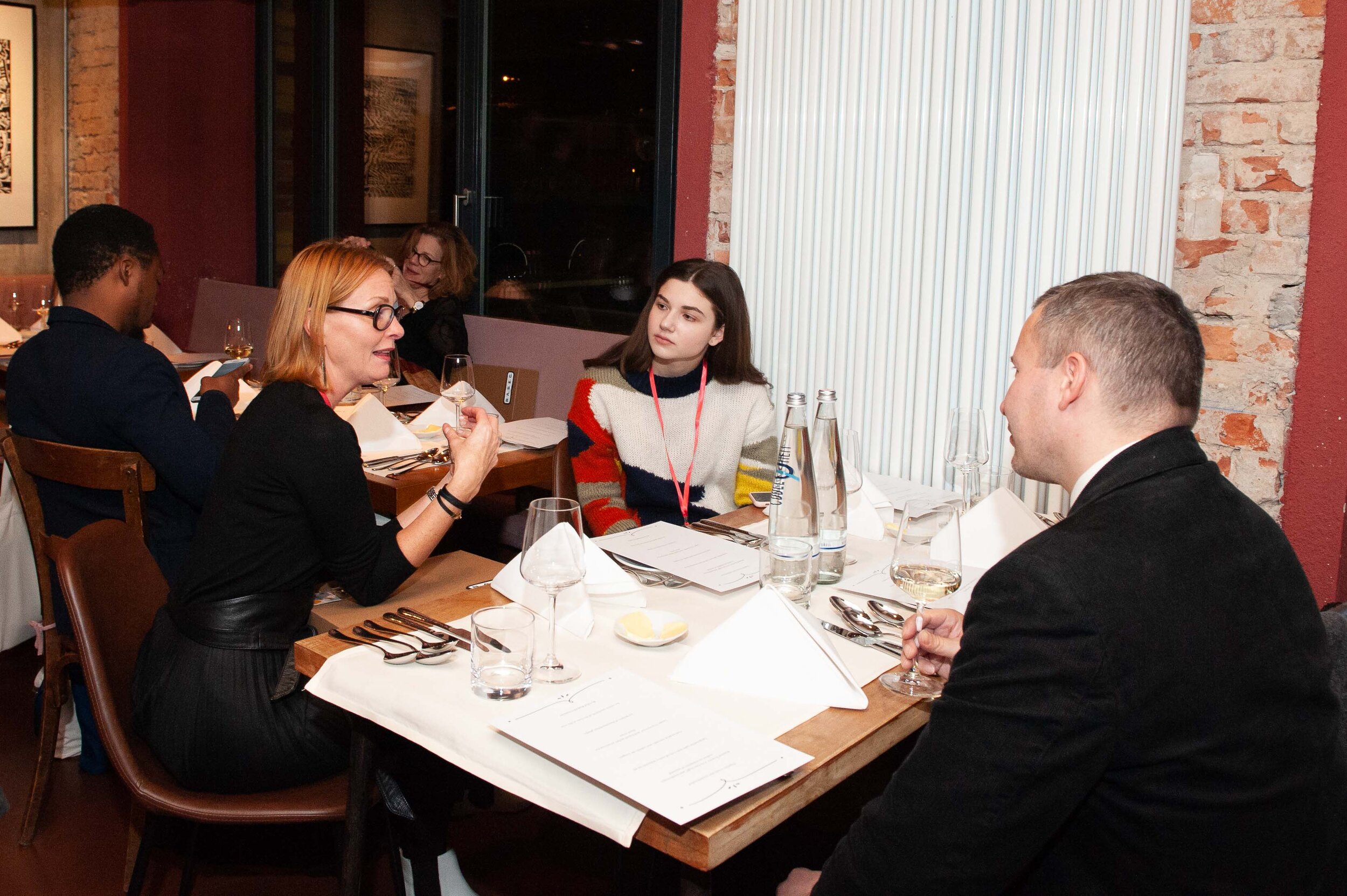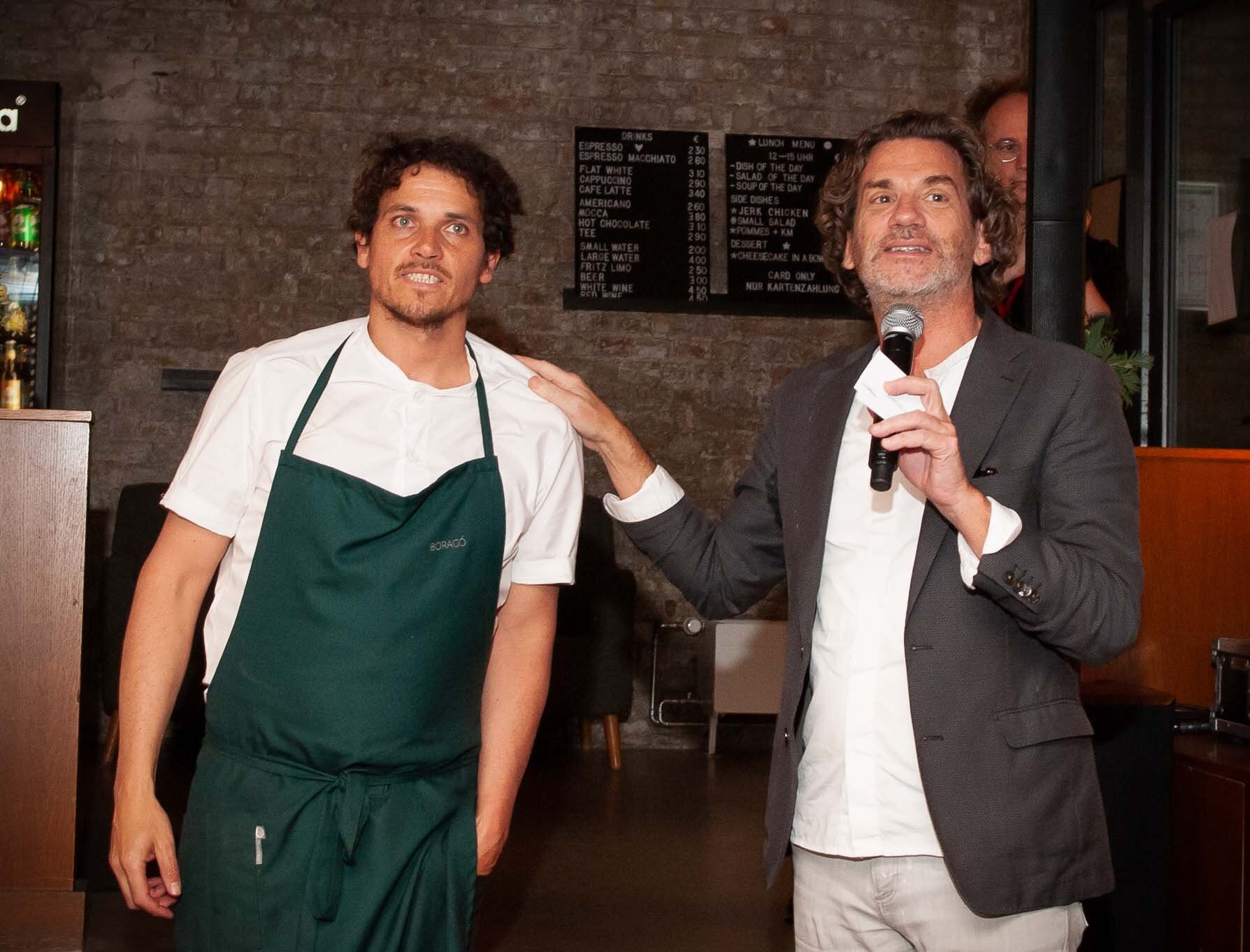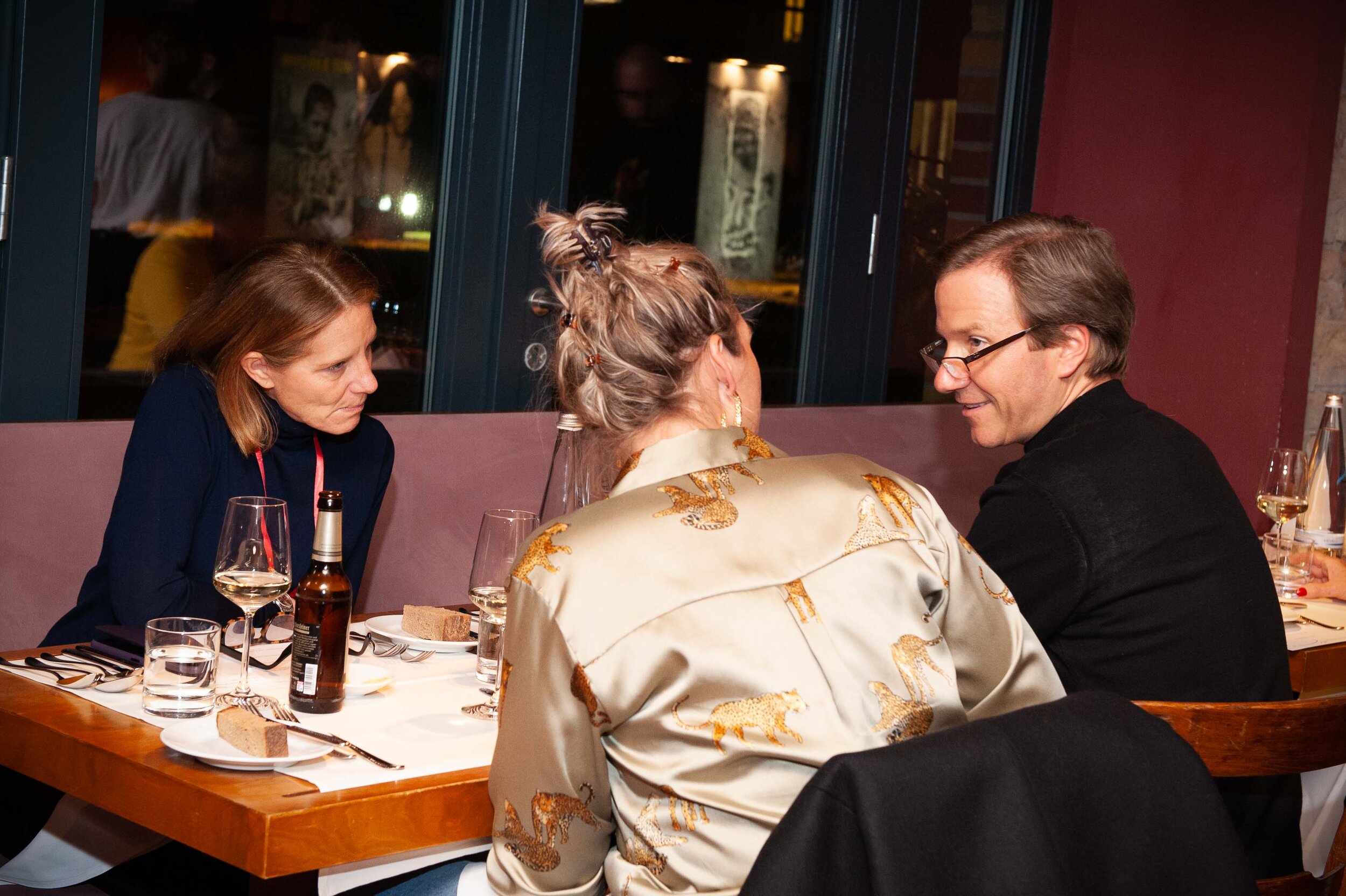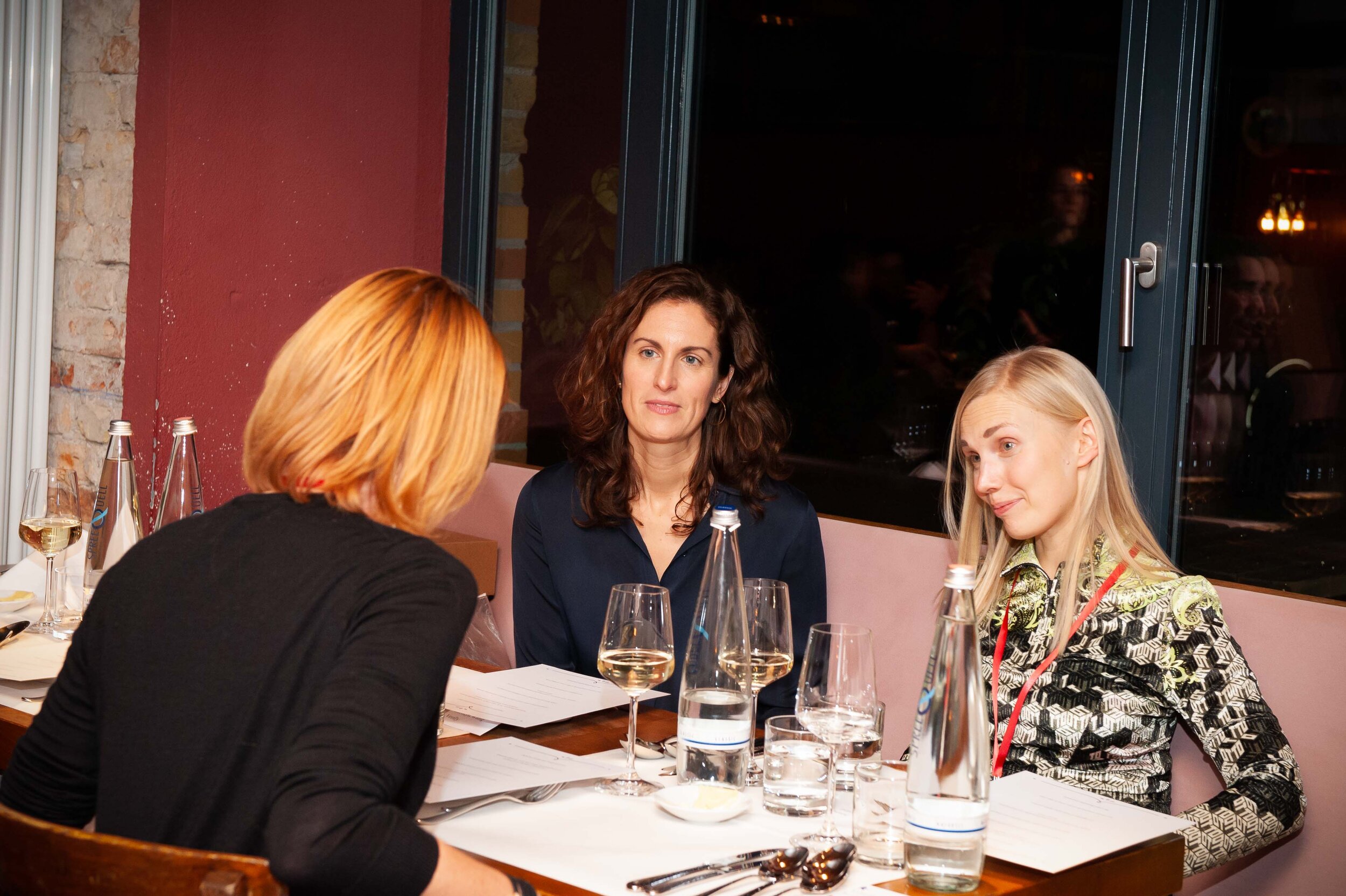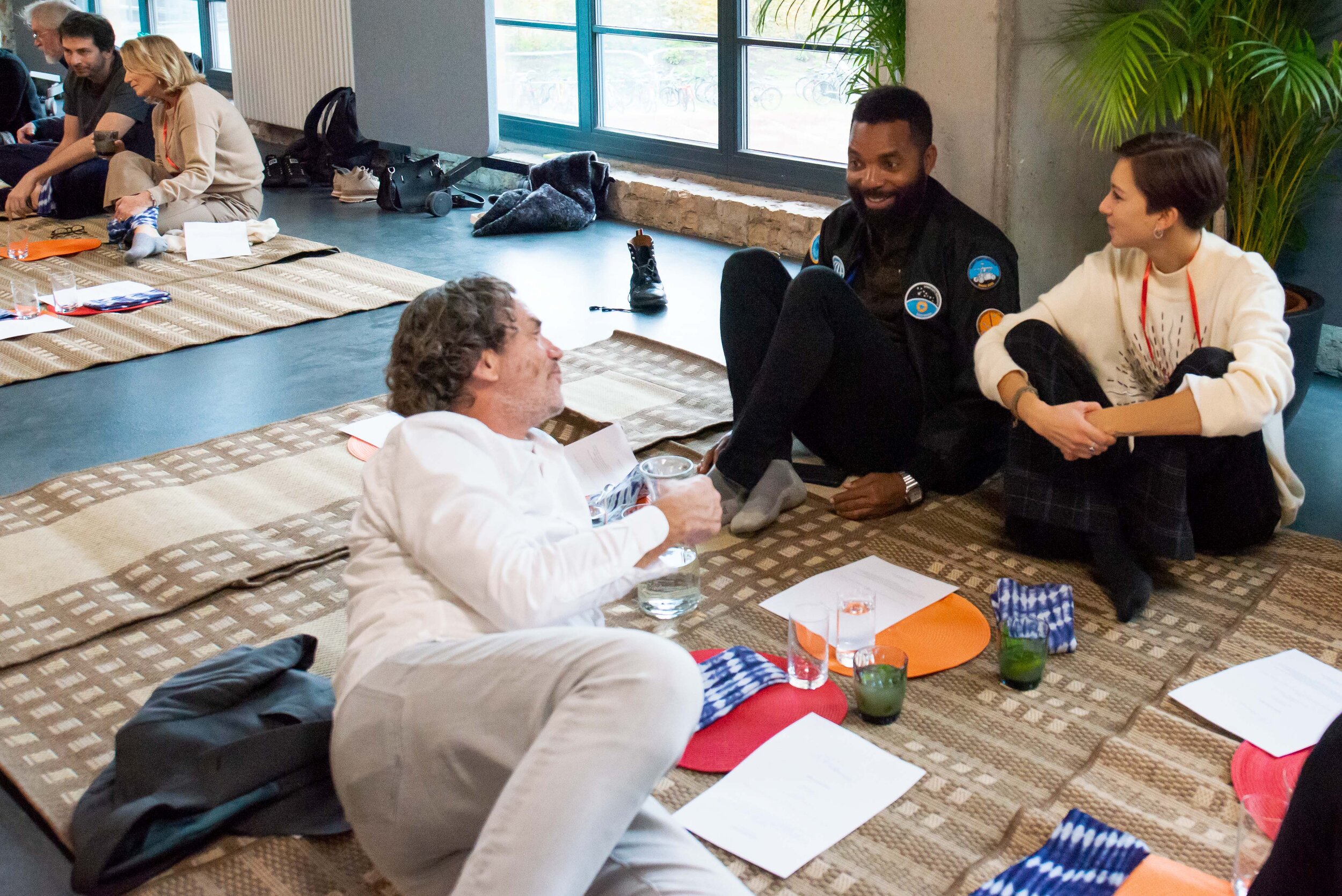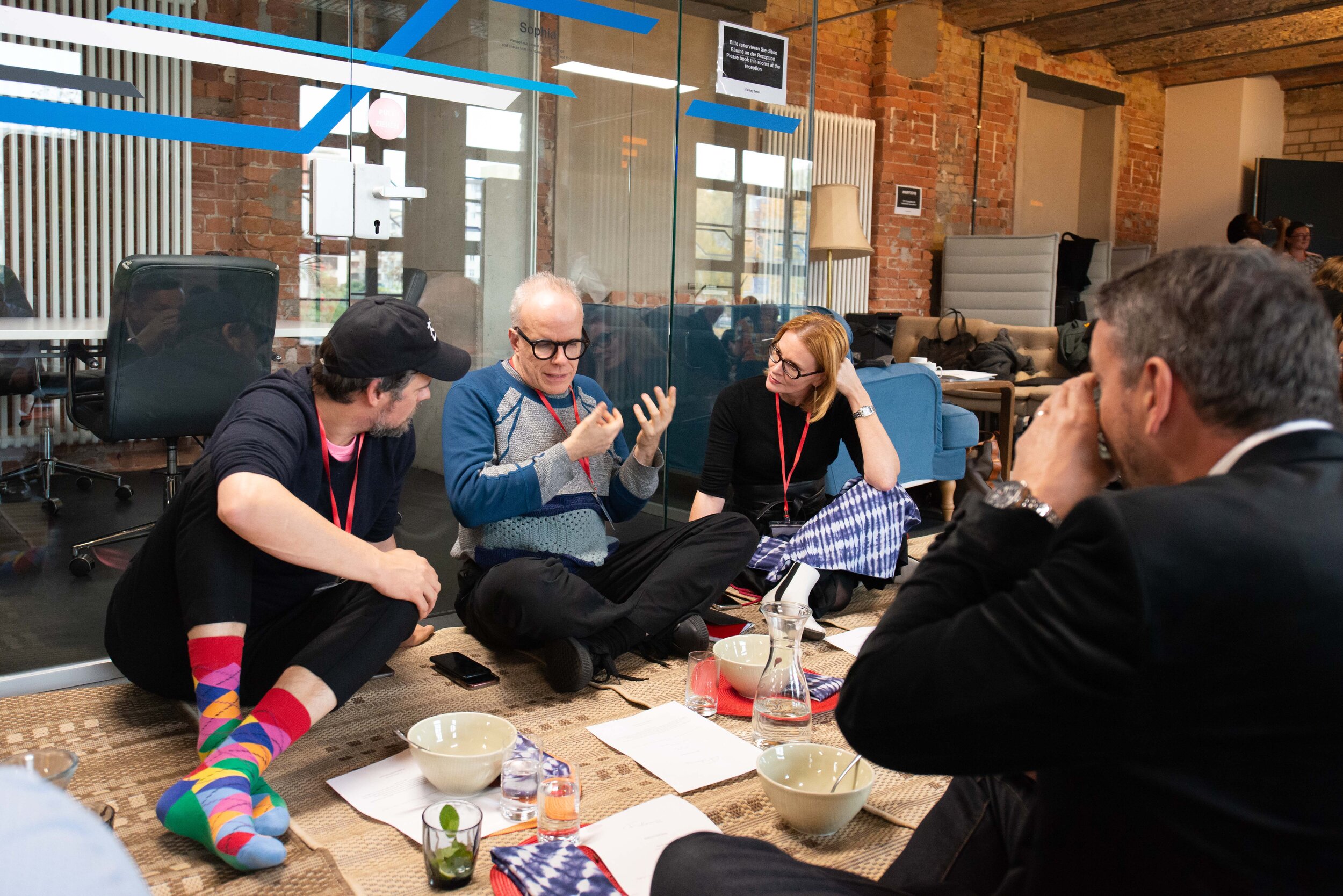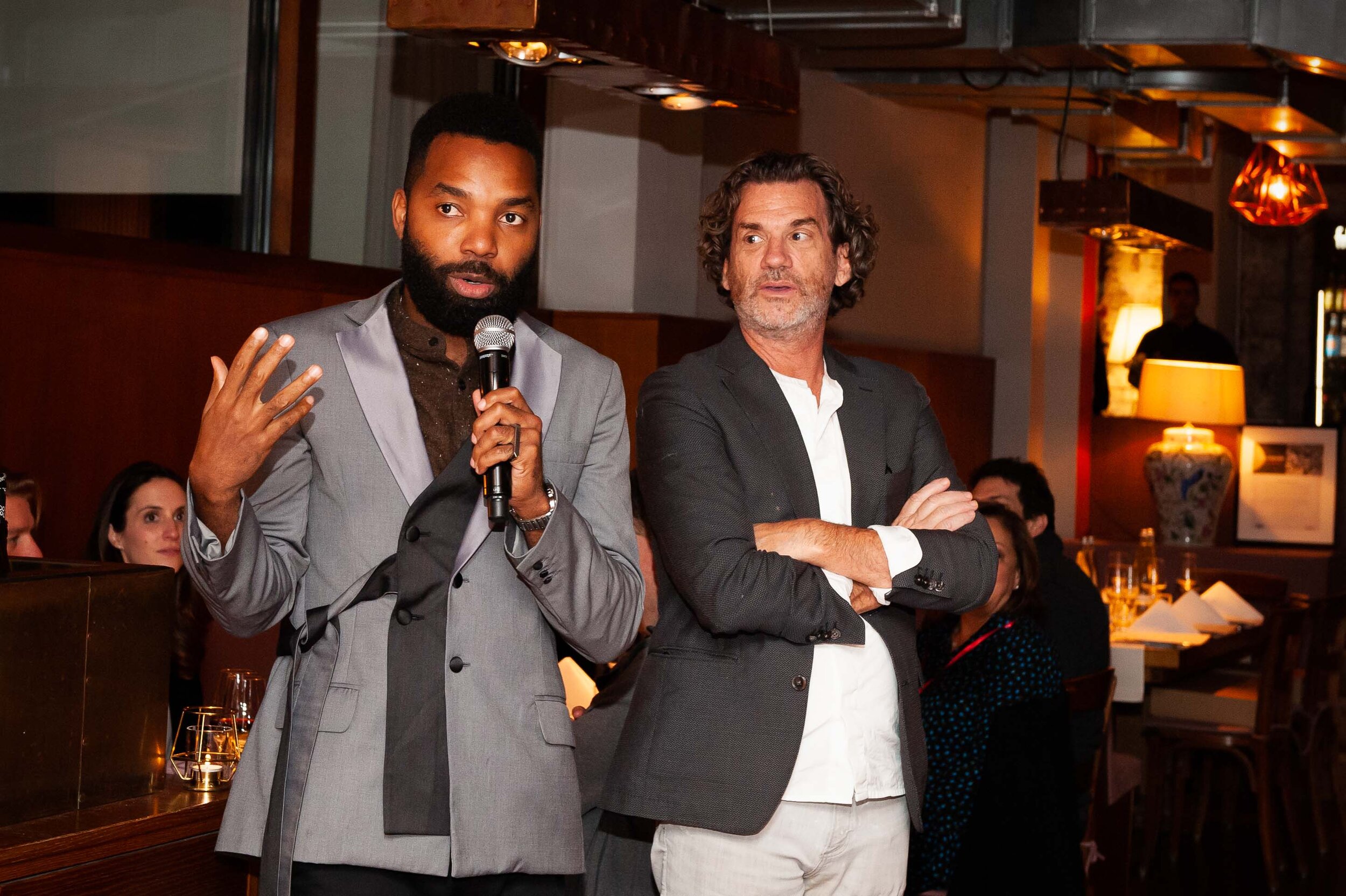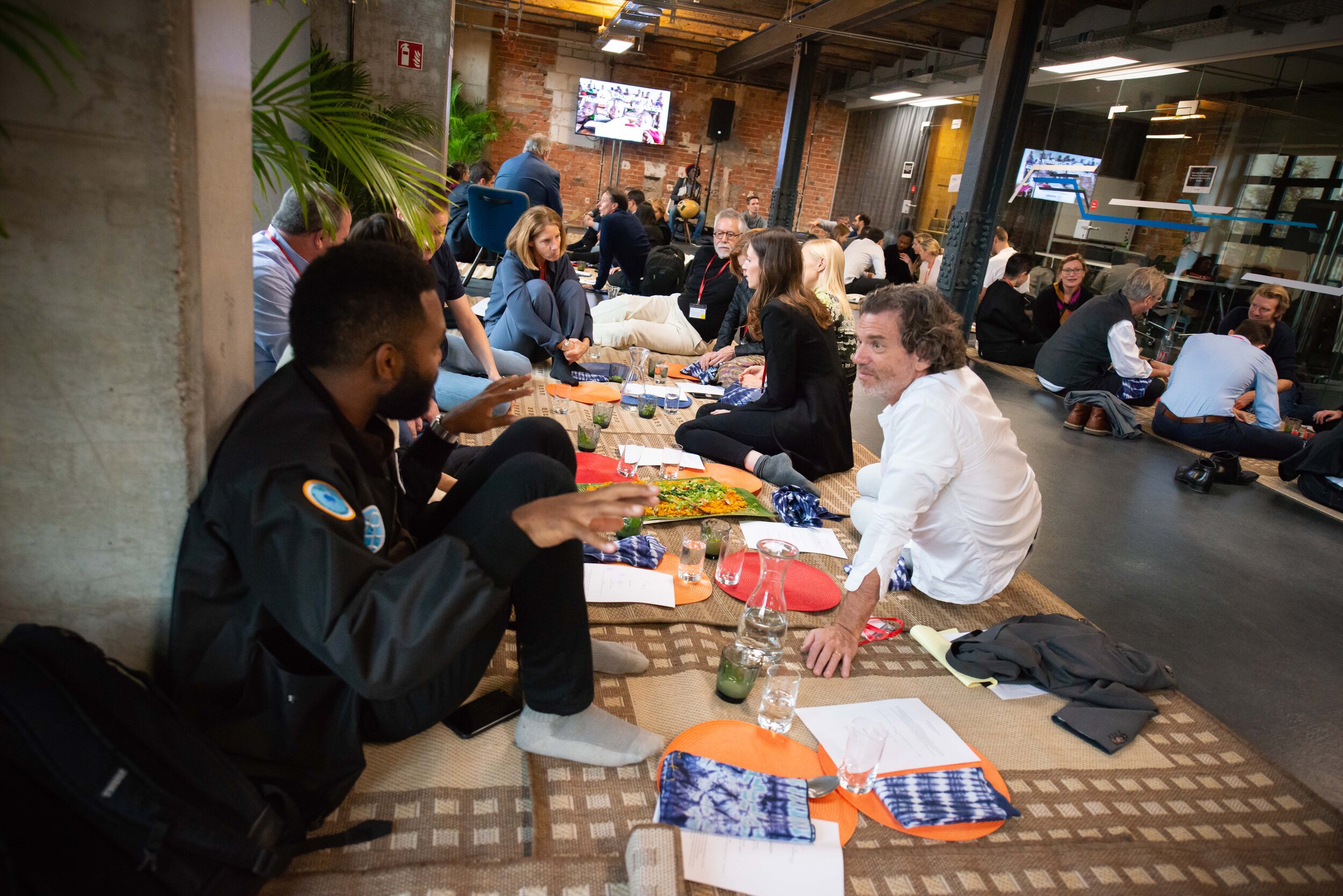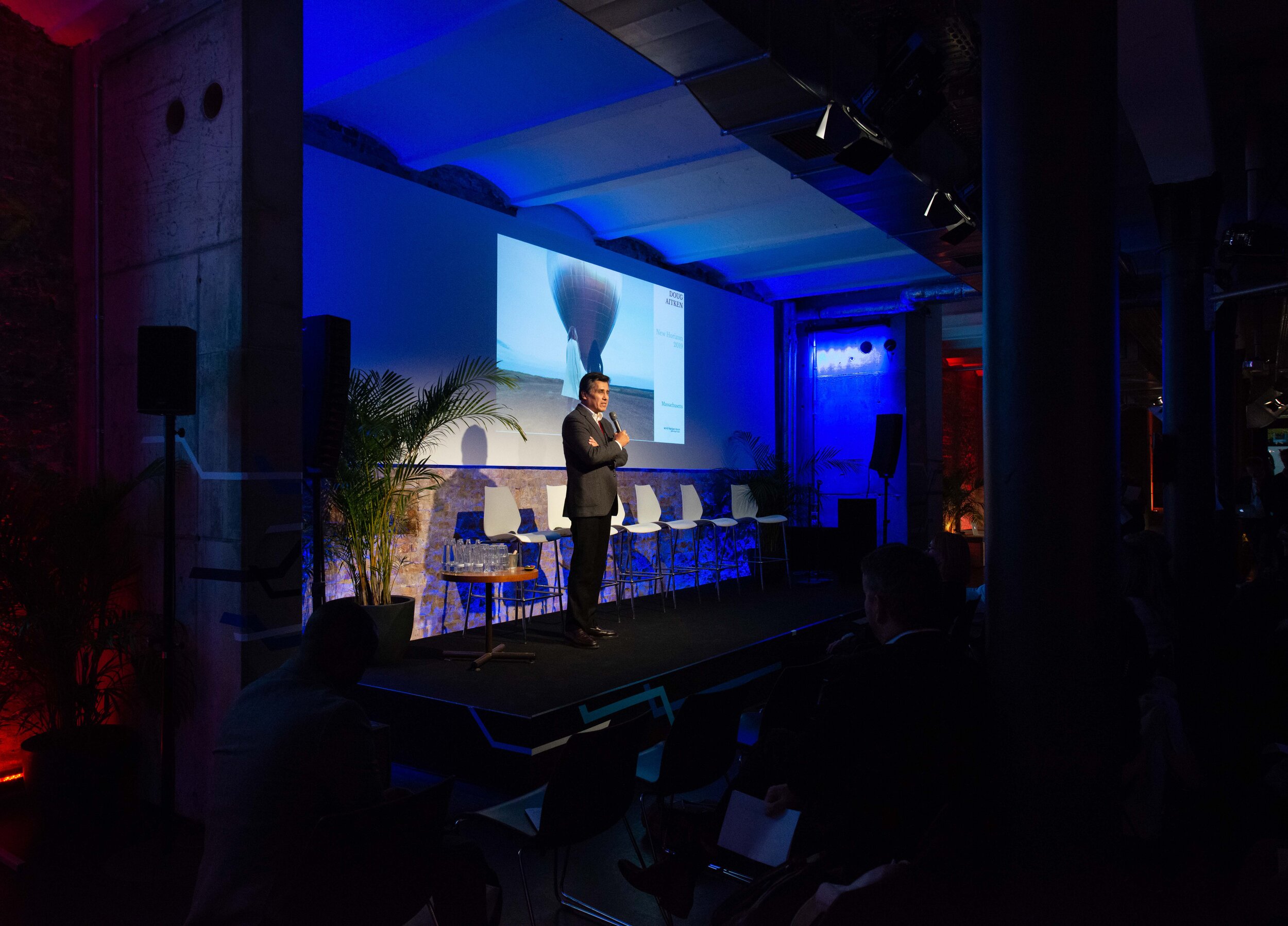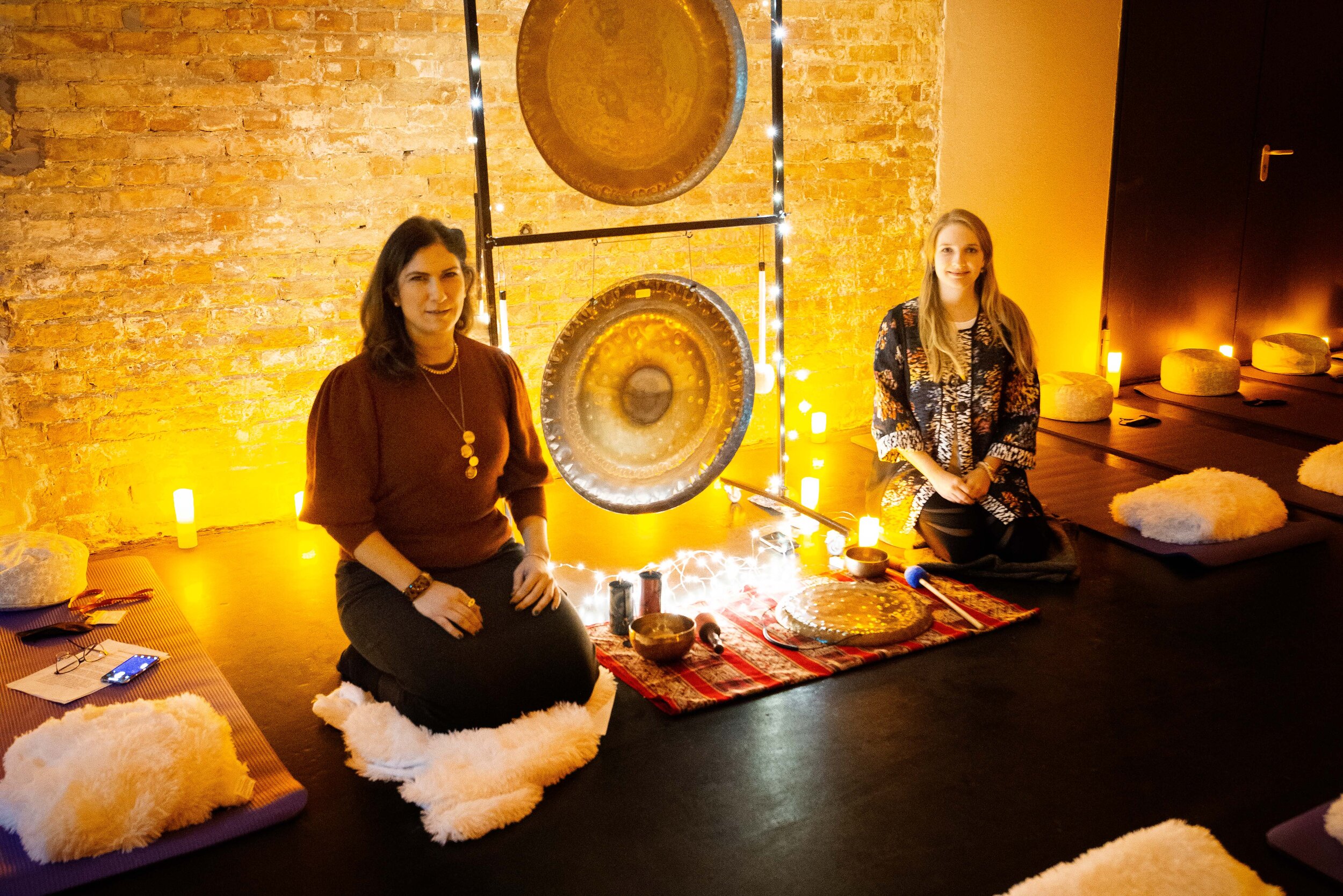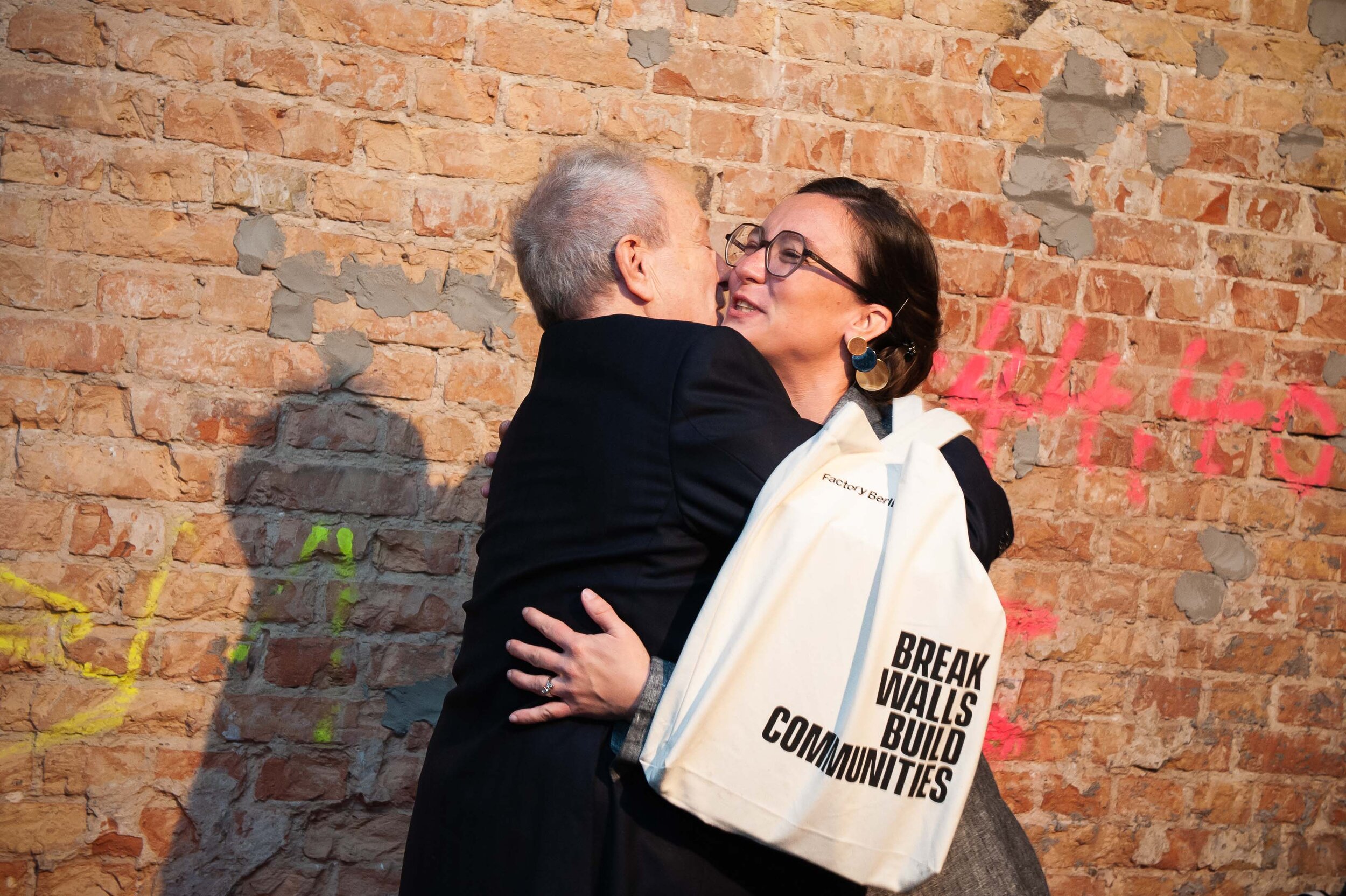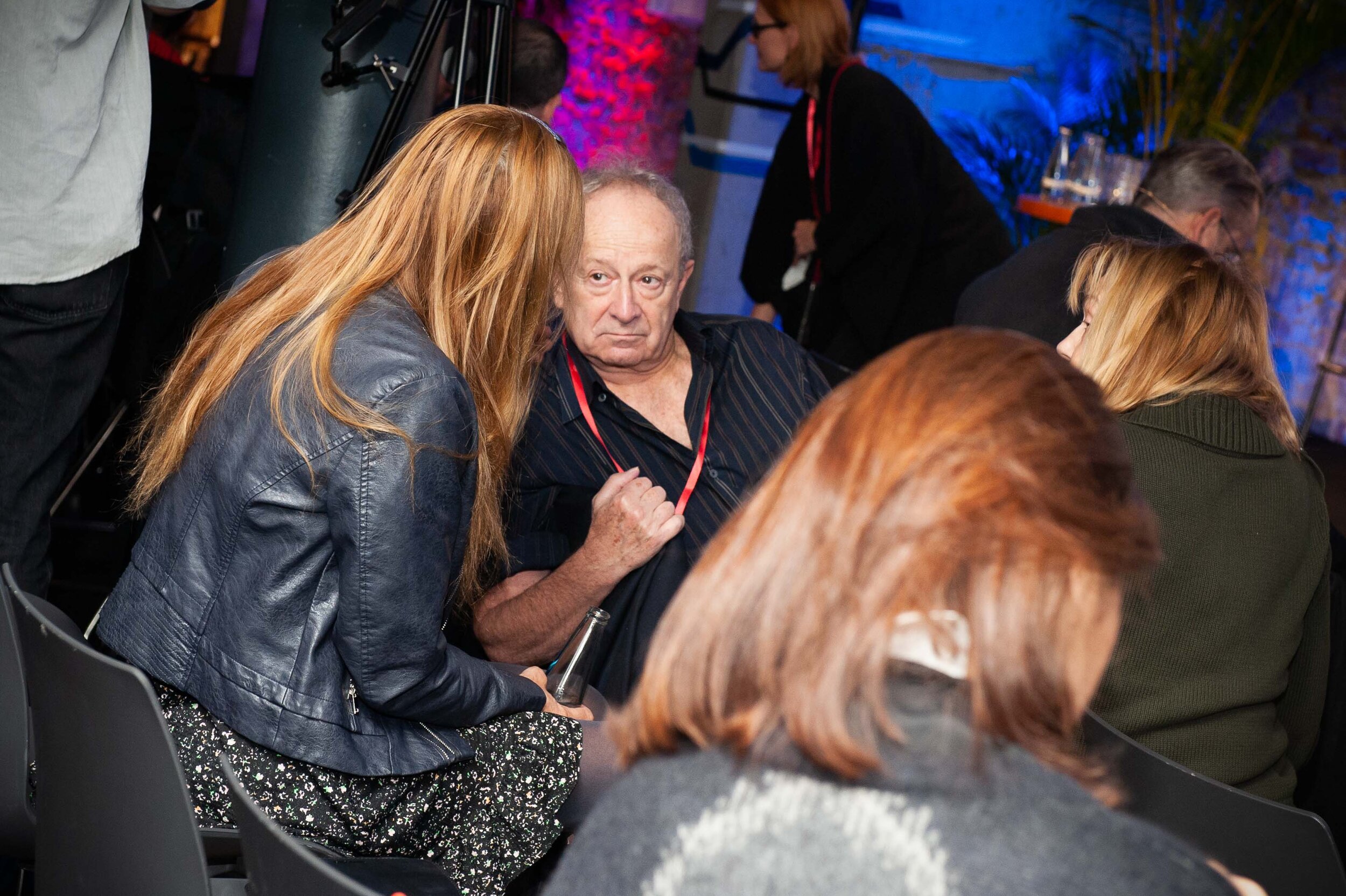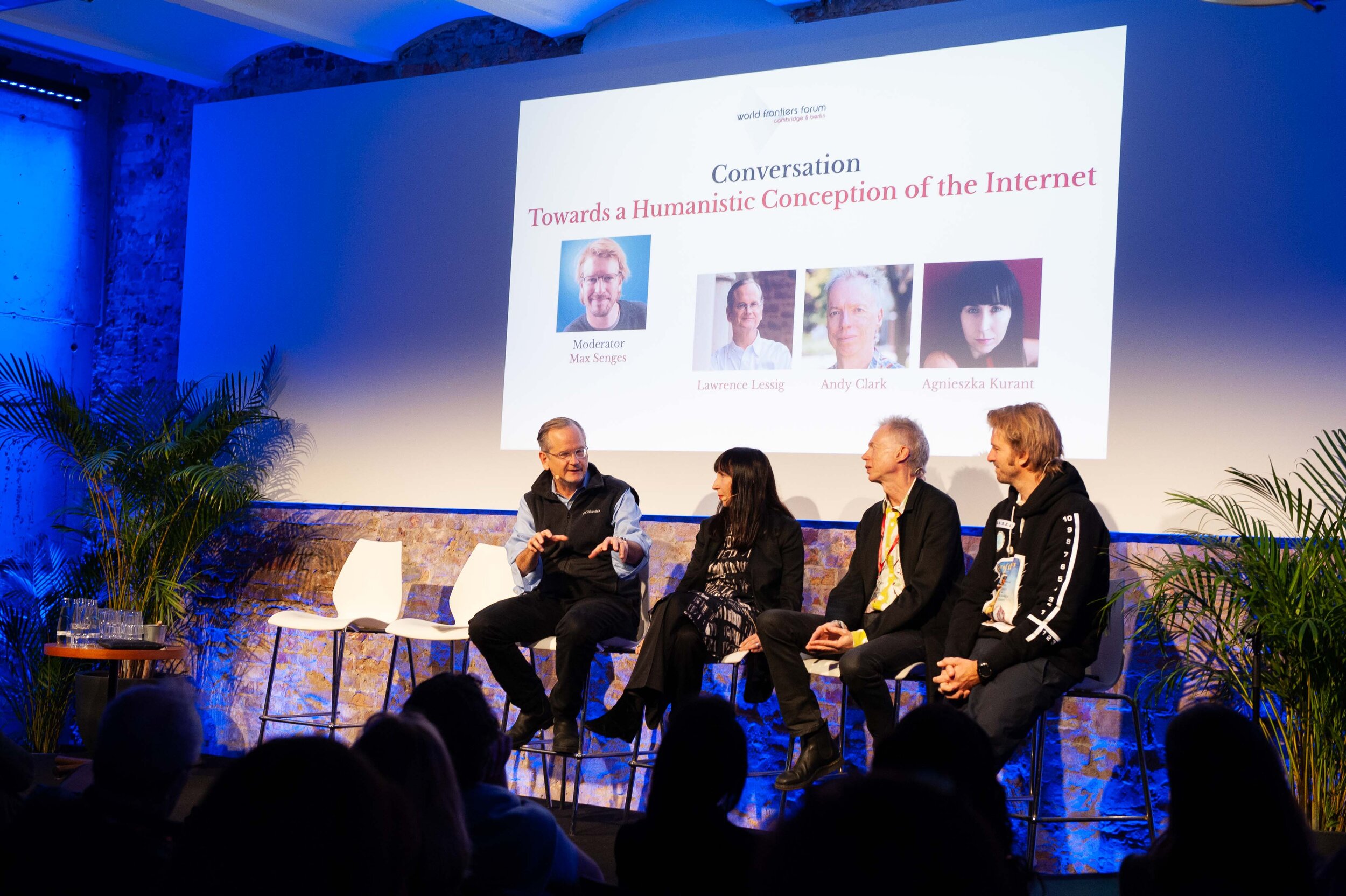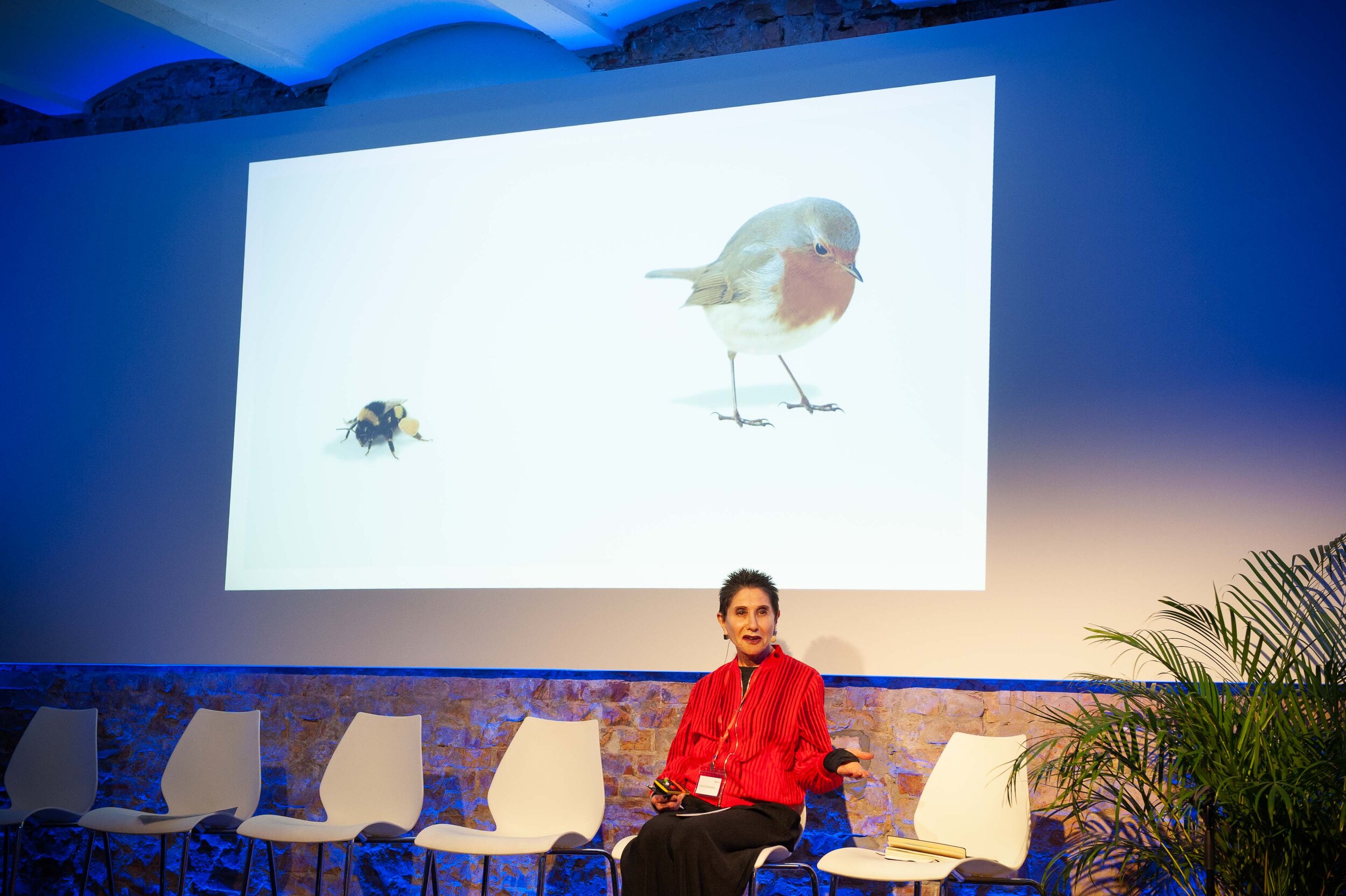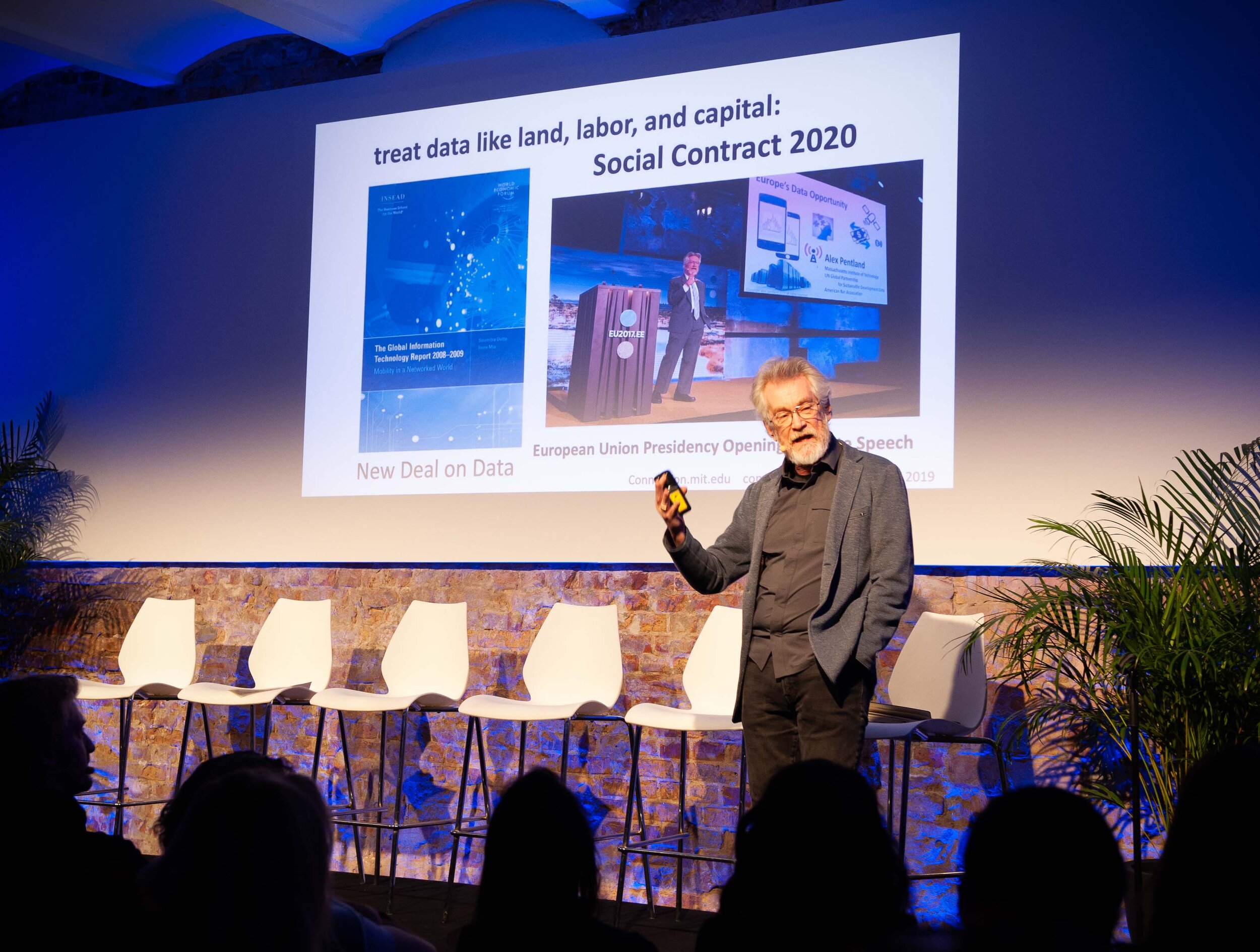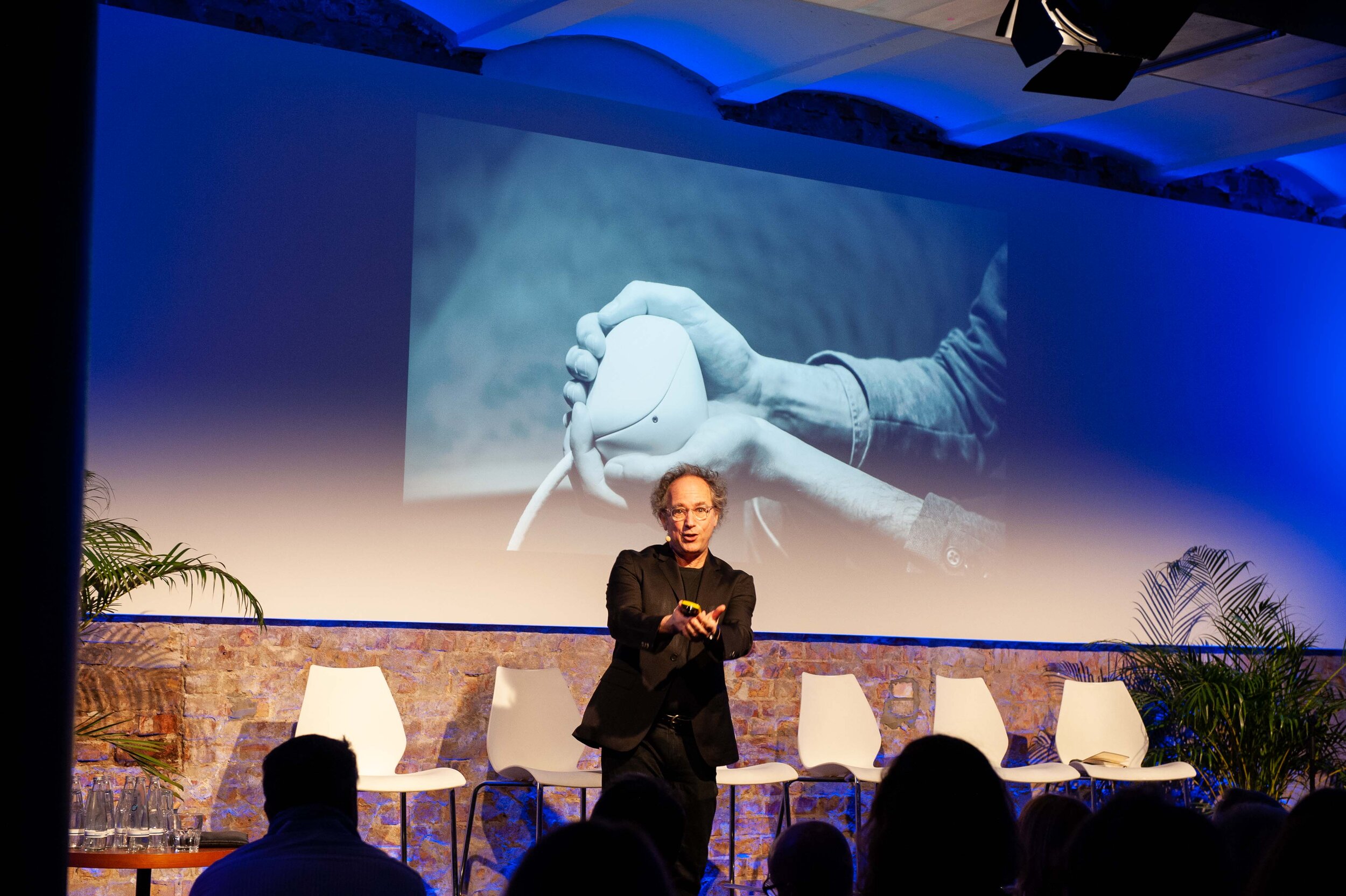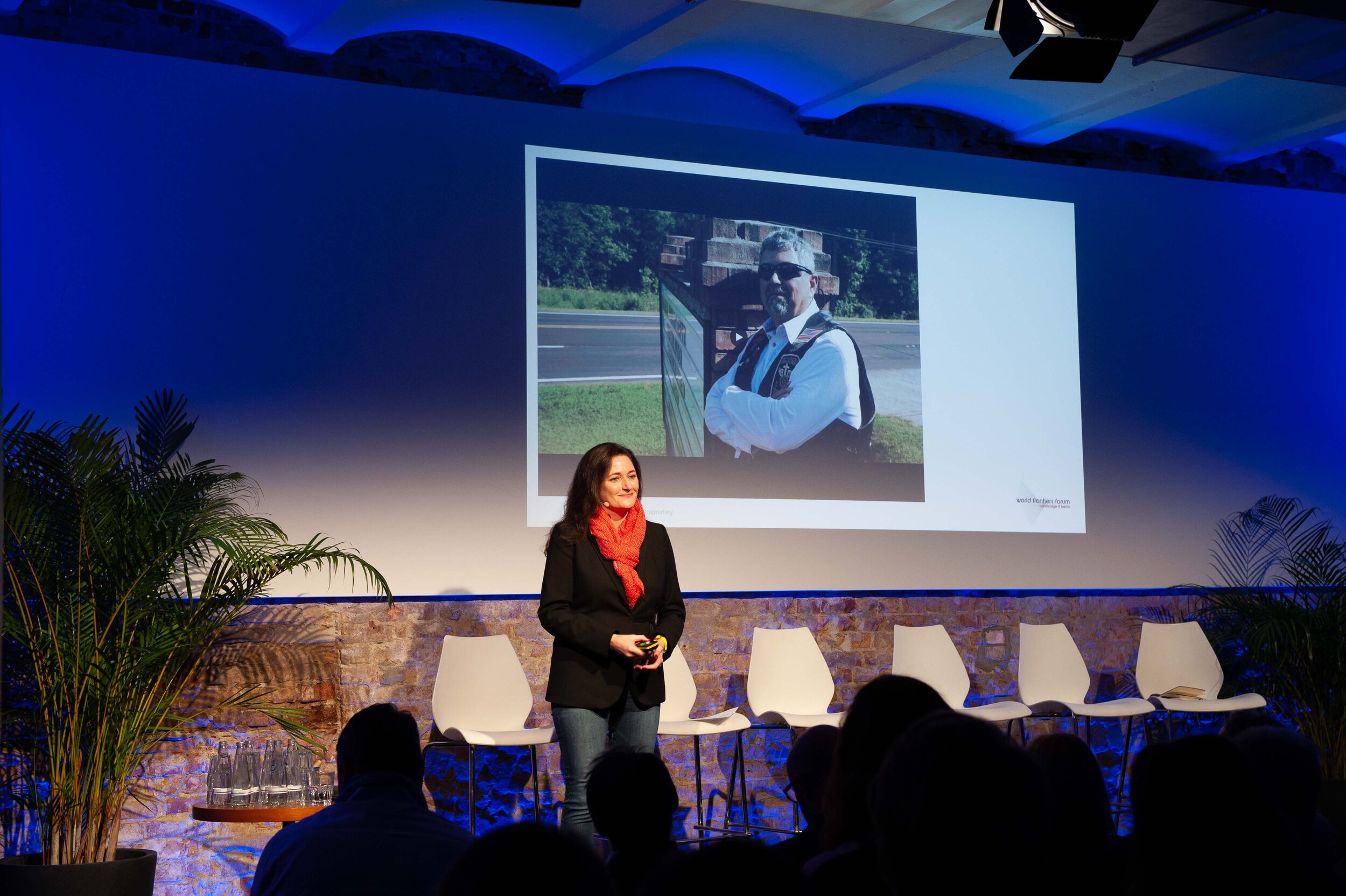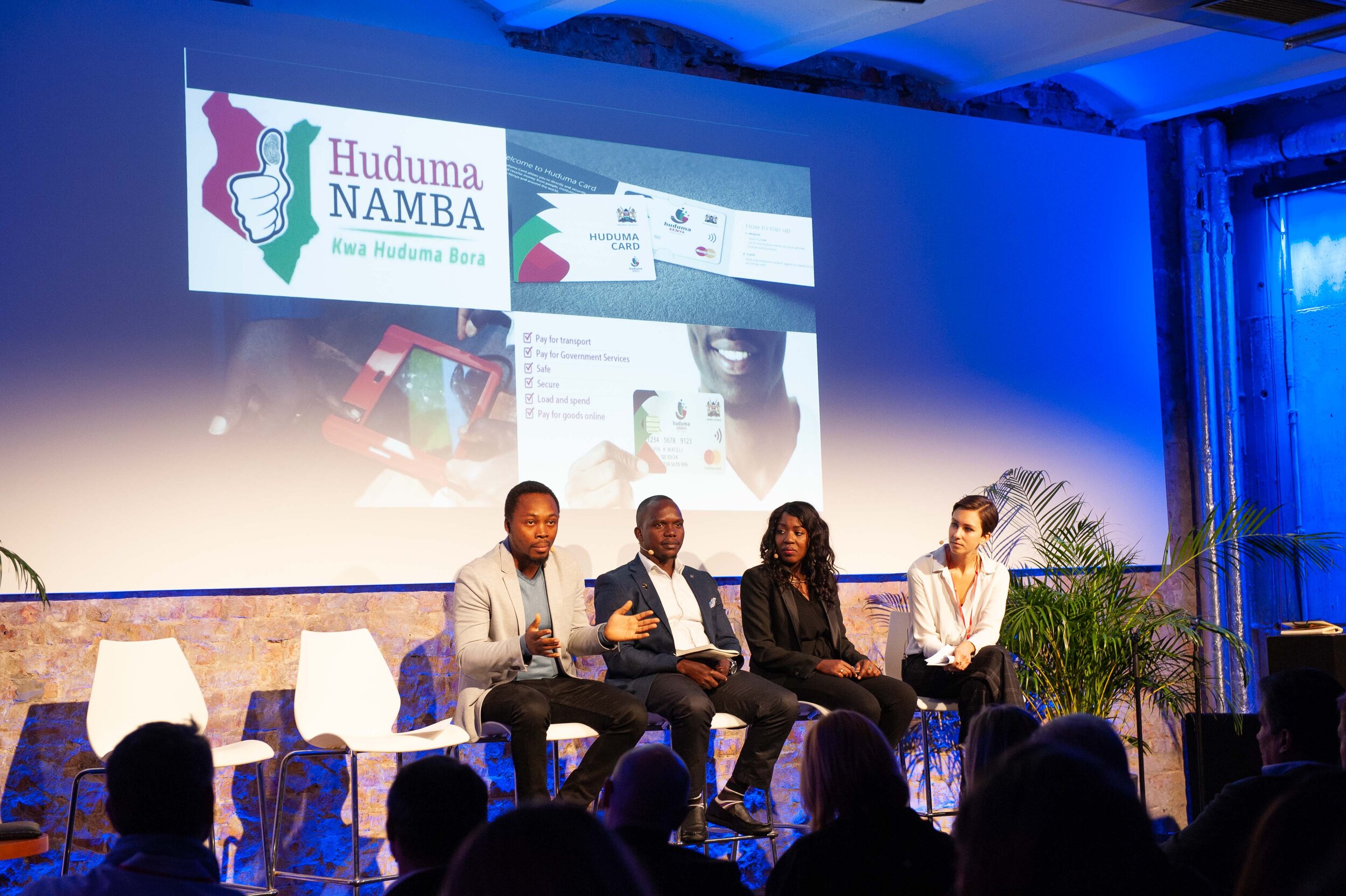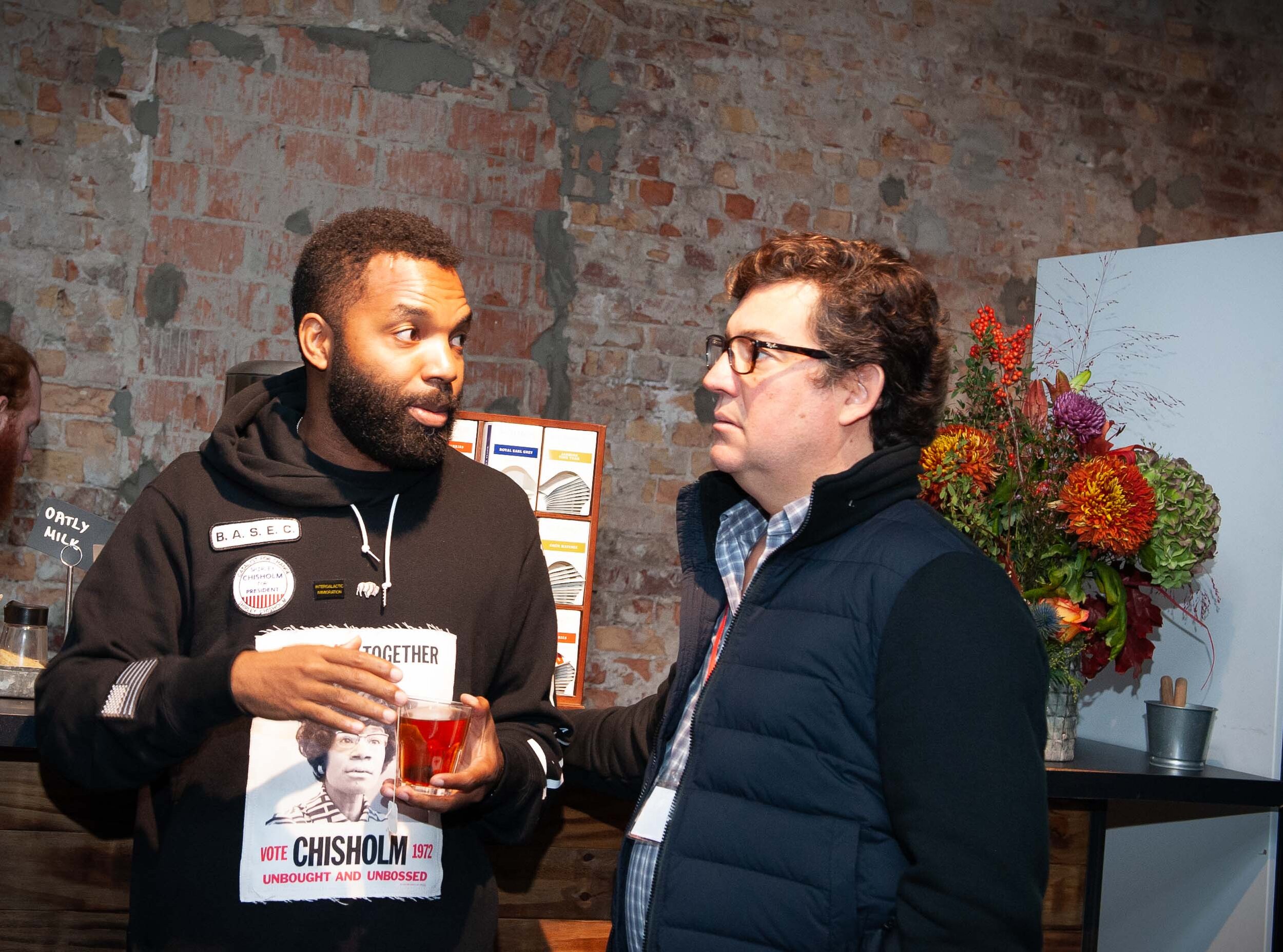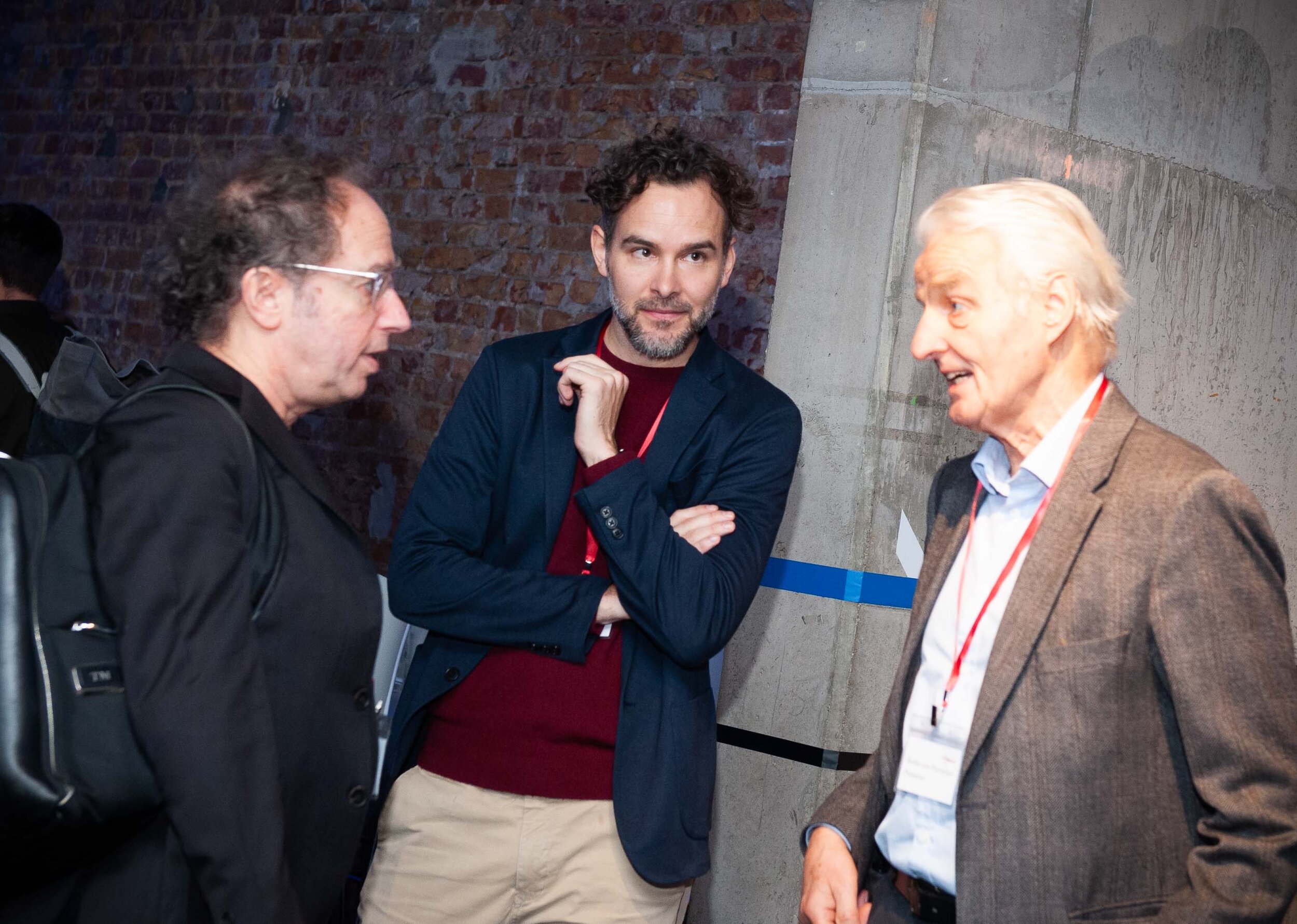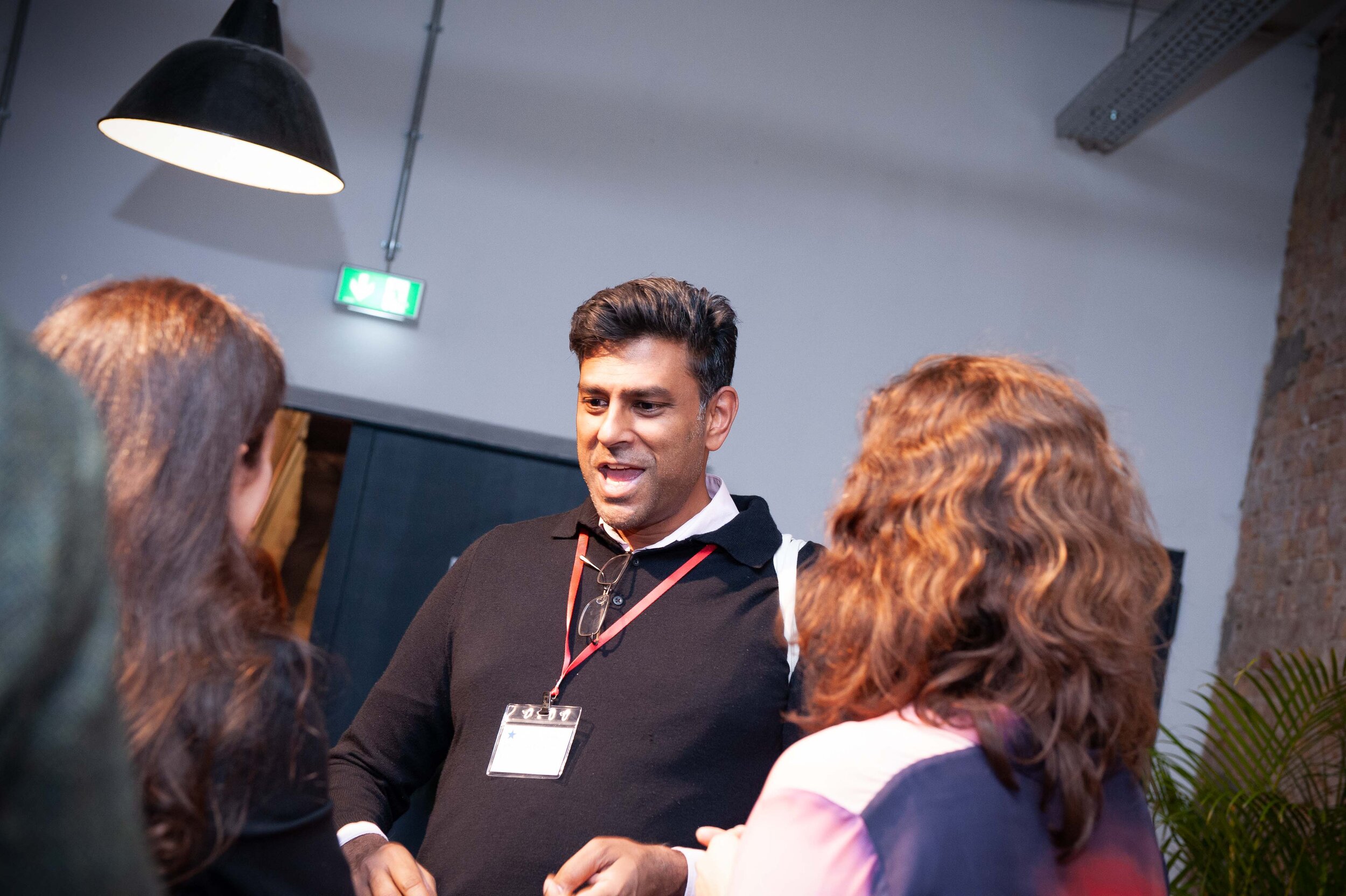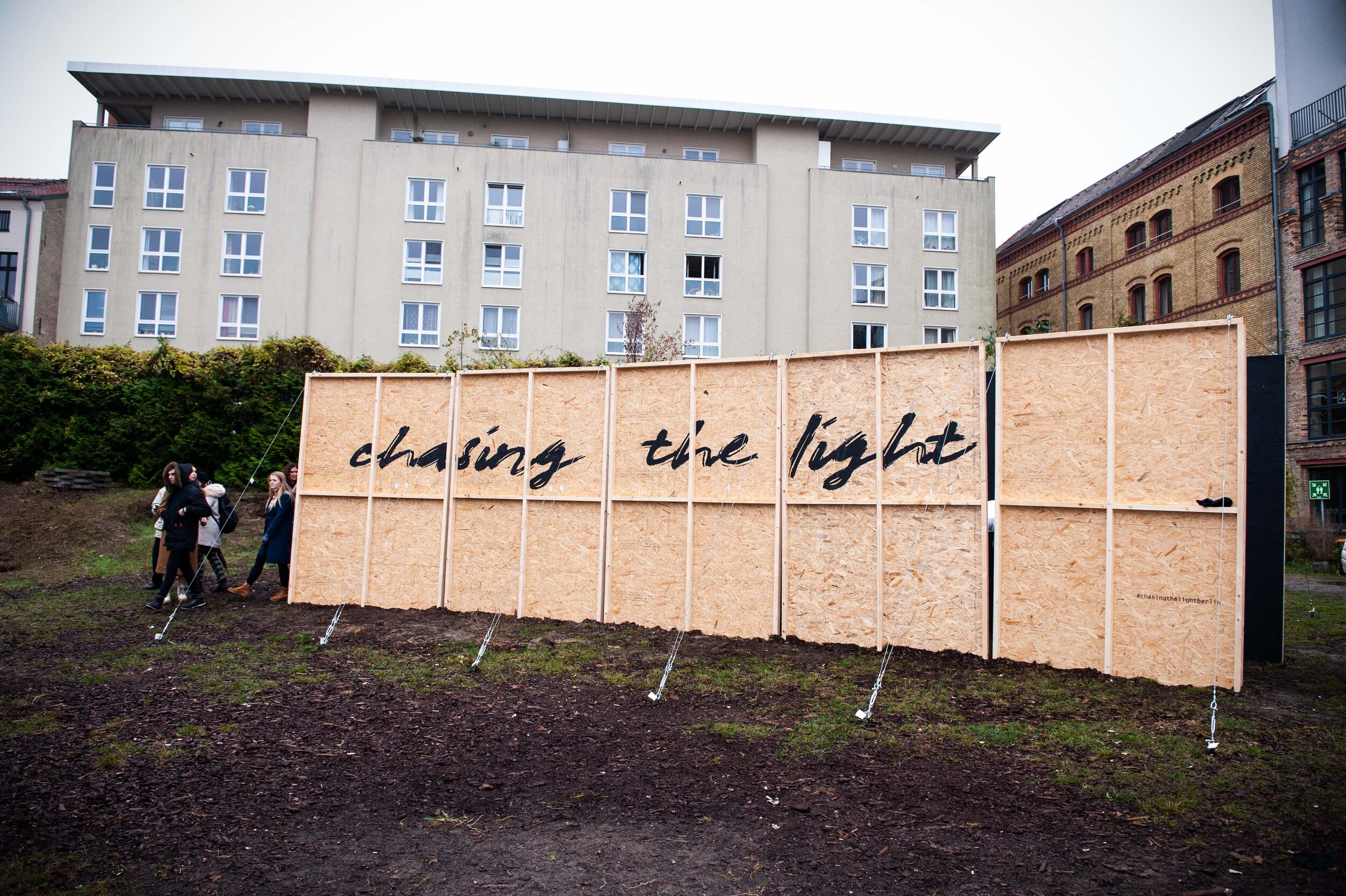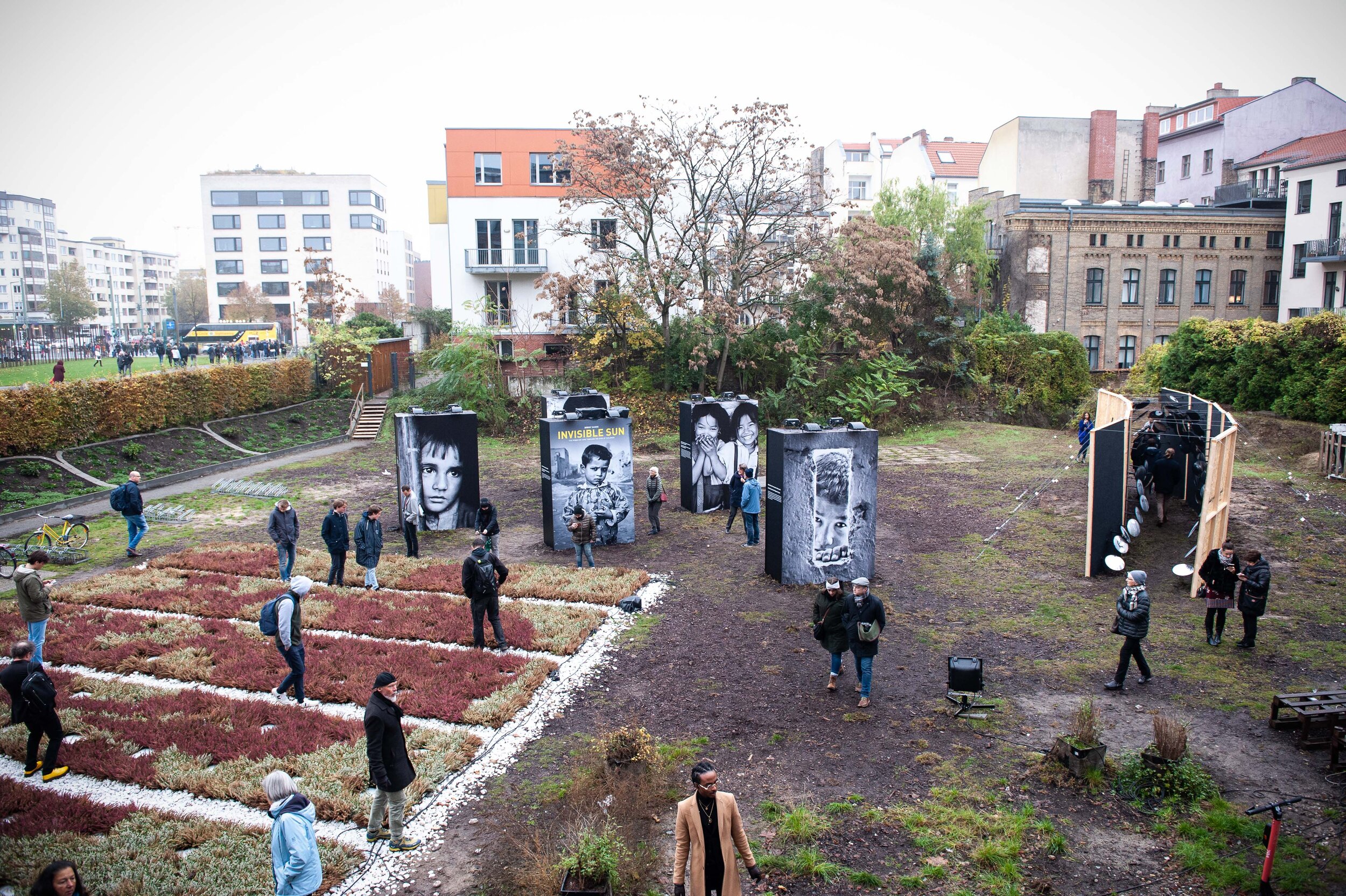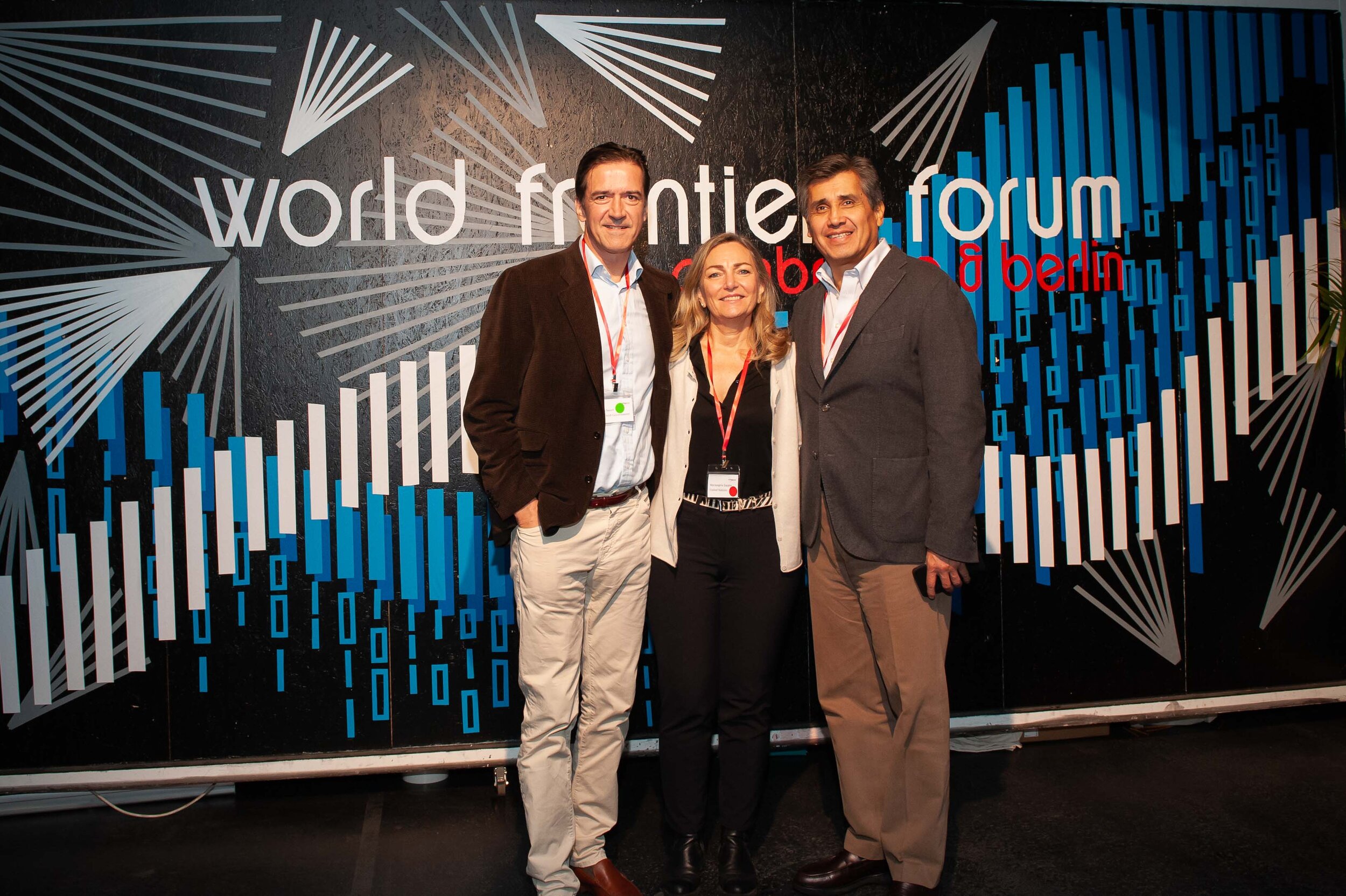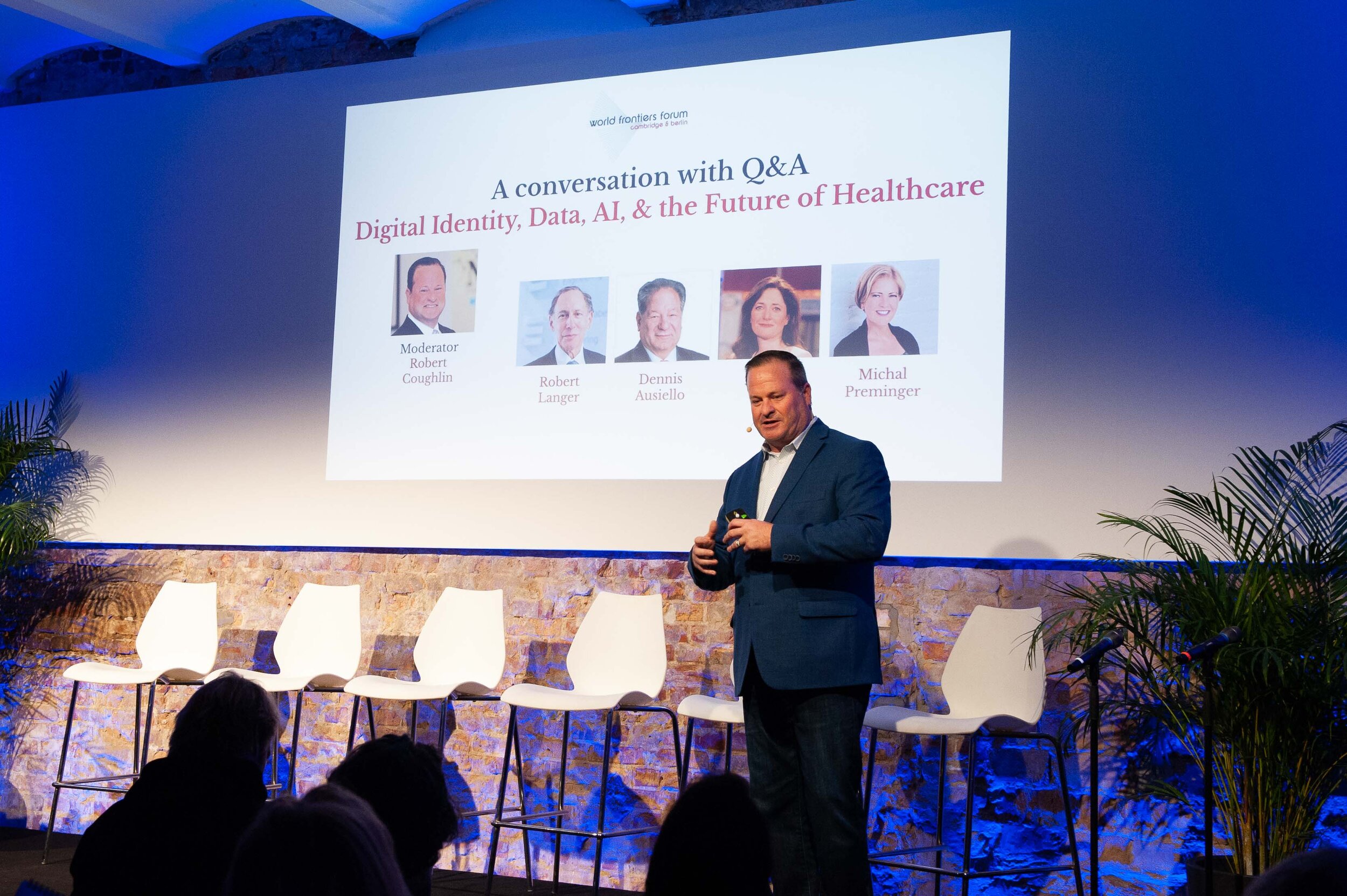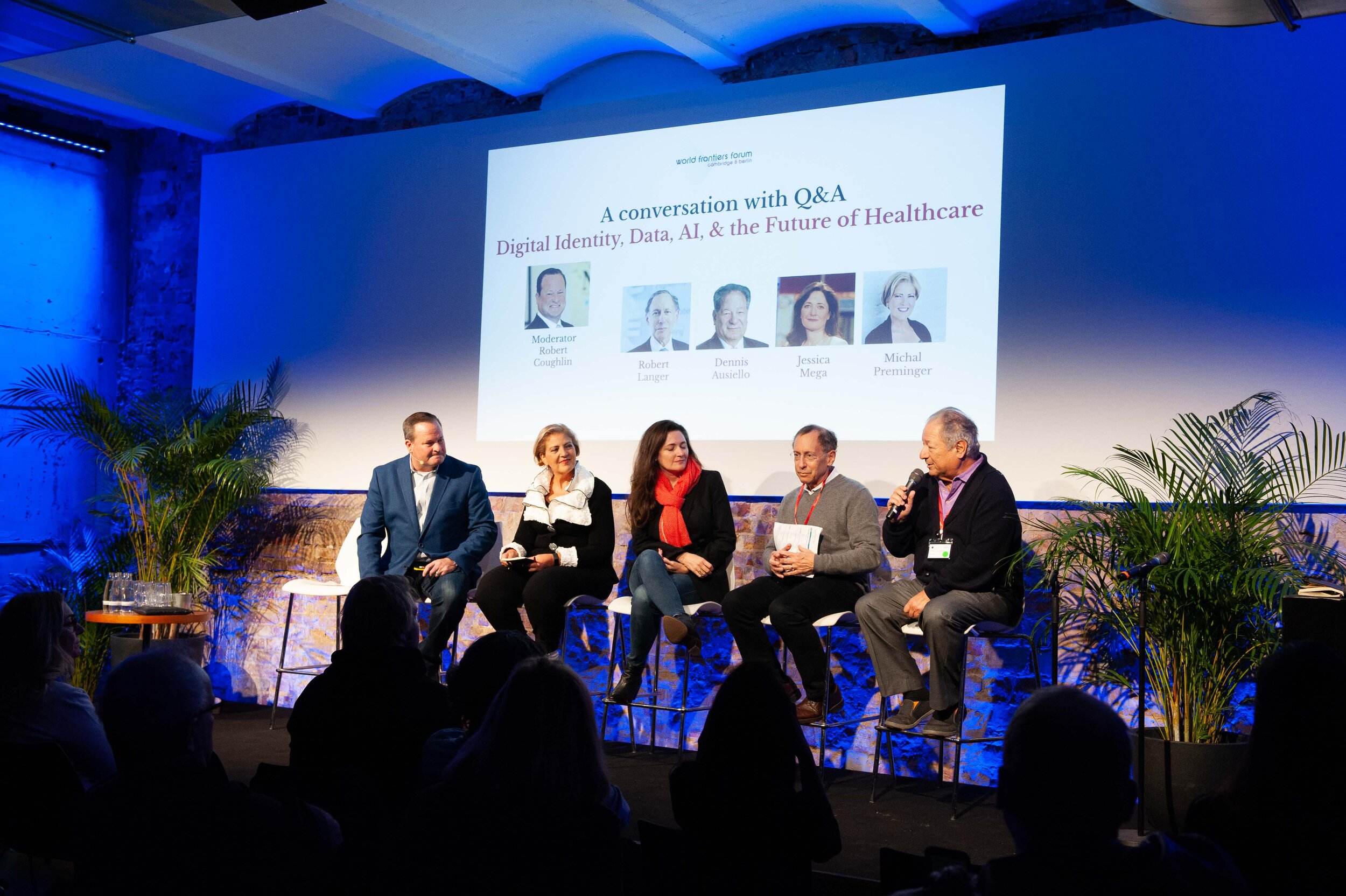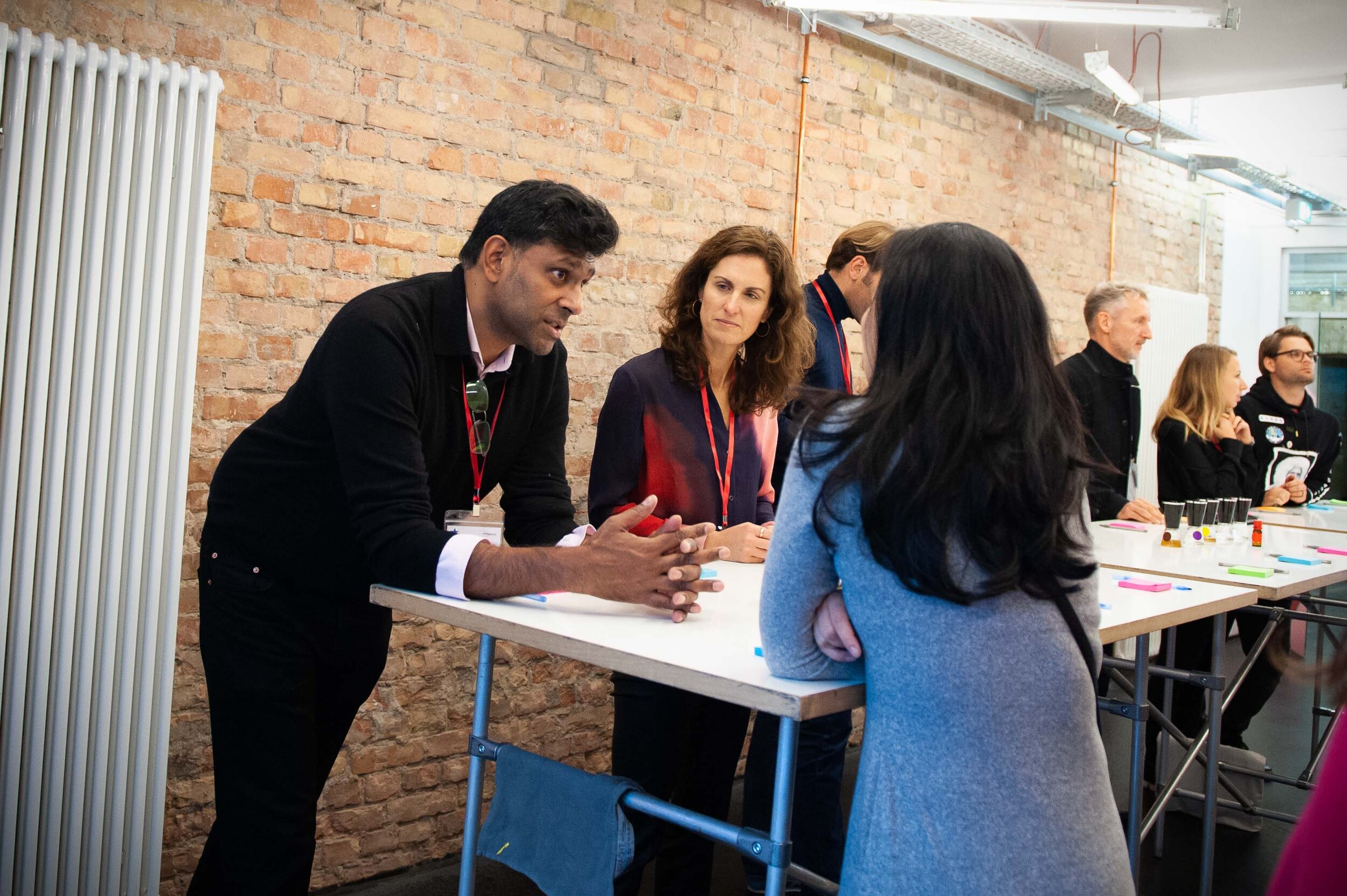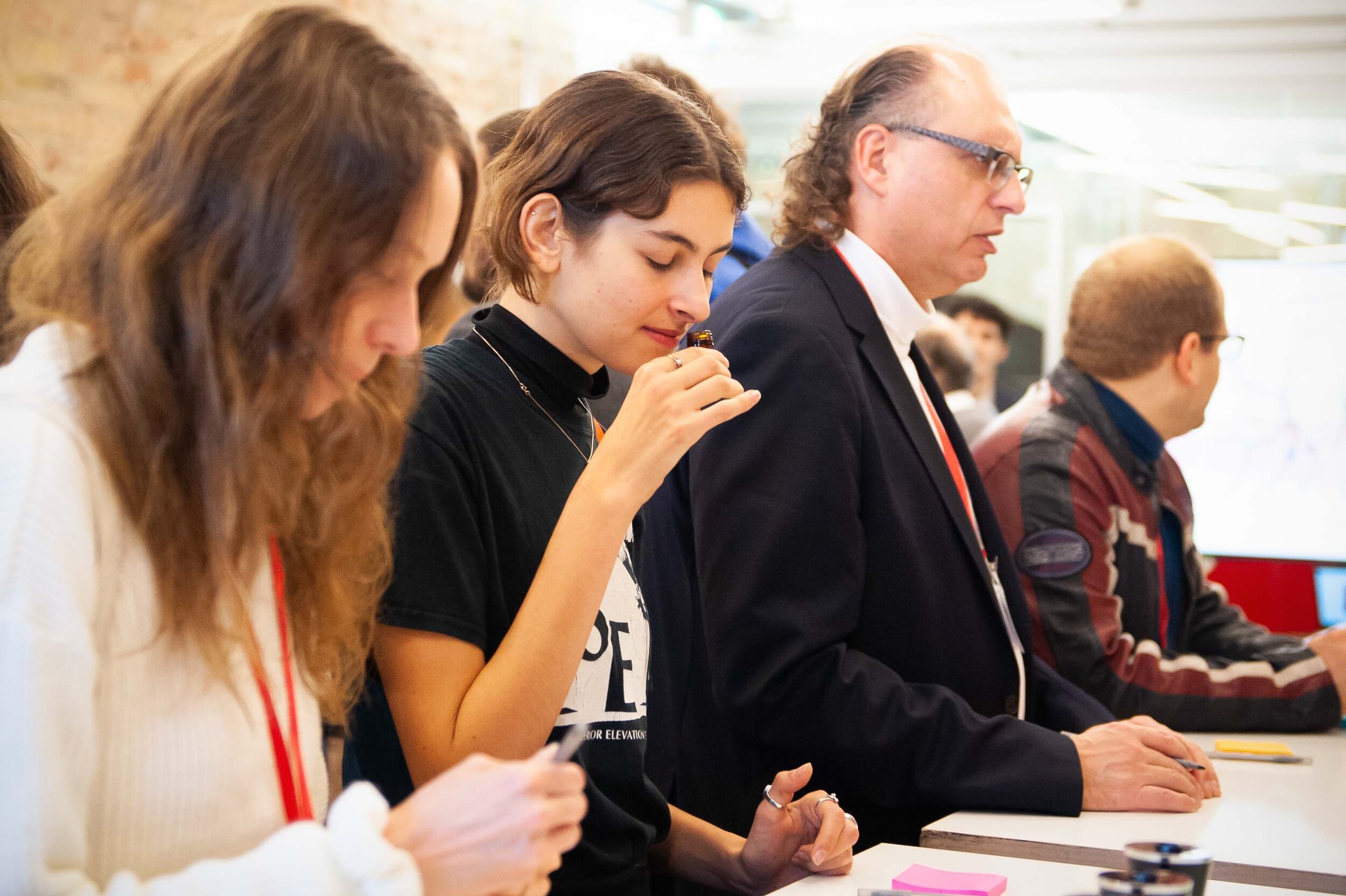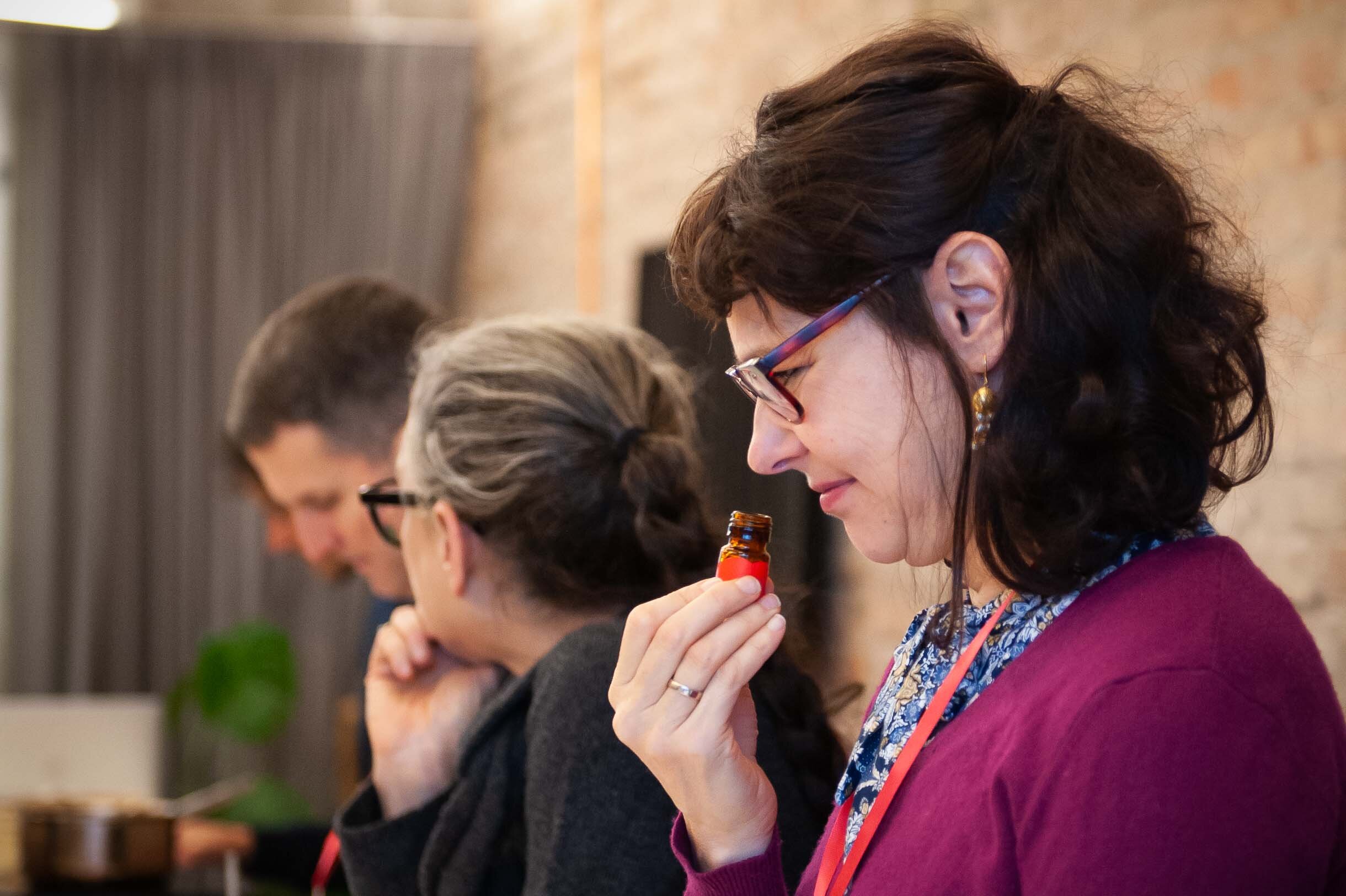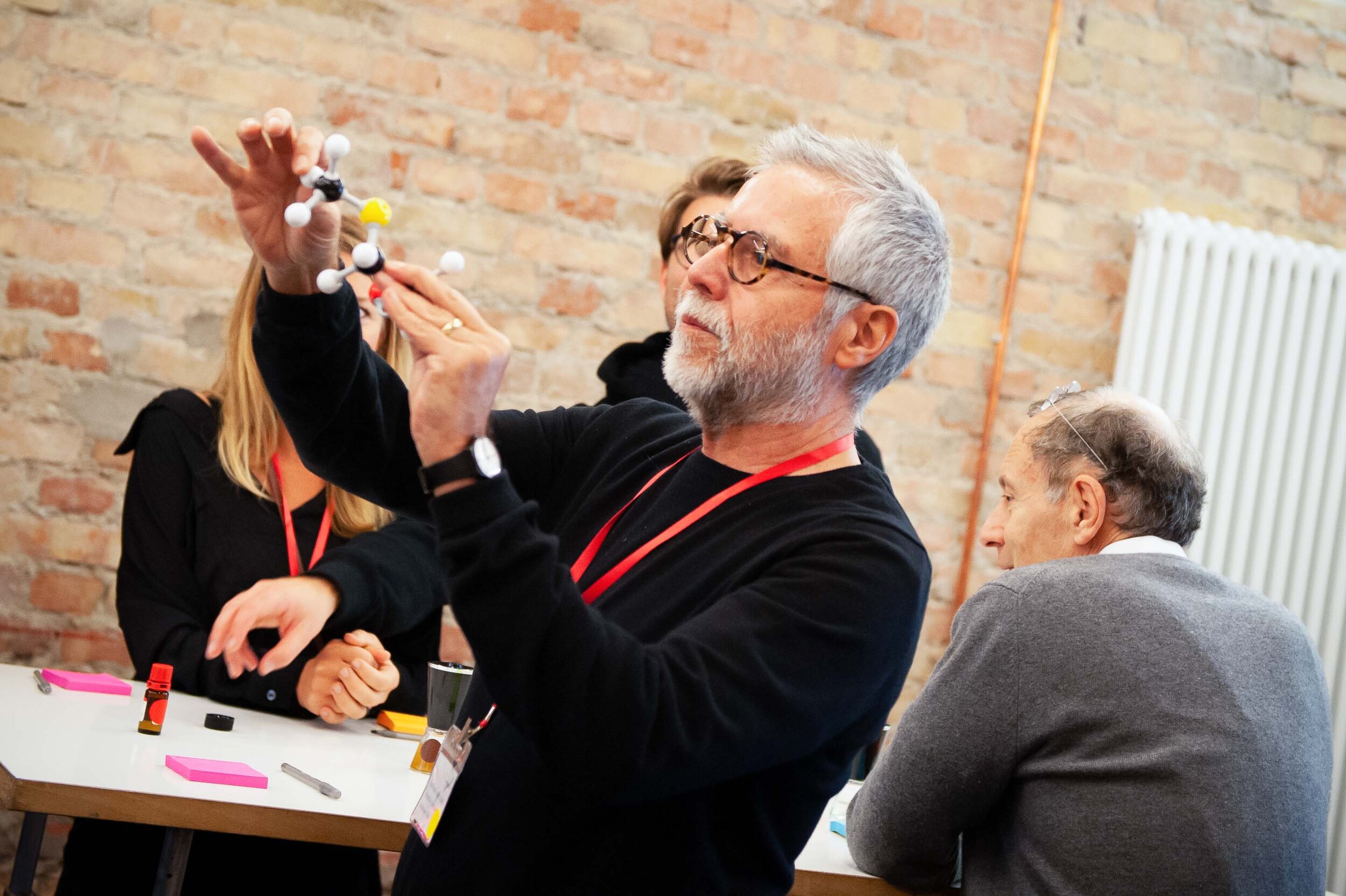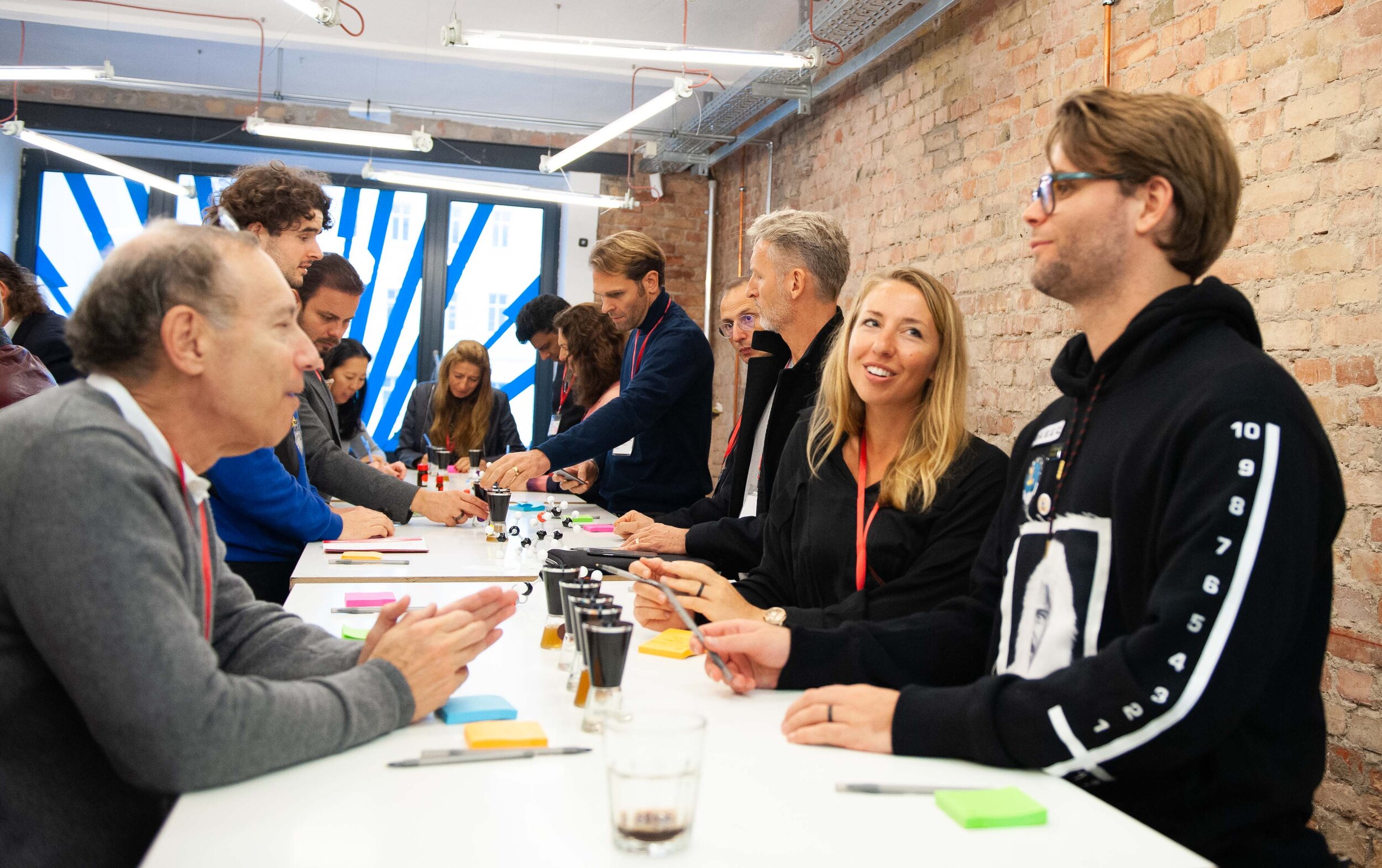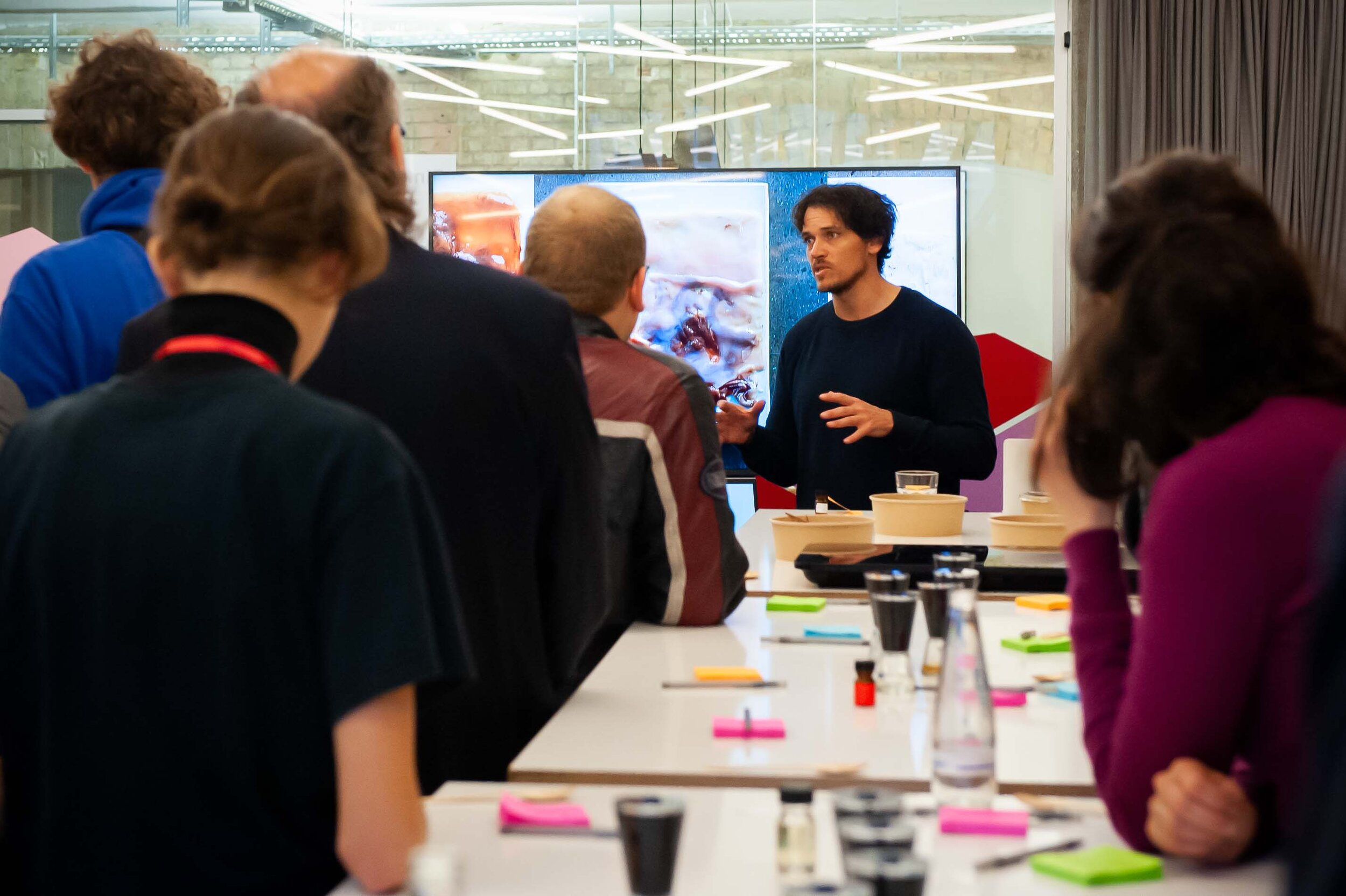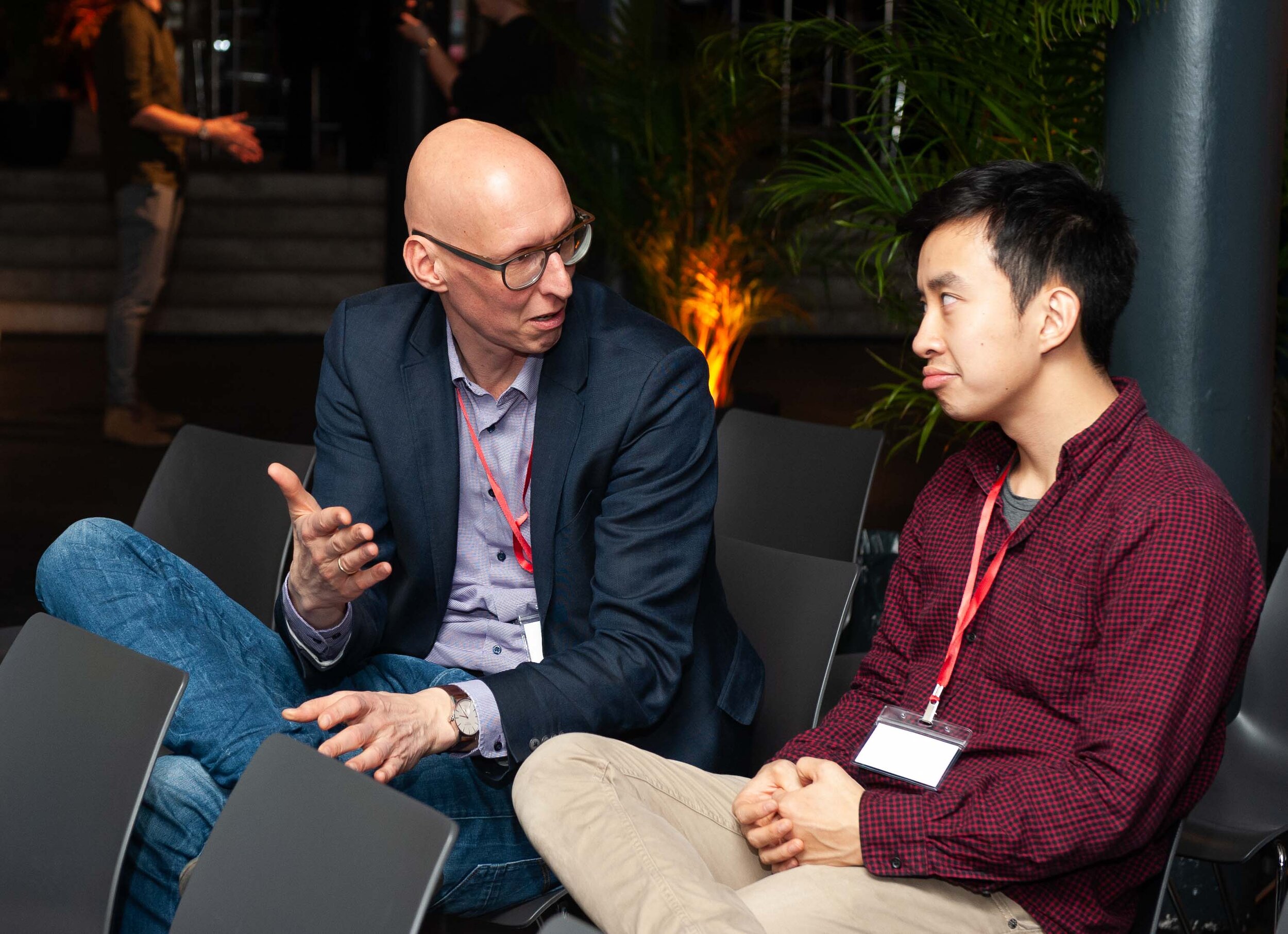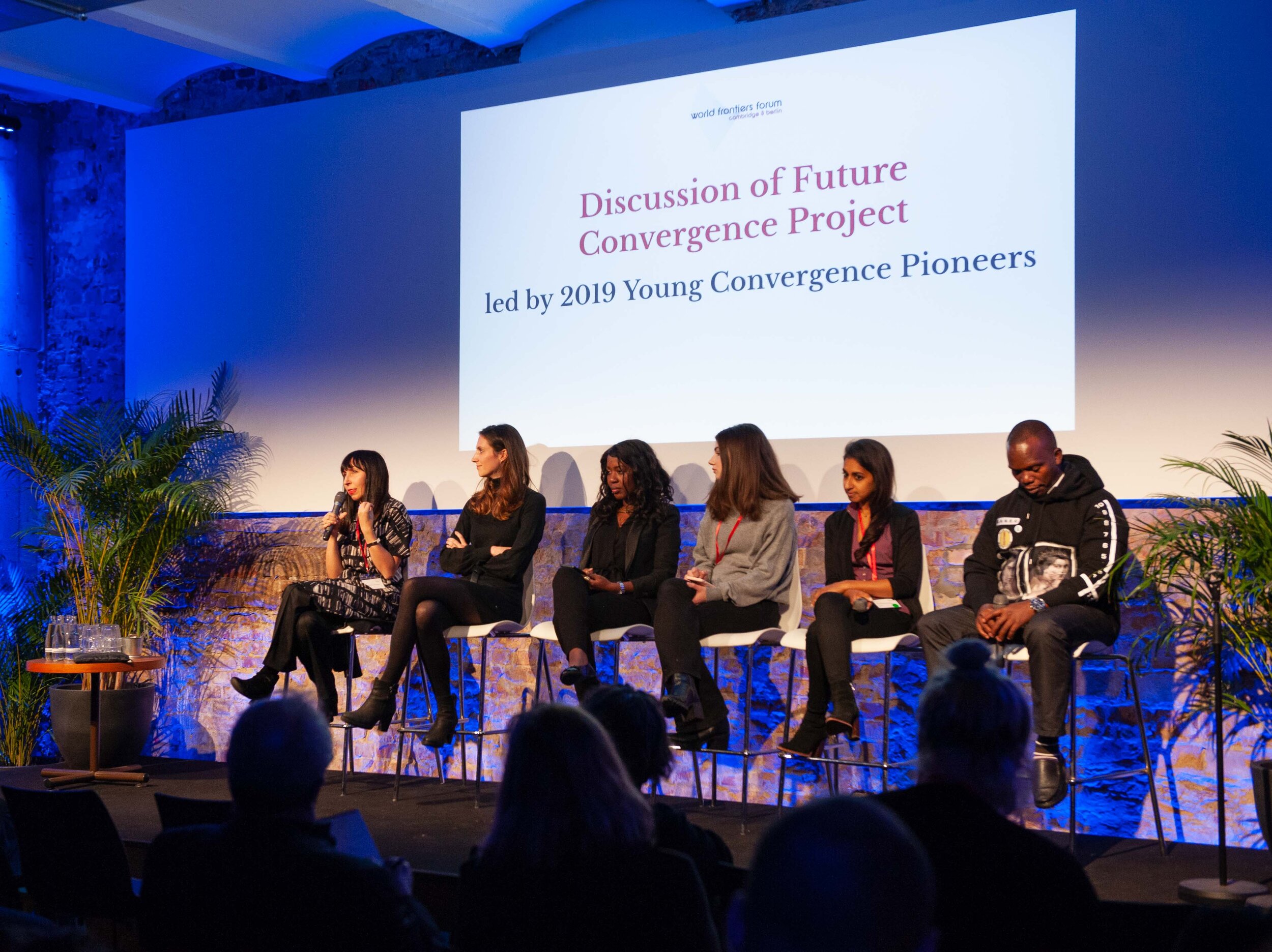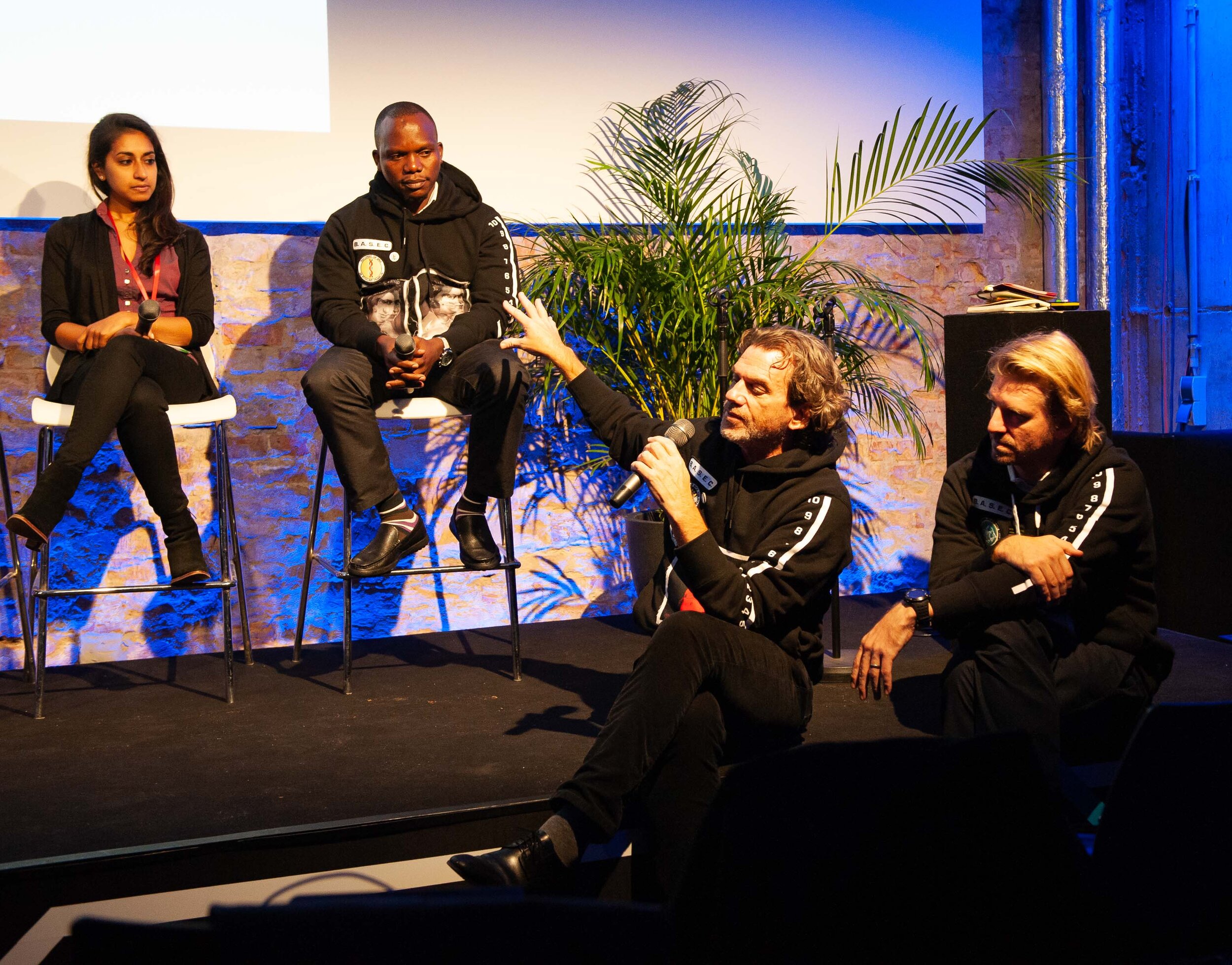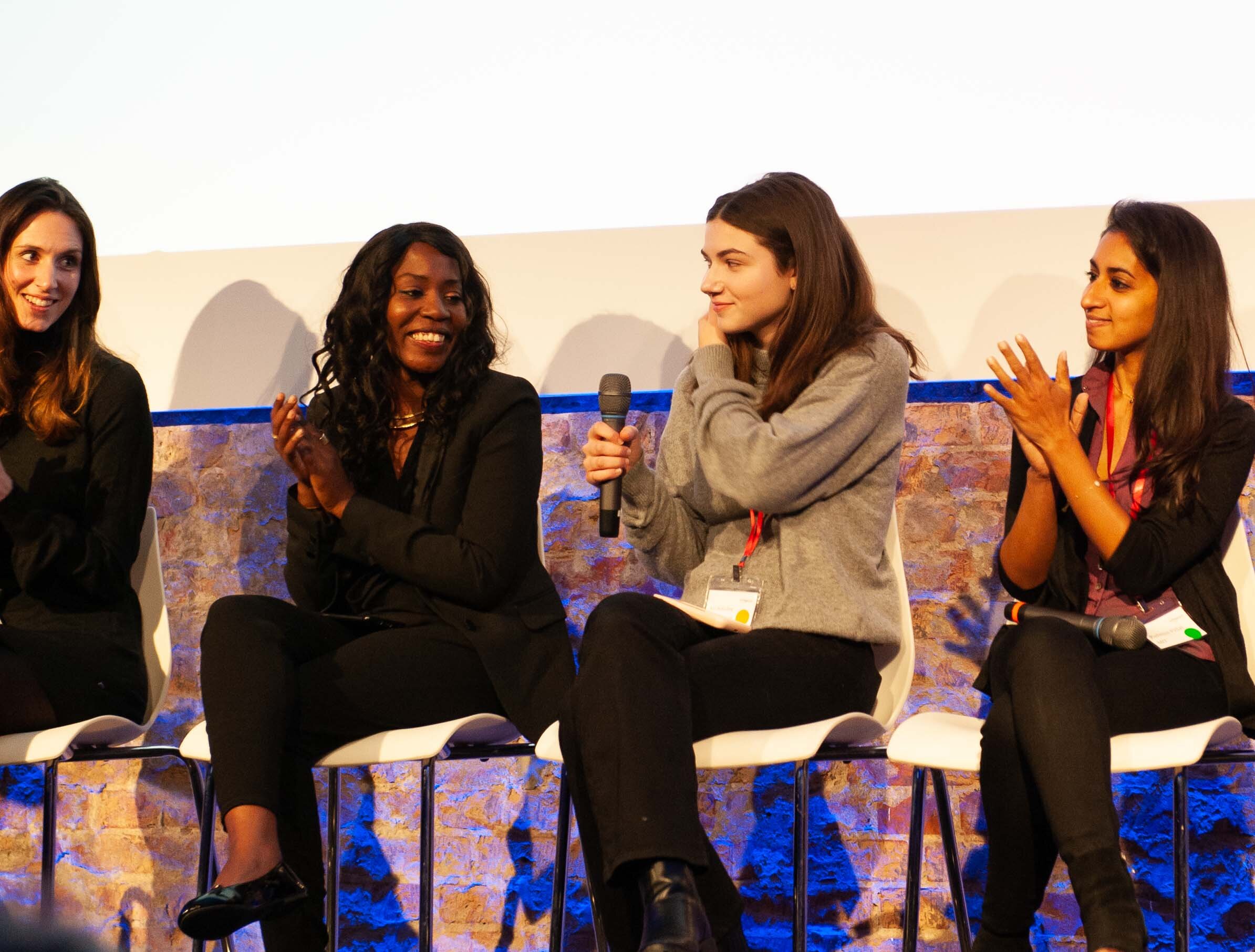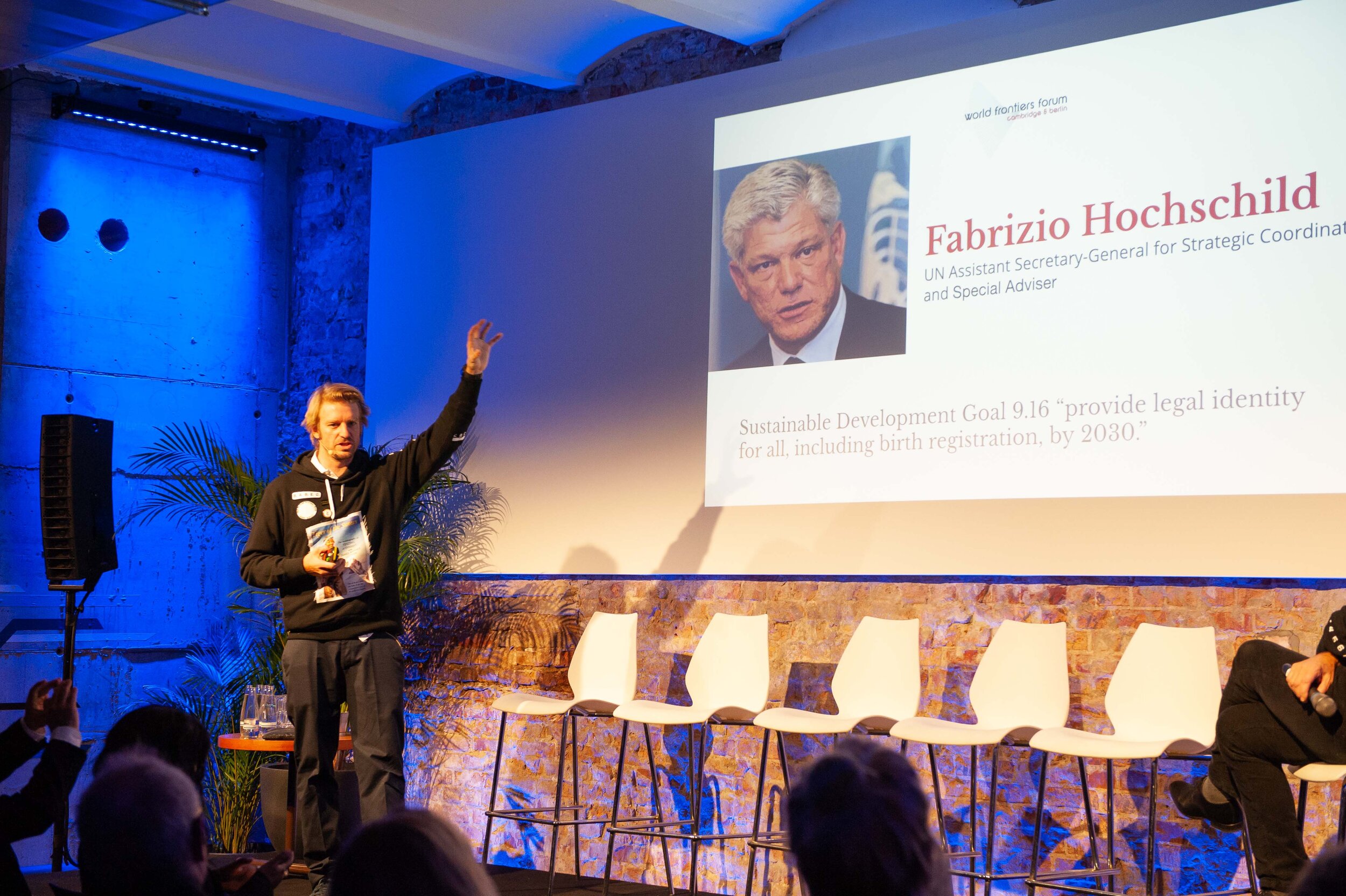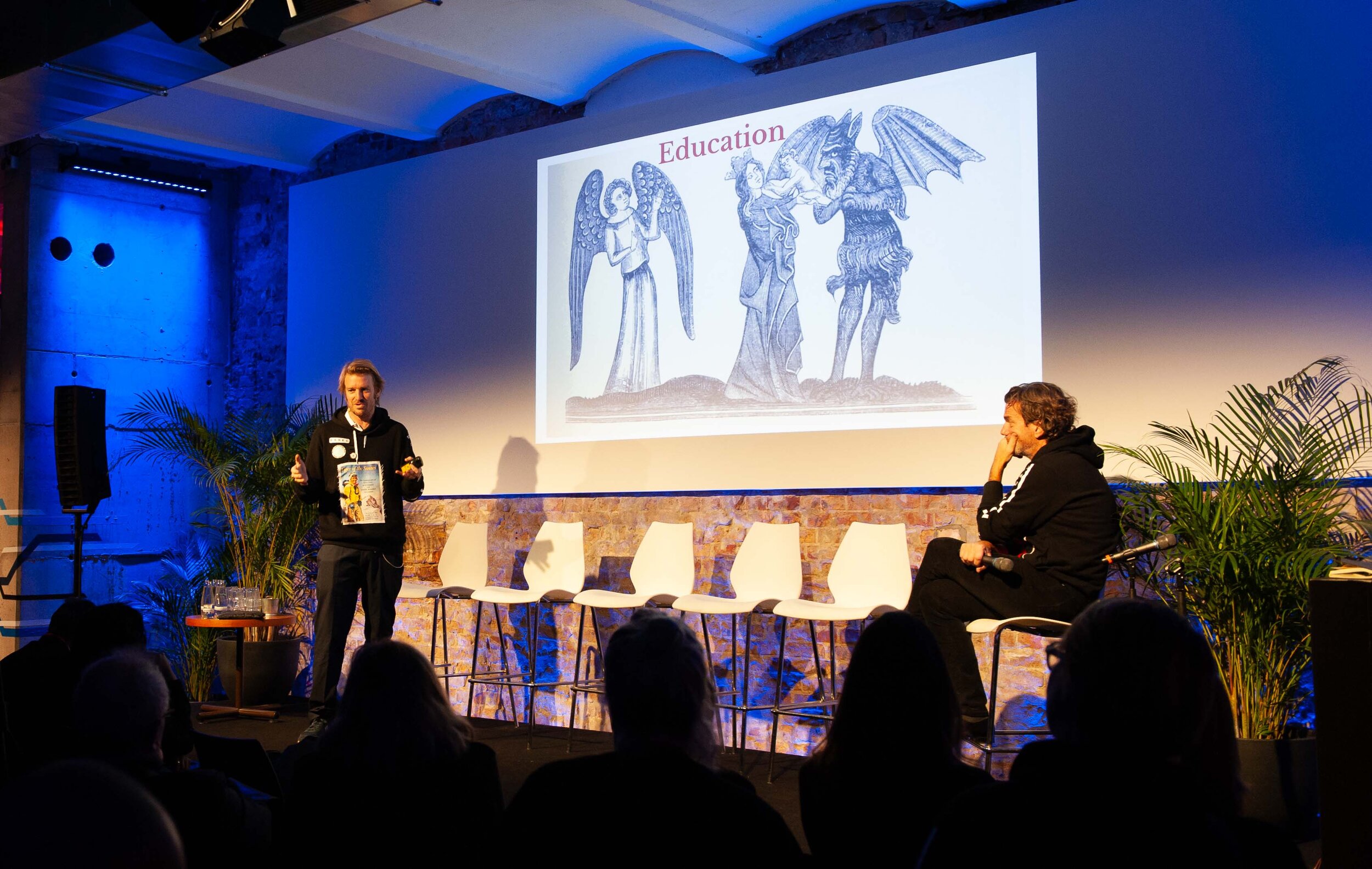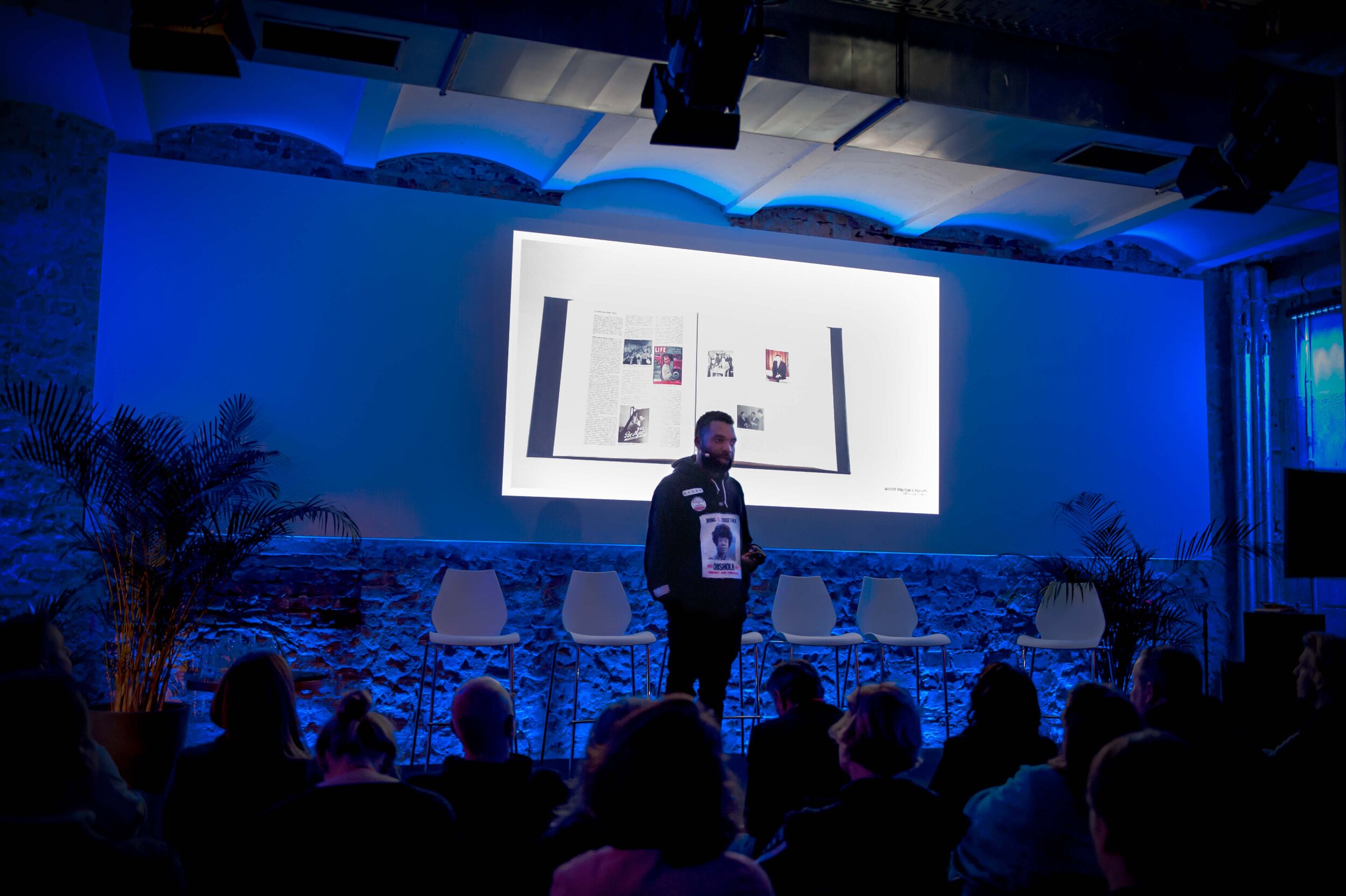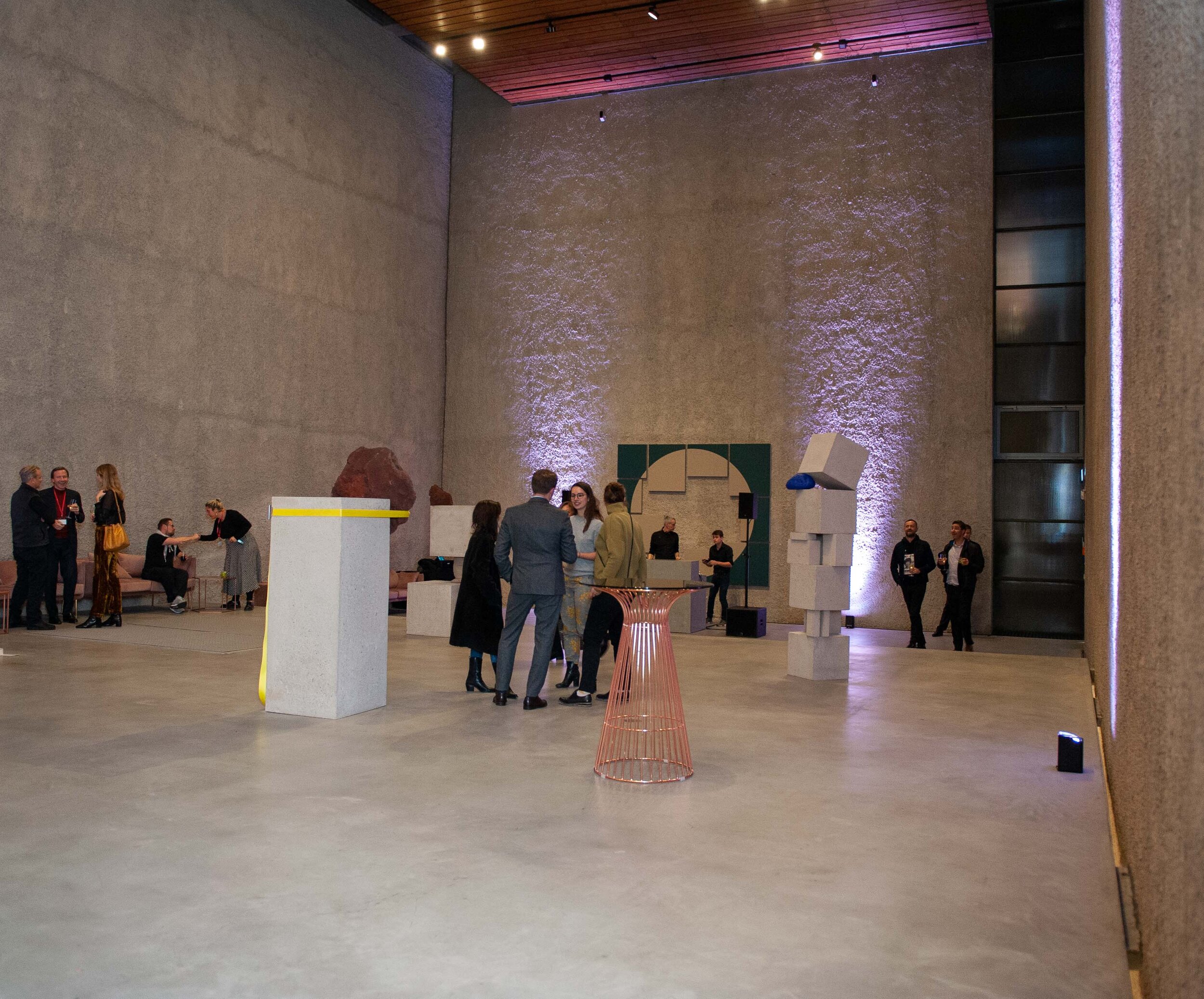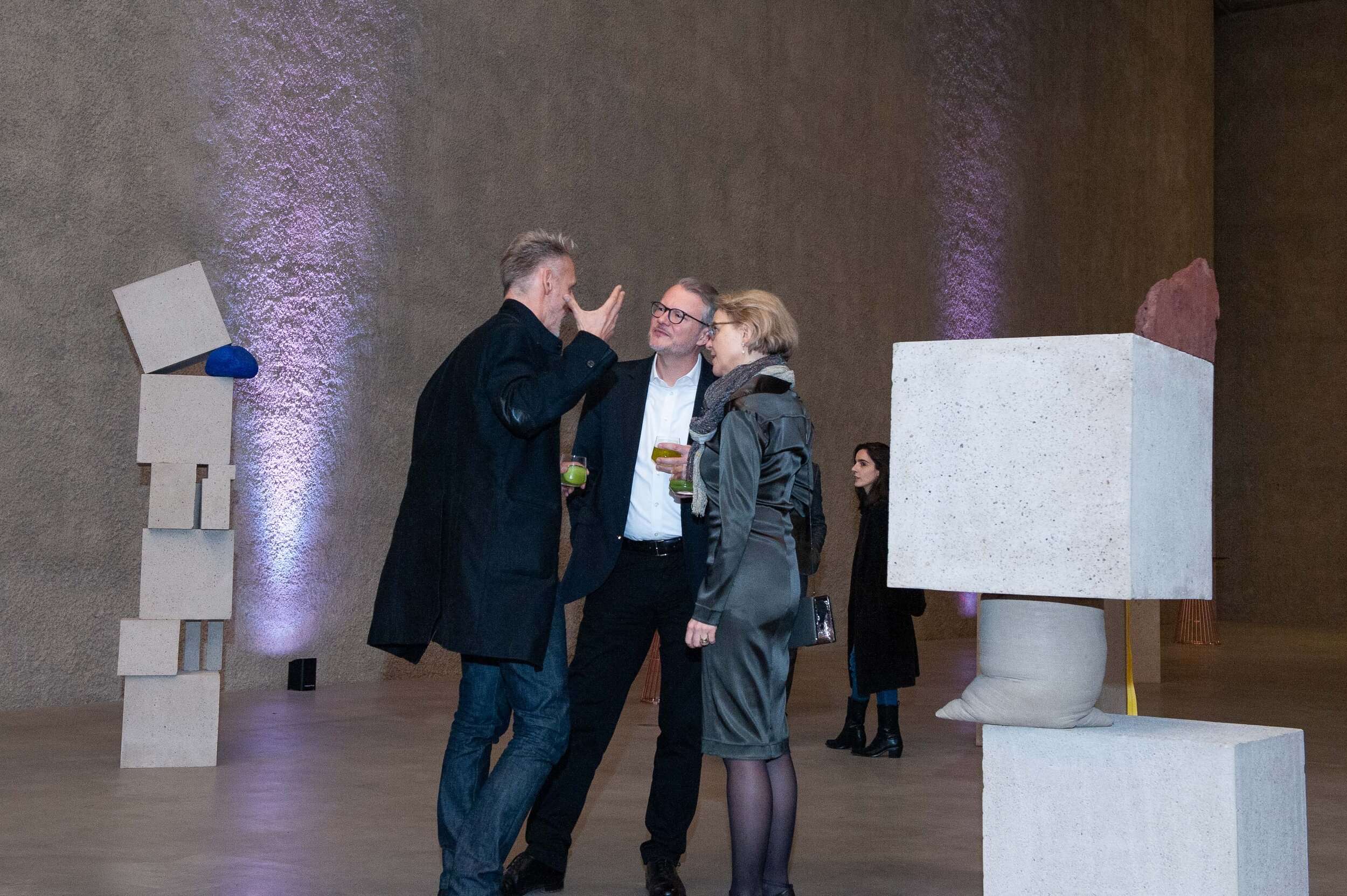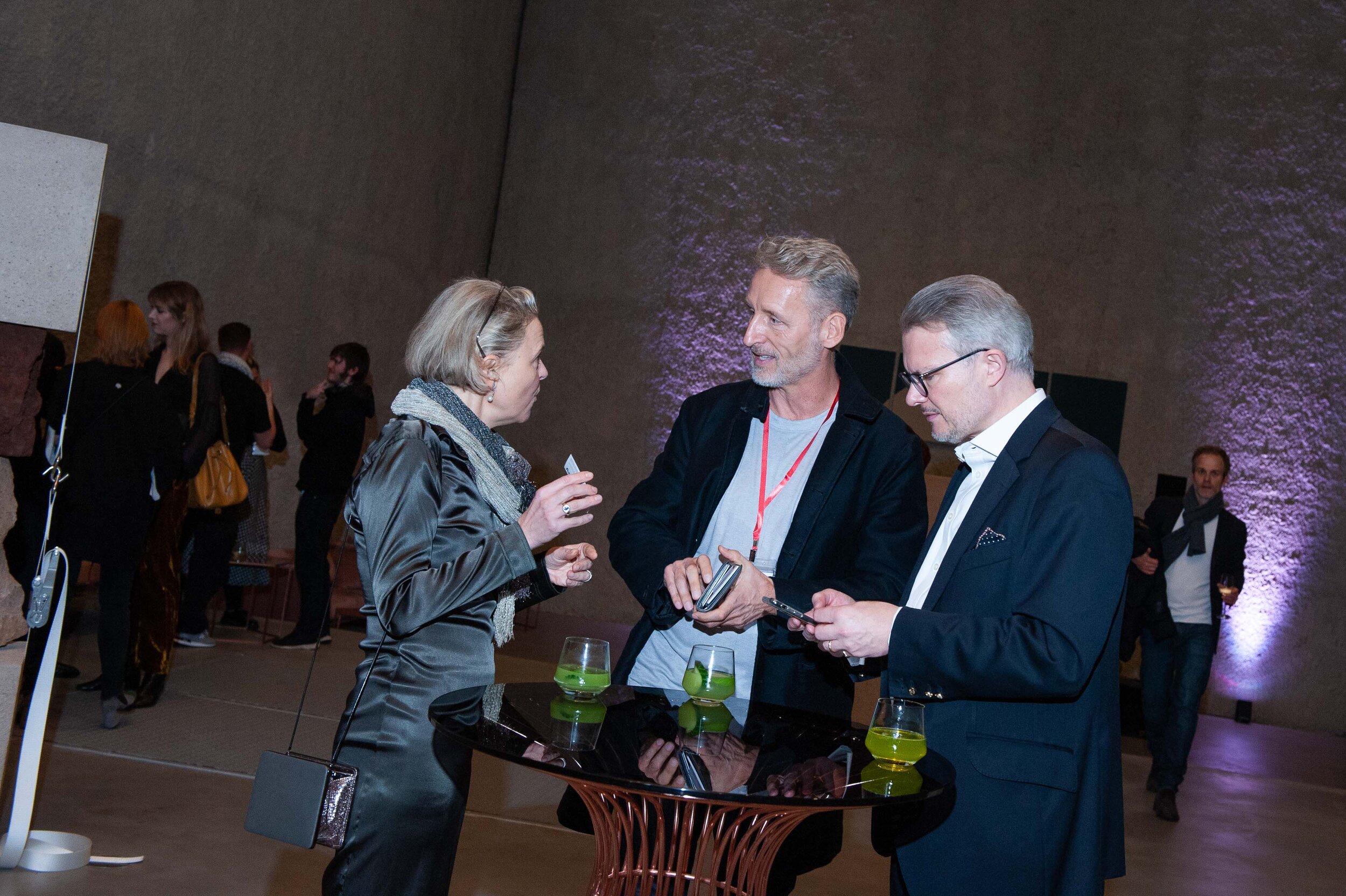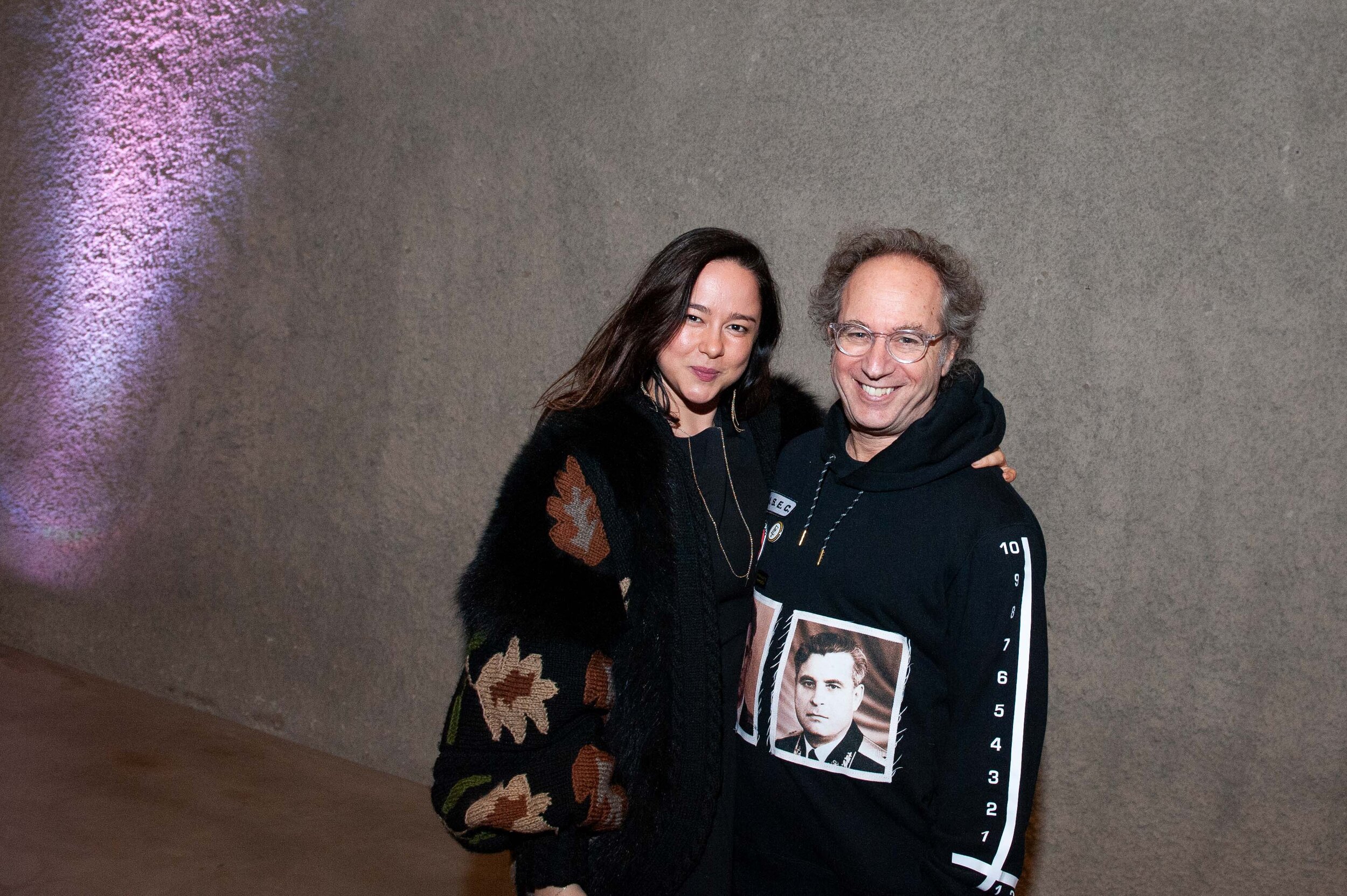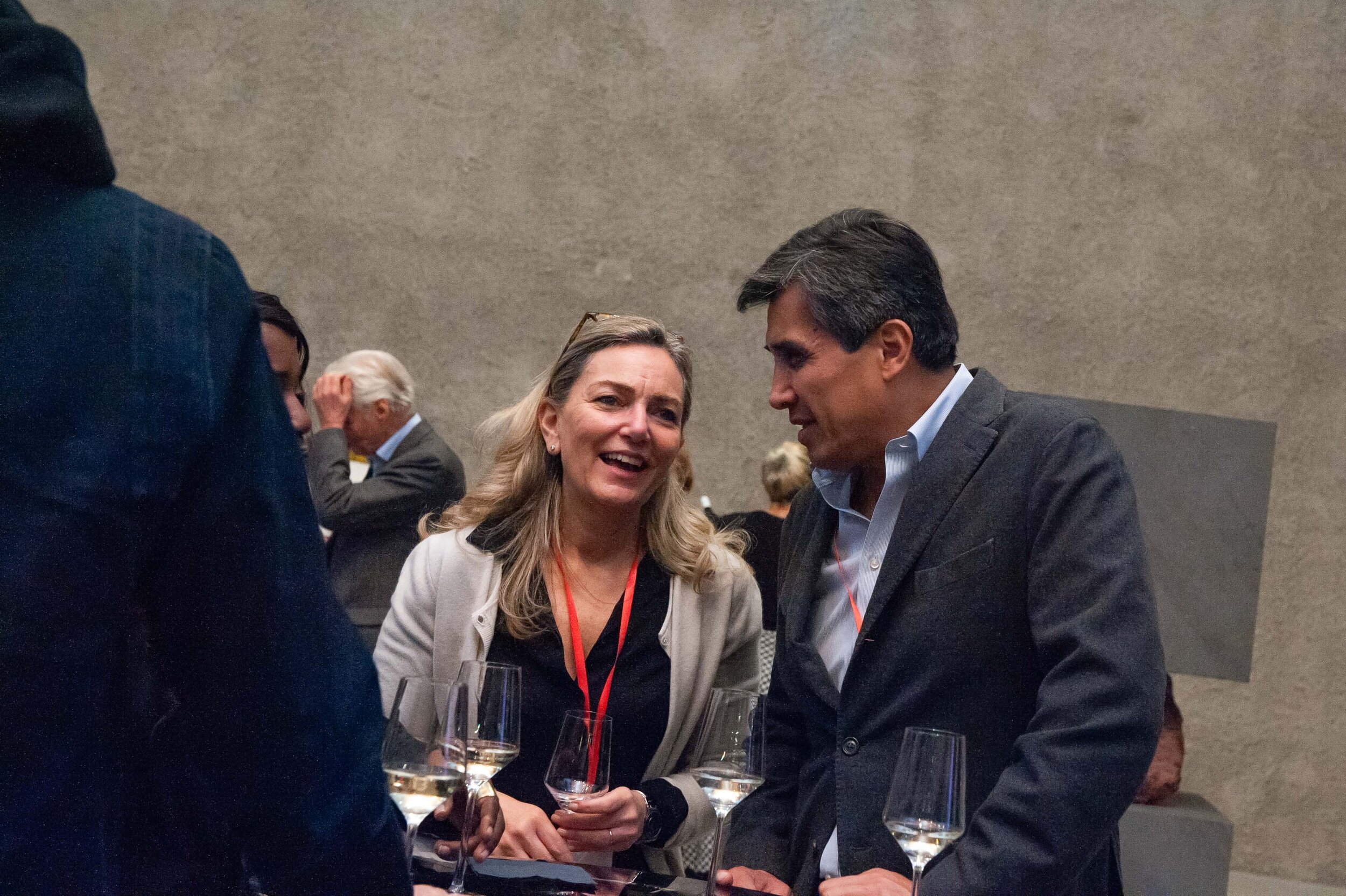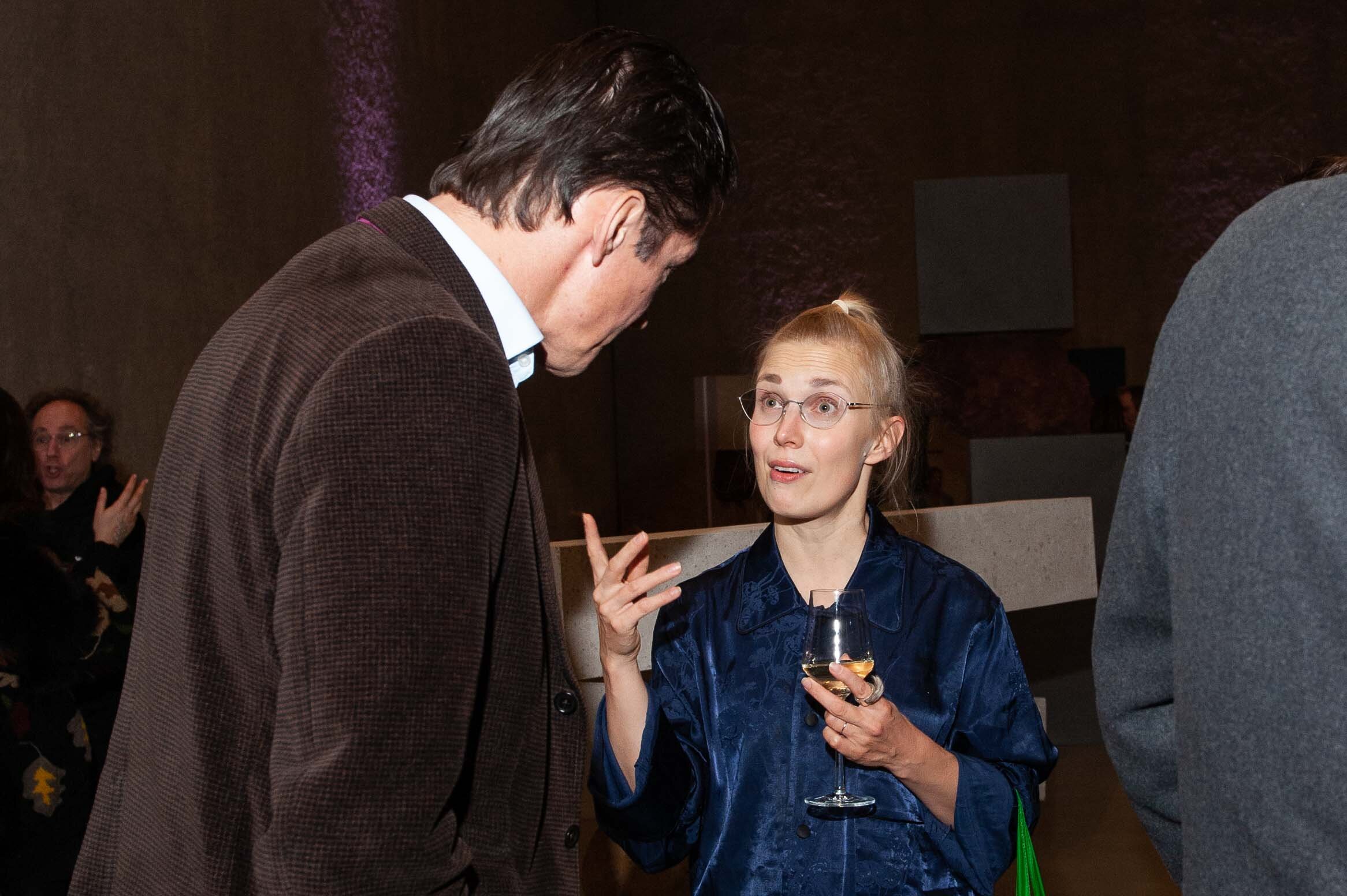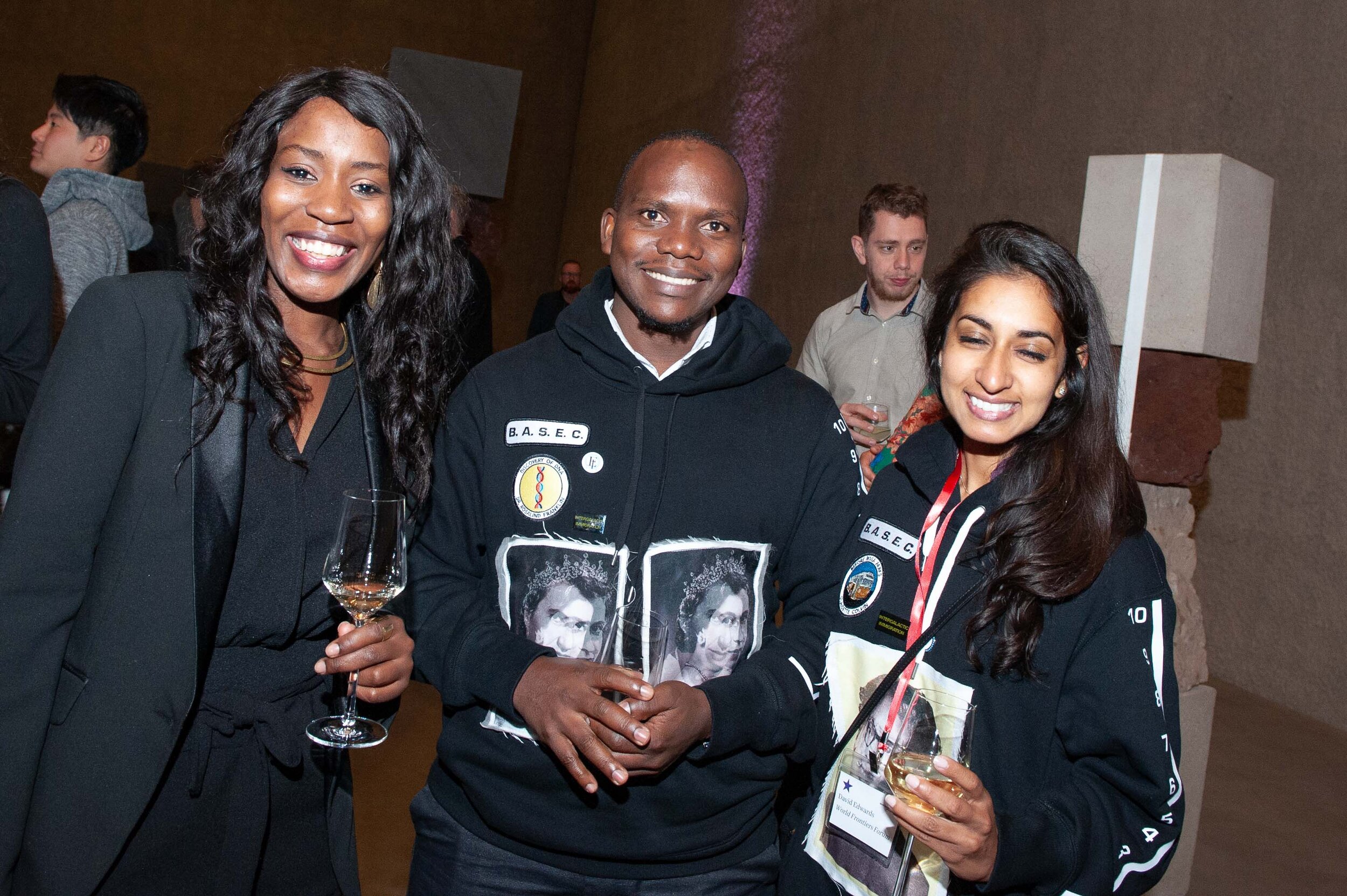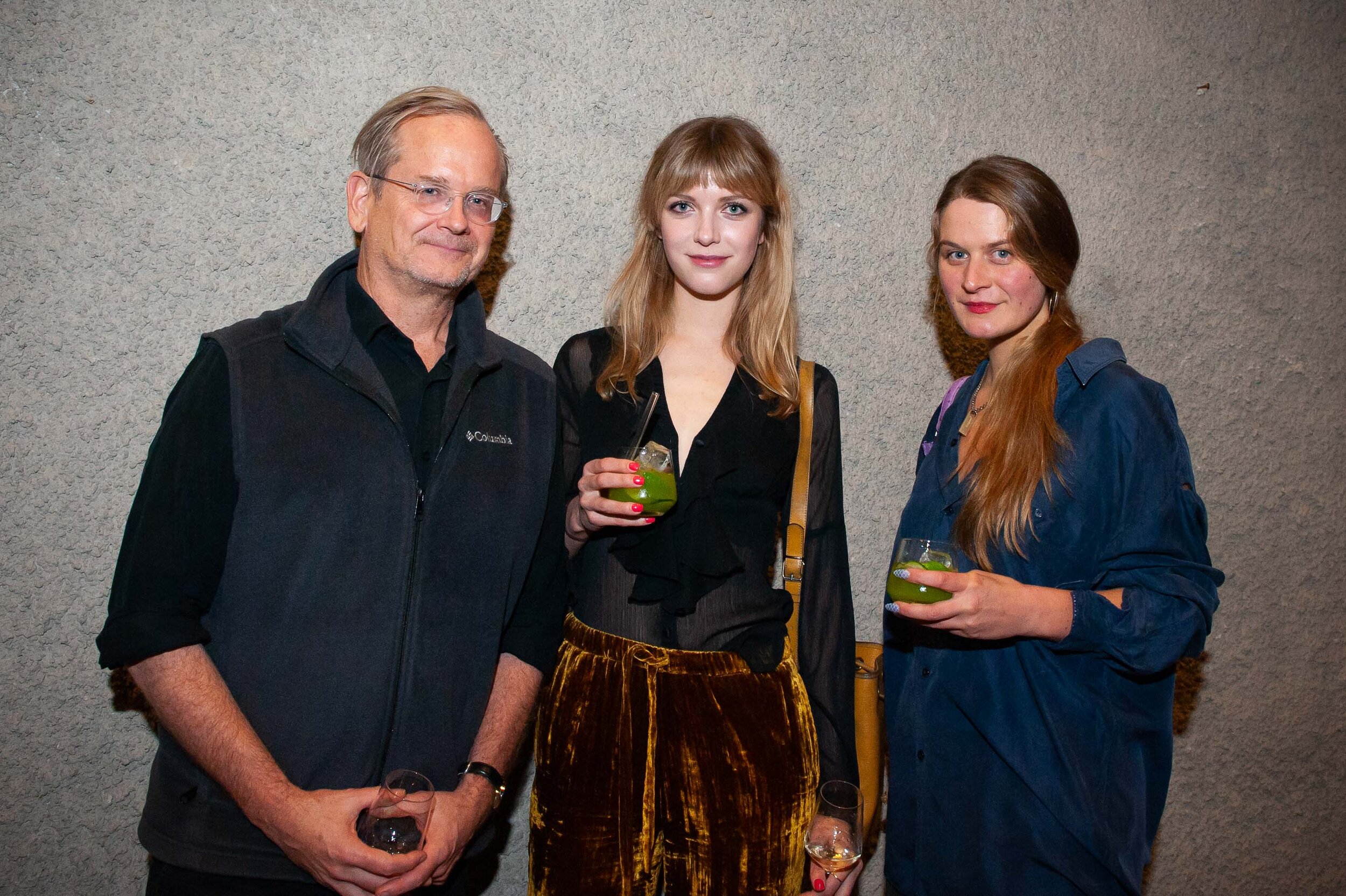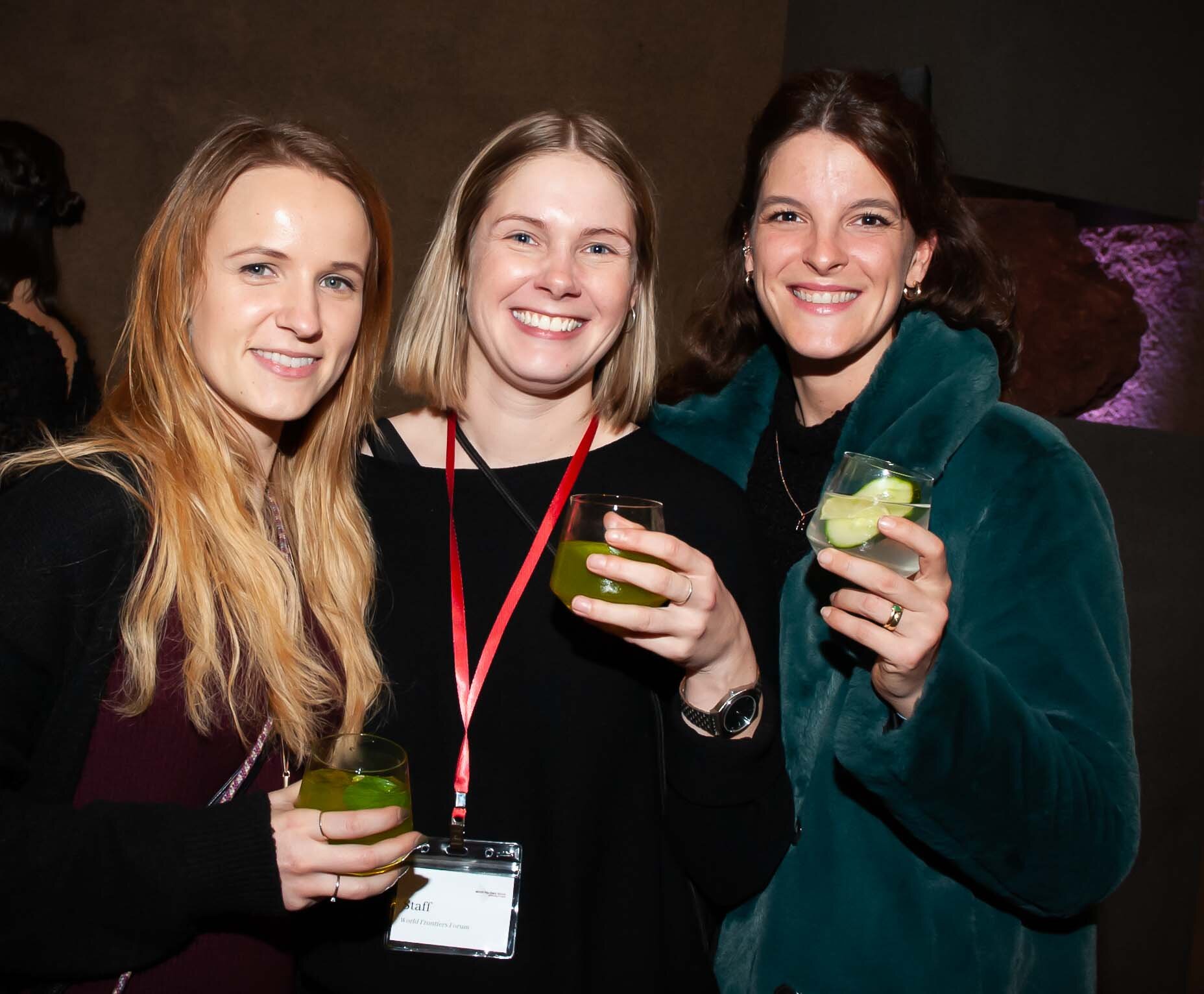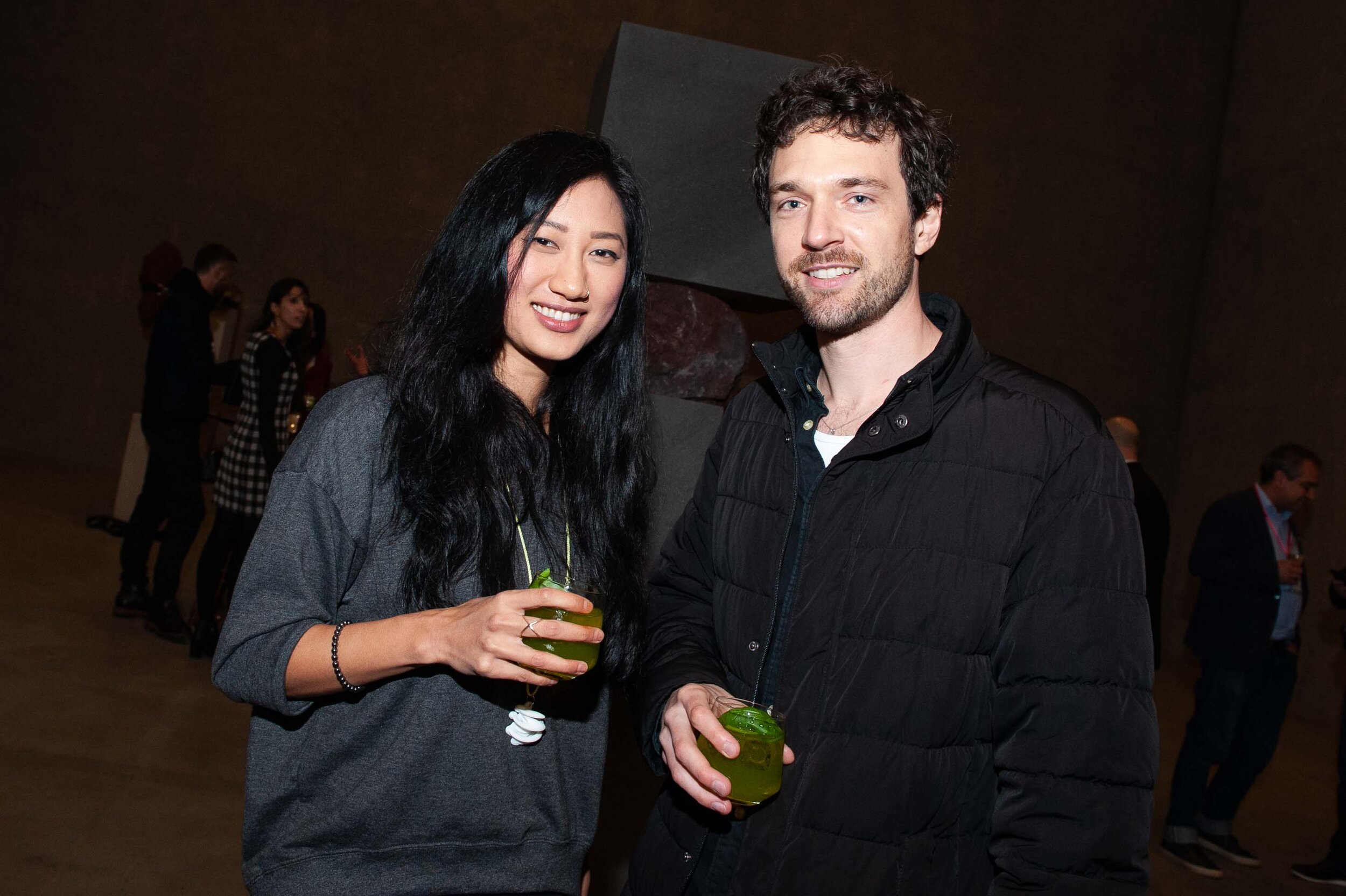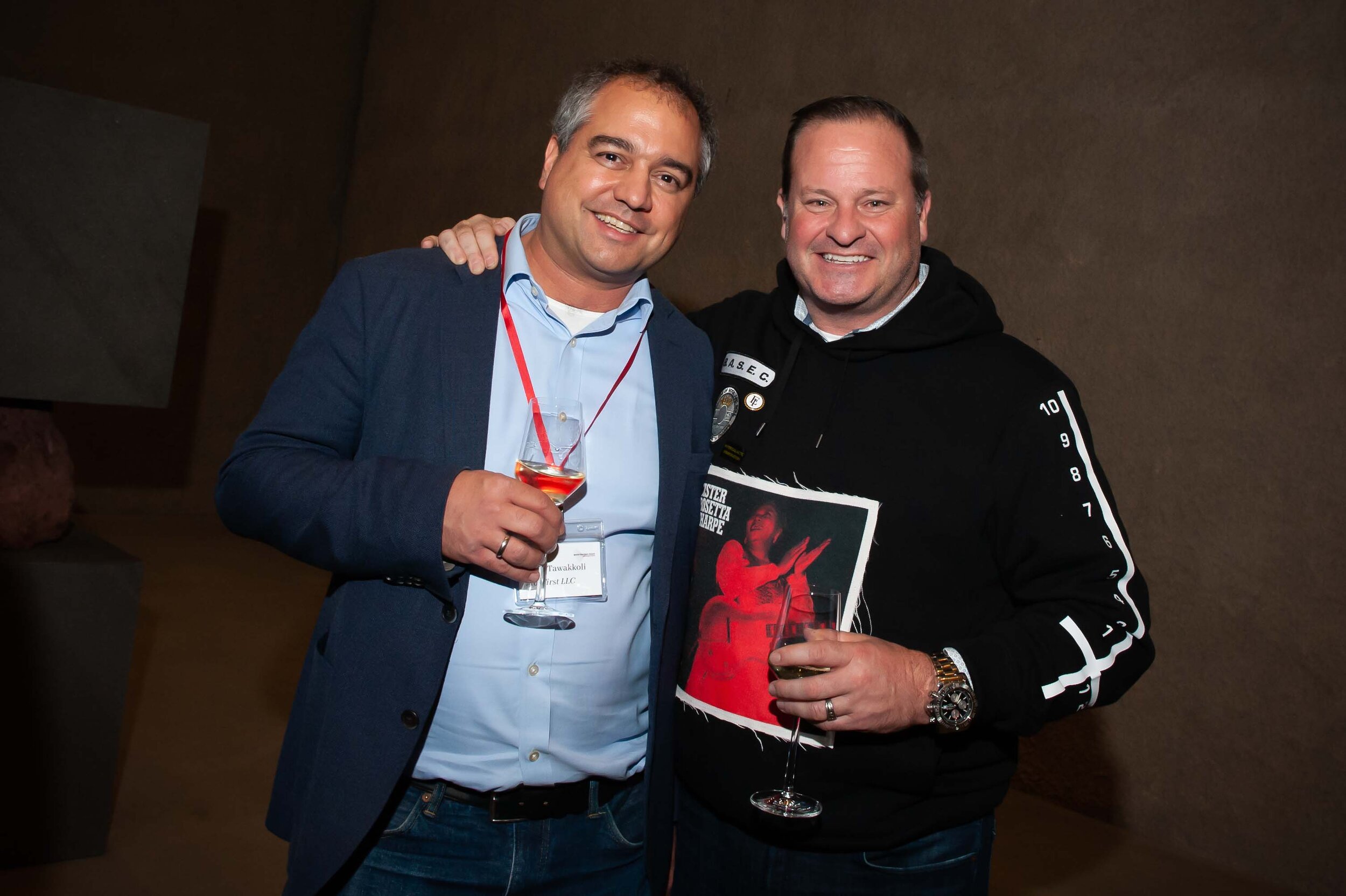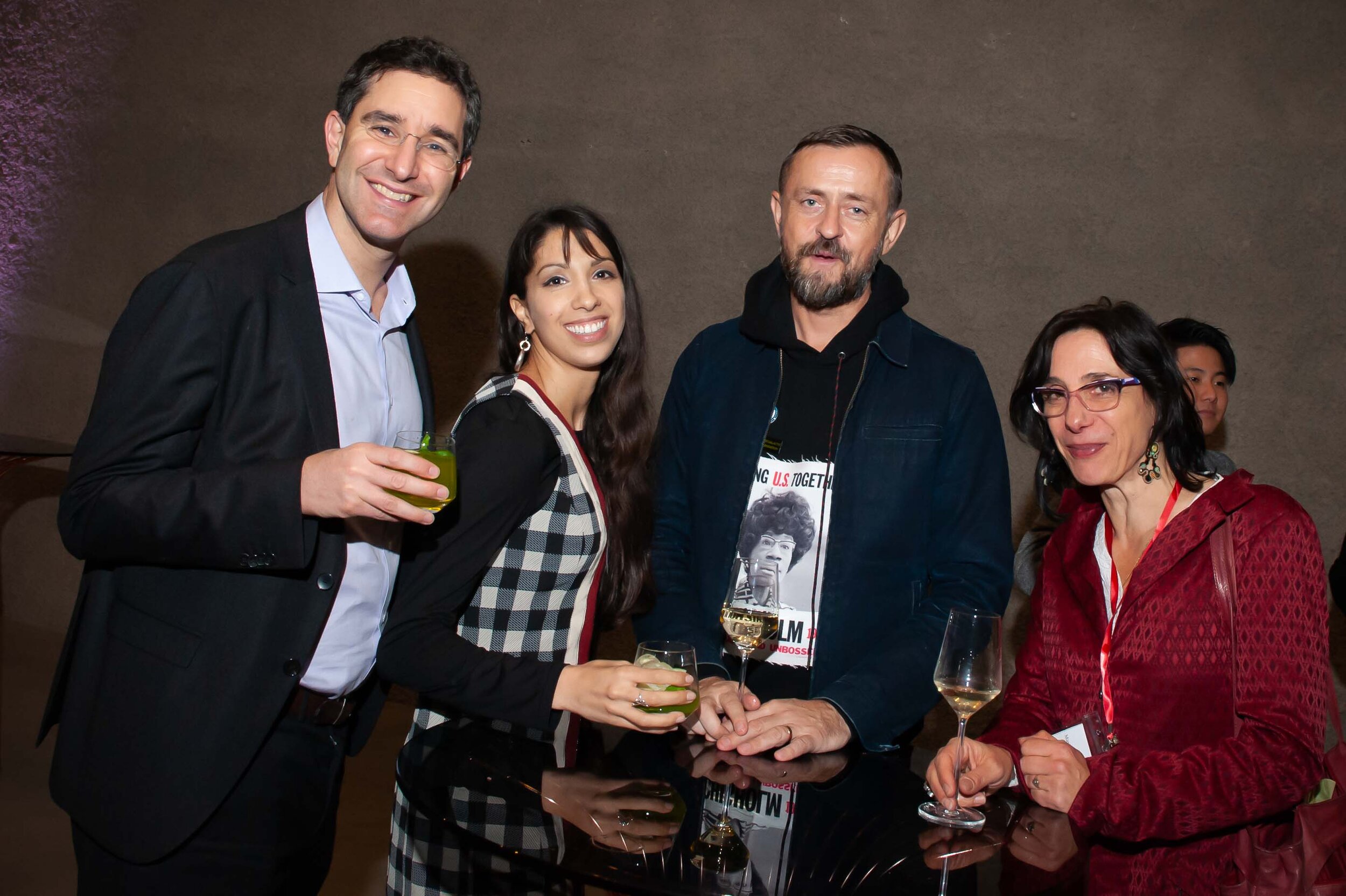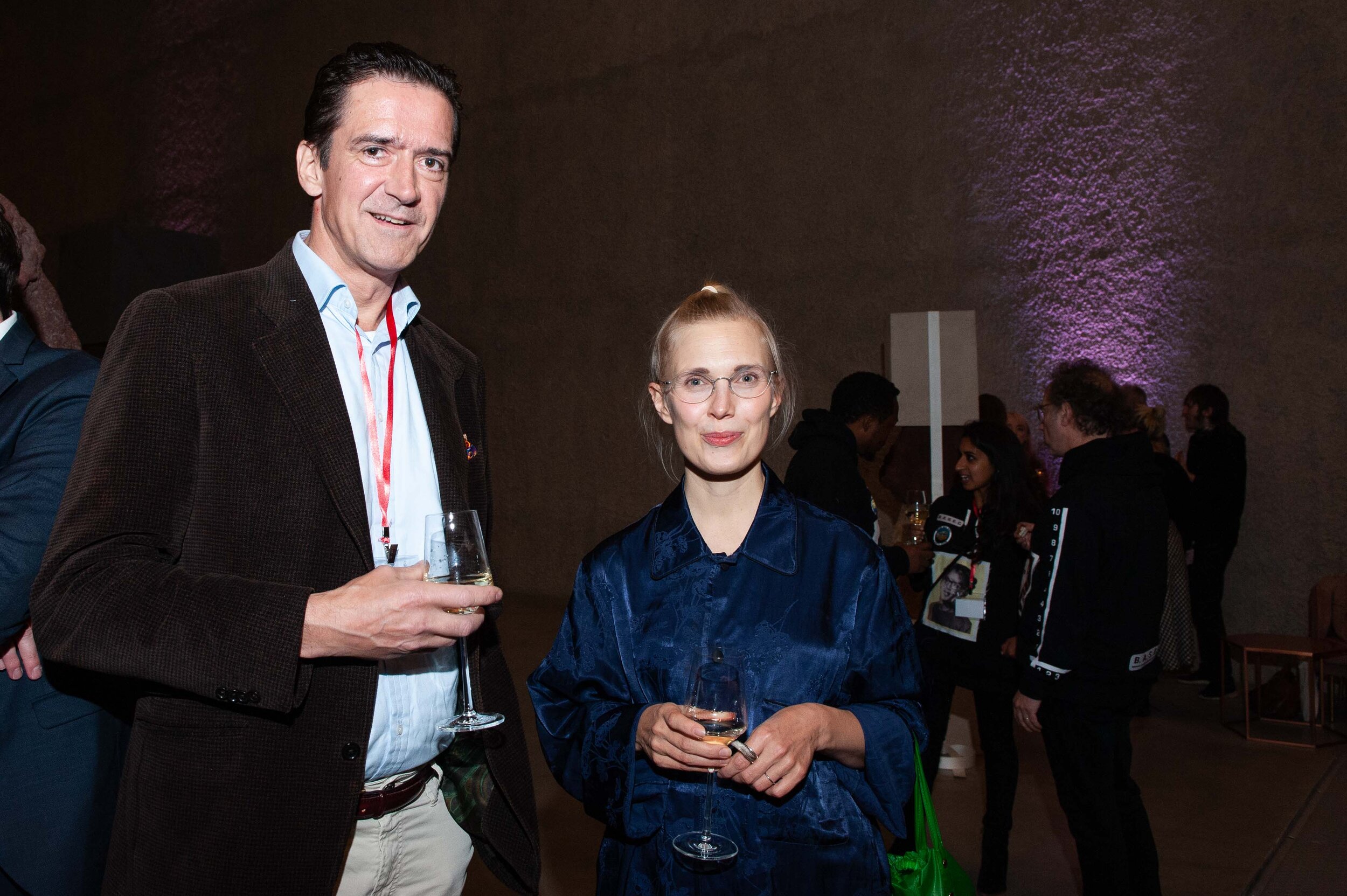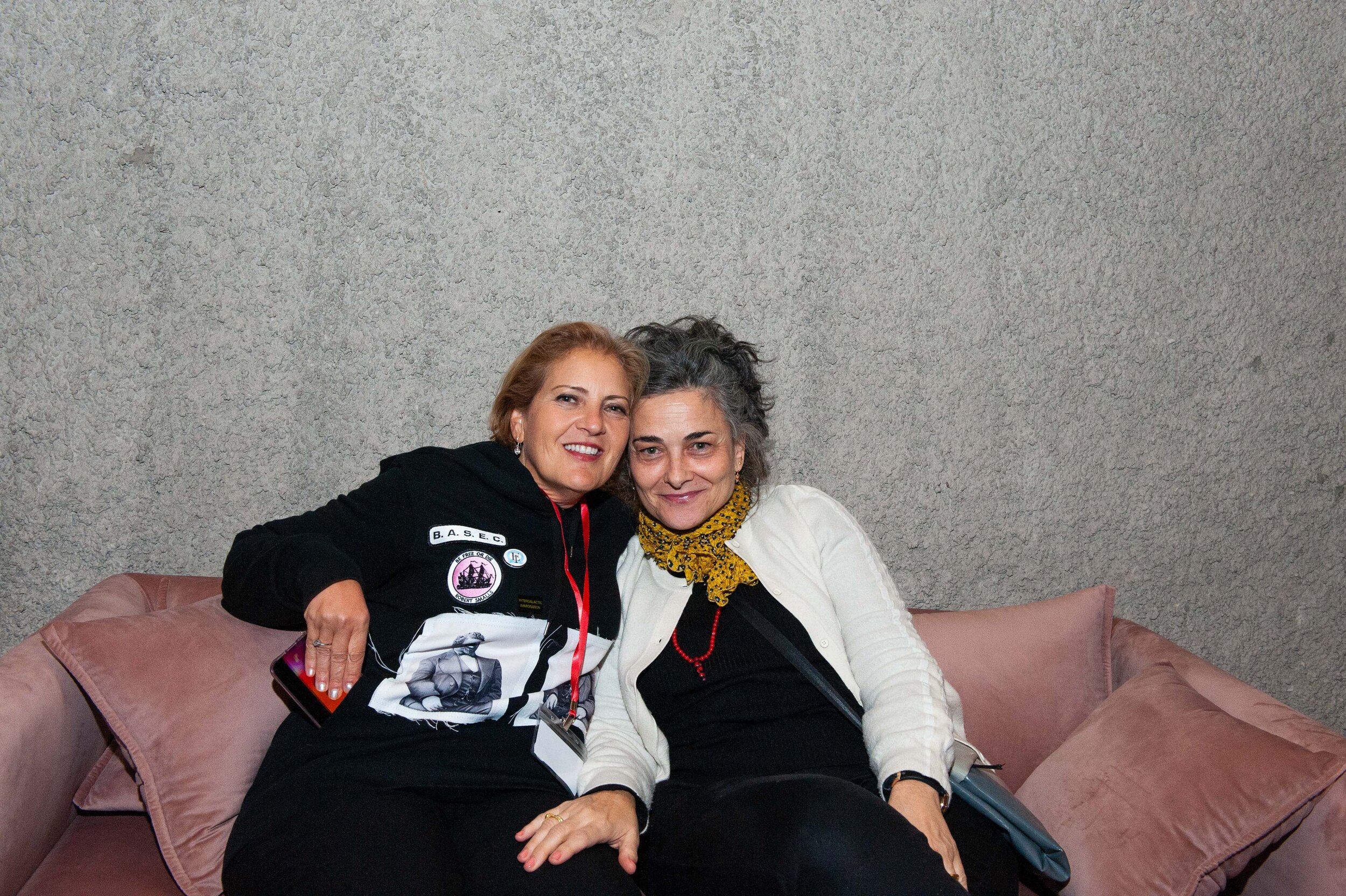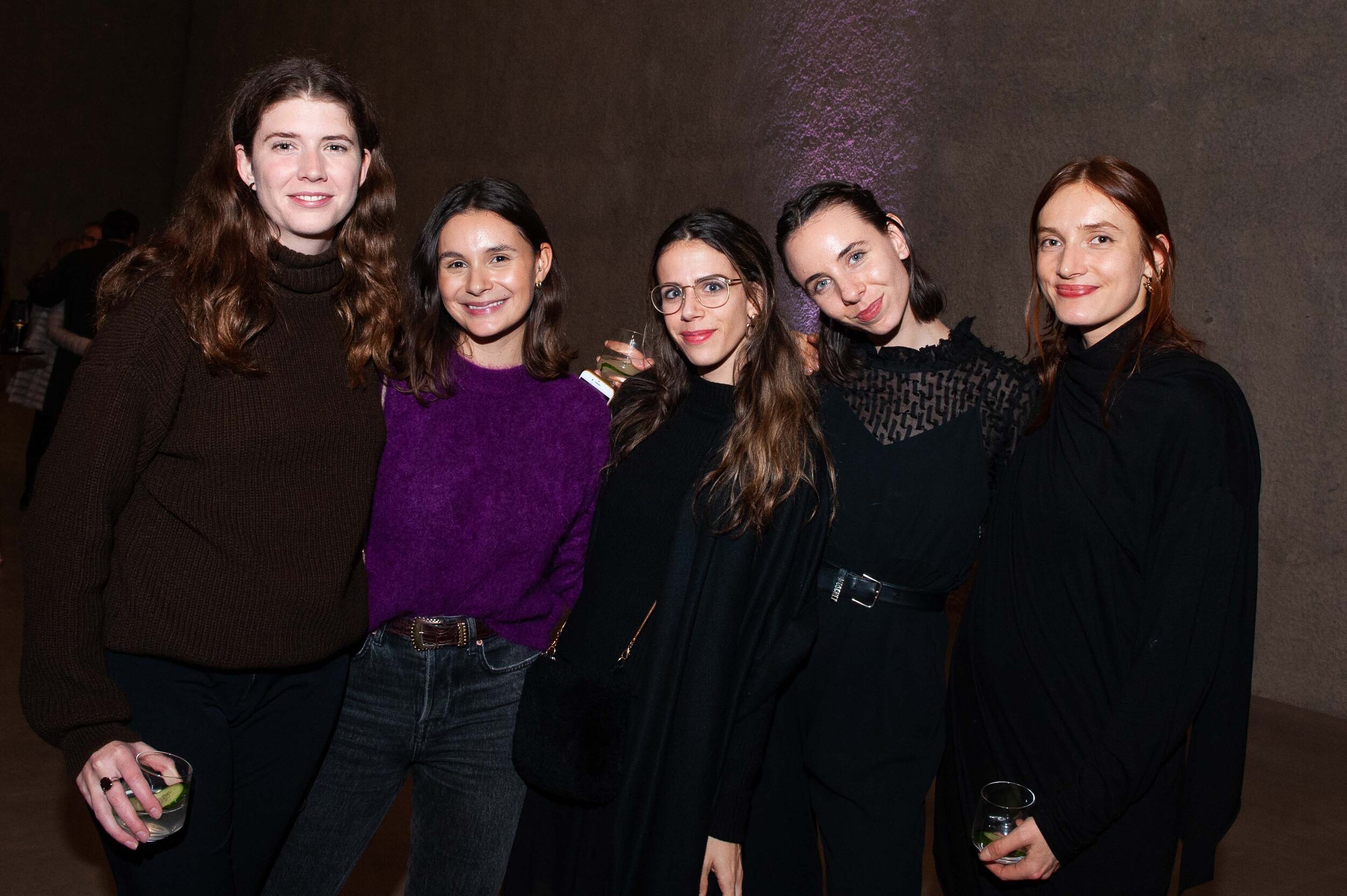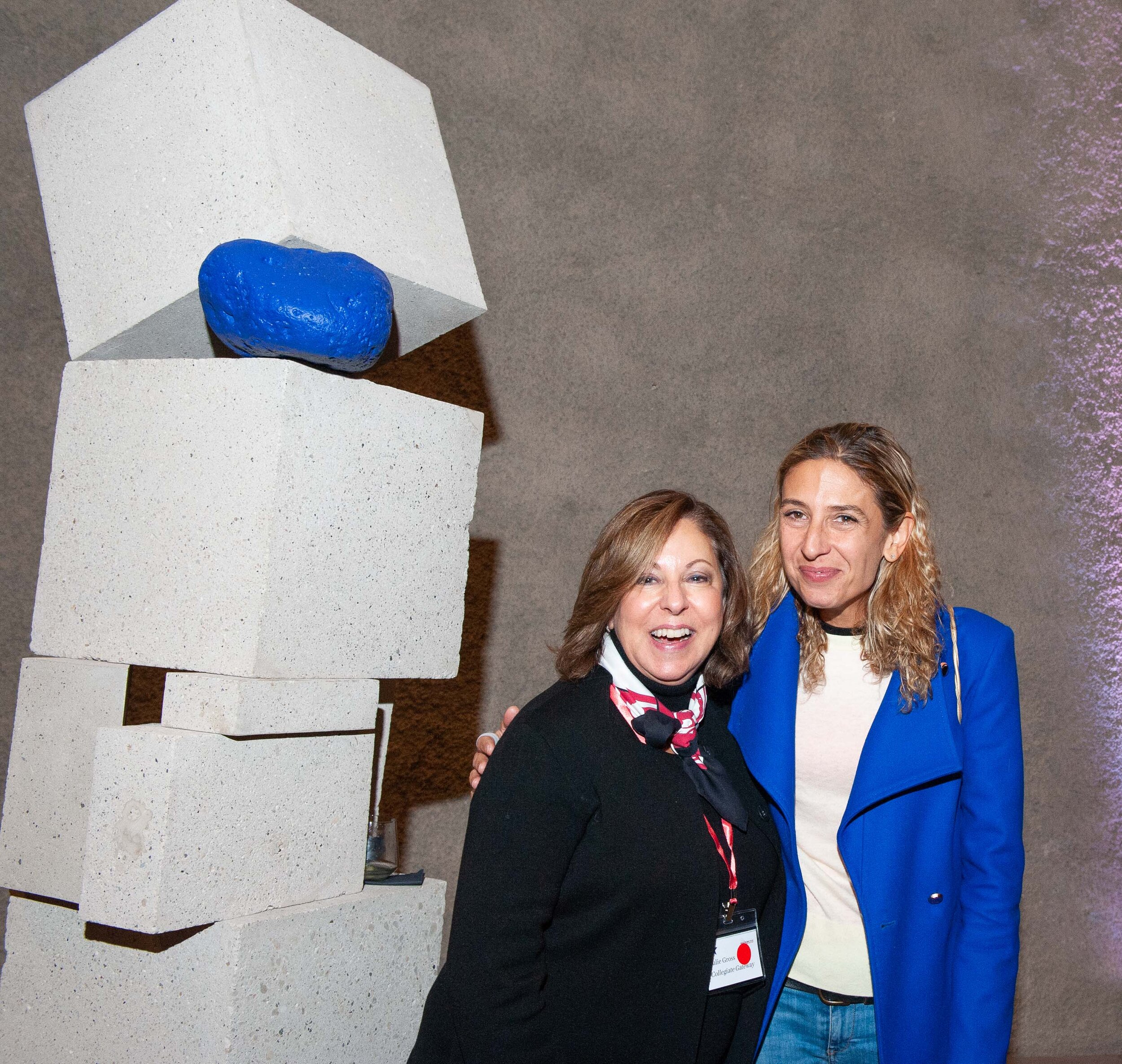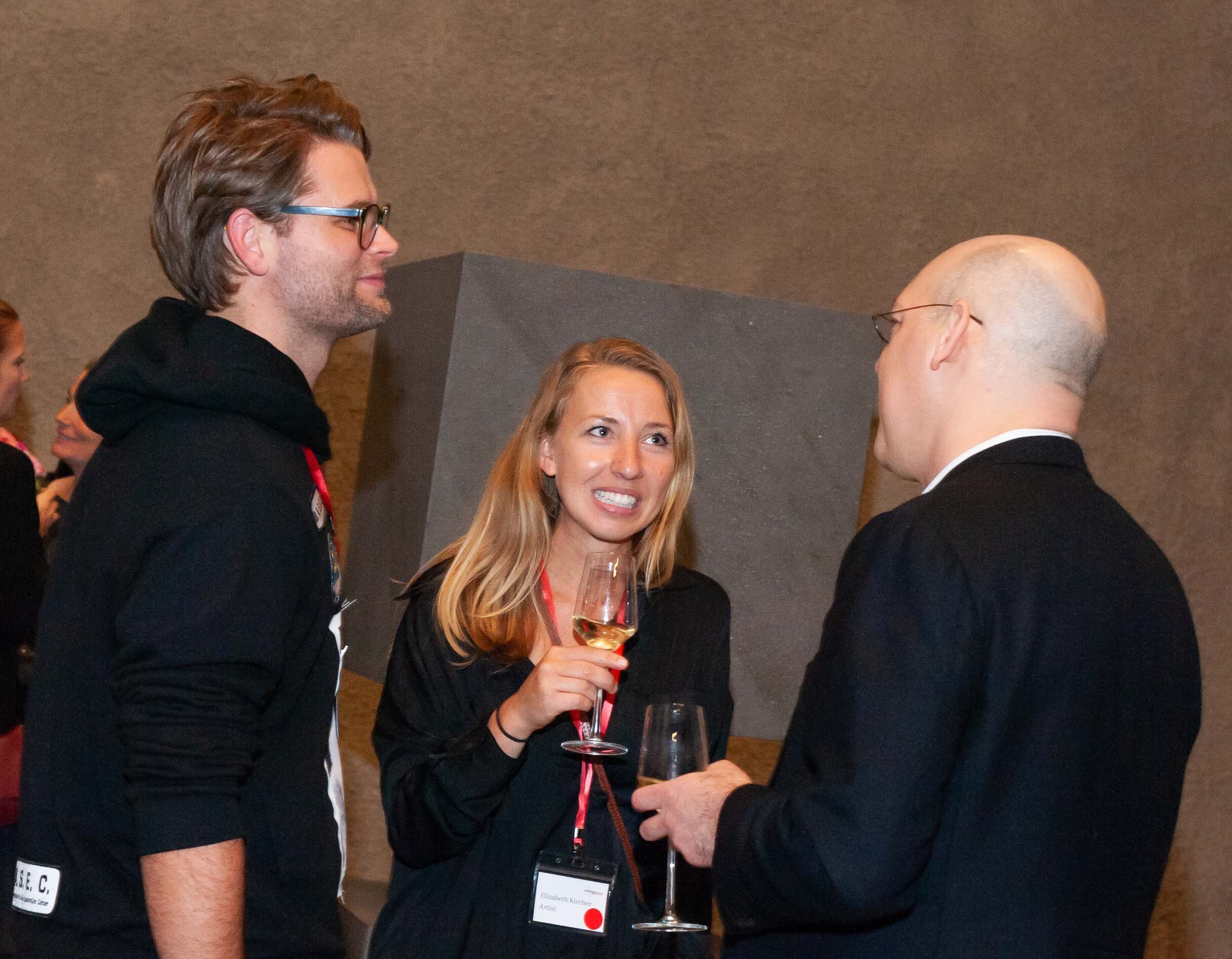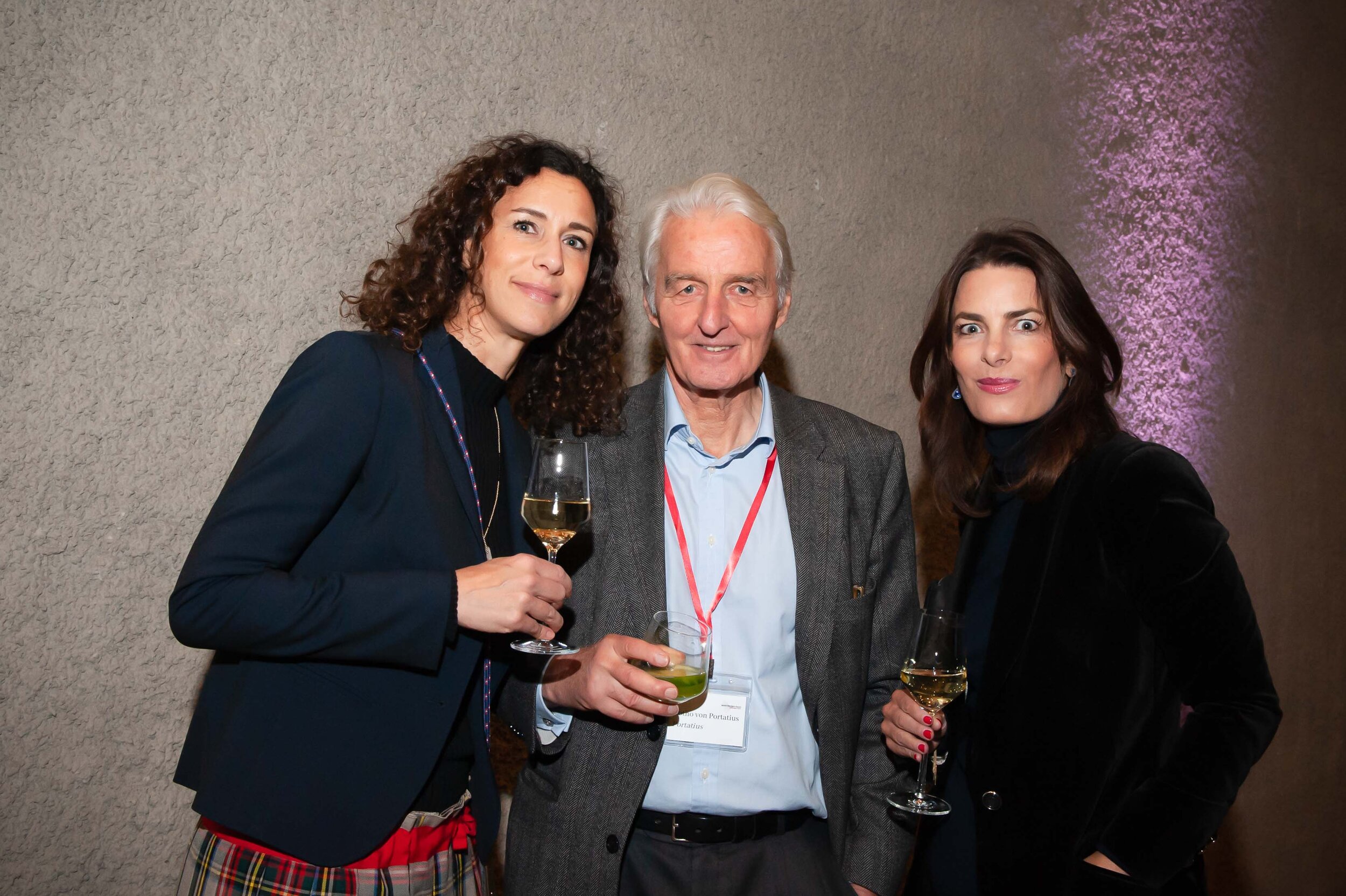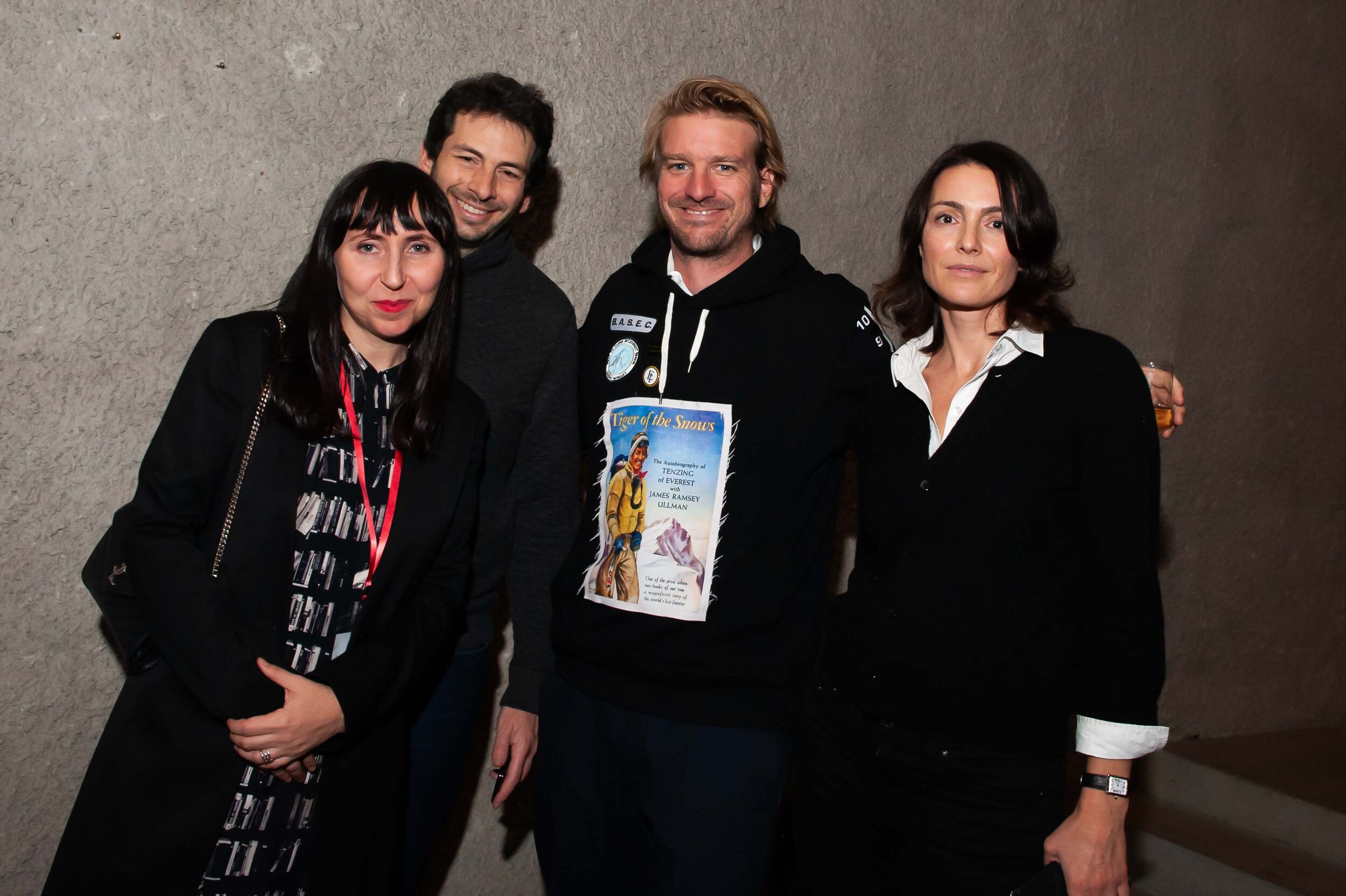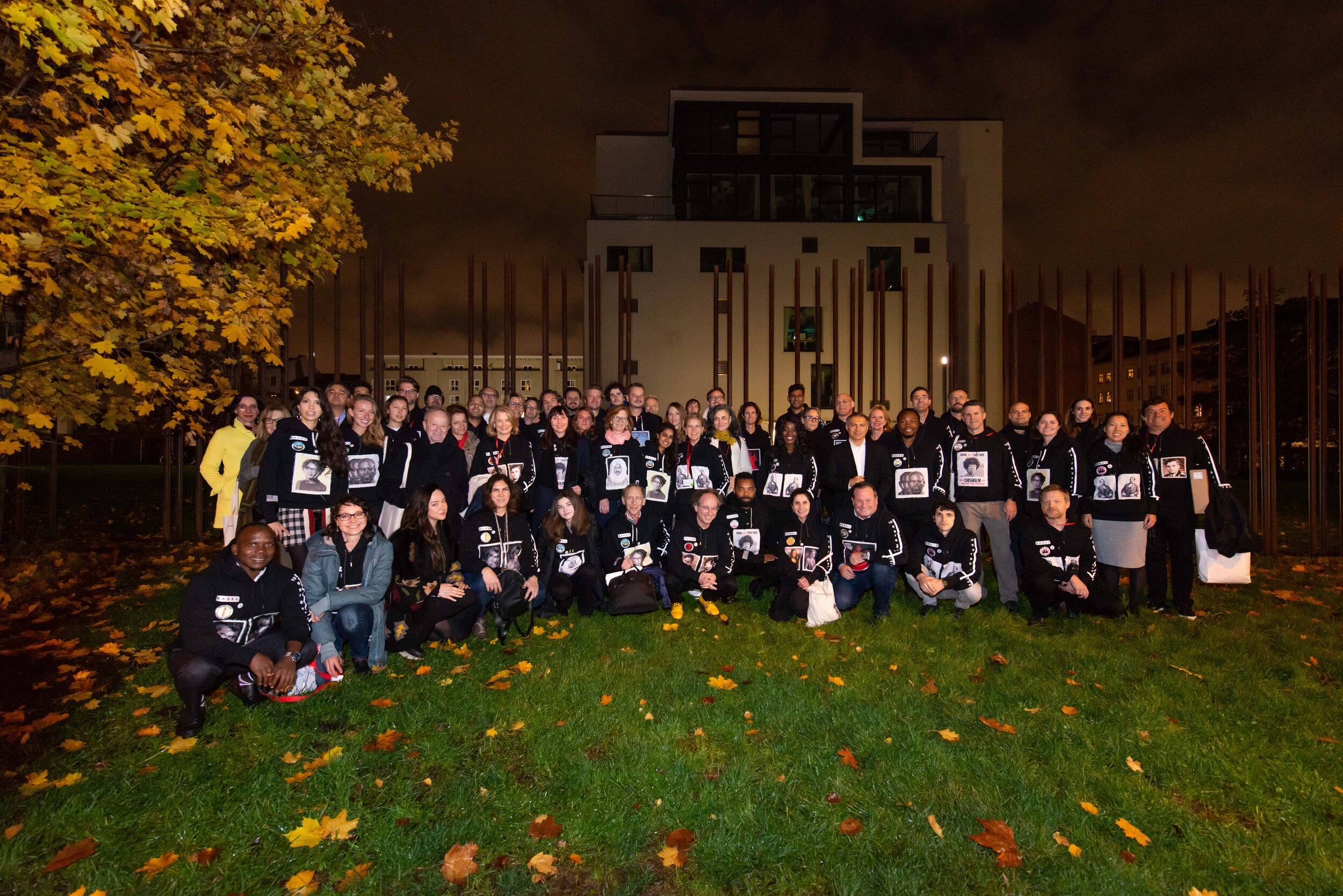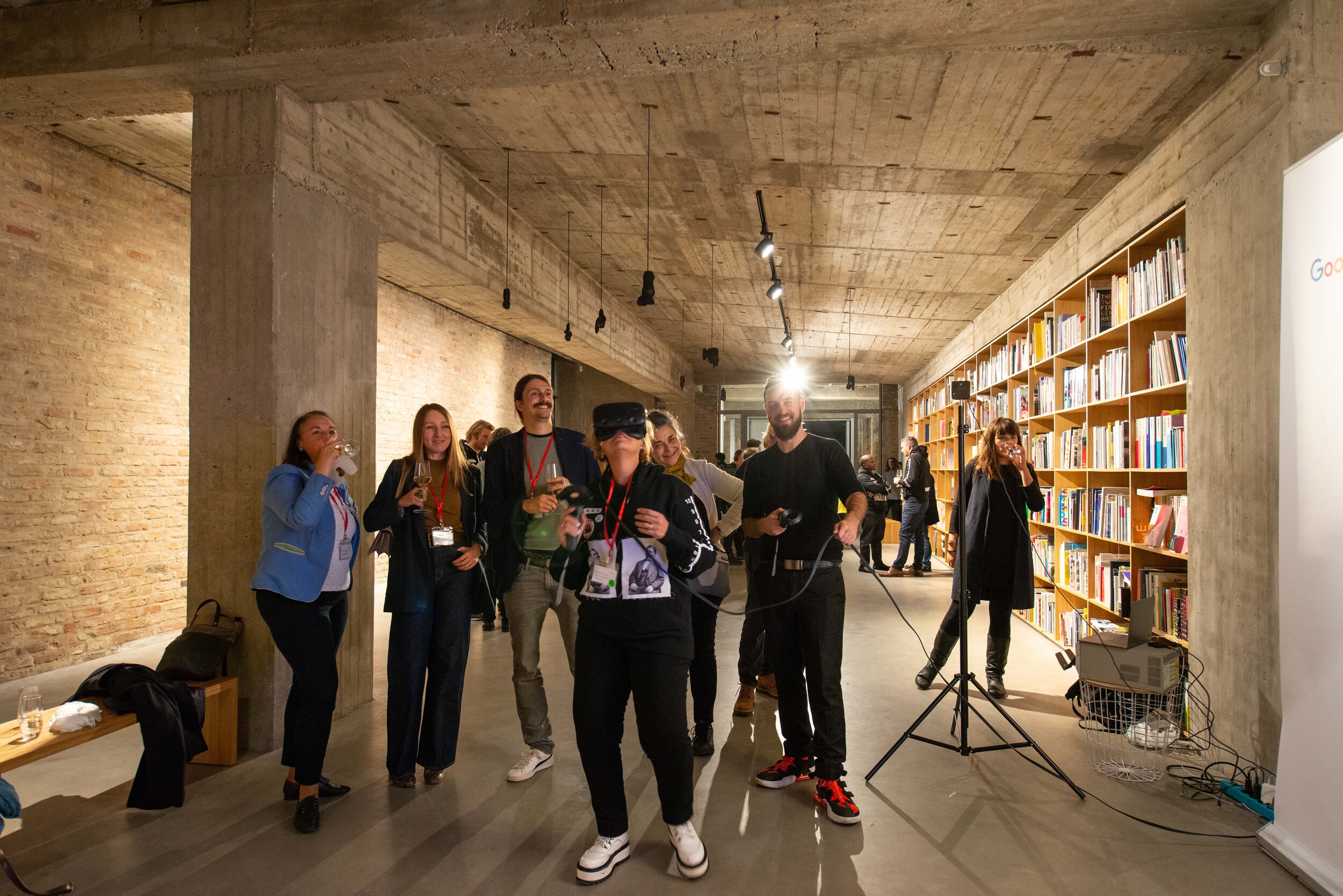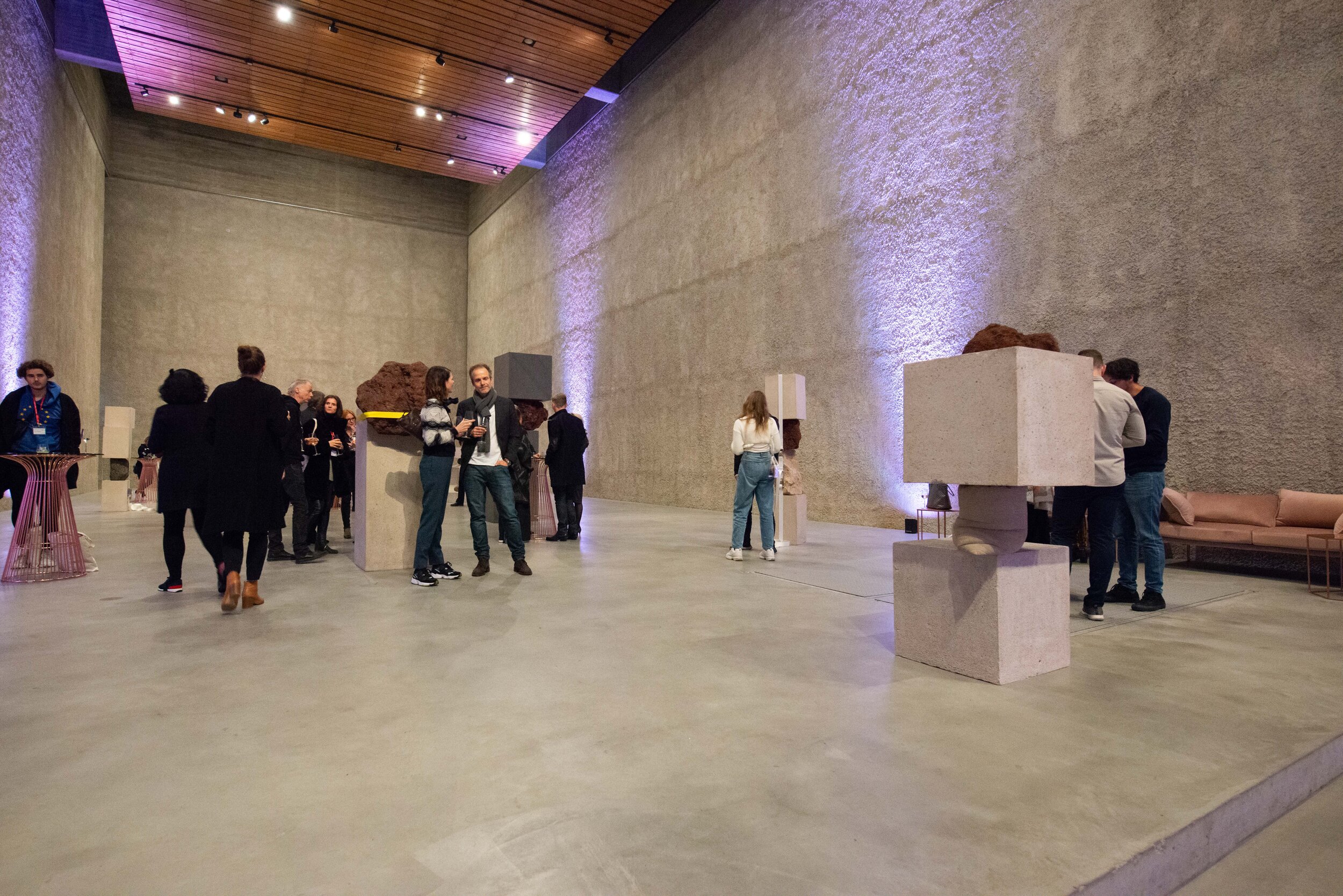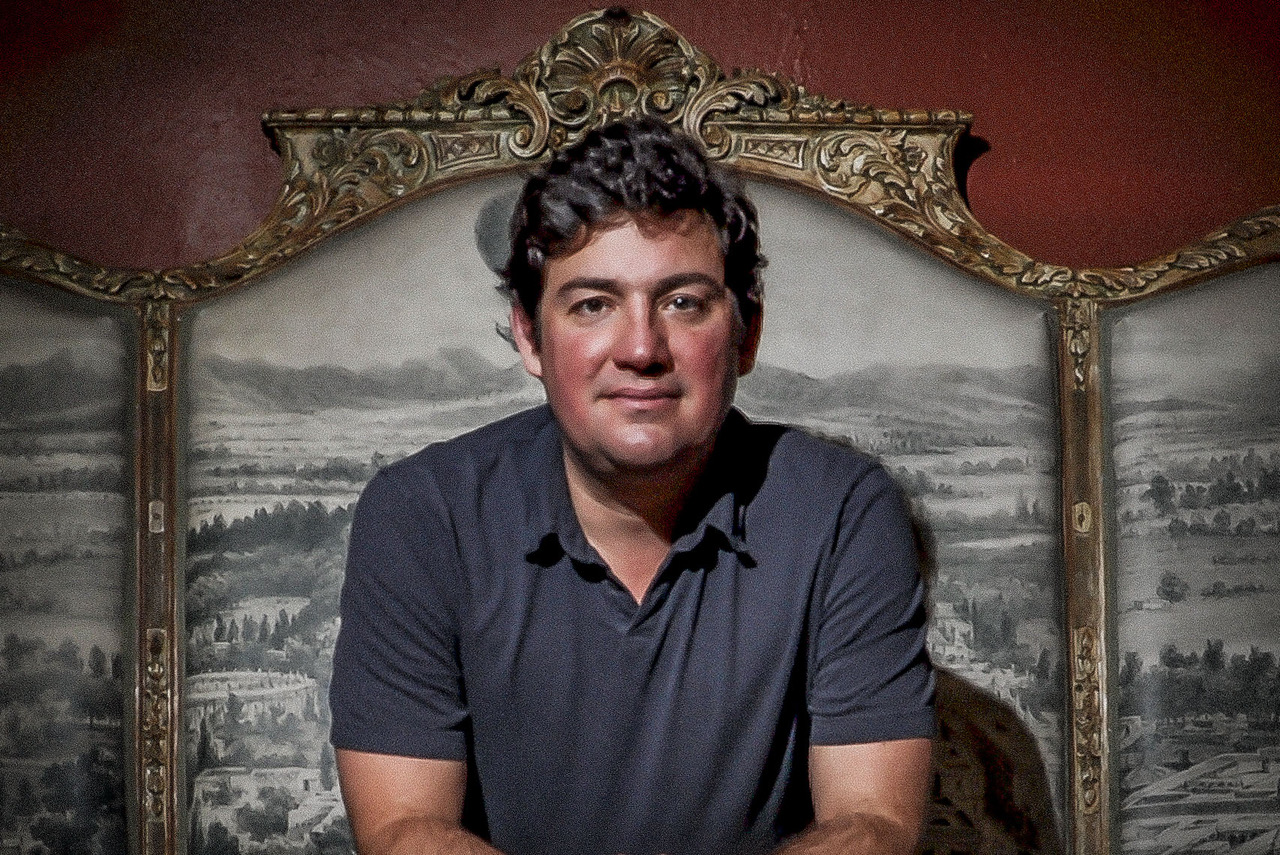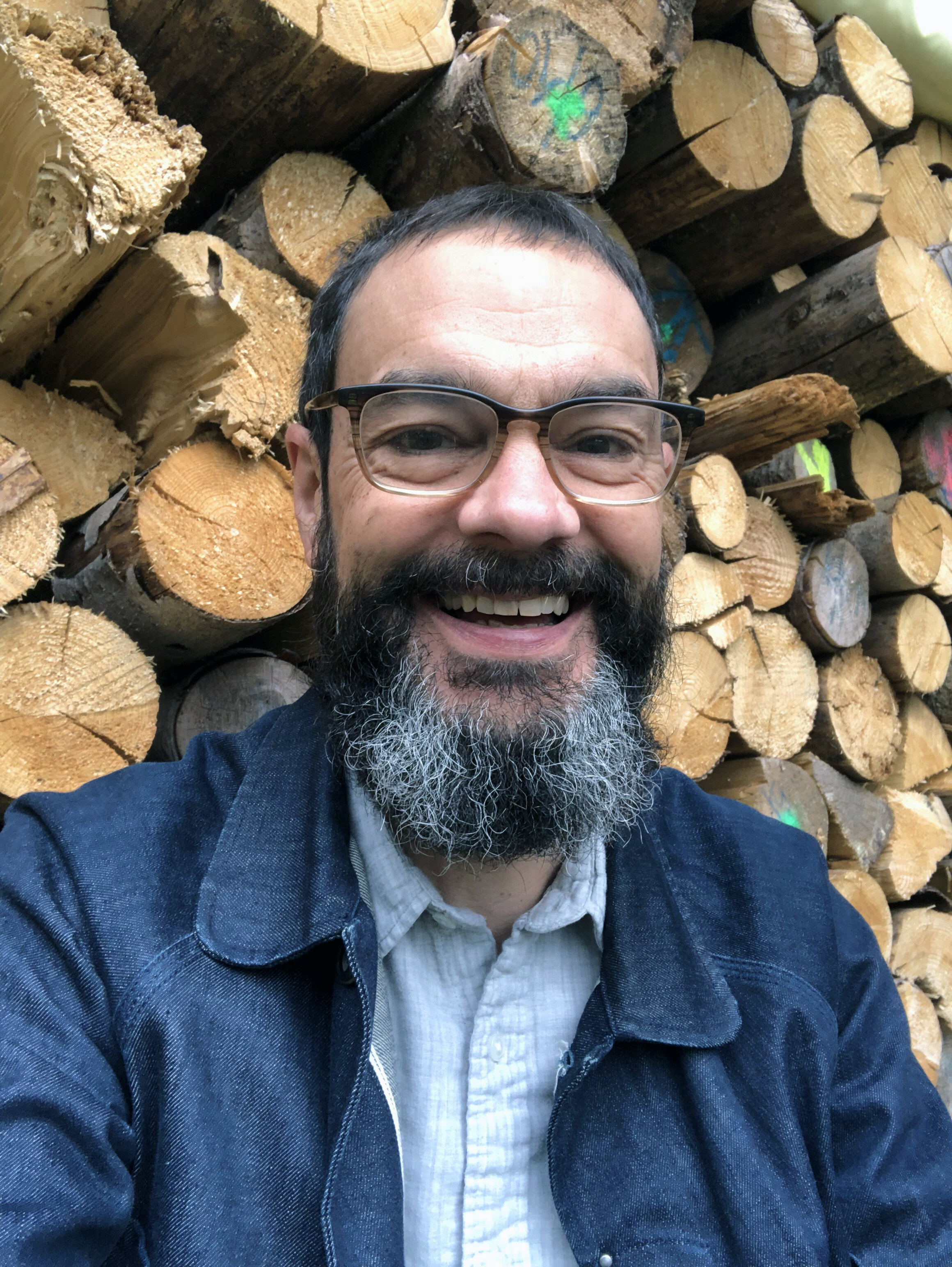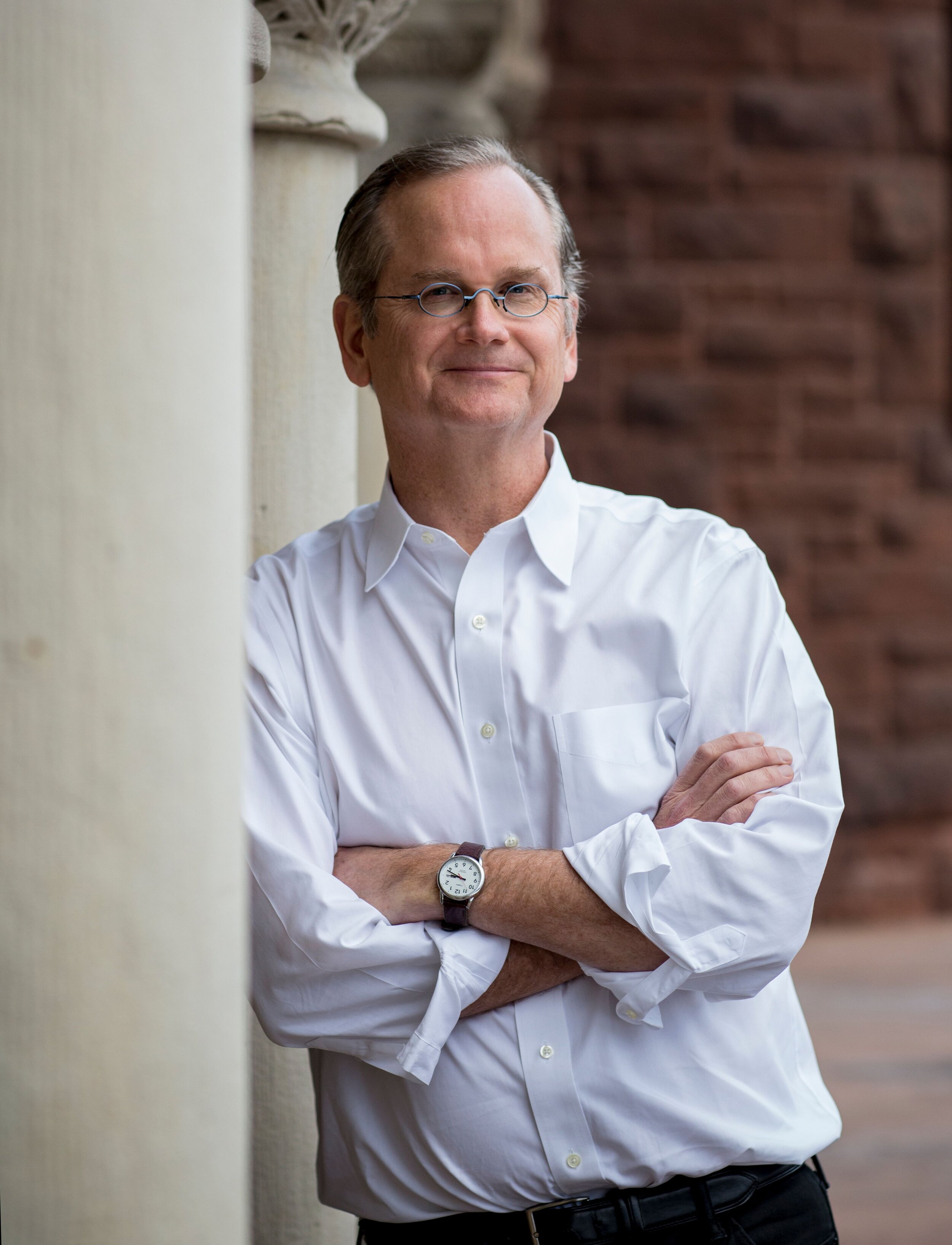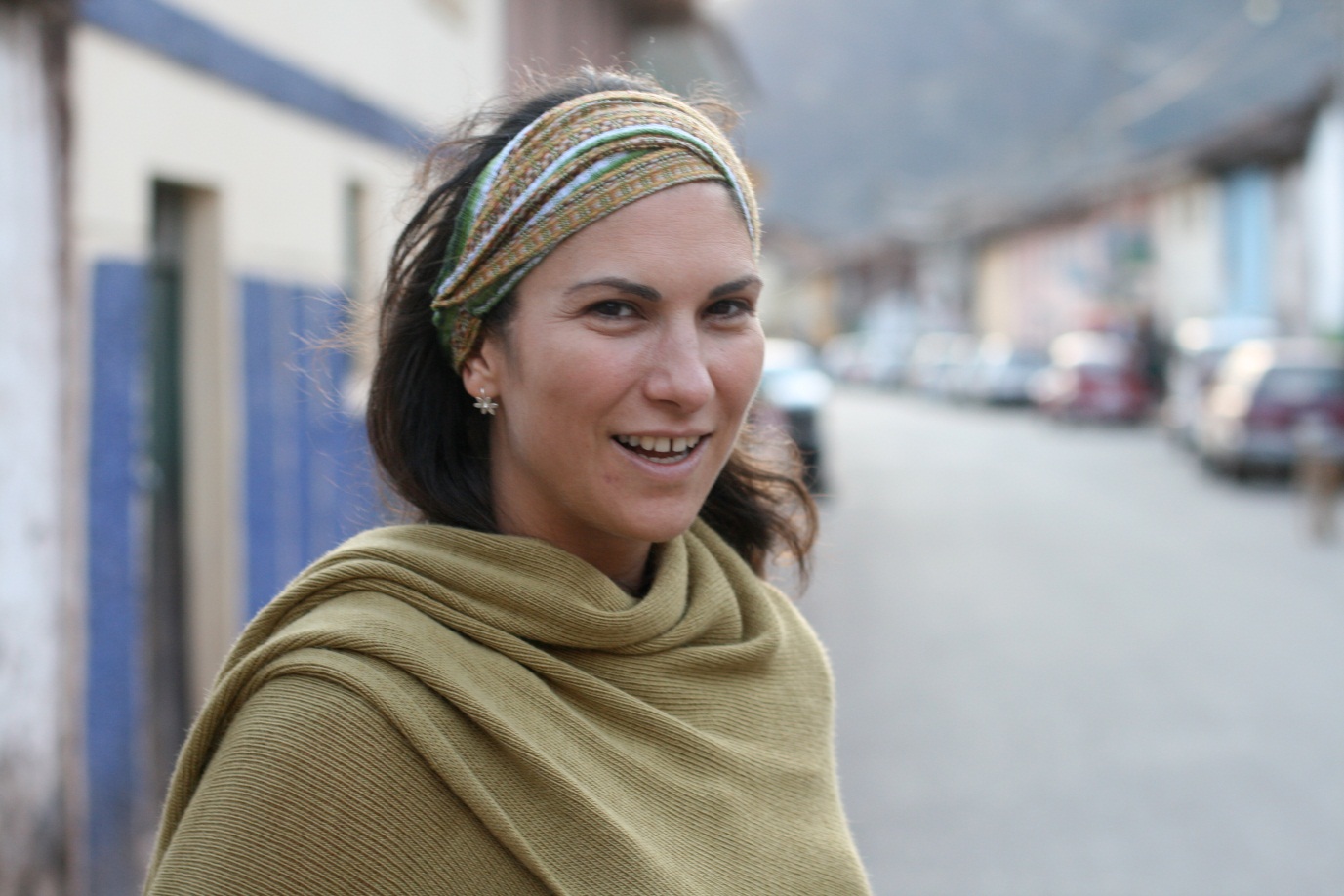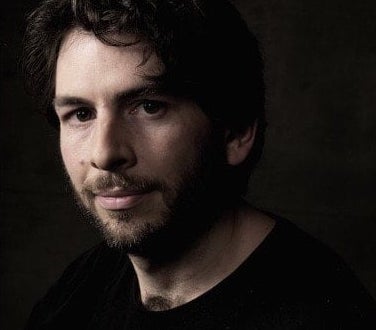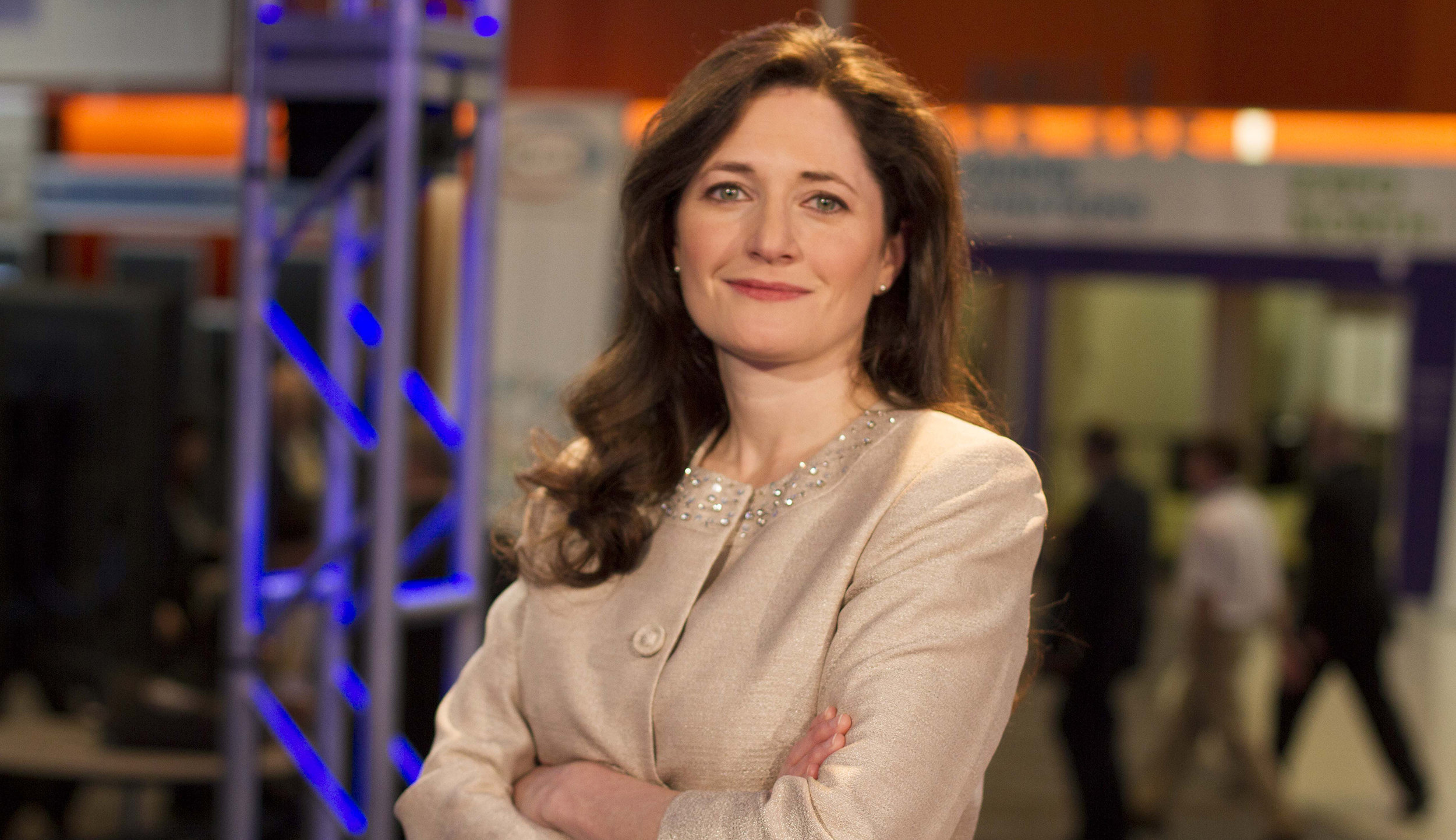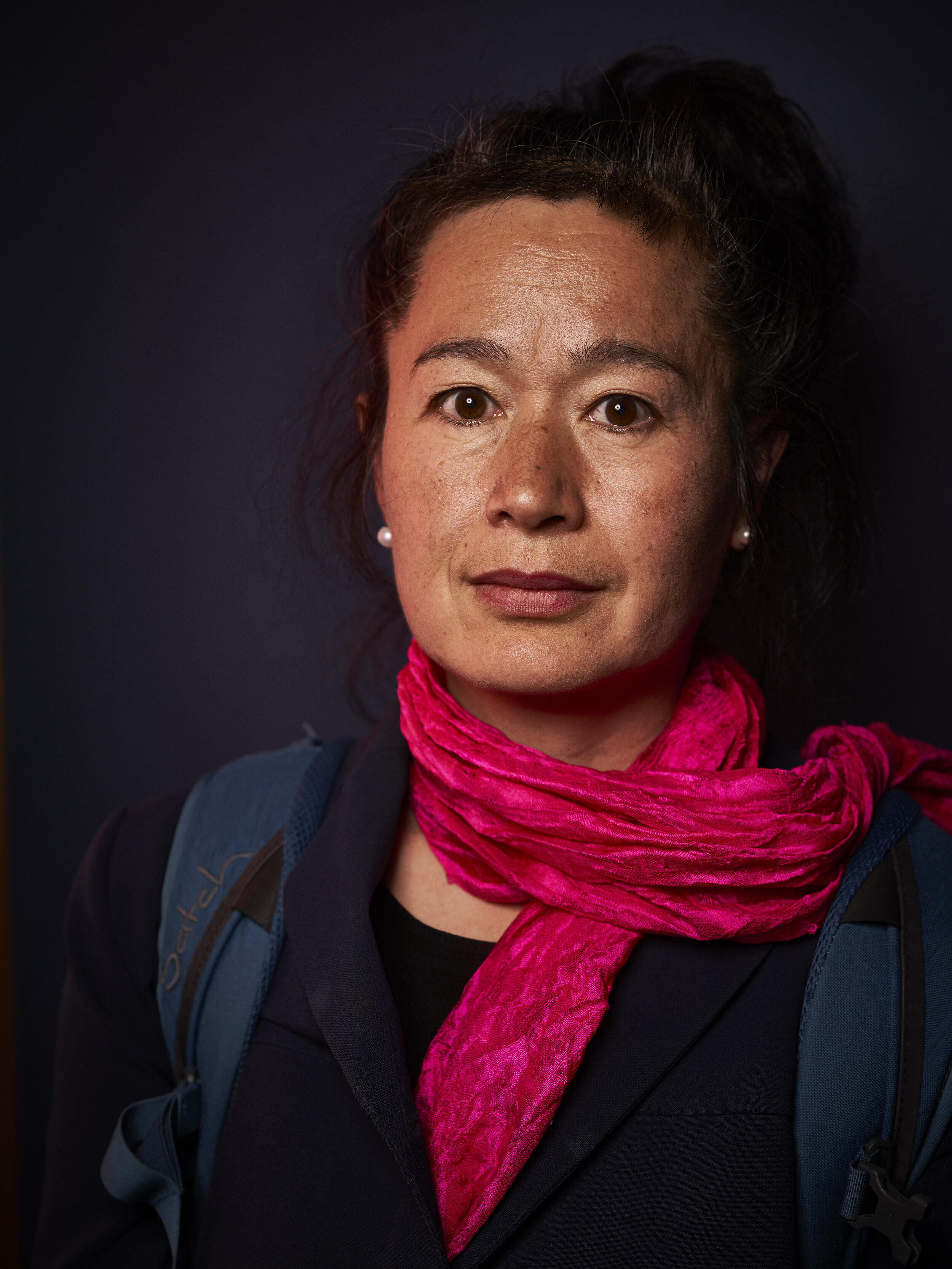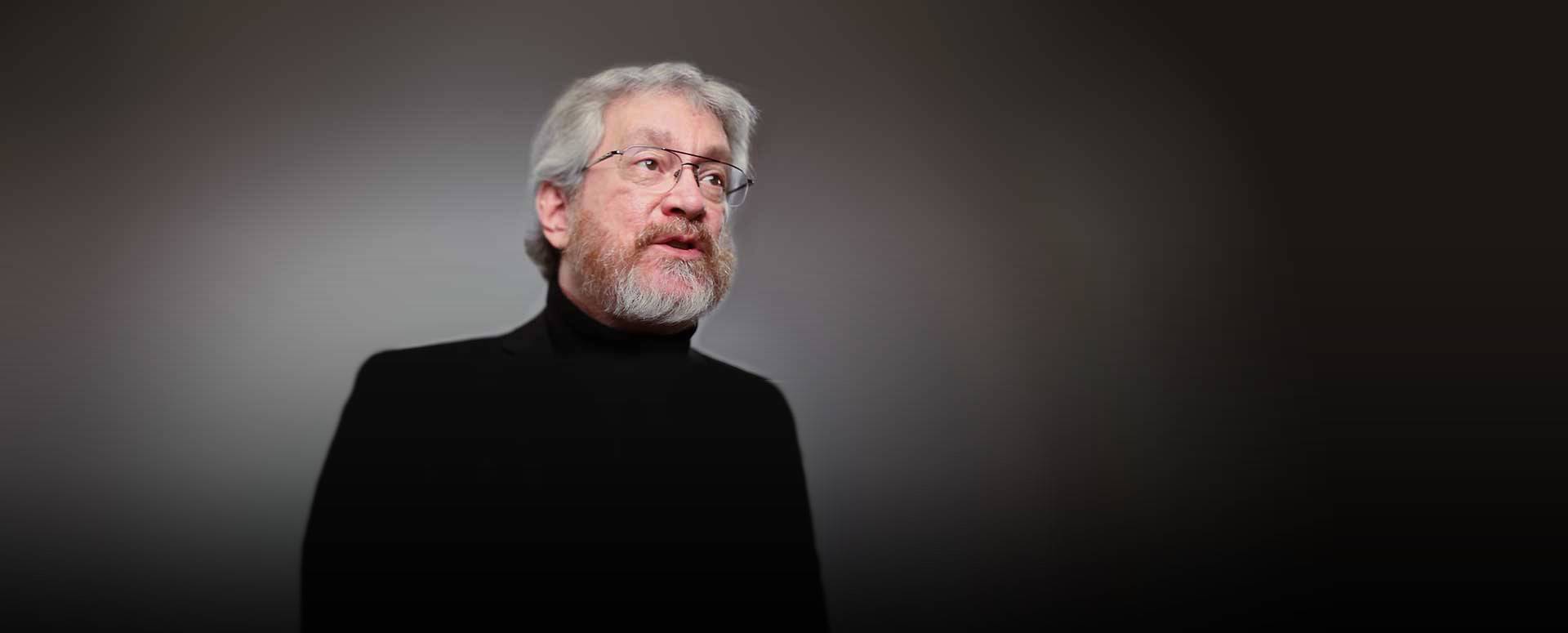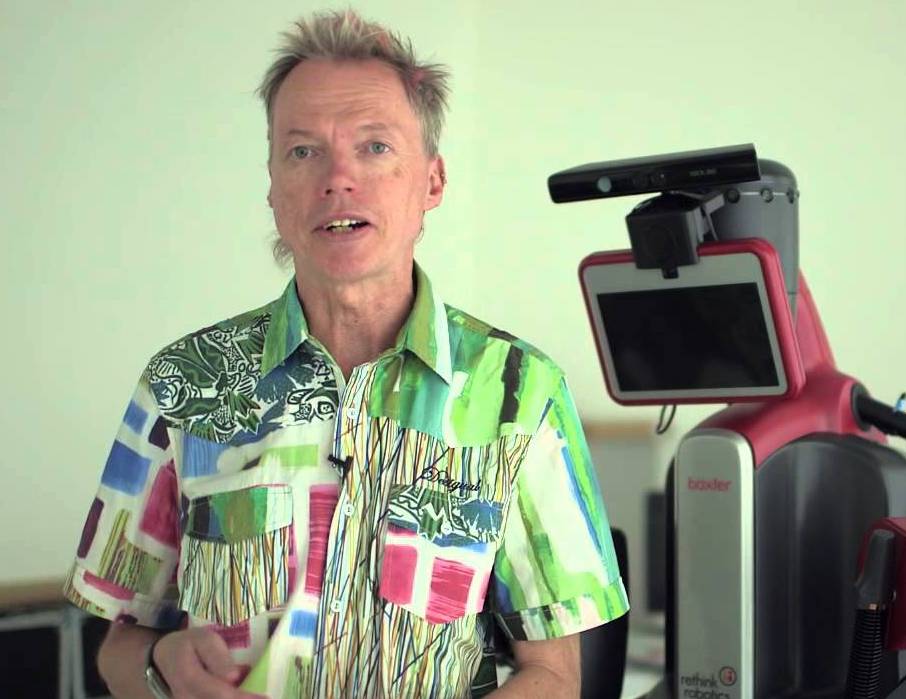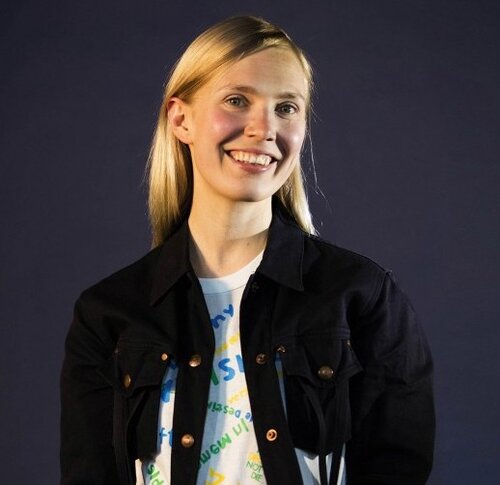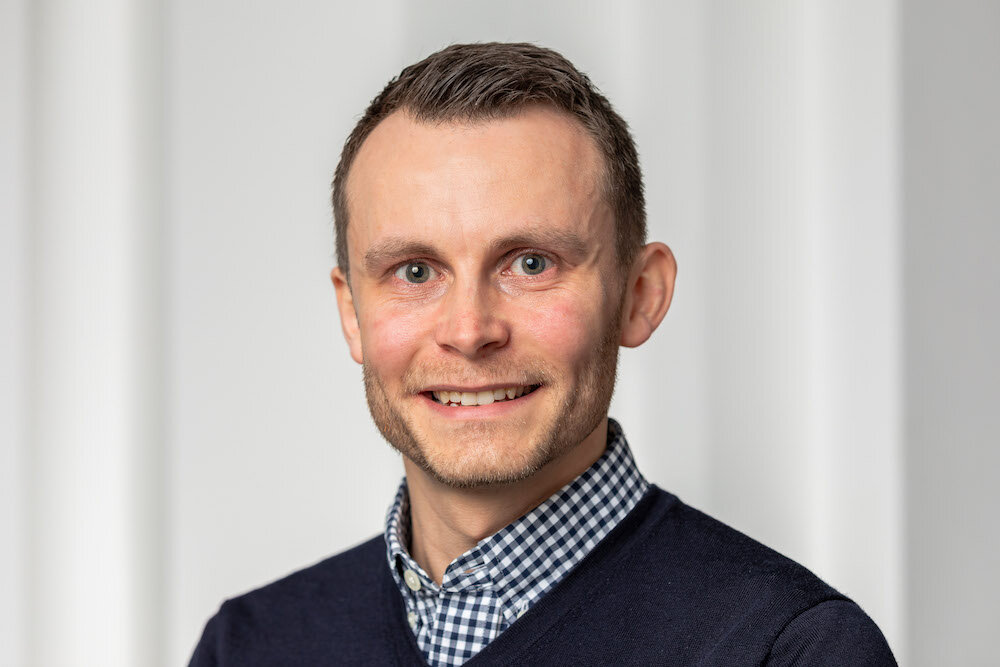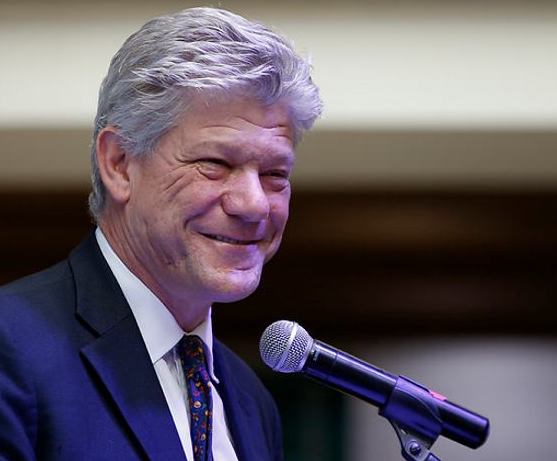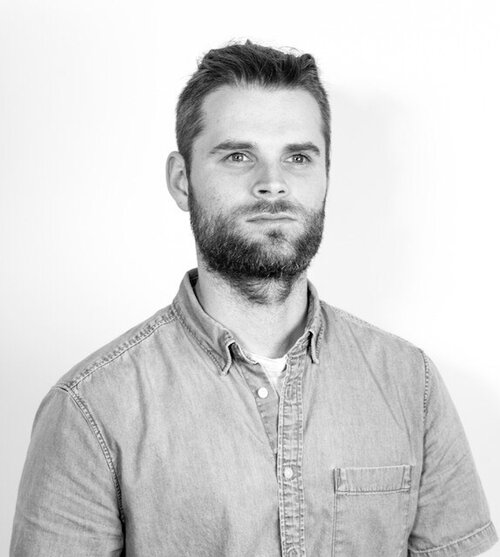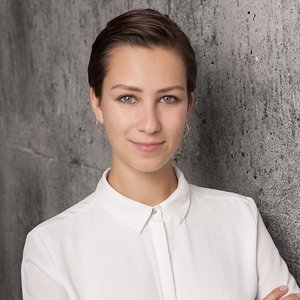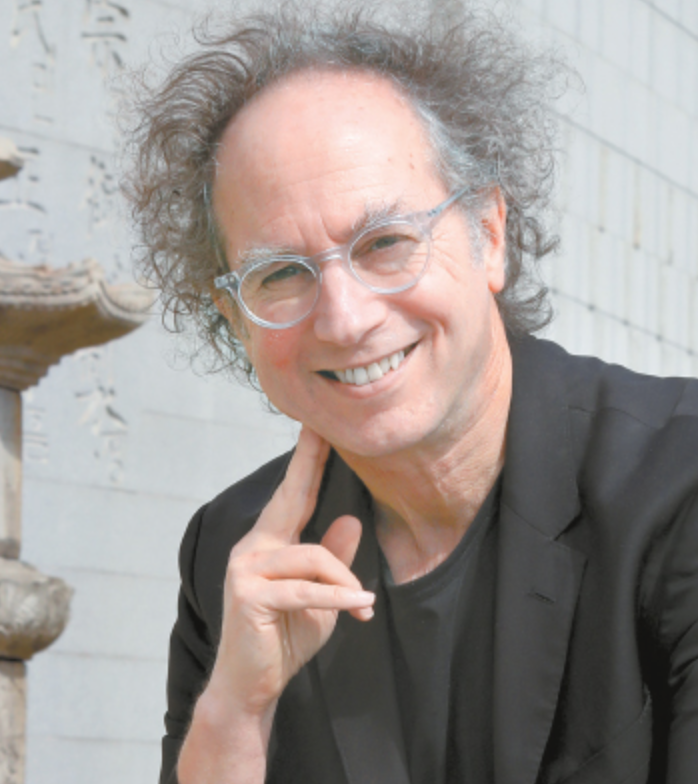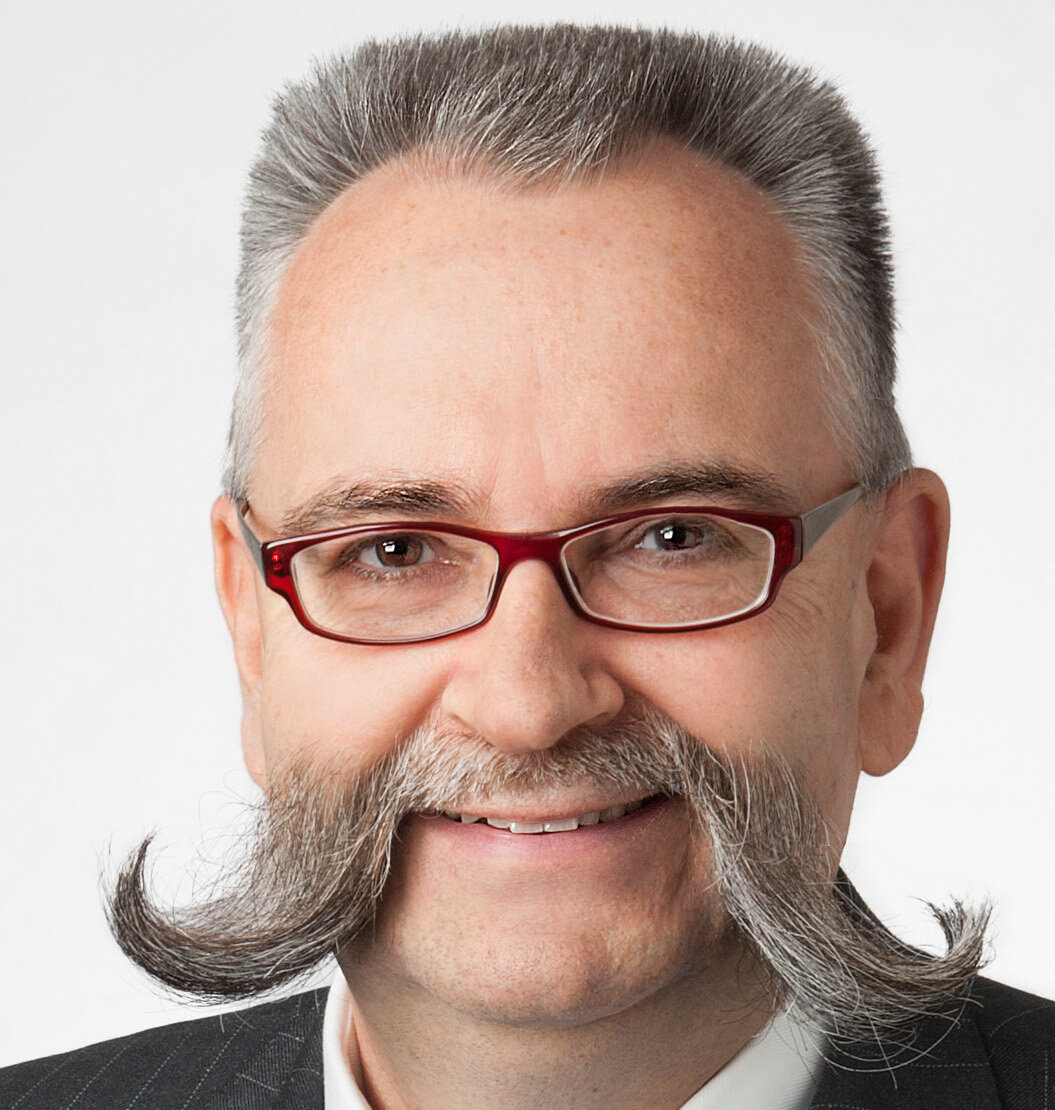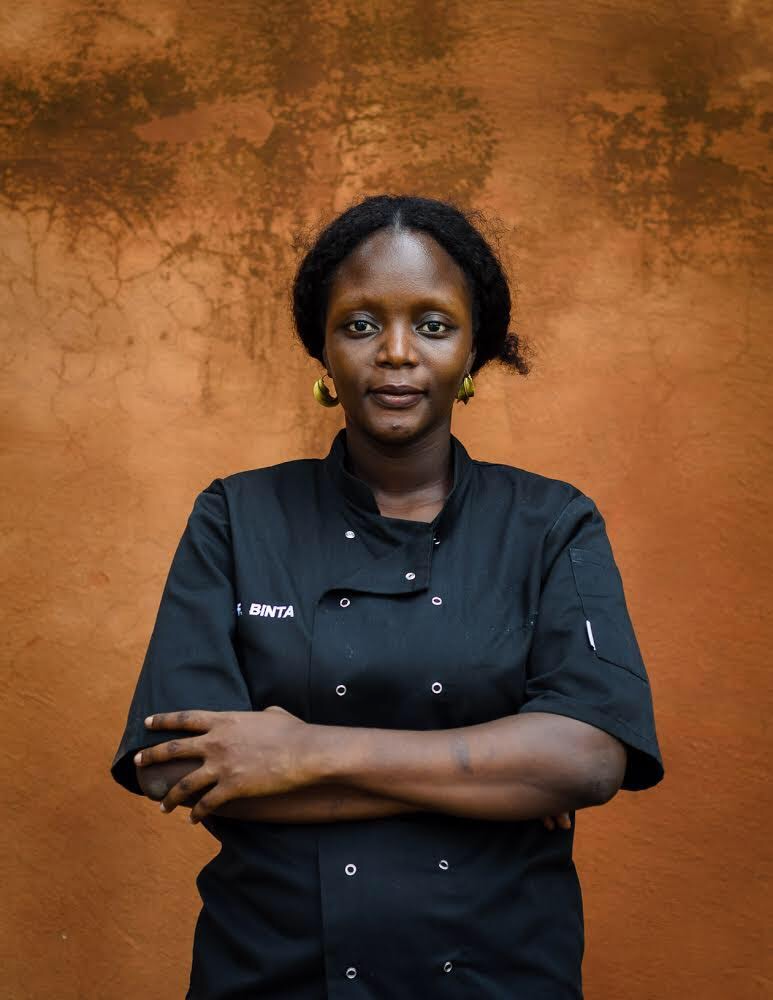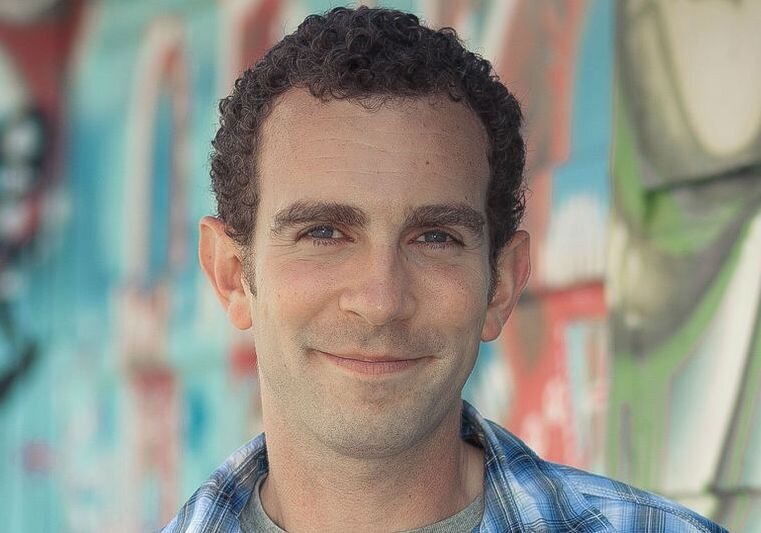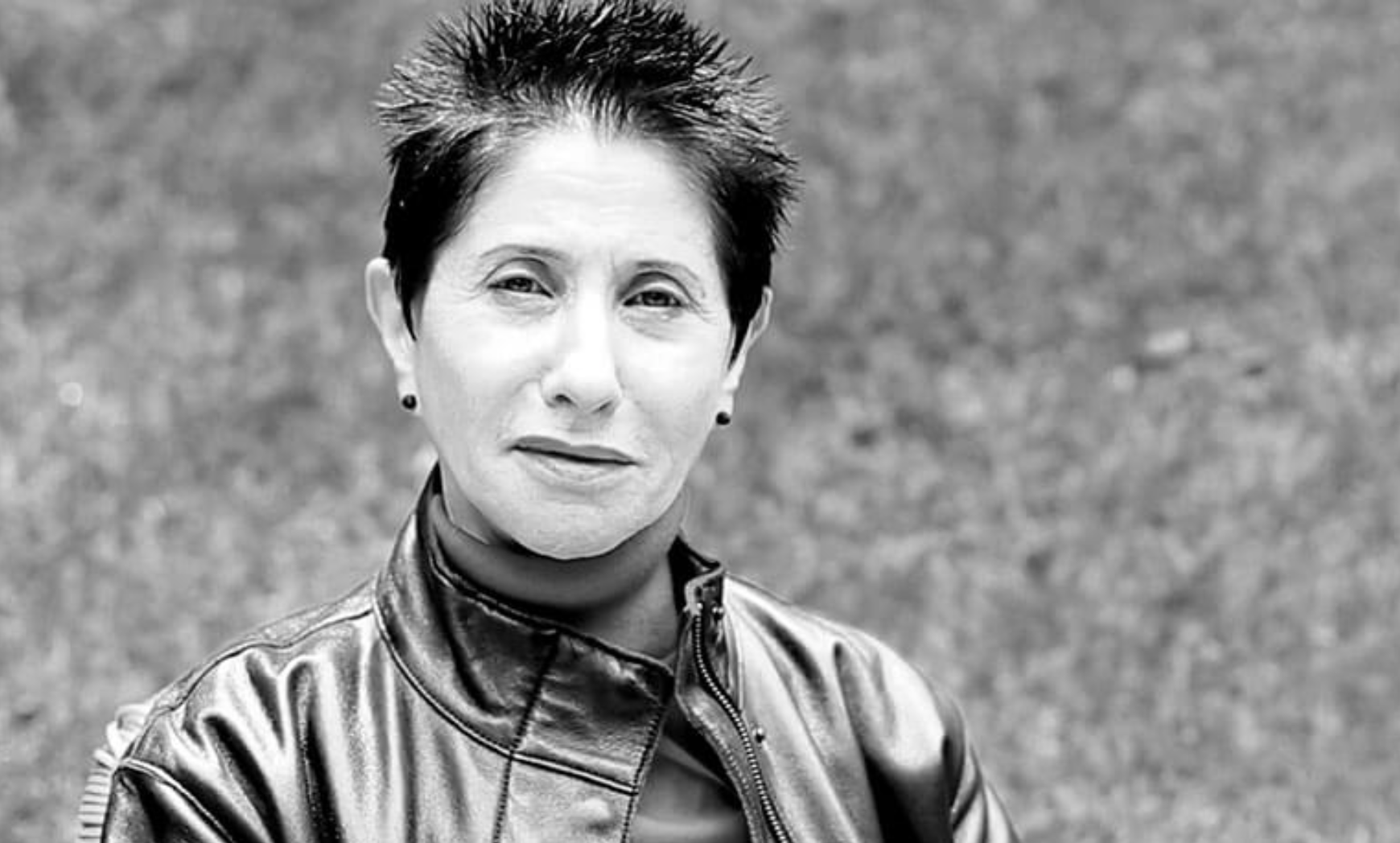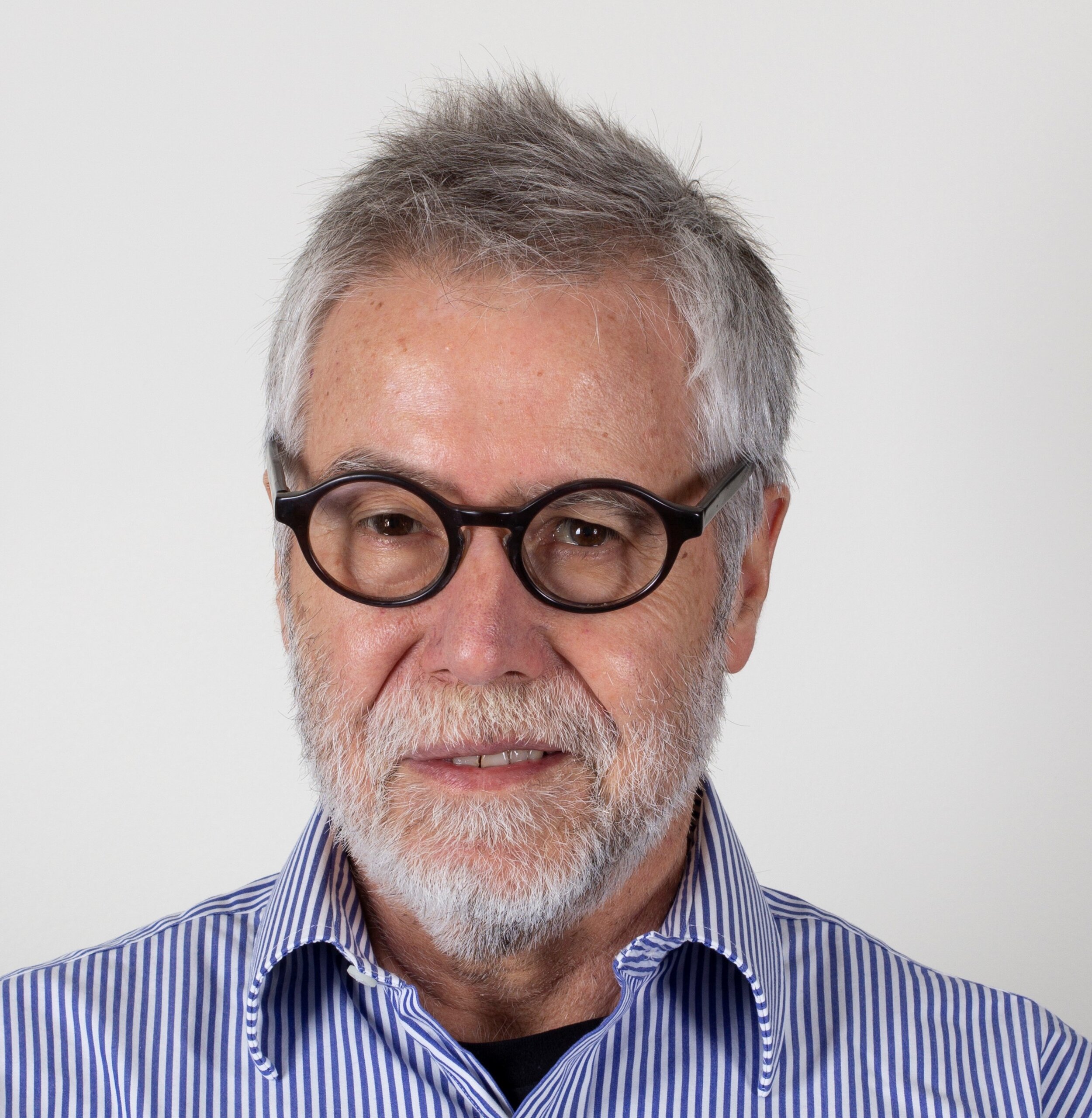2019 WORLD FRONTIERS FORUM BERLIN
HUMAN DIGITAL IDENTITY FUTURE
World Frontiers Forum Berlin: The Human Digital Identity Future
Leonard Novy, Max Senges & David Edwards
Institute for Media & Communication Policy, Google Germany, WFF, Harvard University
What would tech need to look like to allow us to be who we want to be? Pioneers at frontiers ranging from machine learning and biology to contemporary art and food met in Berlin at the invitation of Google Safety Engineering Center to explore our emergent digital identities, their conception, architecture and relation to our sensory selves.
Digital identity -– few concepts are so hard to pin down while so consequential to the human condition. What can, what ought to come from our digital existences that, beyond entrepreneurial and governmental agendas, gives meaning to our human identities in the first place? What do the fundamental changes of the present mean for bettering learning, healthcare, equality, culture and other realms of human activity and expression? Is there anything we can do? These were the kinds of questions at the heart of World Frontiers Forum Berlin, a gathering of world-renowned artists, scientists, philosophers, and entrepreneurs on the occasion of the 30th anniversary of the fall of the Berlin Wall.
People invent technologies and are changed by them. Identity, like subjectivity, has always been an engineered, socially reflected and culturally expressed narration of the self. Today, our identities, distributed and evolving in material and digital forms, are arguably more multifaceted than ever before. Since its inception 50 years ago, the rise of the internet as a Übermedium has profoundly changed the human condition. While creating enormous opportunities for human experience, freedom and value creation, the internet has at the same time — for many — posed threats to humanity. Perhaps above all, it has challenged traditional conceptions and practices of self and society in myriad ways, some in plain sight, others more obscure.
Our biology is fast evolving, too, with the line between the synthetic (and digital) and natural (and analog) blurring. Meanwhile, our technological network promotes between “us” interactions and co-constructed notions of self-conception, and practices of caring for oneself and belonging in communities that change according to political and economic contexts, interests and aims. All this has profound biological, social, cultural, economic and political consequences to who we are, and who we will be. Assessing them, not in isolation but from a holistic perspective, was the goal of the WFF — founded in 2016 by David Edwards and his colleagues at Harvard University and MIT, Dennis Ausiello and Robert Langer.
Digital ID For Sustainable Global Development
Digital identity is more than a thumbprint. But it often starts there. A digital ID, permitting verification and authentication, has essentially become a prerequisite for people, displaced from homes, villages and countries, to exercise rights and have access to basic goods and services. An estimated 1.1 billion people globally, including many millions of children, women and refugees in poorer regions of the world, lack any form of officially recognized identification. Lacking a verifiable ID, displaced people are unable to access healthcare, open a bank account, receive an education, or vote. United Nations Under-Secretary-General Fabrizio Hochschild Drummond framed the challenge in his WFF Berlin talk. While access to digital identification is needed for providing basic human rights to the poorest of the world, distribution of digital IDs opens up possibilities for misuse by state and commercial actors, and theft of personal data. Policy frameworks and regulations are as necessary, in Hochschild’s words as an awakened ethical mindset of tech developers and providers, which Hochschild postulated as “the equivalent of the hippocratic oath” in the practice of medicine.
The former Mexican ambassador to the UN — now Mexican ambassador to Canada — Juan Jose Gomez Camacho, in his contribution, added that it is not only the tech sector that must adapt to rapidly changing circumstances. Globalization and digitalization has given governments around the world an “innovation deficit.” In Gomez Camacho’s view governments see innovation only in terms of technological and economic progress, while the way politics work also requires urgent reform. The challenges associated with sustainability and development are not merely “a problem of the poor,” but affect us all. Only through rethinking how we do things, from politics to the workplace, collaborating and innovating across sectors, will we be able to strengthen our resilience and, ultimately, our ability to help sustain the human condition. Gomez Camacho argued to actively shape our personal and organizational trajectories rather than be forever shaped by them.
The Governance of Digital Identity: Land, Labor, Capital — & Data
The technological advancements of our time have transformed deep interrogations — previously the fodder of philosophical seminars — into pressing, enormously consequential political questions. Human identity — and its novel distribution and reimagining by way of digital media — is one of them. Hardly deterministic, technologies get put to use for different goals, and hence how they get used matters. Where human identity is concerned, different technological goals today lead to vastly different visions of society.
Harvard legal scholar Lawrence Lessig, who coined the seminal claim “code is law”, argued that if code is indeed law, and norms, markets, and architecture of code regulate behavior — the question arises: What regulates these regulators? Regulation, according to Lessig, is always a mix, always in flux. “But which mix works best?” Technology is indeed politics.
Two powerful modes of code regulating digital identity emerge today. The Chinese model promotes “social scoring” as a means to manage or “control” its citizens, while the Indian model promotes “access” to political participation, to finance, to property titles, global knowledge sharing and relationships.
Lessig has called these two modes: Technologies of Control and Technologies of Access. In reality, both sides might well be intertwined: Access can turn into surveillance and control, and control can mask itself as access. Technologies are after all what we make of them.
At the same time, the shape of our social identity is being constantly defined and redefined by our rapidly evolving digital media environment and we do not, in the words of Sandy Pentland, “have the rules for that yet.” Pentland introduced the historical analogy to treat data like land, labor, and capital — the historical elements of the social contract with the government. Pentland argued that controlling one’s identities individually will not be enough. We need each other. He argued for “collective action,” for collectivities with protected data rights, using the historical example of the formation of labor unions. “We can do the same thing today,” he said, empowering the equivalent of cooperatives and collectives, groups we associate with and trust to share our data, bringing us greater access to healthcare, education, safety and social engagement.
Embracing Fuzziness: The Extended Self
All of this brings us back to the basic ontological question of what it means to be human — equally pushing us forward toward the question of what it might mean to be human tomorrow.
In the words of Blaise Aguera y Arcas, consciousness is “a vector, a property that is attributed.” Andy Clark, cognitive scientist and philosopher, even goes so far as to argue that the various digital and AI-loaded devices which we use to help us think, are in fact part of thought itself. Rather than worrying about the “electronic erosion of the human mind,” Clark encourages us to “embrace the fuzziness” of “extended” minds with fluid boundaries. This point was taken up by contemporary artist, Agnieszka Kurant, recipient of this year’s Frontier Art Prize, and Danish artist Jakob Kudsk Steensen whose work focuses on the use of technology as a way to connect people to their environments in novel ways.
Watch the WFF Conversation on Digital Identity & Cultural Expression moderated by Hans Ulrich Obrist, and Max Senges with Koo Jeong A, Jakob Kudsk Steensen, and Jenna Sutela.
Andy Clark’s “mind expanding” ideas carry a host of implications. The invasive search of electronic media might be considered equal to invading our brains, and violating our rights (as in the right not to have one’s thoughts manipulated). Such a view as Clark’s might also require what he called a new “epistemology for the 21st century,” involving meta-skills that enable us to gauge which sources to trust, and, above all, “infrastructures that create transparency, reliability and trust.”
For we are moving into a human reality where, in the words of Mark Risher, the offline world will have the same fluidity, connection, feeling and opportunity as the online world. Conceivably our digital identities will tend to be as important to “us” as our biological bodies, and eventually it may even be hard to separate between the two or easily distinguish.
Finally, Florian Tschorsch of Berlin’s Einstein Center for Digital Future, argued for the use of anonymous identities, to bring back the “feeling of the internet as a great and open network.”
Health Identity: Pre-symptomatic Prevention and Wellbeing
If this were possible, it might bring incredible progress to human wellbeing and health. Data sharing, where are biological selves are concerned, is equally full of dramatic opportunity and frightening risk. After all, there is no more profoundly personal data set as the one that defines us — as us. On the one hand, as Dennis Ausiello and others on the Berlin panel on health pointed out, innovation in the health field makes medicine move beyond trying to understand and cure diseases, towards pre-symptomatic prevention, i.e. understanding wellbeing and its progression to disease. Michal Preminger pointed out that this paradigm shift required not individual data, but the “power of the collective” and diversity — in terms of geography, environment, gender, race and more. According to Preminger many things contribute to our wellbeing beyond medicine — including cognitive and intellectual engagement, social engagement, immersion in arts, and nutrition. They all impact our identity. In the future, she predicted, it would be possible for any of us to have a virtual twin with your traits, and we might be able to project this digital twin 20 years into the future and make decisions today that alter that future and bring us greater wellbeing today. But data such as these must remain ours. Personal ownership is nowhere more important than where it relates to human health. Who is using our data, why are they using it, and where is the public good? However we finally answer these questions, Dennis Ausiello believes that safe access to our biological data will bring extraordinary progress to how we approach medicine and human life. In his words, medicine remains the only field known to humanity that does not understand its gold standard — how to define human wellness. Digital data are key.
Digital Identity in Culture & Society
So where are we headed? Even if our lives will be accompanied by a digital Doppelgänger — an AI-enabled alter-ego that complements our selves and manifests in a digital identity that is, for many of us, almost as important as our off-line bodies — we still eat food or hear music (see the talk by Tod Machover). Leaving aside the breathtaking pace of innovation, what we make comes from who we are, the artificial and the natural are one. If anything, we now face a future where the meaning of human identity is a participatory reinterpretation, and to pioneer the future it is not enough to wield technology, we need to embrace, develop, and learn from cultural expression, too.
In the words of renowned Harvard scholar Doris Sommer: “Democracy needs aesthetics. And aesthetics needs democracy. They grow together. When reason is the only guiding principle,” Sommer argued referring to Kant, “you get barbarism.” Equally certain is that reason and barbarism do not have an exclusive agreement. Since the days of the early web with its broadcast-like structure, through the participative architectures of the what used to be called web 2.0 and until today’s “always on” sense of connectivity, hopes for more and smoother communication, for a better mutual understanding were met by a reality of growing polarization and communication cultures of hate, trolling and fake news.
The story of Monica Lewinsky, which was broken by the Drudge Report at the time, was a seminal moment in the history of the internet. Lewinsky, who talked to the WFF participants about the Nature and Experience of Collective Trauma, described herself as “patient zero.” Many social developments since then, in politics, culture, and society around the world have corroborated that the course of digital identity, despite all of it opportunities, has entered into deep waters. Social identity is a shared narrative, of who we are, what we may strive for, who are our friends and neighbors. Social media have then changed the notion of the self and presented a dizzying set of opportunities and risks as to how that self fits into and coexists with society. How to navigate we are still discovering.
Just a Beginning
The “future is an experiment,” said Edwards at the start of the Berlin forum, echoing his recent book Creating Things That Matter, as he kicked off a 2-day brainstorm with six young pioneers from Africa, Europe and the Americas around a series of scientific, artistic and humanitarian actions aimed at benefit to the human condition. In such concrete ways, WFF Berlin kicked off a multidisciplinary discourse across geographical regions and cultures aimed at promoting collective and convergent action and ultimately an experimental practice of digital identity empowering broadly accessible human wellbeing.
Chef Rodolfo Guzman of Borago in Santiago showed people how to discover their flavor identity, while photographer and philanthropist Bobby Sager pointed to large photographic installations from his recent book on the lives of refugee children, Invisible Sun. Artist and filmmaker Maya Sanbar took us alongside the remains of the Berlin Wall and through a tunnel of mirrors, Chasing the Light, reminding us of the walls that still exist in our minds, and created a journey through vibrational sound in the gong sound experiment. WFF Berlin was at last an experience, a catalyst discussion and a crossing of science, contemporary art, music, cuisine and more. In all of this it seemed to confirm one thing:
In a future of intelligent machines and self-learning digital networks, the experience that grounds each of us in our place and moment— connecting us to a sensory reality that is ours alone — remains our uniqueness. Will our technologies help us be who we want to be or impede our self-fulfillment? What would tech need to look like for us to be us.
- - -
October 8, 2019, Press release - The World Frontiers Forum is pleased to announce the 3rd annual gathering of the Forum will take place this year at Factory Berlin at the site of the former Berlin Wall. Taking place over November 8 and 9, the 30th anniversary of the fall of the Berlin Wall, WFF Berlin will bring together leaders in culture, government, academia and industry from 23 countries in Asia, Middle East, Africa, Europe and North & South America around the theme of digital human identity, and the crossing of boundaries to empower the human condition. Six young pioneers will lead the generation of works of art, documentary film, sensory experiences and a Convergent Digital Identity Narrative. This content will be able to travel in 2020 to galleries and museums in other cities around the world to foster public engagement, dialog, and joint action towards a consensus around an empowering digital future for everyone.
Internet governance thought leader Lawrence Lessig (Harvard University), curator Hans Ulrich Obrist (Serpentine Gallery), philosopher Andy Clark (University of Sussex), computer scientist Sandy Pentland (MIT), Chef Rodolfo Guzman (Borago Santiago), biologist Jessica Mega (Verily), United Nations Assistant Secretary General Fabrizio Hochschild and contemporary artist Tavares Strachan are among the diverse speakers and creators gathered.
Six nascent thoughts shape WFF Berlin as developed by the WFF young convergence pioneers, including: David Opio, Ugandan entrepreneur, who asks how can refugees, disaster victims and other displaced persons (Uganda being home to 3 million refugees) become associated with identity information that allows for relief and meritocracy; Ari Sokolov, a high school senior in Los Angeles and founder and CEO of Trill, who asks how we create safe digital havens, which connect amongst each other, and coexist in a kind of federated system of open dialog, a lumpy equality; Sandra Matz, an assistant professor at Columbia University and German native, who asks how do we turn digital information to broadly accessible personal judgment prods; Catherine Mahugu, Kenyan thought leader and entrepreneur founder of Wazidata, who asks how do we encourage design thinking by building the AI-human interface, and a digital identity architecture that gives broad access to micro-business-opportunities, micro-learning; Padmini Pillai, MIT researcher and musician, who asks how can we combine digital nudging to shape the human immune system; and Agnieszka Kurant, Polish NY-based contemporary artist, who asks how can artistic expression capture a unique moment in human history where automation and optimization of identity/reputation and human decision making is replacing personal intuition and cognition — and how can this expression promote consciousness of what we are going through.
By way of deliberation, collaboration, and brainstorming over the Berlin forum a WFF perspective that will travel and evolve in the public domain as expressive works of culture, catalysts for reflection and initiatives for engagement.
The World Frontiers Forum is supported by academic, cultural and corporate partners including Google Safety Engineering Center, Verily, Servier BioInnovation, Factory Berlin, Massachusetts Biotechnology Council, BioMed Realty, Ipsen Biopharmaceuticals, Via Art Fund, New York Venture Partners, Collegiate Gateway, Canary Ventures, and Berlin Science Week.
Click here to read the full press release
The 2019 Pioneers
NOVEMBER 4
CHASING LIGHT & INVISIBLE SUN
PRESS RELEASE
“Chasing the Light” by Maya Sanbar and “Invisible Sun” by Bobby Sager, commemorating the 30 years since the fall of the Wall. On Display from 4th - 10th at Factory Berlin Mitte
Factory Berlin Mitte Rheinsberger Str. 76/77, 10115 Berlin, Germany
Read the English & German press release
